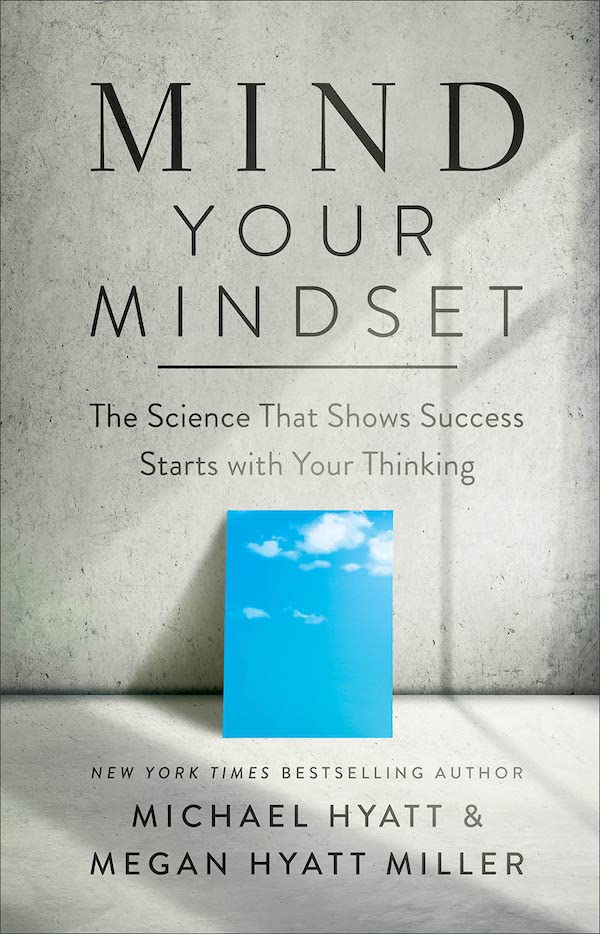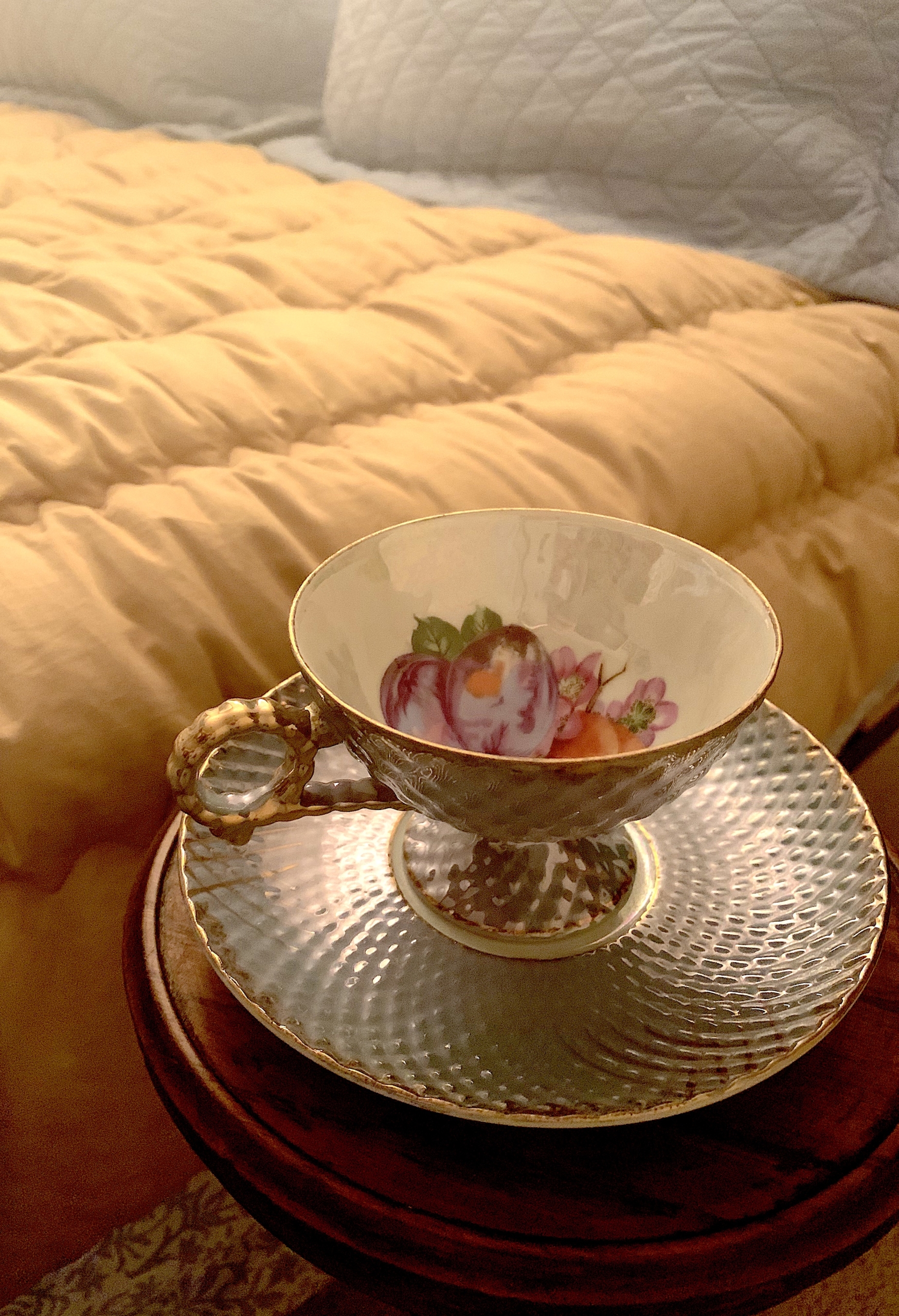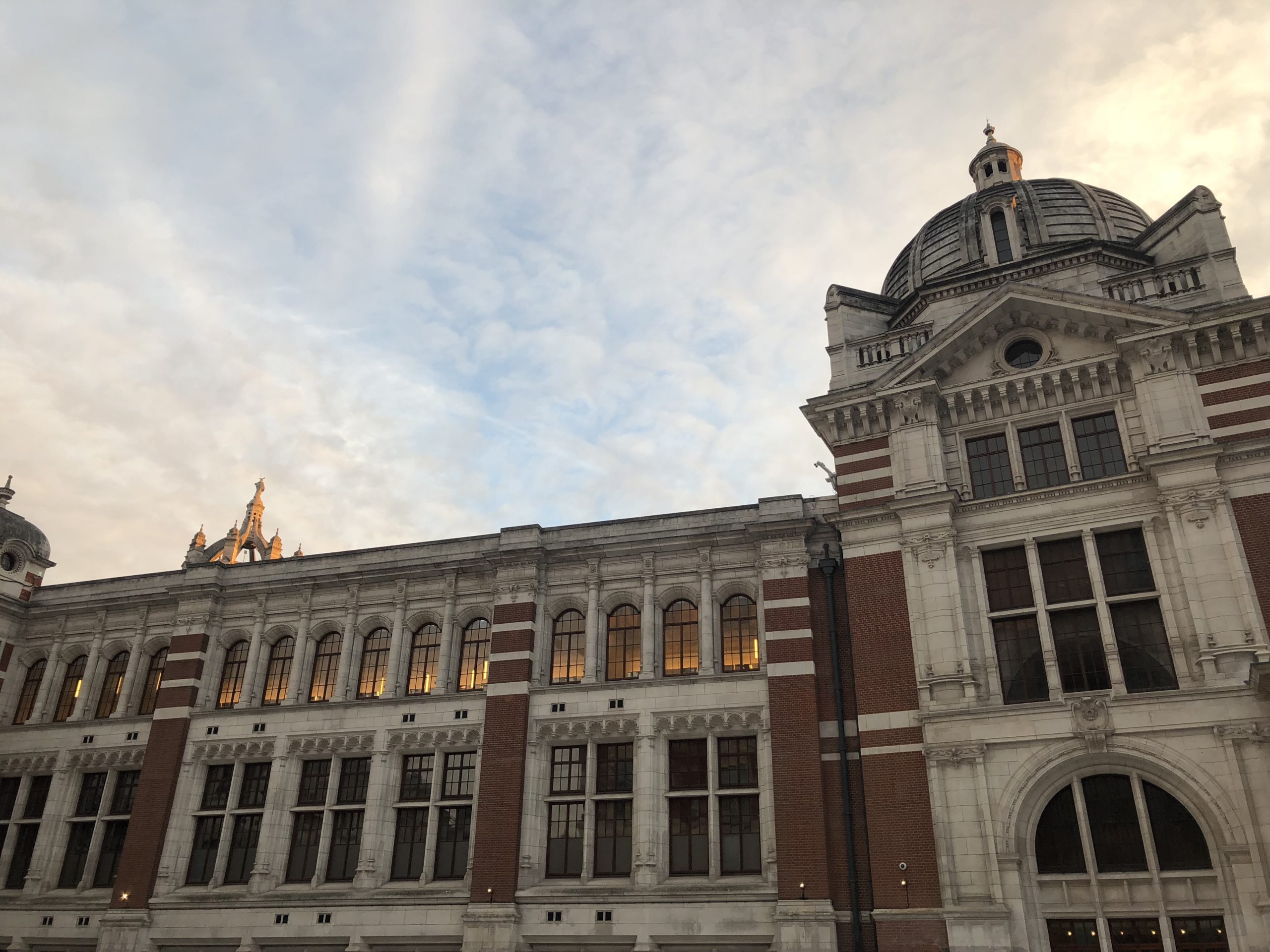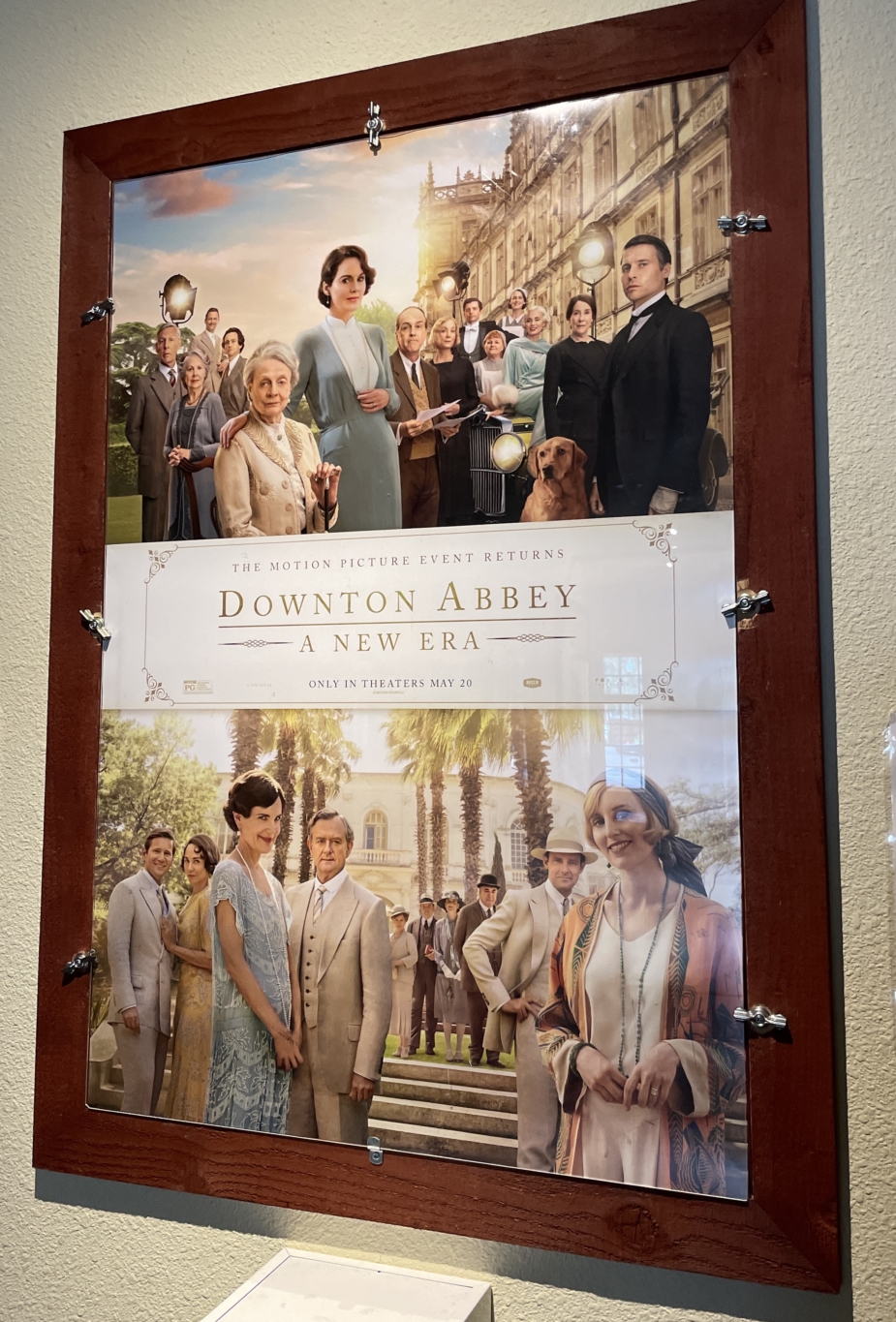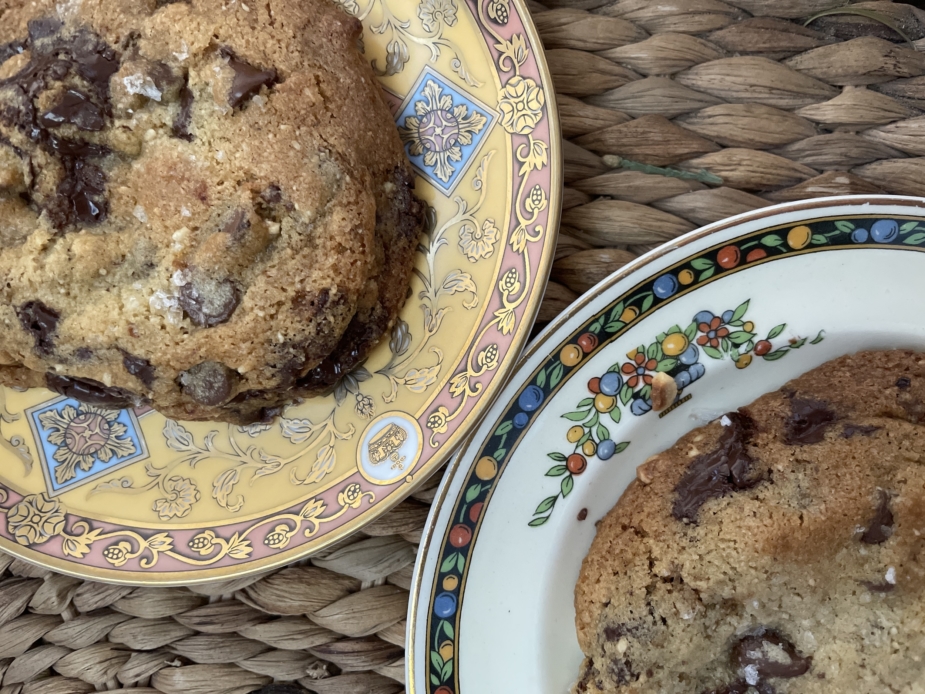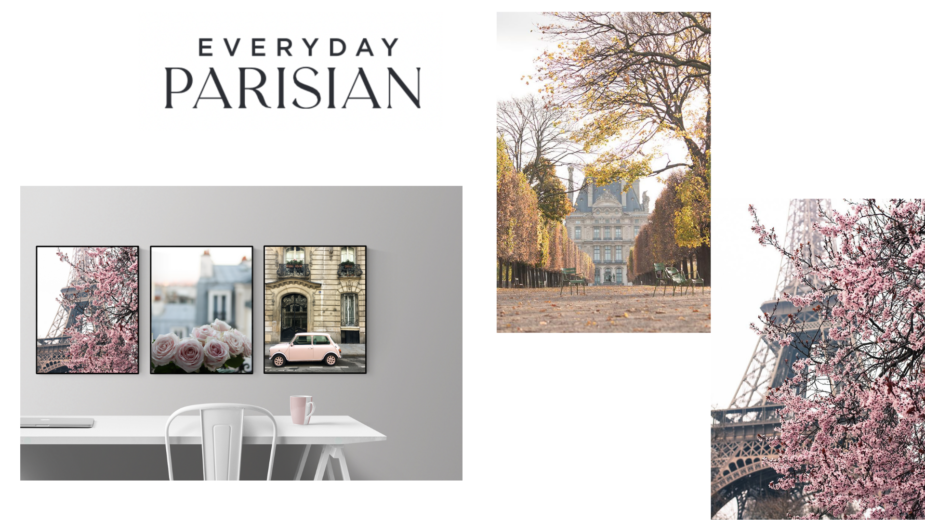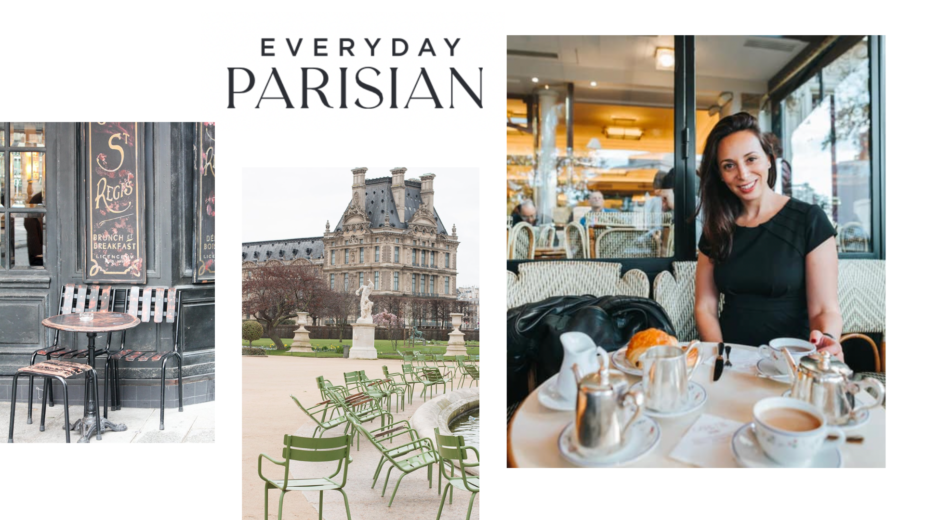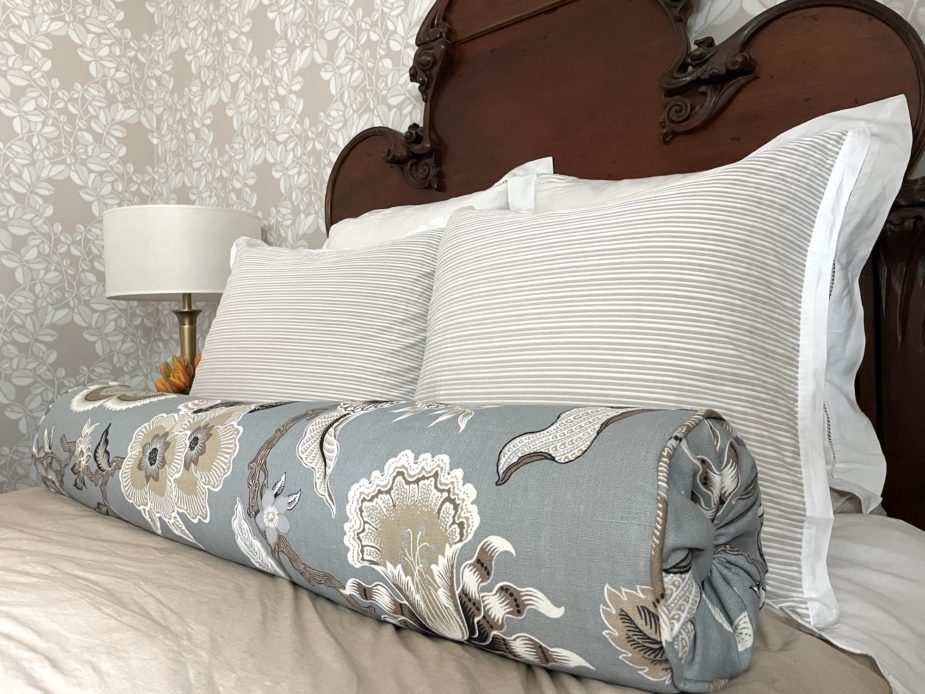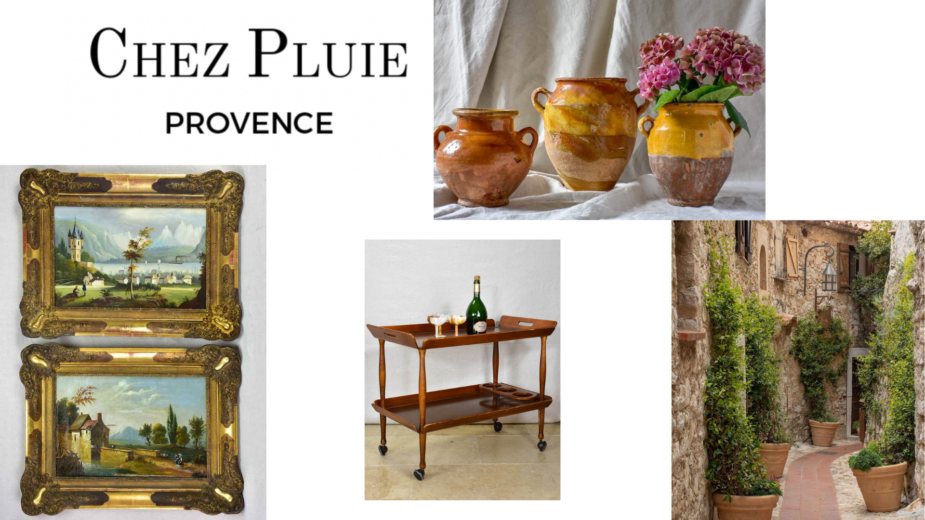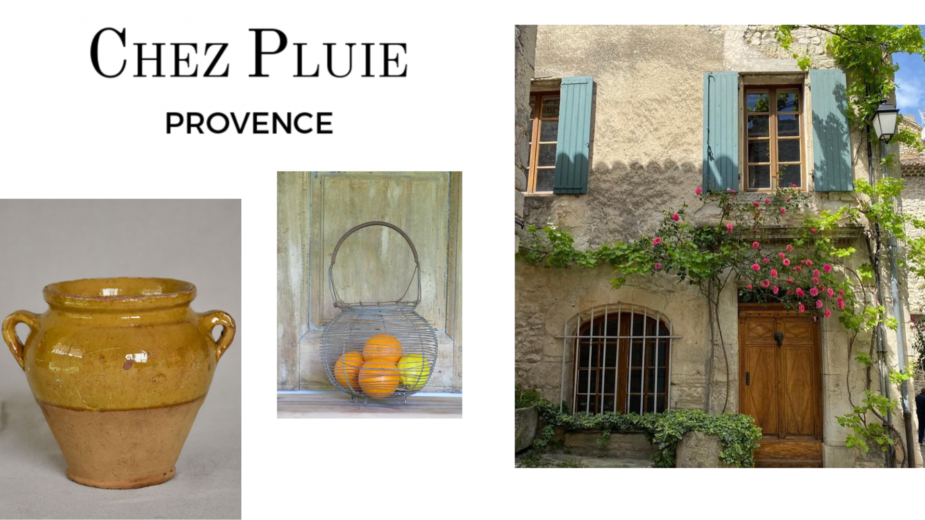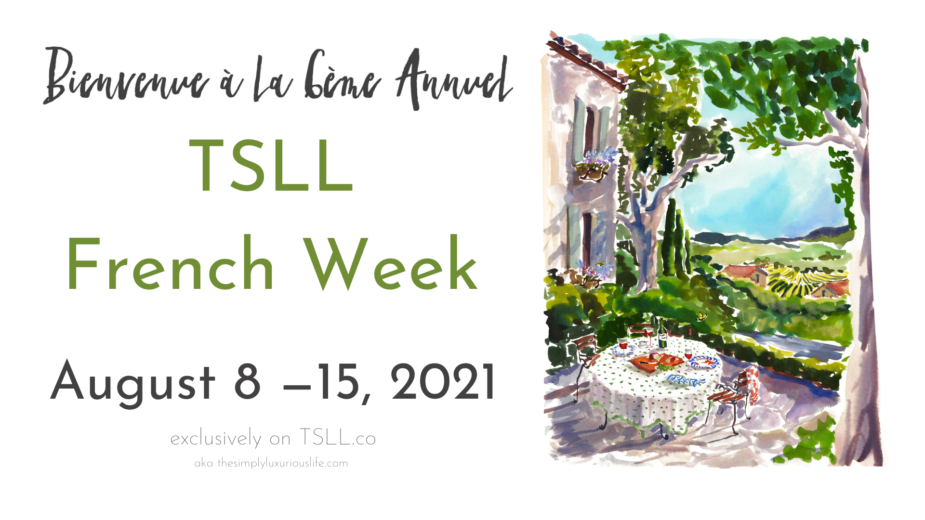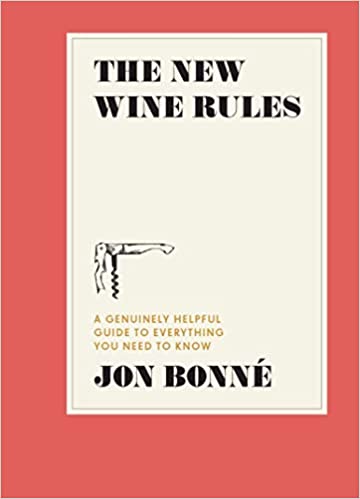Tue, 16 April 2024
"We are not born with the secret of how to live [well], and too many of us never learn it. There is nothing cold-blooded or mechanical about it, but there are many things we have to learn to do . . . the first thing is to realize we've probably been looking in the wrong place. The source is not outside us; it is within." —Mildred Newman & Bernard Berkowitz, authors of How to Be Your Own Best Friend Befriend yourself and you have a friend for life. This simple saying, often expressed, while true, is often not understood as to how it can be possible. But the most awesome news I want to share with you today is that you have had the answers to so much of the peace, calm, and clarity you have been seeking traveling within you all this time. How to tap into and what exactly are you looking for? That is what we are going to talk about today. Inspired by a book that was written in 1971 Mildred Newman and her husband, both psychologists, Bernard Berkowitz, the title was originally How To be Your Own Best Friend: A Conversation With Two Psychoanalysts. Consisting of only 74 pages, their insights are shared, as this title suggests, in conversation form - questions followed by answers. While little known when the couple originally self-published, it was with the help of author, screenwriter and director Nora Ephron, who upon reading the book quite liked it so she introduced the authors to her book agent upon which it then became a national bestseller (learn more about how she helped in this article published earlier this year). Picking up my own copy and zooming through it, I found common sense advice, grounded in approachable guidance sharing reminders and nudges of how we can help ourselves out but often are too timid to do so due to a variety of cultural circumstances and pressures. As I read, the overlap of choosing to be your best friend and finding and experiencing contentment quickly became apparent, and having just wrapped up producing all of the filmed lessons for TSLL's Contentment Masterclass, as you will discover when you enroll, knowing ourselves and honoring what we find to be true for ourselves resides at the core of a fulfilling life. In the words of the authors, becoming our best friend is sage wisdom to follow. However, what does that look like? Being our own best friend? That's what I want to share with you today and the benefits of doing so. Let's get started.
View the Show Notes on the blog: https://thesimplyluxuriouslife.com/podcast379 |
Tue, 2 April 2024
"Composting what was into what will be." Mother Nature and the cycle of seasons provide endless life lessons and nourishing guidance if we are wise enough to heed her teachings. More specifically, spring's arrival, the season as we all know that introduces itself after winter, the latter season of which for many of us can be frigid, keeping us more home-bound and bundled up far more often than we might prefer as well as to cause us to take stock of our home environment most directly and intimately. It was upon hearing the statement above in a recent yoga class that I immediately smiled. Why? Well, there is much truth in this literal description of how compost is created and as to why it applies to our lives, it can figuratively be true as well. However . . . We have to choose, and thus remember, to compost in the first place! Spring gifts us with an abundance of wonderments and opportunities to apply what we have been investing in and working on during winter, or healing or resting in order to feel rejuvenated and reenergized. So not only do we need to remember to view winter as an opportunity to tend to what needs our attention, we must also be courageous enough to step forward into what that rest has given us. Simply because we plant, water and fertilize a new plant in spring, or pot up a dahlia tuber in spring, doesn't mean the beauty we hope to come will appear in spring. No, it will not. The dahlias take around 100 days to share their first flower, but once they begin flowering, so long as they have been planted in their right conditions and the gardener keeps dead-heading, the blooms keep on coming until the first frost in early fall. This is beautiful reminder to be patient with ourselves and the changes we have begun to put into place, or the steps we have begun to take that will eventually lead us where we want to arrive. Spring is the beginning of the new journey, but we may not arrive where we wish to go until Summer or early Fall, but we will never arrive if we don't choose to compost first. In today's episode we will explore eight instances in our life when unwanted moments have happened and how to compost them into something we do want. I welcome you to join us and tune in.
Have a look at the Show Notes for the episode, #378 here - https://thesimplyluxuriouslife.com/podcast378 |
Tue, 19 March 2024
Author and professor of computer science at Georgetown University Cal Newport's latest book Slow Productivity: The Lost Art of Accomplishment without Burnout details exactly how and where in our daily lives and throughout the year we can apply the Slow Productivity approach and why it works. In today's episode I will be sharing with you 10 takeaways that caught my eye as areas of interest that I thought would interest TSLL readers/podcast listeners, and if what you discover here speaks to you, I encourage you to pick up the book as far more detail and information is shared. Throughout the discussion today, I will be dovetailing the ideas Newport suggests with how it overlaps with living simply luxuriously because as is made clear from the name given to his approach, the concept of quality versus quantity is the key thread that runs through Slow Productivity, something that TSLL Community is all too familiar as we individually cultivate our simply luxurious lives.
Check out the detailed Show Notes - https://thesimplyluxuriouslife.com/podcast377 |
Tue, 5 March 2024
The savviness of wise money management encompasses many factors, but one is an approach often overlooked or dismissed: Understanding the difference between a Good Value versus a Good Deal. Here in the states tax season is upon us, and so many of us may have money on the mind even more than we usually do; however, I often find myself at the beginning of the new year assessing my monthly budget, determining where I am gaining value or unnecessarily causing more tasks and draining money. Ultimately, whenever I sit down to assess my money, my goal is to do so less often, knowing I have invested well, so I can go about the living of my life that I love and trust that my decisions will stand a long duration of time offering the performance, purpose or function I purchased it for. In other words, I don't want to be shopping for my capsule wardrobe constantly, restocking and replacing worn out jeans that while a great deal, only lasted one or maybe two seasons. Likewise, I don't want to have to be taking my car to the repair shop frequently, or gassing up frequently or even replacing the car itself as frequently (more on what I am hinting at below in our discussion). When we invest well, and apply the wisdom of purchase great value rather than falling victim to a good deal, we deepen the quality of our overall lives because however we enjoy living them, we can do so without surprise expenditures frequently arising. Today, I would like to explore a handful of areas of our lives in which investing in Good Value vs. a Good Deal occurs, and to offer explanation as to why paying the large price tag upfront will save more money in the long run, as well as instances when a large price tag upfront is just welcoming more stress throughout the duration of your ownership. Let's get started. View the Show Notes for the episode here — https://thesimplyluxuriouslife.com/podcast376 |
Tue, 20 February 2024
The concluding note to readers that author, yoga and meditation instructor Deborah Adele shares in her book Yamas & Niyamas: Exploring Yoga's Ethical Practice includes the wish that they become more skilled participants in the living of their lives. And with the wisdom she shares in her book, she provides them with the tools to do just that. Having shared various insights here on the blog gained from her book, specifically in this post about the simple conscious everyday choice that leads to true fulfillment, and as we conclude the two month-long series of 'new year, new life' as you continued along the way to making the change you set to bring to be as the new year began, I wanted to explore two simple, yet powerfully crucial habits that will make the difference you seek inevitable. A skilled participant. In order to be 'skilled' we must know the skills that would be beneficial to acquire. And in order to embody being a participant in our lives, we must be engaged, we must act, we must take part. While we have covered multiple skills throughout this podcast, here on the blog and in TSLL's books (and will compile and detail them all in a linear approach to cultivating contentment in TSLL's upcoming Contentment Master Class video course), the two skills, I want to talk about today are simple to adopt and when we do, the quality of our life and everydays is amplified for the better:
Let's dive into each of these in more detail . . . Check out the Show Notes for this epsiode on TSLL blog - https://thesimplyluxuriouslife.com/podcast375 |
Tue, 6 February 2024
Bonjour à tous ! Just last week, I concluded FR 105 with Washington DC's Alliance de Français, a Zoom/online course that met twice a week, two hours each time since just after Thanksgiving. You may remember that Part Six of this series was shared during TSLL's Annual French Week which shared what I had learned through FR 104 and 103, and now it is time to share some progress! Thankfully, there has been progress and while I chose to take Everyday Situational French this fall due to my travel schedule, this once-a-week meeting provided me the opportunity to keep the French language on the tip of my tongue before I could dive back in to the regular course work. Some of what I share will be from the Situational French course, but most of it was learned during FR 105. I am tickled to share that while my French definitely has a looooooong way to go, the ease I am feeling constructing basic sentences with a few different tenses delights me to no end. Last year at this time I was nervous and hesitant to attempt to say anything slightly different than what I said the week before when the professor would greet us, but now I at least can speak without hesitation and share what I did over the weekend. With that said, with growth comes growing pains, and I had a few moments throughout the past 10 weeks of frustration when it just wasn't making sense; however, I have a new-to-me professor, she being French and also a long-time educator, I was and am so grateful for her expertise and professionalism. She pushed, but then lightened up and stuck with us when she could tell we were struggling. In those moments, she encouraged us to keep trying and then doubled down on reviewing that particular difficult piece of the language to ensure the concept was acquired. As a fellow educator, what I observed was a keen awareness demonstrating her skill of both the language and how to teach it based on where the learner was and not holding true to the lesson plan if the class wasn't ready to move forward. I am eager to step back into her class when courses resume later this month. I have made it to FR 201! (We now are enjoying a two week vacances.) Tune in to discover 13 things I have learned so far in French class. View the Show Notes — https://thesimplyluxuriouslife.com/podcast374 |
Tue, 16 January 2024
"Part of art making is living your life in such a way that your work gets done, over and over—and that means, among other things, finding a host of practices that are just plain useful . . . a life lived within productive patterns. The life of a productive artist becomes filled with useful conventions and practical methods. And in truly happy moments those artistic gestures move beyond simple procedure, and acquire an inherent aesthetic all their own. They are your artistic hearth and home." —David Bayles & Ted Orland, authors of Art & Fear In unforced or unexpected moments, ideas, solutions and connections appear at the forefront of our mind providing a sense of relief, exhilaration and celebration we may have never thought possible. Such wondrous moments indeed do seem to the onlooker and to the unaware individual to appear magically, and while there will always be an element involved beyond our control, the good news is we have far more contribution to ensuring such ahas happen and happen more frequently than we may have initially thought. The paradox of being a professional creative in any field that must produce work outside of a robotic construct, so this stretches well beyond that of a traditional artist, although most certainly, this need of creating an artistic hearth and home is essential to an artist of any medium, is that the day and life needs to have structure in order to create the freedom to discover and then to bring to being that which is discovered by the undistracted mind. From writing to parenting, to teaching to engineering, to designing whether in clothing, décor or in the graphic arts and even to leading or managing people in any career field, creativity, remaining open to receiving the ideas that wish to be discovered, is present and powerful. And it is up to each of us to nurture an artistic hearth & home for it to be discovered on a regular basis. Because it can be. As we continue to move through the first weeks of the year, our intentions remain clear and all of our efforts, each small regular change of habit contribute to the bringing to fruition the change or outcome we seek. Most importantly, we must enjoy the journey in order to remain upon it which is why I wanted to bring today's episode/post to you. When we thoughtfully and with intention curate our sanctuary to be an artistic hearth and home, we not only provide security and safety for ourselves to reside throughout our days and in-between our trips to work and life outside of the home, we also create warmth which encourages us to grow, expand and evolve in ways we have never been but now know is the next best step, the step that keeps niggling at us to let be and to stop holding back out of fear and doubt. So how do we go about cultivating an artistic hearth & home? Tune in to discover the 10 nourishing ideas. https://thesimplyluxuriouslife.com/podcast373
|
Tue, 2 January 2024
We explore the topic of rituals frequently here on TSLL (explore all of the posts and episodes shared thus far here), and initially it may seem redundant to do so again in today's episode/post, but as I have experienced in my own life, my appreciation for the benefits and happiness deepens and therefore I understand even more fully the power of carefully choosing rituals to tailor to the lifestyle we love living. It is in the tailoring that our daily lives and future outcomes we hope will materialize have the opportunity to enrich our experience and bear the fruit we have envisioned. As the saying goes, when we know better what will nourish us well, we then can do better, and such is the case with carefully chosen and savored rituals. First, let's look at the five characteristics of rituals before we take a look at examples you may want to add or adapt to suit your everyday life.
View the detailed Show Notes for today's episoe (#372) here - https://thesimplyluxuriouslife.com/podcast372 |
Tue, 19 December 2023
Whether or not snow has fallen come December, the warmth and cheer of good tidings appearing about town, the neighbors, in the shops and arriving in the mail by way of the annual Christmas cards sent from friends and family living near and far always wraps me in a figurative hug. This year, similar to last year, I will be spending Christmas at home in Bend, Oregon, and it is exactly where I want to be. And leading up to the festive day has been and will continue to be sprinkled with intentional activities, pastimes and nibbles that create a festive, cozy atmosphere I feel most fortunate to be able to savor. Each of us will go through seasons in our lives, stepping out of old chapters and into new ones when we embrace our courage to welcome what is awaiting to be given to us, and such is the case for me that I am delighting in quiet Christmases. As Nigel Slater eloquently writes in The Christmas Chronicles, in his delicious, image evoking prose, "Christmas is celebrated by Christians and non-Christians alike. It is a cultural event as much as a religious one". I share the rest of the quote in last year's holiday episode - #347 if you want to have a look, but part of why Christmas and the entirety of November and December is treasured by so many is that it is celebrated around the world and it is celebrated by people of a variety of different beliefs or non-beliefs, and that is a reason to smile and appreciate the season all the more. Perhaps inspired a bit by Beth Kempton's beloved book that I know many TSLL readers have enjoyed and return to reading each November and December, and adding to the list shared last year, episode #347, that included 9 Ways to Savor Christmas at Home, Alone, Simply Luxuriously, I wanted to share today's episode of how to savor a quiet Christmas with as few or as many people as you desire, and reveal how these thoughtful ways to enjoy this special time of year, while not extravagant, complex or even requiring money, can bring a deep richness to the season, making it all the more special. Let's take a look at the list. Visit the Show Notes: |
Tue, 5 December 2023
"My mission in putting the single at heart on the map is to rewrite what it means to be single. Single life, to those of us who are single at heart, is a joyful place, a place to learn and grow. It is a big-hearted, expansive, meaningful life full of possibilities . . . intimacy, to us, is personal; in that domain as in all others, we follow our hearts rather than the cultural rulebooks. We chart our own life courses, with meaningfulness, psychological richness, and authenticity as our guide." —Dr. Bella DePaulo, author of Single at Heart: The Power, Freedom, and Heart-Filling Joy of Single Life Joining me on the podcast today is a guest who has courageously chosen to share that she thoroughly and unapologetically savors living a single life. The leading expert on single living, Dr. Bella DePaulo dispels the myths that pervade modern-day (and historic) cultures around the world when it comes to being single by looking at the research that is often cherry-picked and misleading as it speaks to in what type of relationship status one finds the most happiness. But most importantly, in her new book that was just released yesterday December 5th (2023), Single at Heart: The Power, Freedom, and Heart-Filling Joy of Single Life, she focuses on an abundance of findings that reveal the many benefits of living single. From improved health and deeper life satisfaction as we age. Thankfully, so much of what is portrayed in media - films, books, television, pretty much everywhere - is not an accurate depiction of where and how happiness is found. By no means is Single at Heart an anti-marriage or anti-couple book, but rather a book that reveals that those of us who have chosen to be single, who find it far more fulfilling than being in a traditional couple, need only trust our inner compass to continue to choose the life that brings us fulfillment. As she points out, the world would be far more peaceful and content if we would trust what we know to be true of ourselves - those who wish to be in a couple would find people who truly wanted to be in a couple, and those who savored their single life would not feel forced to choose a life that was not nourishing. Tune in to today's conversation where we will talk about the priority and value of freedom as well as benefits of solitude for the Single at Heart, and also speak to how those who are widows/widowers, as well as divorcees, can step into a new chapter of revelation about where and how joy can be cultivated. Dr. DePaulo discusses the importance of nurturing The Ones rather than just The One and reminds us that courageously saying we love our single life is what is needed to change the view that the culture errantly holds on to. |
Tue, 14 November 2023
Satiation. To completely satisfy your appetite, whether it be literally, therefore with food and drink or figuratively as we seek to fulfill our needs in all immeasurable areas of life. To equate contentment with satiation is somewhat accurate except that satiation requires us to engage with something outside of ourselves, to choose well, to know much about what and why we are pursuing it, and thus to know ourselves and physiology well. Granted, the 'knowing ourselves' is a shared cross-over between contentment and satiation if we are to attain either which is why when I began to ponder today's focus of making our everydays taste better, I naturally began thinking about the literal sense of 'taste' as it appeals to our palate, but then began to expand the breadth of 'tasting better' as it pertains to how we move through our days - the decisions we make, the structure, the rituals and routines. And with holiday feasting just around the corner as well as a new year that often brings with it a reassessment of how we are caring for our health, I thought today's episode a wonderful topic to explore because we really can eat well and deliciously all year round, thereby elevating the taste of our everydays. Let's take a look at simple, yet dependable ways to ensure what you cook and eat will satiate your appetite.
|
Tue, 31 October 2023
A quiet confidence, an ease of being. A deep joy of living each day. To consciously find ourselves in any of the three states of being above, it will have taken much intentionality, effort, patience and compassion. As well as strength, courage, kindness and trust. And these are all actions given to ourselves, let alone to the people and environments we engage with along the way to reach each or all of the aforementioned states. However, as Steve Jobs succinctly shares above, once you arrive at the simplicity, you have gone through much complex exploration, and it is because you have gone through that exploration that you know, absent of ignorance, that indeed what that true simplicity is and how to attain it. It is then at that point you really set yourself free and yes, his metaphor is apt - you will be able to do things you may have never thought possible, experience things you once thought only resided in your dreams. When The Simple Sophisticate podcast premiered back in September 2014, in the first episode, we dove right into sharing the eight pillars of living simply luxuriously (the most downloaded episode in the show's history); however, I think we are long overdue for sharing exactly what constitutes someone who is a simple sophisticate. And while I concisely shared a definition on the podcast page: The simple sophisticate is someone who prefers quality over quantity, sensible living over mindless consumption, personal style instead of trendy fashions, has an insatiable curiosity for life’s endless questions and a desire to live a truly fulfilling life rather than being led around by the nose, and the term itself 'simple sophisticate' has simple in its title, but it is in fact a complex concept, a destination and a way of living that takes time at which arrive; however, once we arrive and attain clarity in the understanding of what a simple sophisticate is and experience it first hand, the benefits, the elevation of the quality of our life, we then wholeheartedly understand the invaluable, yes, complex journey of self-discovery and self-growth we needed to travel in order to arrive at a state of being a simple sophisticate. And similarly to living a simply luxuriously life, the pillars for being a simple sophisticate are concrete, but how each of us embodies and welcomes them into our lives will be unique to our own life journey, and nobody will be exactly the same. So to be clear, a simple sophisticate is not a simpleton, and in fact, polar opposite of such a descriptor. A Simple Sophisticate, as we will share in detail below, chooses and acknowledges that many lessons and skills are needed to be able to experience the deep contentment within, but in accepting this truth, now has a focus that will lead through the temporary complex journey in order to arrive at a state of simplicity, a dynamic resting place of clarity, inner peace and a quiet confidence in how you go about your daily life. So remember . . . "Simplicity does not precede complexity, but follows it." —Alan Perlis And it will indeed follow it if you are willing to grow, to stretch, to explore, to let go of control and find comfort in uncertainty. Let's take a look at the 14 characteristics of a simple sophisticate:
Direct download: 368SimpleSophisticate14characteristics.m4a
Category:happiness -- posted at: 8:00pm PDT |
Tue, 17 October 2023
"The fastest way to a good life, is to slow down." —World Institute of Slowness in Norway Walking into a beautifully decorated home, an abode that welcomes you, gives you a hug and invites you to stay without saying a word takes time to curate. And even those homes that someone else has curated and we feel this way when we walk across the threshold into their home, it is their home, and not our own, filled with choices, items and details that they will appreciate more deeply than we ever could, even if we can understand why they appreciate it. All of which is to say, curating a home for ourselves that gives us a hug each time we return home will take time, and so it is in our practice of patience and trust that the house will reveal what we need in time so long as we live consciously and feel our way honesty through living well in our homes, that we gradually begin to see and then feel how wonderfully loving and comforting a slowly decorated home can be to elevate our days and thus our lives. Now, if you when you see the term ‘slow decorating’ you think to yourself, but I want to feel comfortable in my home now. I cannot live without basic comforts. I hear you and I completely concur. Which is why it is important to keep this approach of slow decorating in mind even more. Suzanne Imre from Neptune shares, “Slow decorating is about planning, considering, refining. It’s about having a strategy. A direction of travel, which helps clarify those decorating decisions (light or dark? Nickel or brass? Wood or tiles?). And it’s about enjoying the process as much as the results.” And so it is with today's episode/post, I would like to give you 10 tips to provide exactly that, your strategy moving forward. Choosing to go the route of slow decorating is also a planet-friendly approach. Imre goes on to say, “This slower method also supports the desire for sustainability and preservation. If you have an unhurried approach to furnishing your home, you’ll likely buy less but better. And those pieces will have longevity.” This concept of quality over quantity has been the founding principle of living simply luxuriously and what inspired the TSLL blog coming to be, and it is just this concept that will serve us well, but also the planet should we choose to trust that with time, many benefits for many entities, ourselves, talented artisans, and the environment will be enjoyed. While I have known this concept to be worth putting into practice and have put it into practice with the three year journey of customization of Le Papillon as shared in this episode, I saw with my own eyes how choosing such an approach over years can create an amazingly special place when I had the opportunity to stay for a week at British interior designer Rita Konig's North Farm in Durham, England. |
Tue, 3 October 2023
Britain is calling, and if it is calling you as well to hop on an international flight and cross the Atlantic or the English Channel, or whichever body of water you will have to cross to arrive on British soil, this is an episode I think you will find helpful to ensuring you have a wonderful trip to your destination. So that I don’t repeat myself, I wrote and shared a detailed 17-point list on how to prepare for international travel in episode #183. This list is for traveling anywhere internationally, not just Britain, but it is definitely a list I always refer to before I head out the door at Le Papillon to France or Britain. Today what I would like to share with you are more specific tips and insights for traveling to Britain specifically so that you can enjoy the journey to your accommodations as much as the trip itself once you arrive. Assuming you have your passport all squared away as well as your Global Entry pass should you wish to utilize this swift admissions through security, let’s talk about everything else (again, for general preparation for international travel, check out episode #183). |
Tue, 19 September 2023
"Our world is dominated by algorithms — by data collection that steers us toward a limited set of products and designers who have paid for the privilege of coming up first in our search. The result is that our taste has gotten . . . only more homogeneous, more limited." —Rachel Tashjian, style contributor to The Washington Post, in her article Whatever Happened to Having Taste? The primary reason I wanted to begin with this quote is because the reality is all too real: good taste is often hard to find, and much of it has to do with remaining inside the box. Often this 'box' is the one we see frequently on Instagram, Pinterest or TikTok. Enter interior designer Heidi Caillier, someone who didn't and doesn't play by the rules of social media, who didn't follow the trends, and trusted her own voice and eye. To walk into a home curated by someone with exquisite taste, time seems to vanish, and the primary emotions one feels are comfort, awe and appreciation even if we don't know at all how they did it. Somehow, it all just works. A symphony of hues, textures, pieces, and details that appear as though they just belong together to welcome the residents of the sanctuary home each time they cross the threshold. I remember seeing interior designer Heidi Caillier's work for the first time. It was the cover story of Rue Magazine in 2019. Caillier had designed a Seattle cottage guided by the charming Scandinavian aesthetic - simple, yet cozy, unique, yet functional, and with thoughtful touches of vintage to create a feeling of nostalgia. I became even more intrigued when I saw her work on a handful of Arts & Crafts houses both in California, Oregon and across the country on the east coast. Heidi was speaking my language (she embraces wallpaper!), as she incorporated the aesthetics that reminded me of English country with modern sensibilities for living well and thoughtfully. Check out a few of the homes here (one of my favorites - the kitchen!), here and here. And her entire portfolio here. As Caillier is also someone who lives in the Pacific Northwest, in Tacoma, Washington, part of my intrigue was her home base as rarely had I seen an interior designer from PNW that has their own aesthetic that wasn't wed to the stereotypical Portland or Seattle modern trends that never quite captured my definition of timelessness or comfort, or even warmth. With delight and immediate appreciation, I began following her on Instagram as she share glimpses into her projects as they begin, are in progress and eventually are completed. As she shares in her new book, just released on September 5th, Memories of Home, the portfolio shared in the pages of the book tells stories that are "nostalgic, romantic, creative, playful but sophisticated, and so incredibly comforting." All the boxes in my ideal of a sanctuary are ticked with that sentence, and indeed each home showcased demonstrates her objectives have met their desired results with each client's home shared, including her own. As timing would have it, the topic of good taste, and the seeming lack thereof arose this month in an article written by style contributor to The Washington Post Rachel Tashjian, as I was pouring through the pages of Heidi's new book, it became immediately clear she understands and brings forth good taste in each of her homes, but how does one do that? Even if we don't hire someone or are unable to work with the talent and expert Heidi provides, how do we curate a home, and in very much the same way, curate a wardrobe and a life that is not guided by algorithms? Well, I think that question in and of itself is a great place to start. Let's take a look at eight key aspects of curating good taste when it comes to our décor. |
Tue, 5 September 2023
Prevention versus correction. For a few decades now, or perhaps more than a few, stress management has been the term of phrase often used as we find a culture, and more specifically, ourselves nearing or reaching burn-out whether in our jobs or life in general, and while bringing healing and remedy to something in our lives that needs our attention for improvement is certainly valuable and a necessary skill to learn should we find ourselves in this state of fatigue and chronic stress, preventing such a state from ever being reached is a far more beneficial approach, and gives us much more enjoyment and yep, contentment for a far longer time throughout our life journey. Similarly to stress management is time management, a term of phrase again that is used often but actually brings our attention to the wrong place. Living simply luxuriously is a drilling down and investing in quality over quantity, and this includes how we go about our days. Time management shares directives on how to squeeze more into the day, but energy management teaches us how to thrive throughout our entire day, something the former doesn't prioritize although it does keep it in the equation. And here's the important detail to keep in mind, energy management is going to be unique to each of us because we are each unique individuals traveling during different periods of our life journey, experiencing different chapters of our life, so to focus on time management is to focus on a logical, concrete approach, but we are not stoic, robotic individuals. We have ups and downs in our moods, our physical abilities, our mental strength for focus, will-power, etc., and that is why shifting to energy management will actually solve the issues that stress management and time management are trying to address, but also ensure you are honored for the individual that you are. Let's take a look at six habits to consider when managing your energy well through the day in order for you to thrive, enjoying each day even attending to tasks that are have-tos. |
Tue, 15 August 2023
 When I knew I would be sitting down to chat and catch up with the lead vocalist of the jazz band The Hot Sardines, Elizabeth Bougerol, I knew our conversation would be enjoyable, inspiring and much like taking a drink of refreshing water that leaves you energized, hopeful and inspired. And indeed that was the case. 😌 To talk with Elizabeth, now our second time (listen to episode #157 for our first conversation), is to talk with someone who knows and is passionate about her craft and the genre of jazz; in other words, the history of jazz. And it is because of her passion, along with her unquestionable talent of being born to do it, paired with fellow co-founder of the band Evan Palazzo, the pianist of the ensemble and his equal passion and talent for what they do, that more and more people who tune in to The Hot Sardines' music, and attend their concerts, are discovering and loving jazz all over again or for the very first time as you will learn about in our conversation. Not only will she talk in detail about a handful of the songs on The Hot Sardines' new album C'est La Vie (released wherever and however you enjoy your music on August 4, 2023), but we'll talk about the difference between French jazz and American jazz which I found fascinating and also further revealing as to why I am enamored with the French culture. We will also go beyond the album to talk about work-life balance, what it's like to perform on stage while pregnant and how she answers the ever common question often raised, oddly, nearly exclusively to women who work, about Mom Guilt. I so enjoyed her answer, and I think you will as well. Lastly, we talk again about finding the courage to pursue a passion project, and she offers advice to anyone who is considering doing so but maybe hasn't taken the leap just yet. I do hope you enjoy this episode which will also include three clips from the album that offers both French and English tracks, originals written by Bougerol and Palazzo and covers of beloved jazz favorites. Now to the episode!
Buy the new album C'est La Vie from The Hot Sardines here  Links mentioned in the episode:
Listen to Elizabeth Bougerol partner up with Bob Parins in a duet covering Edith Piaf's classic "La Vie En Rose".
Listen to our first conversation together back in 2017, episode #157, talking Passion Projects, Jazz, Being French at Heart & Living in the Moment 
~Explore more episodes of The Simple Sophisticate podcast here. Photo credit of Elizabeth Bougerol above captured by Shervin Lainez.
Explore all posts shared during TSLL's 8th Annual French Week here
 |
Tue, 1 August 2023
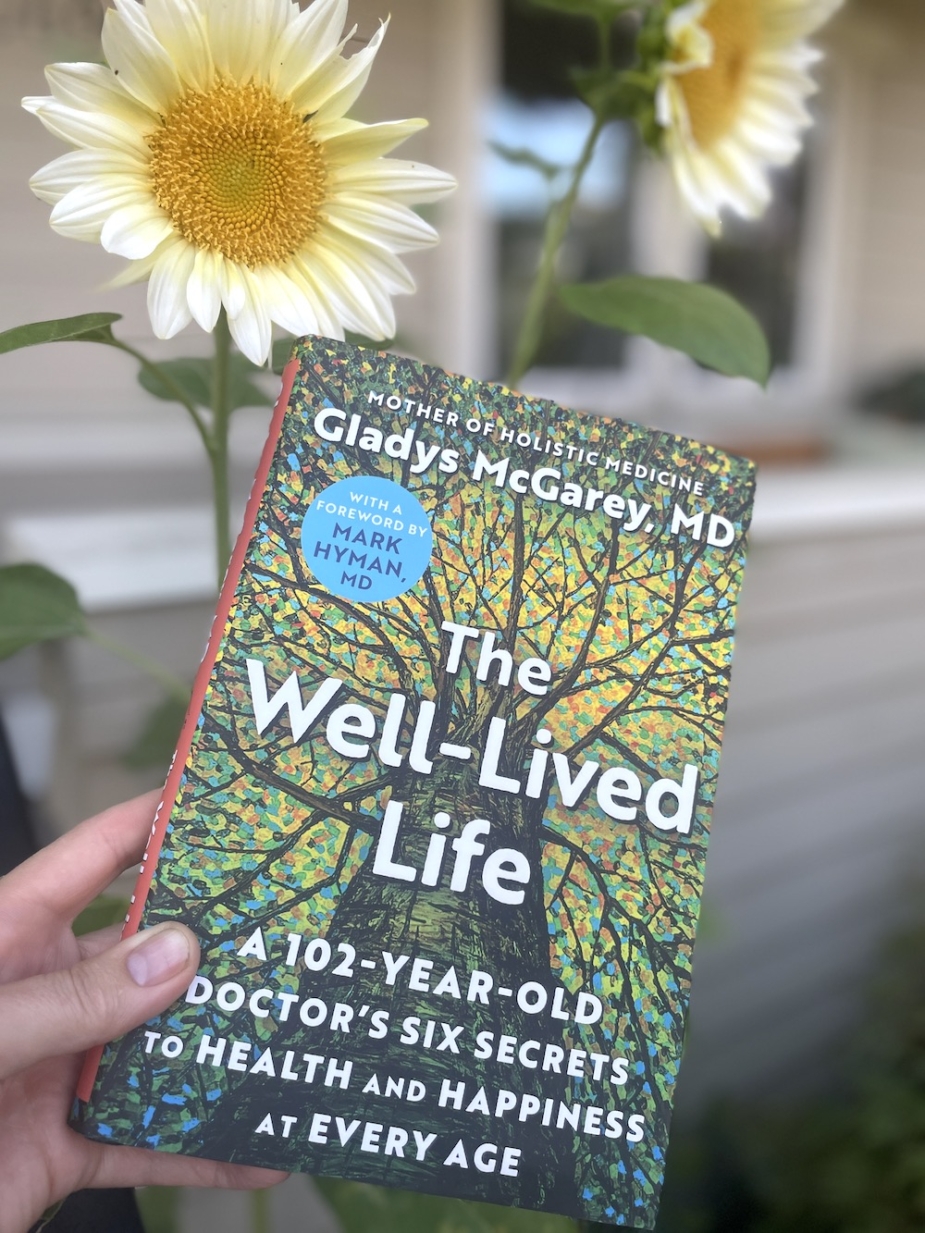
"I still have yet to discover a secret ingredient that has been proven to ensure a long and healthy life—well, not one you can put into a blender, anyway. But I can help you discover the secrets of true health and happiness . . . they're based on a simple shift in perspective."—Gladys McGarey, MD, author of The Well-Lived Life: A 102-year-old doctor's six secrets to health and happiness at every age Born in 1921, Dr. Gladys McGarey's life journey began living and experiencing the life truths she later learned contributed to her living her long healthy and happy life. A doctor in holistic medicine for over 80 years, Dr. McGarey's life story in childhood and young adulthood reads like a history book now taught in classrooms. In 1930 as a young child, while on a train from Delhi to Bombay (now Mumbai) with her family who was returning to the states after having lived in India for some years, she witnessed Gandhi's historic salt march. As she worked her way through school and became a doctor, she battled with cultural norms of where a woman's place should be, and as life continued to unfold, having honored what was speaking to her about what brought her to life even when others disagreed, she continued to witness truth after truth of the medicine one receives when they trust their heart. Released on May 1st of this year, Dr. Gladys McGarey's book is a treasure of inspiration, backed by science of the power of honoring your language of how you find life in living. Below I will be sharing 11 insights and ahas that she teaches that perhaps will inspire you to trust what your heart is saying even if you don't know what will transpire. "Part of what makes mysterious happenings possible is our belief that we don't know everything . . . I cannot overstate the importance of keeping a sense of wonder about the world as we age. It is what keeps us young. Our souls benefit from our holding on to the idea that we don't know what's going to happen next." Let's get started. 1.Find your life force "To be truly alive, we must find the life force within ourselves and direct our energy toward it." Dr. McGarey calls it our "juice" and explains that "the process of finding our juice that keeps us vital". She shares that in many Eastern philosophies "there is a certain energy tied to well-being", two terms used to describe this are prana as well as chi. Western philosophers often use the term purpose or motivation. She continues to remind that while finding our juice and cultivating it won't "ensure perfect health, running out or losing our juice is often a major obstacle to feeling good". When we don't find our juice, both our mental and physical health start to wane. Finding what your juice is may shift and change over your life journey, but keep yourself in the process of finding what lights you up, what makes you feel energized when you are engaged in whatever it is you discover. That is your juice. That is your life force and it is immeasurably powerful to living well. Multiple studies at the University of Michigan Health and Retirement Study "observed a link between a high sense of purpose and decreased mortality in adults over fifty." Similarly to what Dr. McGarey shares, when we find what is our purpose, our calling, our prana, whatever term you want to give it, the world receives this positive energy, and not only is our well-being improved, but so too is the world's. Why? "The joy [finding our juice] brings to our lives will ripple out to the world around us".
2. Know this to be true: You are as you are and that is an awesome thing "We're supposed to be shaped precisely as we are, because that way we can fit together. It isn't anyone's job to judge the shape of anyone else's piece, and in the same way, it isn't useful to try to make ourselves more or less like anyone else or to worry if they judge our shape." What Dr. McGarey then reminds us is for each of us, knowing that we are made the way we are for a reason to give something awesomely unique to the world, to contribute positively in a way only we can, it is our responsibility to find it, embrace it and share it because "each of us is essential". And when we tap into our truth, our true self, we inspire others to do the same in their own lives. "When we feel ourselves click into the whole puzzle, we become part of the pattern of life. When this happens, we exchange juice with the world around us. Our juice flows freely, and we have more of it than ever before."
3. Multiple streams of 'juice' "We're able to connect with life best when we get juice from multiple places. A puzzle piece doesn't just click in on one side; it clicks in on two, three or four. What that looks like varies from person to person ." When you find your juice, you may think it will be one thing, but in actuality, our life is full of multiple sources of inspiration and energy, and each, when consciously chosen using our self-awareness to ascertain what fuels us and what drains us, we can cultivate a life full of juice. From our work, to our relationships, to our hobbies, to how we nourish ourselves. McGarey speaks in this section about how the 'should's from the culture that surrounds us can make us involve ourselves in life choices that 'should' be the best choice when such advice is incorrect, even though perhaps well-intended. Her example that she uses is choosing to be a parent. While she herself loved and loves being a doctor, she also loved and wanted to be a parent. Being both during the mid twentieth century was scoffed at, but to her, working as a doctor was her juice, but so too was being a parent. She dismissed what others said was 'best' and honored what gave her energy. But raising kids and being a parent isn't going to be a source of juice for everyone and that is vitally important to understand. I use the example of being a parent because it is a common one purported as including, "well, of course it is exhausting - that is what parenting is!" But I say this most sincerely as a teacher who met many hundreds even thousands of parents over my 20-year tenure - for some people it drained them, for others it lifted them. It isn't being a parent that is the medicine for a happy life, it is choosing what is discovered to be your juice and for some that is parenting, but not for all. I so appreciated her pointing this out and sharing her own experience as a parent that indeed, it isn't something that everyone will find to be their purpose and honoring that is vitally important to living well. For me, I knew this pretty quickly, but I was amazed, especially more upon reflection, how adamant society was to tell me I was wrong, even though they had no idea what made me fill inspired and full of energy. That is all the more reason to trust your own journey, your inner voice, your soul as many call it, and keep searching until you find your juice. You will know it when you come across it, and as mentioned above, there will be MANY things that will give you juice. Explore, delight and include them in your life as you will. Some will remain in your life your entire life journey and some will only be a part of your life for a chapter or two, and understanding this truth demonstrates you are living consciously and are aware of what fuels you and what drains you. 4. Embrace movement - physically, emotionally, spiritually "Understanding the power of movement can get us through almost anything. It's a sacred truth that helps us in our hardest moments." From stuck energy to blocked adrenal glands, movement is needed to bring us to good health. Studies continually demonstrate that physical movement, simply walking briskly for ten minutes, increases life expectancy, and such physical activity helps us move through stress and even depression. Why? Through physical movement, the brain is signaled "to release feel-good hormones and these have profound effects on both short and long term health." From our mood to how our brain's cognition improves, movement is good and that includes forgiveness to release stuck emotions, moving through fear, anger and disappointment is beneficial to our mental health, and thus why understanding how to become aware of our thoughts is crucial to understanding how they either impede or improve the quality of our life. If the former, it is time to make a move to learn something new to change what is thwarting our ability to let go of certain emotions we are stuck in.
5. Understand a necessary transition period may have to be traversed Dr. McGarey points out that when you do find your juice, it is likely that you will have to, in order to do what you love doing, what brings you to life, "go through a transition in life. It shows us who we really are. This may require us to make a change, start doing something new, or stop doing something we've done for quite some time". It may not be a dramatic change, but merely a changing of the stories you tell yourself, how you engage with the world or the habits you have been incorporating into your daily life, but it may be a significant change - a job change, relationship change or shift, a move. When you find out what you can uniquely give to the world and what the world engages with as you give a positive contribution that only you can give, you come to see that indeed you have a gift within you that needs to not be tucked away. Dr. McGarey writes "our search for juice connects us to the greater question of why we're here?" She goes on to address that this is regardless of whether you have a formal belief structure or not, so whether you are spiritually or religiously inclined, atheist or agnostic or anything that guides you in life. When you find your 'why' you have found your juice and that is the 'medicine' for a healthy and long life IF you choose to engage with it. Sharing that after her own divorce from her husband who she had been married to for decades and shared six children, it was when she stepped away from a marriage, that for some time was filled with much love and goodness, that "life got a whole lot better from there . . . I became who I had always been meant to be." It is when we cling to what we know that no longer serves us or never served us that cause us pain and prevent us from healing. And the healing can only take place when we embrace our life force and trust what it will bring into our lives.
6. Bravely be love "Our life force is activated by love." Fear is inevitable in life, in many forms, but it is when we choose to remain in this state of fear that our lives are adversely affected. Dr. McGarey reminds that "Fear destroys our sense of reason, making it impossible to see things clearly." And here is the good news. When we acknowledge fear, but don't linger in this state of feeling, but instead take action, either through asking questions, asking for help, or at the very least stop digging more of a fearful hole for ourselves by spiraling into more worry, we begin to step ever closer to finding our juice. You will appear fearless, but not in a daredevil way. But rather, as McGarey writes, as "a person who approaches life with an open heart." When we open our hearts, we are opening our lives to love. It can enter our lives in any number of ways from the kindness experienced from others, a smile, or support as you make your intentions known and bravely pursue your calling.
7. The importance of self-love "When we refuse to love ourselves, we shut out love from everyone else, too . . . Self-love is not pride at all. It is gratitude for the life we have been given." When we finally remember that we have always been lovable, "that is when we become "love-able". In other words, "self-love is the basis of all love". This will require us to step away from, let go of, choose differently so as no longer to include, parts of our life that want us to believe we are not lovable or not wonderful just as we are, that what lights us up is wrong, or lacking or not enough. Dr. McGarey uses the example of the tumor that needed to be removed when she had breast cancer, in order to be loving to herself, to give herself life, she had to remove the tumor. Instead of fearing cancer, she honored herself and her body, by being loving and removing it. She goes on to talk about telomeres (the end caps on our chromosomes), and how studies have revealed they are affected by our thoughts. Simply put, positive thinking, which involves the thoughts we think about ourselves and whether or not we are deserving of love, beginning with regularly giving ourselves love that includes honoring what gives us vitality and juice, "does affect the way our genes express themselves, which can have profound effect on both our health and our experience of being alive." Wow! IF that isn't a reason to cultivate a life of vitality and honoring our true self and purpose, than well, just wow. :) Thoughts create images in our mind, and depending upon what those thoughts are, we are either healing or hurting ourselves. Our life force, as discussed in #1 is a powerful healer when we embrace it and welcome it into our lives.
8. Connect and contribute what you uniquely can "Life comes from our connection, is supported by our connection and creates connection. We are happiest and healthiest when we are contributing to and drawing from our collective life force." Positive social connections are crucial to our overall well-being and good health. And when you have found your life force and are bravely sharing it with the world, more energy is created. On the flip-side when you are drawn to others because of what they are giving to the world, you're connecting with them, and supporting their journey is equally energizing to both parties. The key is yes, connect, but connect through what you can uniquely offer. This takes bravery because you are making yourself vulnerable, but you are also tapping into supporting others in ways you may never know which is why when someone or something speaks to you, supporting them genuinely in ways that are welcomed and you can partake is a priceless gift given and received. With that said, finding friends, again creating connection, is awesome medicine, but also not something to be rushed or forced. McGarey suggests start with your neighbors and then move on to people you work with or network with at work by simply being kind and curious. When you are living your life force in everyday life, more serendipitous meetings will occur, "pushing new people your direction", we simply need to remain open to seeing them. With that said, we need to actively be aware of how we feel and how our juice or life force responds to new people that cross our path. If anybody is draining our juice, this is when we need to honor our boundaries.
9. The importance of boundaries "Setting boundaries starts with knowing who we are and what we came to do. We must first understand what gives us juice and what drains it, because that shows us what's on our soul's path and what's interfering with it." Boundaries is a topic we have talked about in depth here on the podcast (episode #343), so I encourage you to listen/read that episode/post for specific tips and tools for understanding how to set and know what your boundaries need to be. However, to begin with, in order to have the right boundaries, "we have to know ourselves really well" as Dr. McGarey shares. Boundaries in our life are a bit different than boundaries as we understand them when it comes to sovereign states for example, but not really if we look more closely. Boundaries are set to honor what we need in our life to flourish, and as we grow and change, and life and other people are dynamic as well, our boundaries will change also. But it is essential that we are the ones moving them, not anyone else. For example, another country cannot tell their neighboring country that the boundaries will change (i.e., the former mentioned country decides to take more land without permission). Nope, that is not how boundaries in our lives work. We have to, upon knowing and discovering what we need, set our boundaries and adjust them as we recognize they need to change to continually support our life journey of living well.
10. Life reflects what you give "When we contribute positively to our collective life force, our individual life force benefits. We find greater purpose and meaning in our days. We understand not only that we are part of a greater whole but how we are part of that whole. We align with what life intended for us to do all along." If you are at a point in your life where you feel life is just not going your way, it is hard, it is constant struggle, and you have lost trust in others, yourself and/or the world, ask yourself the following questions as listed by Dr. McGarey:
She reminds us that "community is a give-and-take relationship" and we can't come to the community with an 'ask' or a demand for a specific outcome. We actually just have to show up with our true selves give with loving kindness while honoring our integrity and while we have clarity in our own life journey, having set intentions because we know ourselves, we can simply let go. We don't know how the support will show up or who you will begin to work with that will involve trust, but so long as we engage with self-love (knowledge of where your boundaries are and why they are there) as well as our life force that brings us to life, we are becoming part of the collective force that creates the healthy connection we need to live well and live a long, lovely life.
11. Lessons are everywhere and in everything "We live our best lives when we approach life with curiosity and desire to learn from everything." Something that was the subject in a recent Monday Motivational post is the idea that even when things look like they may be falling apart, they may actually be trying to help us if only we shift our perspective to see this truth. When we realize that there is a helpful lesson to learn even in unwanted events, the quality of our everydays and thus our entire life changes for the better. McGarey shares, "Life always has new teachings to offer us if we can find the courage to look for them." Admittedly, it will take great courage and inner strength to look for the wisdom that is hidden in the unwanted. But when we choose this path, we are helping our health. Why? "We are moving our attention away from suffering and directing it back toward life". Remember earlier in the list when we talked about movement? If we stay stuck in focusing on what isn't working, what is unwanted, we are not helping ourselves, but stopping life from happening, from moving forward. "Seeing everything [as a teacher] helps us make our life a living, breathing process." Now you might be thinking, well, that is just too Polly-Anna positive for me, Shannon. But I beg to differ. It is actually more realist than anything else. It is accepting what is and choosing to use it for fuel to constructively move forward to give you life rather than drain your life. McGarey concurs, "True optimism isn't toxic, because focusing on the positive does not mean denying the negative. It does not mean we dissociate from our pain, whether it's physical or emotional, or pretend that things are okay when they aren't. Instead, it means we look for what's wonderful anyway. We allow what hurts to hurt while continuing to search for the lesson in it and be grateful for the teaching."
12. Understand what true health is: Steer your energy toward life "True health is about living with the world around us as an engaged, participatory experience." Encouraging readers to 'spend your energy wildly', Dr. McGarey teaches that once we have discovered and embraced our life force, we have an abundance of energy, and now we can spend it by enjoying our lives. And because we gain energy by embracing our life force, we have much to spend as we engage with the world, and so bravely, "tap into [your] deepest knowing", let yourself be who you are and give what you can uniquely give. It will energize you in return and create a wonderful give-and-take relationship that will continue to give you life. With that said, we need to step toward and engage with "things that feel good and help us grow". What energizes you may not energy someone else in the same way or at all. Reminding us that each of us has to find our own rhythm that works best for us, as well as remembering to adapt to it as what we learn and as life unfolds reveals is best moving forward. And don't forget, choosing to and needing to rest is indeed an action. We all need to rest. This is a nourishing self-love practice that is necessary. Some may say resting is being lazy. Dr. McGarey disagrees writing, "Being lazy is when we withhold our life force from the collective; it's when we hold back, refusing to give, refusing to participate. This drains our juice. The purpose of resting is just the opposite. When we rest, we're consciously dedicating our energy toward what's most important to us."
13. Turn toward life, your life and what makes you come alive "Learning to listen to our own inner knowing is the key to discerning, in any given moment, how and where to invest our life force. And it takes truly living to understand this. We're meant to interact with our lives. The work of life is simple: We must try and fail until we succeed." A truth that is shared repeatedly here on the blog/podcast and in different phrases and words, but all are focusing our attention on the truth that you have something that makes you come alive within you. Find that, and you find your path forward. You won't know what the path will reveal, but follow the vitality that you receive, remember to get to know yourself along the way and apply that knowledge to the decisions you make about what you will explore, who you will dance with and also carry with you the knowledge that, as Dr. McGarey reminds, "you are right on time". Your health depends on you bravely and with an open heart and mind stepping in a direction that brings you to life. The Well-Lived Life: A 102-year-old doctor's six secrets to health and happiness at every age by Gladys McGarey, MD
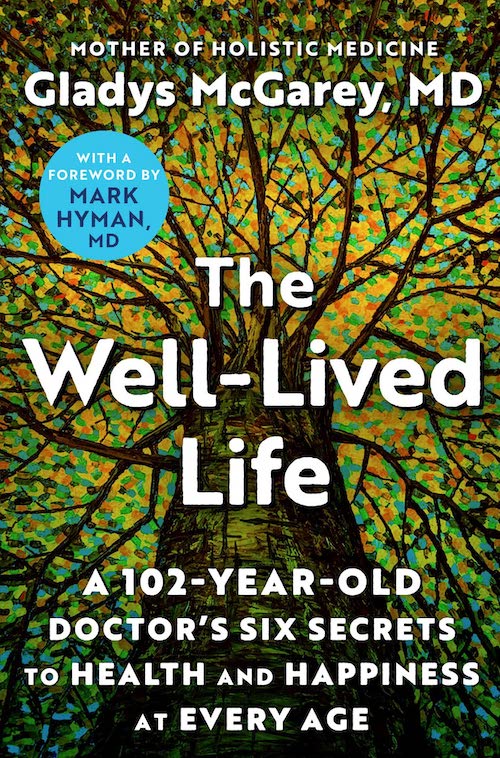 Explore the book, The Well-Lived Life here.
Petit Plaisir
—And Just Like That, season 2 Tune in to the end of today's episode to hear a detailed review of why I recommend the second season of And Just Like That on Max, addressing the critics of the show and sharing why this season dovetails wonderfully with the topic of today's episode.

~Explore all of the episodes of The Simple Sophisticate podcast here. |
Tue, 18 July 2023
The journey of customizing Le Papillon, my house and home in Bend, Oregon, since September 2019 has provided much opportunity for learning both about the actual and practical purpose of home remodeling and decorating but also for self-growth. Over the past nearly four years, an abundance of experiences, discoveries, lessons and ‘wow’ moments have been collected which is why I wanted to share today's detailed and lengthy (90 minutes) episode with listeners of The Simple Sophisticate podcast. As I share at the beginning of today's episode, while it has been a dream of mine to customize my own home, I never actually planned to spend the past four years doing so, but the timing and opportunity presented itself to continue moving forward once my first "must-do" project (the kitchen) was completed, and now with the installation of the front porch screen door you see a glimpse of above, the journey is complete, and I am eager to share with you 33 lessons I have learned throughout the experience, so that you can confidently and more enjoyably take part in your own customization of your sanctuary that will, when you dare to trust what you discover and learn how to do what is needed, provide priceless refuge, rejuvenation, inspiration and joy for the life that brings you deep contentment. No doubt, the journey had its headaches, stresses and questions along the way (for example, when will the bathroom ever get done!), but I share here and in the podcast episode, without any hesitation, it was worth it, to be able to call home and live my life now in a home that works with me, nourishes me and helps me feel secure but also confident enough to try to soar and explore when I step out the door into the world. So let's begin! In the Show Notes below I have only included the 33 bulleted points and left the detailed conversation, examples and ideas solely in the audio section as otherwise, this post would have been very loooooong. To thank you for your patience as there was no new episode on the 1st Wednesday of this month, I have two Petit Plaisirs to share with you today, and I look forward to sharing those with you at the end of this post and episode. Now to the episode!
~Explore more episodes of The Simple Sophisticate podcast here. |
Tue, 20 June 2023
"We think love has to be obtained, earned, achieved, and received. We look for it in the form of attention and compliments, and people acknowledging us. But actually the greatest way to experience love is to give it." —Jay Shetty, author of 8 Rules of Love: How to Find it, Keep it, and Let it Go A simple formula to love is to be it and it appears. However, this seems either too simple for some of us or to not produce the 'type of love' we had in mind. Such thinking, to have a narrow definition of what love has to be in our lives to be fulfilled, or to refuse to let go and just be instead of chasing, demanding, swiping or requiring, is to get in our own way when it comes to living a life, every single day, full of love. Because guess what? Such a life is possible, and it is part of what living simply luxuriously is all about. In fact, it is at the core, because as I will share today, it all comes down to finding peace with ourselves, embracing our true selves and engaging fully with the world without expectation. But again, we are being asked to do less, not more, to look inward so that we can engage lovingly outward as well as lovingly toward ourselves. We are being asked to be honest about what makes us feel loved and stop engaging in practices that result in anything but. Visit the Show Notes on the blog The Simply Luxurious Life - https://thesimplyluxuriouslife.com/podcast360 |
Tue, 6 June 2023
Author and philosopher of contemporary living, Alexandra Stoddard has published 28 books since she began in 1974. Continuing to be a source of wisdom, inspiration and sharing through how she lives that curiosity and forever being a student of life elevates our lives regardless of age, she joins me in a special episode to talk about her life's work. Our conversation of more than 75 minutes covers a wide breadth of content that she has written about over the years, and it's all grounded in how to live well, cultivating happiness and contentment, mindfully living in the present moment and how that daily practice changes for the better so much about all that we cannot control in daily life. From discussing the importance of rituals, to living a life grounded in paying attention to what our senses observe as well as how one can have a happy death as she speaks fondly of her late husband to whom they shared a loving marriage for over 40 years, we talk about many of the topics that are fundamental components to living a simply luxurious life, a life of true contentment. I do hope you tune in and hear the enthusiasm and genuine love of life Alexandra Stoddard embodies and no doubt will inspire in listeners to do the same in their own lives.
~Explore all episodes of The Simple Sophisticate podcast here.
|
Tue, 23 May 2023
 The book I wanted and needed to read. Repeatedly, indirectly and directly women and the entire society at large are told that aging is bad, and it is especially an unwelcoming reality for women, but is this true? Fashion Director for The Times London since 2015 Anna Murphy recently turned 50, and in her new book (being released on May 30th in the states; in the UK it was released in March) Destination Fabulous: Finding your way to the best you yet, disagrees wholeheartedly with this false truth that women have begrudgingly or willingly accepted and explains exactly how each year, each decade can usher in more fulfillment, more life satisfaction and thus more contentment. She joined me from London last week before heading down to Mexico to take in Dior's Cruise presentation, and we had a lovely conversation about everything from the benefits of doing the hard work of getting to know yourself, how your style can bust clichés, the benefits of being age agnostic, how living our best life does physically affect our skin and visage, as well as the false promises made my anti-aging procedures, plus so much more. We begin our conversation with why she is the happiest she has ever been, and with that, I will encourage you to tune in to our conversation. I do hope you enjoy. Links Mentioned in the episode
 Follow Anna Murphy's work on the following channels:
~Pick up Destination Fabulous: Finding your way to the best you yet by Anna Murphy (2023) 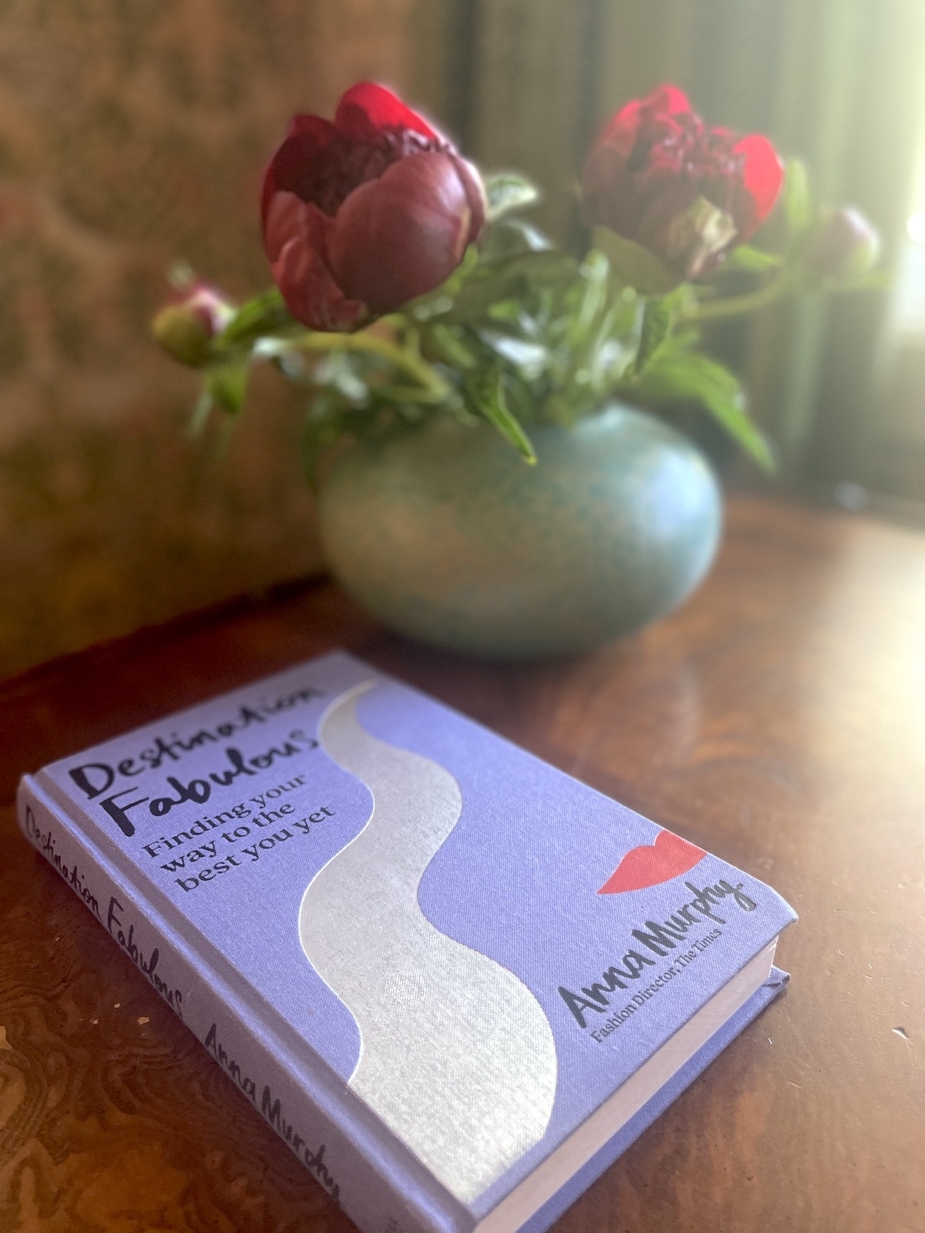 Anna Murphy's book was the inspiration for a Monday Motivational post shared earlier this month.
~Explore more episodes of The Simple Sophisticate here. ~Explore more British-inspired episodes here. ~Explore more Signature Style posts here
Explore all Previously posted content from TSLL's 5th Annual British Week
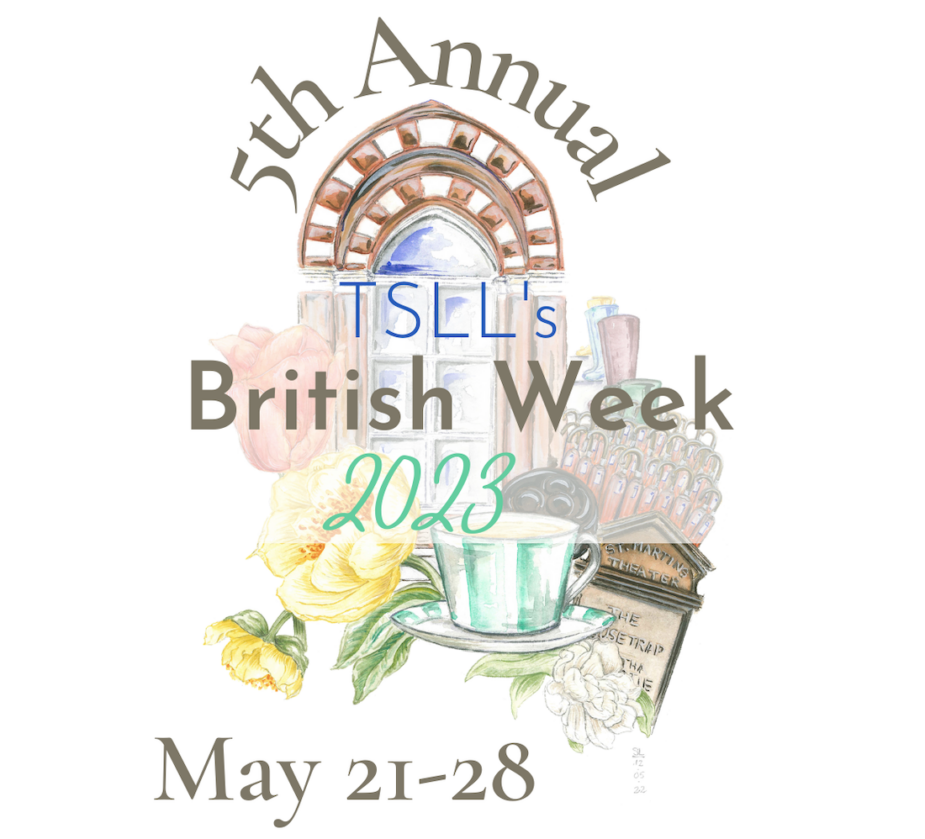 Images courtesy of the author and The Times, London |
Tue, 16 May 2023
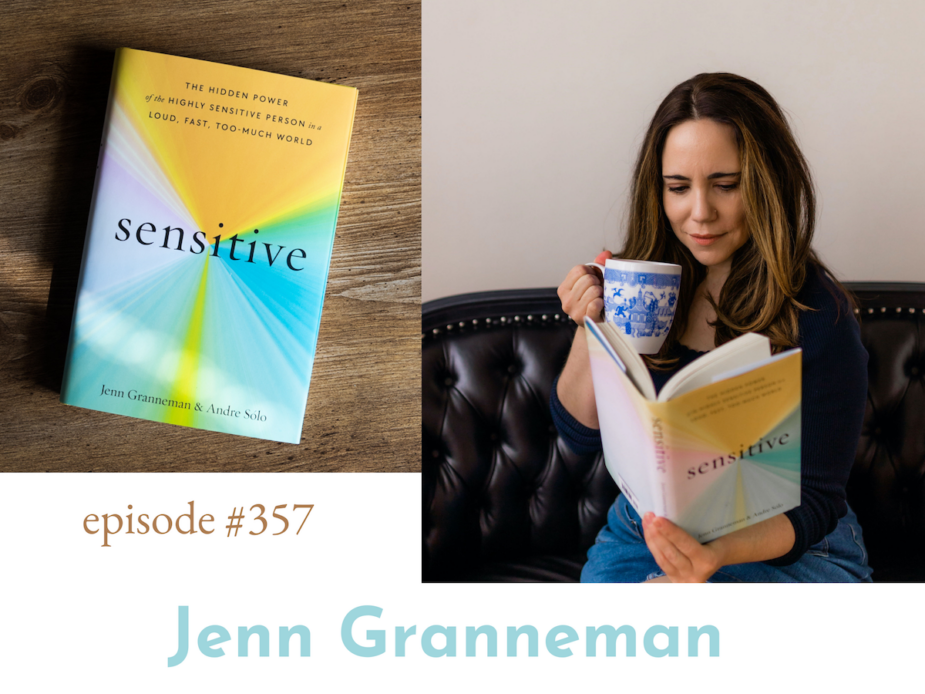 Being a Highly Sensitive Person (HSP) is a fairly new identifier to describe anyone who is highly responsive to their environment. This high responsiveness can appear in a variety of ways and different arenas of our lives - physically, emotionally, in relationships, simply going about our days and interacting with the world around us. In 1996, American clinical research psychologist Dr. Elaine Aron wrote her seminal book The Highly Sensitive Person: How to Thrive in a World That Overwhelms You, and it was in this book that term HSP was coined. Author Jenn Granneman joins me to talk about her new book on this topic of HSP, a book that includes new research that furthers supports Dr. Aron's findings, as well as exploring history revealing that this gift has always been with us, we just didn't identify it until recently, and welcoming in specific insights and tools to elevate this awesome gift that can indeed deep the quality of our entire life. Jenn Granneman's book, who she co-authored with Andre Sólo, Sensitive: The Hidden Power of the Highly Sensitive Person in a Loud, Fast, Too-Much World was released on February 28, 2023, and quickly became a bestseller in the category of Popular Psychology Studies and was recently chosen by Amazon's editor's as the Editor's Pick for Non-Fiction. Today she joins me to talk about what HSP is, the misconceptions, how being HSP is actually a source of strength, how to approach relationships and the work place as well as talking about why she hopes this book starts a Sensitive Revolution.
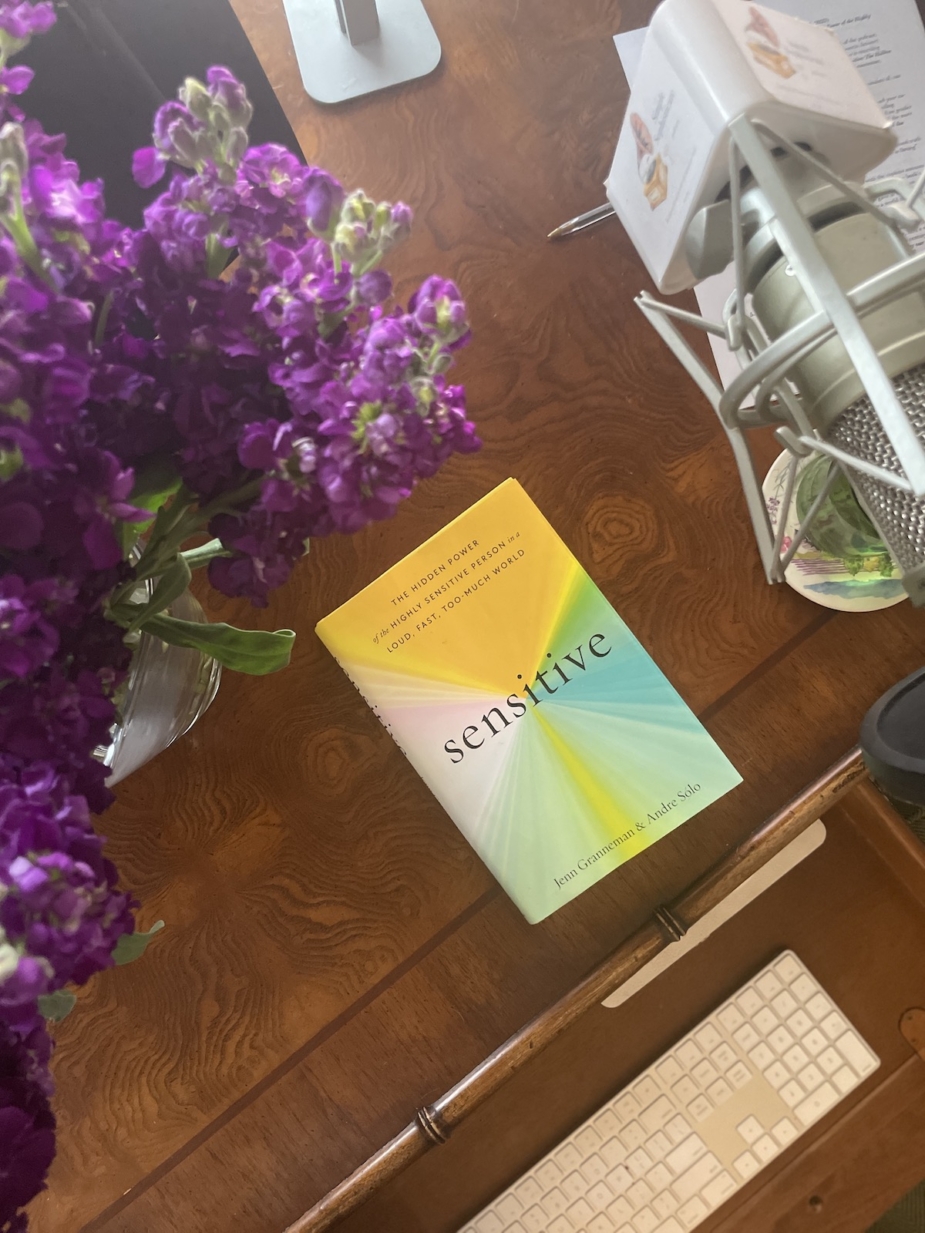 ~Explore the book: Sensitive: The Hidden Power of the Highly Sensitive Person in a Loud, Fast, Too-Much World by Jenn Granneman and Andre Sólo~ Explore Jenn Granneman's websites on HSP and Introversion below, as well as other links you might be interested in:
~Explore more episodes of The Simple Sophisticate podcast |
Tue, 2 May 2023
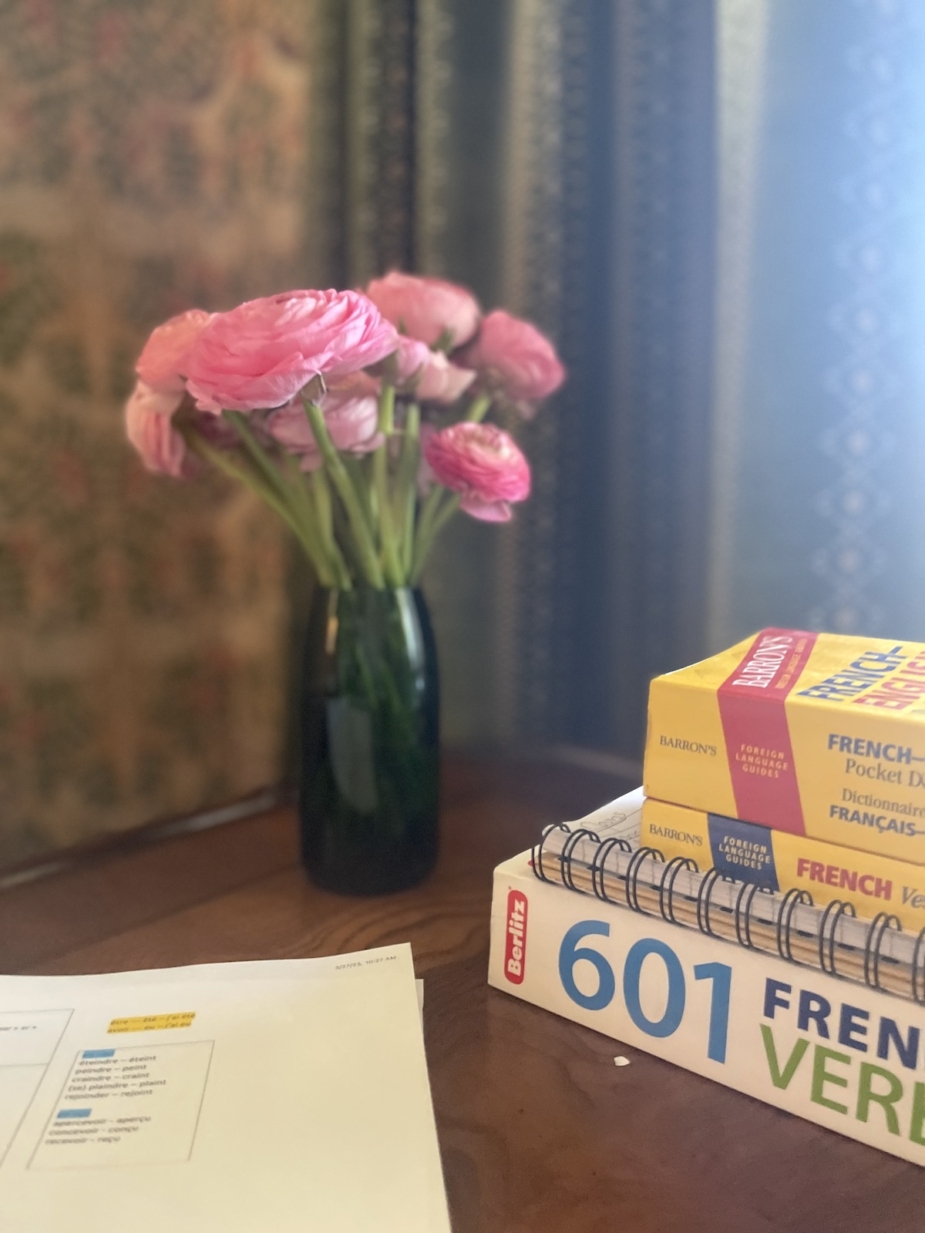
"N'ayez pas peur." And the formal lessons continue into the wilderness and beauty of the French language. Or should I say langue française. And yep, we have just dove into to learning the imperatif form, and as the command directs above in French - Have no fear! Which is a great place to start because when we choose to learn a new language, especially as an adult, and anyone proficient in any field other than the French language, humility must be brought with us on the journey. To trip over any new language we wish to learn, or any new skill for that matter, is a practice in being vulnerable, and being vulnerable is scary. It's scary to try to form the words and say them outloud, even if we have practiced and know the alphabet of our new language. It is scary to bravely raise our hand and attempt to answer a question when we know the answer may be a direct and frank 'no' from the professor. And it is scary to keep raising our hand, to keep speaking the new language, after we have mispronounced and incorrectly answered in the past which is why, it is imperative to hold this directive with us as we choose to learn - Have no fear. After all, what is there to be afraid of really? This is when we need to set our ego aside, take the many (many!) corrections from the professor and just keep trying, just keep speaking and gradually, ever so very gradually, improvements and a depth of understanding as our long-term memory begins to hold this new language in its arsenal of knowledge it draws upon when we least expect it to be easy to grasp, the new language becomes easier. I write the words of encouragement for you, readers and listeners of the blog and podcast as much as I write them for myself because it is a slow journey, but all of a sudden, I will find myself in moments grasping and understanding what to say and how to say it when in the past such an occurrence would never happen. And it is in these moments, I know that the regular effort, vulnerability and bravery (and mental exhaustion) are worth it and are paying off. Today, we return to the series of what I have learned so far in French class. A journey that began in 2016 as I shared in Part Quatre just a couple of months ago (visit that post/episode #349 here) and is continuing as I begin FR 104 (A2.2) with Washington D.C. Alliance de Française having begun with them FR 101 in September 2022. Part Quatre brought us to the mid-way point of FR 102, so today's episode will focus on what I have learned as FR 102 concluded and all of FR 103 which wrapped up in mid-April. Admittedly, FR 103 is when I felt I was in brand new territory as up to 102 I had a clear awareness of present tense, the numbers, basic 'get to know you' phrases, and had been exposed to the components taught, but needed to polish them as well as fill in a few of the fundament gaps (proper pronunciation of the alphabet for example!). So now I am in the thick of new knowledge, and my head is exhausted each week, following each day of classes (two, two hour classes each week). However, well, I am getting ahead of myself. Let's take a look at the list of what I have learned so far in French class . . . 1.The mental exhaustion improves with time As I shared above, when FR 103 began, with a new professor who has high expectations and uses every minute of class, after each week and each class, my mind was exhausted; however, that was the worst of it. In other words, my mind was working in a way it had not, and therefore, had to 'get into shape' by being stretched. Now, yes, I still have mental fatigue, but part of me is used it, but the other part of me knows, my mind as it pertains to learning the French language, is getting better toned and used to searching, remembering and applying the new knowledge. All the more reason to hang in there and keep attending class, keeping signing up for the next class.
2. Être, Avoir, Savoir, & Vouloir are the only verbs that are irregular in the imperatif As hinted at above in the opening quote, we've begun learning the form and function of the imperatif! And it is really quite simple, especially when I discovered (and it makes sense logically) that there are only ever three forms of the imperatif for conjugation (tu, nous, and vous), and so long as you know your Present tense forms, and memorize the four new irregular forms of être (to be), avoir (to have), savoir (to know) and vouloir (to want), you know how to properly use/write/speak the imperatif! What is the imperatif? The exact same thing imperative is in the English language, a command or direction given with an understood subject (so the sentence begins with the verb).
3. How to communicate time properly (formally and informally) A simple concept, but knowing how to form a sentence when asked the time is slightly different compared to English, but it is quite simple. The key is to remember to once you begin speaking the time formally (military time) to continue to do so - only numbers, no phrases; and when you speak heure informelle, then you can use the common phrases - midi (noon), minuit (midnight), moins le quart (less than a quarter - 15 minutes), et demi (half past), etc.
4. What "liaision" and "enchaînement" are as they pertain pronunciation in the French language Large, odd words, but all they are, and they are very important if we want to pronounce the language correctly, is how the sound of the word changes due to the words around it.
5. How to construct passé composé Finally learning the past tense (aka the passé composé) was a big step in my learning journey of the French language. And it is soooooo much simpler than I had anticipated. While I won't teach the entire lesson to you, the key is knowing that every single conjugated verb will be preceded by either être (conjugated to fit the form) or avoir (conjugated to fit the form), and there are only approximately 15 verbs that use être (simply memorize them), and the reset all use avoir. Below are the fifteen verbs that use être, and how I remember them is they are all verbs in which they describe a change of state or motion. Now do note, not EVERY verb that involves motion or a change of state uses être, but all of these in this list fit that definition.
And then, the verb that follows has a fixed ending for all forms (je, tu, il, elle, on, vous, nous, ils/elles, which comes down to memorizing, but most, if they have a certain ending in the infinitive form (i.e. -er, -ir, etc.) end in the same ending for that form. For example, my list captured in the image below:
6. Passé composé is easier than I thought and gives me so much flexibility in constructing phrases It is worth reiterating that again, what I thought prior to learning was incorrect. I just needed to be taught by someone who knew the language. Once I had the knowledge, great progress in communicating was made and ease experienced knowing I could share what I had done in conversation, whatever that may be!
7. Positive encouragement and praise are wonderfully powerful no matter what the student's age
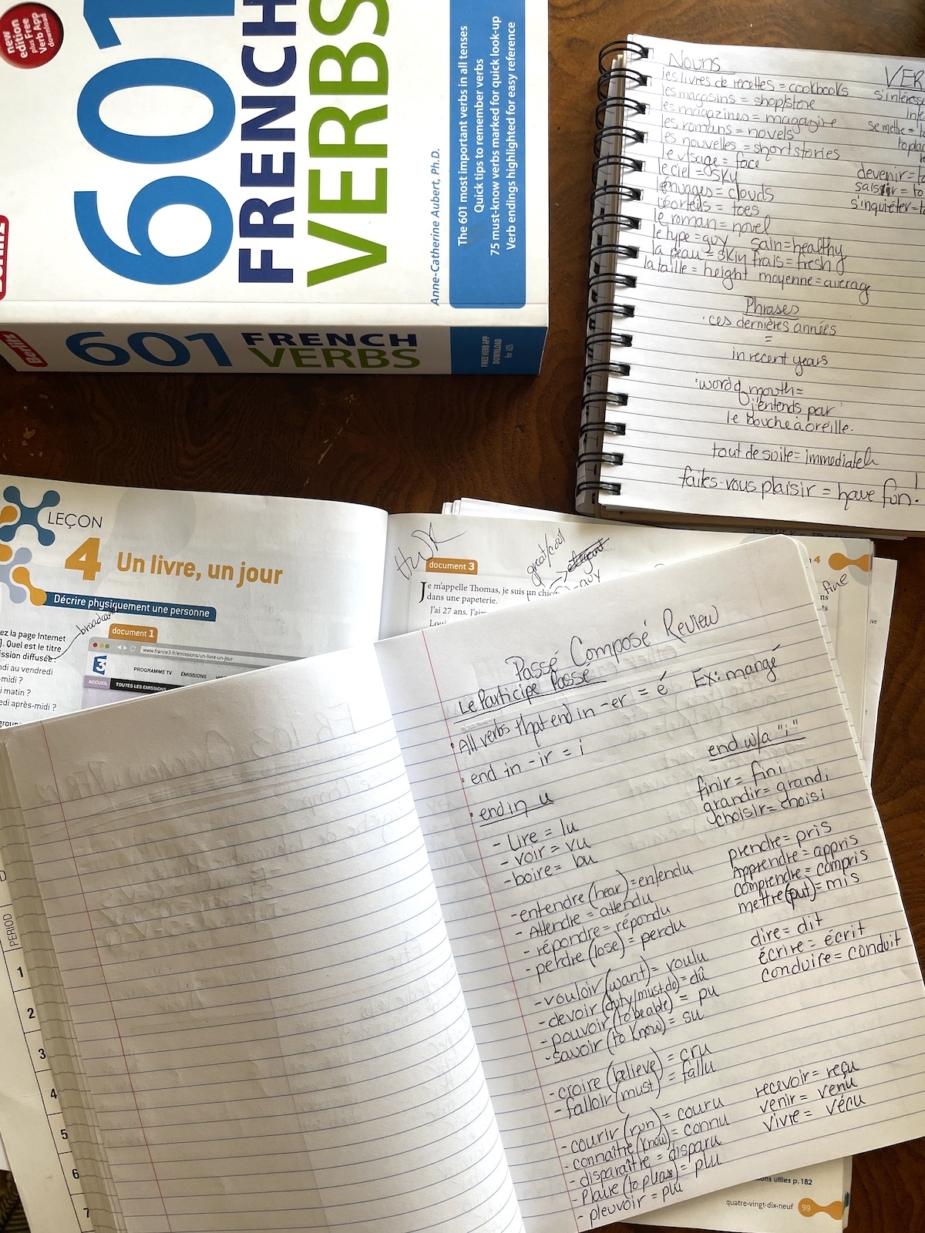 It has been a fascinating experience being a teacher who taught for 20 years and stepping into someone else's classroom who is the expert on a basic subject - the fundamentals of a language. Apart of the skills they are teaching and I am trying to learn, the energy and connection a teacher brings to the space determines the probability of their students remaining in the class, believing they can do it and the confidence to try. As well, a teacher is a human being, and it is easier to notice when my professor is exhibiting an immense amount of patience, restraint and strength to keep us accountable, so I empathize and try to be aware that she will have good days and not so good days, but what I appreciate about my current professor is that she wastes not one minute of our class time, and is determined to teach us the language. There are moments when it is clear that teaching a lower-skilled class to students such as myself and being someone who knows the French language superbly as my professor does, gets to be a bit 'why don't you know this?!' at times, and whether through their repetition of the skills we are just being introduced to, her patience is a bit lacking and I know that for my confidence in learning the language, I could use a bit more acknowledgement of my effort and willingness to try to speak out or try to speak. However, in those moments, it is also a very helpful exercise for myself to set my ego aside and dig down and choose to learn than to take it personal. After all, I can honestly say, she is the best and most knowledgeable and capable of explaining the language clearly professor that I have had in my 20+ years of trying to finally learn this beloved language, and I am grateful these classes and the quality of classes are available.
8. Le Passé Recent While we just received a taste of how to construct the recent past (le passé recent), so anything that has just happened, seeing the formula for how to construct the phrases, knowing that all it is is the simple formula: use the verb Venir (to come) in the present tense + de + le verb de l'action a1 l'infinitif form, reminds me that I simply need to bulk up my knowledge of vocabulary with a variety of verbs I might need or use.
9. Hearing the language spoken first without the transcript is key to eventually (and more quickly) comprehending what you are hearing, even if it is more uncomfortable initially When FR 103 began with my new professor, she quickly told us (gently scolding us) to not look at the transcript when we were listening to passages that we were trying to decipher what was being said. I can remember in FR 101 being so perplexed that other students were able to easily understand what was being said on the first go-round and even stating my confusion in class, but what I didn't realize was that they were reading the transcript as they listened and the professor had not told them not to, so why not? Not the case in FR 103. Our professor - Olga, pointed out emphatically that if we are going to understand what we are hearing more quickly, we need to first hear it (without peeking at the transcript), struggle with what we hear, and similarly to the mental fatigue that is intense initially, it become easier more quickly than we might realize. Needless to say, lesson learned. Nobody is looking at the transcripts anymore and struggle with audio comprehension is expected, so long as we try.
10. Just 10 minutes a day of studying, everyday, is better than hours sporadically Another quick tip Olga shared with us was to make sure we practice or study at least 10 minutes each day on the days we don't need to complete any homework or in between class sessions - our two week breaks, for example. As opposed to studying intensively for a couple of hours, but not doing so regularly, we will actually acquire the language more quickly through consistent, short efforts.
11. Phrases for moving a story along chronologically
12. Vocabulary for frequencies of occurrence (la fréquence) et l'habitude
13. Reflexive verbs aren't as scary as they seem FR 103 began with reflexive verbs. A verb whose direct object is the same as its subject. For example, se lèver (to wake up); se doucher (to take a shower/wash oneself); se brosse les dents (to brush one's teeth); se coucher (to go to bed); se preparer (to prepare oneself). Once I learned where the reflexive pronoun (me, te, se, etc.) needed to go in the formation of the sentence, and in negated sentences, it was just a matter of remembering the reflexive verbs.
Simply by writing out these lessons has been helpful to remember all that was covered over the past two+ months, and now the journey continues forward. And while of course, there is guaranteed to be times in which I scrunch my forehead up and scream inside because it isn't coming quickly or at all, I also know that at the end of each class, I am grateful I am there. I am proud of myself for trying, and over-archingly I am following the directive seen below in the imperatif form, to have fun. Because if there is any class I would want to be enrolled in right now to learn something new, it is the French language, so I know I am exactly where I want (and need) to be. "Faites-vous plaisir." Look for Part Six late this summer. Merci pour la visite! À la prochaine, bonne journée!
SIMILAR EPISODES YOU MIGHT ENJOY
episode #276, The Art of Mise en Place 
episode #248, 12 French (or Set in France) Feel-Good Films I Love (having premiered in the past 10 years)  ~Explore all of TSLL's French-inspired posts and episodes.
Petit Plaisir —Chevalier, film
 ~Explore all of the episodes of The Simple Sophisticate podcast here. |
Wed, 19 April 2023
It all began with 18 months in Paris as a young woman more than 30 years ago. Inspired by her time volunteering during the day at a Parisian floral boutique while she figure skated in the evenings, Sandra Sigman's life journey and approach to floral arrangements was forever changed, and thus began the unfolding of a dream. In today's episode, author of the best-selling book in Floral Arrangements, Sandra Sigman joins me to talk about French Blooms: Floral arrangements inspired by Paris and beyond and goes behind the scenes telling more of the life journey, the highs and the lows that have left her grateful and celebratory for where she is today.
Sigman's floral boutique Les Fleurs in Andover, Massachusetts, continues to offer seasonal floral arrangements that draw direct inspiration from what she learned in Paris so many years ago. Whilst continuing to take regular trips to France to visit brocantes and antique fairs, Sigman's love for the country is abundant. In our conversation Sandra will also talk about the French's sacred ritual of welcoming flowers into the home on an regular basis, just because, as well as go behind the scenes to the genesis of the book and how her friendship with Sharon Santoni, the founder of My French Country Home who makes her home in Normandy, France, played a role in many of the images found in the book (the image just below was captured on Sharon's property with her guest cottage setting the scene in the background; and her pup Ghetto is also captured in a few photographs as well). Also, the cover! Discover the cover story that took her to Paris to capture and why she felt it was important for this particular image to be the one we now see today. And Sandra also shares how her mother holds a powerful role in the business venture both daughter and mother began together to open Les Fleurs so many years ago and how her spirit continues on in the work Sandra does. I do hope you will tune in to listen to our conversation, and rest assured, a Petit Plaisir will be shared as Sandra extends ideas for setting herself up for a beautiful day.
Links from the conversation:
~Listen to more French-inspired episodes of The Simple Sophisticate podcast here. ~Learn more about the show, The Simple Sophisticate podcast and download all of the episodes here. |
Tue, 4 April 2023
"To have a good relationship with money, you must know who you are and what your purpose is in this world." —Kate Northrup, Money: A Love Story Find your purpose, exercise your courage and you are on your way to financial freedom. Simple AND true. Not easy, but definitely doable. For many of us, we were taught (or it was modeled) that money and how to approach money successfully is to solely look at it logically, requiring tangible proofs in order to know we are successful - the amount of money in our checking account, a lack of debt, the amount we have saved in our chosen mode of savings, the value of our quantifiable assets - our home, our business, etc., etc.. Don't worry, I am not going to say, being without any money in the bank is okay as long as you have [insert whatever non-monetary example you have heard], because it's not true. We do need money to live and live well; however, to only look at the numbers is to dismiss the powerful engine of creating the financial freedom you seek. Our lives are not Money Ball. While a wonderful film and a very successful approach to winning in the game of baseball, when we only look at the numbers, we lose the core of what living well, a life of true wealth, is all about, to lose ourselves in the sole pursuit for more money or having a certain amount of money in the bank before we [insert your big dream here] is to live without trust in the universe, to live without trust in ourselves. Again, do not worry, I am not going to say, ignore money and pursue whatever fleeting fancy your heart desires and the money will follow, but sort of, I am, it just doesn't happen overnight, or within the window you would like it to. When I picked up Kate Northrup's first book Money: A Love Story, Untangle your financial woes and create the life you really want, it was the book I was looking for for some time but I wasn't able to find it because likely, the most important lessons wouldn't have landed with such great effect. The truth about what financial freedom is while yes, having to do with the monetary concept of literally earning more than you spend, it also involves the fuel for making money and that is not logical or literal monetarily, it comes from finding and living a life of true contentment. And as we have talked about for years here on TSLL blog and podcast, stepping onto the path toward cultivating contentment begins with being courageous enough to get to know yourself, to dig in and learn the helpful skills that all of us can learn if we choose, and then with what we discover, being brave about the next step that may be entirely different, or even slightly different than the path we were originally on.
"As with any relationship, the key to dealing with your financial woes lies within." —Kate Northrup, Money: A Love Story The path to financial freedom, something that upon reading Kate Northrup's book Money: A Love Story, I discovered that what she shares overlaps in multiple ways with how to live simply luxuriously. First, what is financial freedom? As Kate Northrup defines it, "To wake up every morning and do whatever calls to you, whatever the heck you feel like doing, is connected to your ability to feel free from financial strain and to be open to what your heart is telling you." The moment I read this definition, I had specifics in my mind of what this looks like for me, so what I am going to ask you to do right now is to write in your journal, on your phone in the Notes section or anywhere where you will be able to check in and remind yourself when doubt seeking financial freedom is possible for you, what it is you want to be able to do without financial restrains holding you back? What do you want to be able to do that your heart is aching to do, but you aren't able to financial make it so? What would your daily life look like, what would a typical calendar year look like, so vacations, work projects, home life, etc.? PAUSE - seriously, write this out somewhere. See your future life on paper. It can happen. It CAN be your life. It all begins with the story we accept as possible. And I want you to know, and tell yourself that it is so, that you can live the life that continues to speak to you. Let's dive in to writing a Love Story with Money that brings you to a life of Financial Freedom.
|
Tue, 14 March 2023
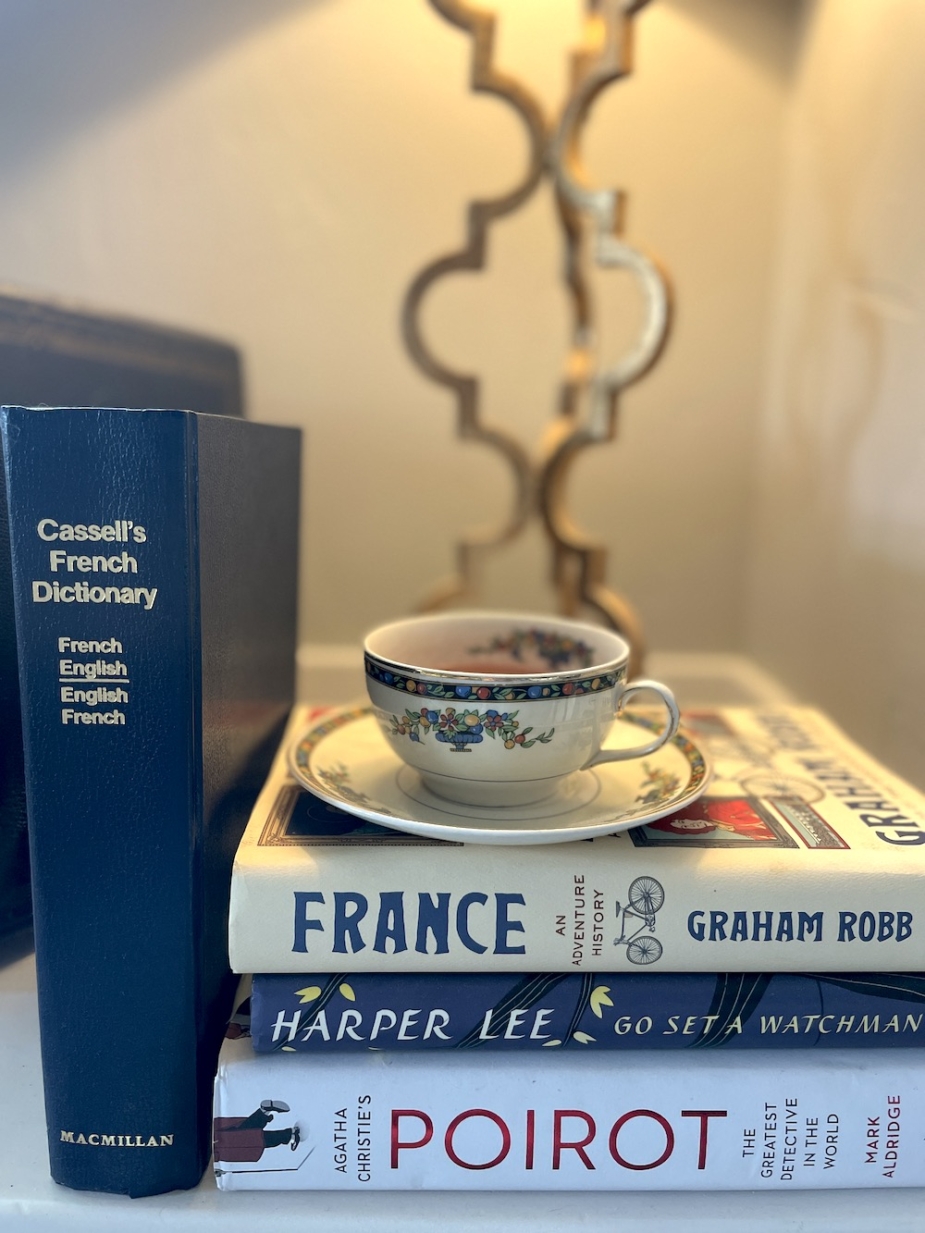 A tidy sanctuary creates mental space to find calm more readily. Upon walking into my home, Le Papillon, knowing and then witnessing that it has been cleaned, tidied and unnecessary items have been removed, whether that be emptying the recycling basket in the boot & basket room (aka mudroom), countertops are cleared of extraneous items, and the flowers are fresh, I breathe some of the deepest breaths I ever take during my days. Distractions to the mind come into our lives in a variety of ways (I share and discuss 11 forms of distraction here), and one such way is clutter of items in our homes, items without a home, too many items, dusty, dirty, disorganized spaces, counters, windows, fabrics, floors, etc. No doubt, I am not sharing anything you don't already know. But how do we tend to our homes and still have time and energy to live the lives we want to live? I will admit to being nearly totally in alignment with Simone Beauvoir's train of thinking shared in her book The Second Sex when it comes to house cleaning, “Few tasks are more like the torture of Sisyphus than housework, with its endless repetition: the clean becomes soiled, the soiled is made clean, over and over, day after day.” And if there was a magic wand to wave whenever the house needed its regular clean and tidy, I would wave it without hesitation regularly and often. I recognize that some may find calm in the practice of cleaning, and that is fine; however, what would you do if your house was perpetually clean? Think of all the time and energy you would have remaining to do something constructive, explore a curiosity, read a book, rest your eyes after a long, grueling, yet productive week, spend more time with those you love, spend more time in your own company getting to know yourself better, take a longer walk with the pups, snuggle with your cat who is seeking your company after having been at the office all day. I share the possibilities of what we might choose to do with more time, regular time consistently available, to point out that while cleaning and caring for our homes is a necessity, there are many different approaches to doing so well to gain the benefits of such a space that is our sanctuary. Apart from hiring a regular cleaning service which I have done in the past and may do again in the future, even if they come every other week, or weekly, we still can care for our homes thoughtfully as well as simply in order to enjoy all of the time we find ourselves in our abode. And regarding the choice to focus on a small household, this can be viewed in two ways: whether small in square footage or living with only a couple of inhabitants (our furry companions count as family here on TSLL). So whether you live on your own as I do, with dogs or cats or entirely in your own company, with your partner, or are an empty-nester, living in a small household liberates us in multiple ways, and thankfully, requires less to clean and care for, giving us more time and energy to do so well. One of the chapters in my second book, Living The Simply Luxurious Life: Making Your Everydays Extraordinary and Discovering Your Best Self, goes in to great detail about “Living Small”, chapter 13, and one such reason is the reality that the smaller the space we call home, the less we have to clean. However, just because we may live, choosing to or not, in a small home doesn't mean the home can't be luxurious. In decoration, in organization, in consideration for everything, we can live luxuriously in a small home, and the beauty is, we have an advantage, we have less to clean, less to furnish, less to organize, now we just have to figure out how to do so wisely and with great savvy. Back in 2011 I shared a brief post detailing what to clean and how often throughout the year in our homes, pairing with the post a free printable PDF of this cleaning schedule, but it was brief and that was more than 10 years ago, so with the prompting from a TSLL reader recently who shares her home with her husband and pets, sans children (similar to myself, sans the husband), I wanted to update and share with you how to clean and maintain your home throughout the year so that when Spring does roll around you don't feel overwhelmed by the 'spring cleaning' fever that often arises. And I completely get it. It feels good to freshen up the entire house, but I don't have the time and energy to do so all in one swoop once a year. Rather, what makes sense to me is a steady, smart approach both in how and what I clean and maintain to avoid large repair bills due to lack of attention. Let's take a look at the list, and I will provide again, but this time the updated version, the free printable PDF schedule at the end of today's post/episode.
1.Begin with a home and its contents that you actually use and need In other words, this is a one off, not a regular practice, but something to keep in the back of your mind after you tend to it when considering bringing in new items to the home. Ask yourself the following question: “The stuff you own has to help you create the life you want. And if it doesn’t, why is it in your home?” –Peter Walsh As I look around my own home, small in square footage but large to the eye with its high ceilings and multiple south-facing windows letting in oodles of light, I will tend to this question room by room throughout the year. Honestly, nothing is on a schedule now when it comes to this permanent editing as I have edited quite a bit over the past four years with my move to my home and with the construction over the past three years. For example, my kitchen cupboards and drawers received a thorough edit during the kitchen remodel when everything was removed and stored in my guest bedroom. Nothing says, reduce and eliminate the unnecessary when you have no more floor space in your guest bedroom to put anything. Do I really need that [insert item that I have never used, not once, ever]? Below is a list of space, collections and items to seriously look at and judiciously edit:
Now that you have clarity that you either have what you need, or know what you need and have let go of the rest, you have let go of some stress, alleviated some unwanted burdens on your ability to relax when you arrive home and are ready to more swiftly and intentionally clean your home regularly without it becoming overwhelming, and maybe even a bit enjoyable. ☺️
2. Daily simple habits that reduce the amount of weekly and monthly cleaning When we are at the point of burn-out even the simplest task of picking up after ourselves can be taxing. I can remember more nights than I want to admit while I was both teaching and blogging that I was too tired to entirely pick up the kitchen after cooking dinner before I went to bed. I literally needed more energy and going to bed was a necessity over cleaning the kitchen. Don't worry, I would without fail, clean the kitchen in the morning, but that was a task that didn't help to begin the day well. Stepping into a clean kitchen, a clean home each morning is a wonderful way to start the day and I knew that, but I did not have the energy to make it my regular practice on certain days of the work week. All of this built up to show me that I needed to make a change, so I share all of that with you to acknowledge, you may have an extremely busy schedule, so much so you cannot tend to these tasks listed below each day, but when you do make the necessary breathing room in your life to tend to these habits daily, it has a beautiful ripple effect of reducing stress, increasing clarity and giving you the ability to make better, more constructive decisions so that you never find yourself in such a schedule again.
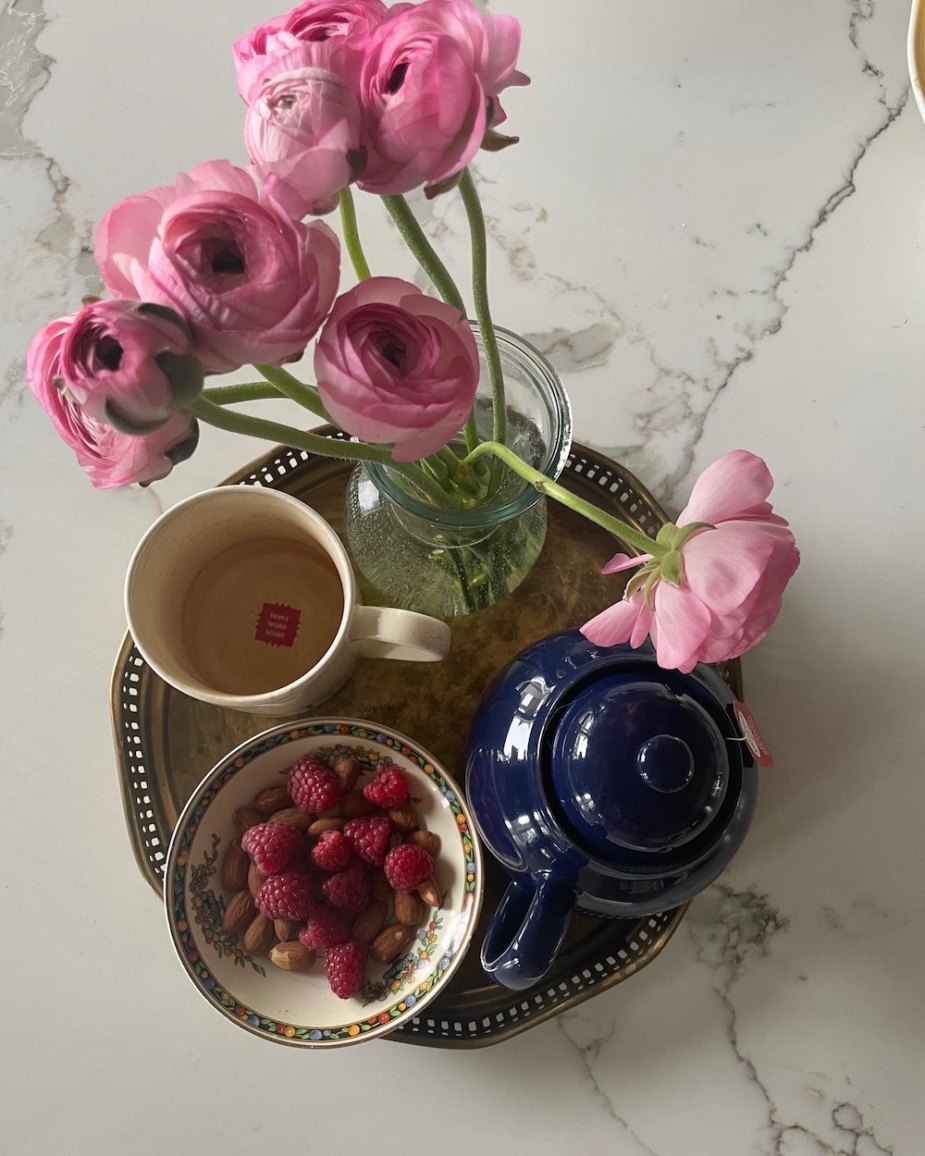 Okay, so what are the daily habits? In order of the day's events:
3. Choose one day during the week, an afternoon or morning (early or late), that you can designate 1-2 hours to clean Now, again, I am not someone who enjoys cleaning, and when I used to write this task in my planner, I sighed a bit because I would have rather been doing something else, prior to retiring from teaching, it would have been just having more time to relax at my home, now it is time to create, to explore, to be with my pups without a vacuum or a cleaning rag/mop in my hand. However, #3 on this list is a be a misnomer because you don't have to do all of the same cleaning tasks each day of the week, rather you are going to alternate a few. Let me explain. It was an aha moment for me the first time I hired a cleaning service to regularly clean my house: they came every other week. And I thought to myself, how can I possibly wait two weeks to have my house cleaned? After all, for years I had attentively cleaned my house each Friday after work, no matter what I was up to later the evening or how long my week had been. Well, what I discovered was that if you clean it well every other week AND tend to the daily habits shared above, your house will be just fine, and you will be less stressed and have more free time. What to do each week (every other week tasks designated as such):
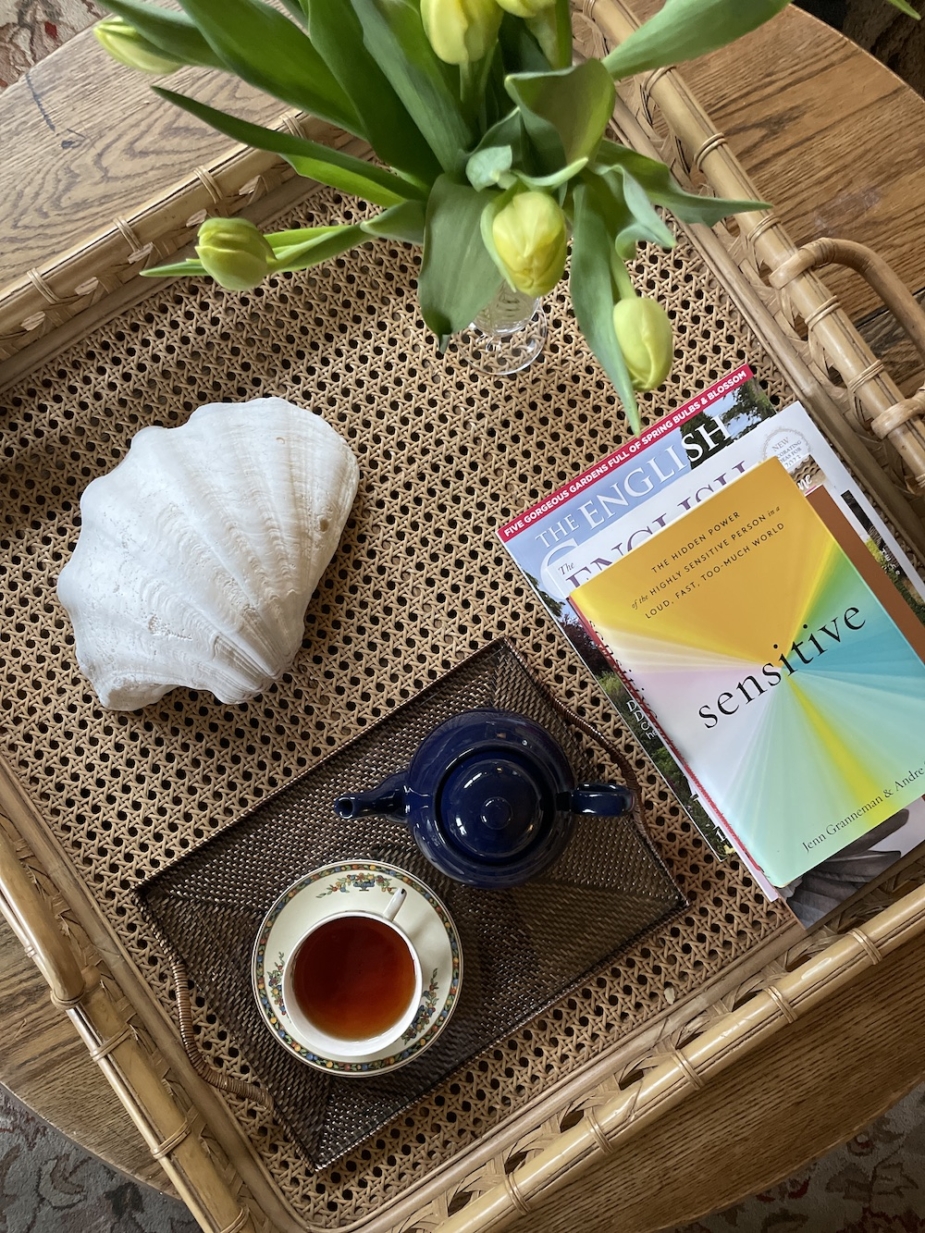
4. Quarterly/every 3 months/Seasonally Many of the items on this list will come from tasks shared in #3 that don't need to be done as often depending upon how you live, or need to be done more frequently that are listed below in #5.
5. Twice a Year, during a day or couple of days that you have energy, so ideally after a day you have been able to rest One time of year I tend to many annual or semi-annual tasks is during the week between the years, that final week of the year when I am able to have time to myself and just rest, then be energized to tidy up which always feels good upon going into a new year. Here's the list:
 ~Nelle was my helper cleaning the interior of my stove recently. Learn more about why I chose Le Cornue for my stove here.~ ~Nelle was my helper cleaning the interior of my stove recently. Learn more about why I chose Le Cornue for my stove here.~
6. Yearly as the time is right on the calendar/season for each task and your schedule The yearly tasks will be dependent upon your home, climate, and other variables, but whenever you tend to what you need to, choose a time that works with your schedule, budget and the best time of year to tend to this task, if it requires, for example, you to be outside.
Phew! Okay, just looking back at this list may seem like a tremendous amount; however, when what you are taking care of are items and spaces in your home that bring you comfort, calm and repose, it becomes motivating to keep them at their best which is why I began with #1. When we remove what feels like a burden because we never use it, it simply takes up space or holds memories we don't want to revisit, then tidying up does become more of a chore. Once #1 has been taken care of, and you spread out all of these tasks over a year, it actually isn't that bad at all. In fact, while compared to the list I wrote in 2011, this list is quite extensive, due to the fact that I have a far smaller house (nearly half the size) than I did when I wrote the previously list, all that I do is far less and done far better which ensures that I can space out the time between tasks or when I do them more frequently, not have that much work to do. Compiling this list occurred on a wonderfully rainy day here in Bend which gave me much time to reflect on a year's worth of responsibilities, but also, as I wrote each one, I was also expressing gratitude, thankful to have a home to care for well. Which leads me to my final idea for creating more enjoyment of the task of caring for our homes, why not name your home? I know it may sound silly at first, but when we humanize the space that gives us life, safety, security, comfort, nurtures love and care, it reminds us that is more than four walls and in a way, a part of our 'family' so to speak, and that too helps in providing an internal motivation to care for it well. And with that to ponder, wishing you a wonderful start to a brand new season with Spring’s arrival next Monday, the 20th. 😌 ~Click here for the free PDF TSLL Cleaning & Home Maintenance Schedule~ ~Learn more about the benefits of becoming a TOP Tier Member.
SIMILAR POSTS/EPISODES YOU MIGHT ENJOY
10 Ideas for Reveling in the Spring Season, episode #325 
Petit Plaisir —Palais des Thé's Herboriste (herbal/tisane) Thés

|
Tue, 28 February 2023

"It's not a matter of luck or magic. This is simply how your brain works. So take a break every now and then, and let your brain do what it does best."—Michael Hyatt & Megan Hyatt Miller, authors of Mind Your Mindset: The science that shows success starts with your thinking One of the Beatles most (of many) famous songs came to Paul McCartney simply upon waking up in the morning. As he did, at the age of 21, he was humming a tune that initially he titled "Scrambled Eggs", is better known as "Yesterday" (source). The founder of Ikea, Ingvar Kampard, came up with the concept that lays at the foundation of the now internationally recognized company - "modular furniture makes home decor more accessible", when while working at a furniture store, a customer who had purchased items for their home could not fit it into their car and had to disassemble the legs from the table in order to drive it home (source). And if you ever wanted to thank the person who made it easy and fuss-free to have your caffeine boost in the morning, thank German Melitta Bentz who, tired of "percolators prone to over-brewing coffee, espresso-type machines leaving grounds in the drink, and linen bag filters being tiresome to clean" came up with the drip coffee machine using "blotting paper from her son’s school notebook". Patented in 1908, her grandchildren continue to head the "Melitta Group KG with some 3,300 employees in 50 companies" all for a simple idea that no one had thought so simple before: patented under the title “Filter Top Device Lined with Filter Paper”(source). Aha Moments can pertain to any number of areas of our world and lives. Yes, they may prompt us to come up with a promising business idea, much like Sara Blakely and Spanx, but more often, aha moments are seemingly out-of-nowhere discoveries that pop up in our minds that give us clarity, insight and/or direction about something that speaks to our true self. Webster's dictionary underscores and elongates the enumeration of what we are gifted with in such moments: a moment of sudden realization, inspiration, insight, recognition, or comprehension. And I don't know about you, but these moments, these Aha Moments with a capital "A" and "M", are a thrill to experience. The dopamine no doubt floods our minds and the joy and lightness in our step feels spontaneous. We figured it out! What ever the "It" might be. Who wouldn't want more of these moments? And the exciting news I want to share with you today is that you can cultivate an environment - i.e. your daily life - to do just that. In a new book Mind Your Mindset, authors and husband and wife Michael Hyatt and Megan Hyatt Miller share neuro-science and psychology research that demonstrates the power of the stories we tell ourselves and accept. Mind you, not all the stories we tell ourselves are constructive, least of all always accurate, and so for a portion of the book, they examine and reveal how to change the stories in our mind to live a more fulfilling journey of discovery and success. Which brings us to Aha Moments.
In order to change the stories that are limiting us from realizing our full potential and experiencing all that life can be when we gather up our courage to engage fully and with our true selves, we have to rewire our neurons, and without getting too complicated, we have to start thinking new thoughts. The authors go on to explain that while oversimplified, the brain does have a division of left and right (even though, not physically divided as each communicates with the other, which is how Aha Moments can occur). Explained as the left side being the executive network side which guides our conscious self, "it thinks about what you tell it to"; the right side is the default network side which "loves novelty and creativity and operates largely in your subconscious". Understanding this construction and function of the brain is crucial to enabling more Aha Moments to be a part of our daily life. Why? "To find creative solutions to your problems you need to get this second part of your brain [the default network] into action. This vast network of slower-firing neurons is highly adaptable. It can be endlessly reconfigured to provide new thought and connections. Sure, this takes longer than using conscious thought [executive network], but it's highly effective." —Mind Your Mindset Which leads us to revealing the answer to the question: How to experience more Aha Moments in your life. Let's take a look at the list below. 1.Consciously choose to not be physically 'working' all the time. Often work is only deemed as work if we can see something changing physically - so physical labor, cooking, cleaning, drawing, writing, correcting papers, etc. However, even Leonardo da Vinci took regular moments, even days to not be physically working on The Last Supper, but that didn't mean he wasn't working. His mind was busily meandering, not necessarily being directed by his left brain, but giving space and time to just meander about all that he held in his subconscious, letting his right side of the brain gradually discover connections that on the surface might seem completely disparate.
2. Make time for tasks unrelated to the 'problem' and somewhat quotidian, give you full attention to what you are doing - in other words, mono-task From walking, to cooking, to eating a meal to savor, gardening, any task that requires your full attention that you can let yourself get lost in and thoroughly enjoy, but is unrelated to the dilemma or question you are trying to answer, engage in it regularly. Seemingly out of nowhere, ideas will arise, but not if we force them to, and while not every time, you are giving your subconscious space to move about because your left side of the brain is taking a break.
3. Exercise vigorously (I will let you define what vigorous is) The reason I include the adverb vigorously is because when you are fully engaged with your workout - a long run, a cycling class, a yoga class, climbing a wall, swimming at a swift pace - your mind is held in the present moment which actually lets your subconscious dance about, yep, wander and meander seemingly aimlessly, but what it (your subconscious) is actually doing is very helpful. You just need to give it space to do that work and the time to connect any dots that you, your conscious mind, cannot see or understand.
4. Take a nap I was going to include this idea in #2, but it is quite different in the sense of being conscience. Similar to a good night's sleep, taking a nap. You will wake up with sharper ideas and a clear mind. On the topic of a good, deep sleep (at least 7-hours), such a regular health habit is vital to being able to experience Aha Moments. As we know while we sleep, our brain is 'cleaned' of toxins, certain thoughts are moved to long-term memory while others are swept away or taken deeper into the subconscious as deemed unnecessary for the conscious tasks we regularly tend to. There are many people, myself included, who go to sleep at night with a question about a particular situation and wake up with ideas anew for best approaching it, OR go to sleep with a worry and wake up having completely forgotten about it because the mind, based on our past experience and habits, deems it unimportant. Phew!
5. Prioritize Play In 2017 after reading Alex Soojung-Kim Pang's book Rest: Get More Done by Doing Less I was inspired to write episode #137 of the podcast and disspell the idea that we must always be 'doing' in order to live a fulfilling and even, dare I say, productive and successful life. What Pang points out, along with so much more is that rest need not be sitting on the sofa (although it can). Rest includes giving our mind (in this case, our left-side) a break and letting ourselves play, have fun, and return to many activities that we enjoyed as a child. In Dr. Mike Rucker's recent book The Fun Habit, he concludes, "If you want a twist of fate, start twisting. Choosing fun every day in small, seemingly superficial ways can, over time, lead to new patterns of behavior—new and better choices."
An Everyday Necessity: Deliberate Rest, episode #137 
6. Enjoy a 'Lazy' Weekend or Day Regularly One of the direct points addressed in Mind Your Mindset regarding stories is what or how we should live, and all of the ideas, in any culture, are rooted in stories we accept. So often the image is presented, at least it was to my generation in our youth by our parents and grandparents that sitting in front of the 'boob-tube' was akin to being lazy. Now don't worry, I am not advocating for plopping ourselves down regularly for hours and days and weeks on end mindlessly watching whatever, but sometimes, we need time to sit down on the sofa and just rest. To physically not move and peruse magazines, books, newspapers, watch something or having something on in the background, listen to podcasts endlessly, the latter two we may not really be paying attention to, but it creates an environment urging us to just be still. And when we are still, when we rest, when we are idle physically with no directive for our mind to attend to or a task to complete, the right side of the brain becomes quite happy and starts to make connections or attempts to make connections to see what might be possible. The authors in Mind Your Mindset suggest if you are trying to figure something out, you can point your mind in the direction you wish it to figure out, but then you let go. Let go and go about relaxing and toodling about with no objective in mind and what you are enabling is something quite constructive. So long as you do this regularly, your mind will begin to offer you ideas that seem initially as if they came out of nowhere, but you and I know differently. :)
Last but not least! 7. Feed your mind with a diverse serving of ideas and experiences The only way, unique and awesome Aha Moments can come to the forefront of your conscious mind is if you continue to remain curious about life. Since you were a child, you have been exposed to a vast breadth of ideas, objects, experiences, people and information. As an adult you have agency to choose to continue to explore new ideas, to deepen your learning, to see new places, experience new cultures, food and anything that is not part of what you already know (or think you know). By choosing to feed your mind with constructive nourishment, even if you don't know what you will do with the 'food' you receive, your subconscious holds on to these moments, and that is what it is dancing about with as you engage with each of the previous six ideas shared above. Which also means, mind what you feed your mind. Be conscientious about what you are exposed to, the information that swirls about, the words that are used, the attitudes, energy, etc. All of this will determine the quality of your life, and when you then make space to exercise your right-side of the brain, beautiful and what may have once seemed impossible discoveries will be made, and your life will change.
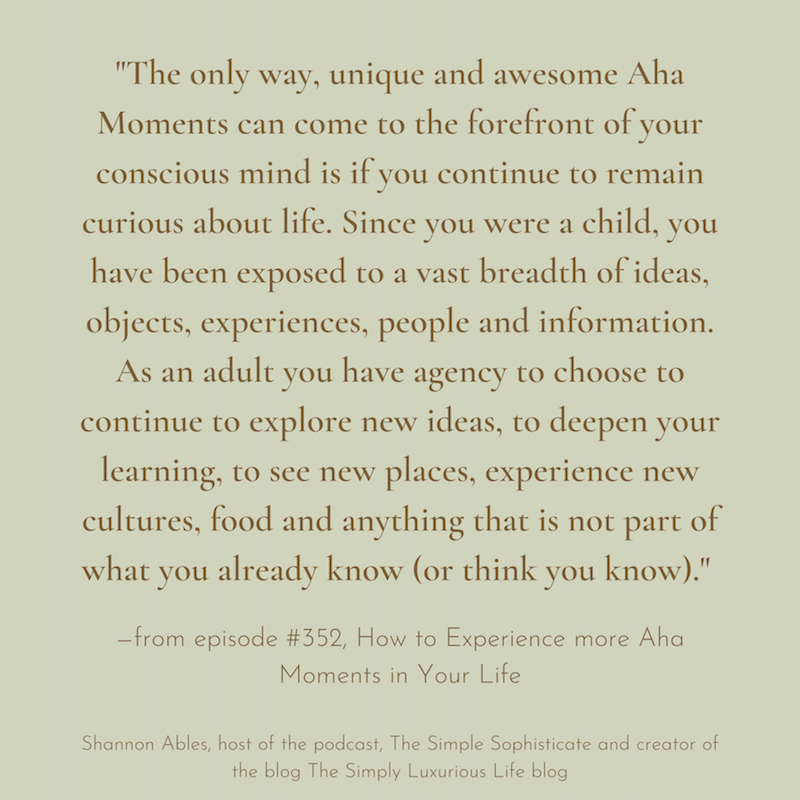 Wishing you many Aha Moments in your near and distant future.
Petit Plaisir
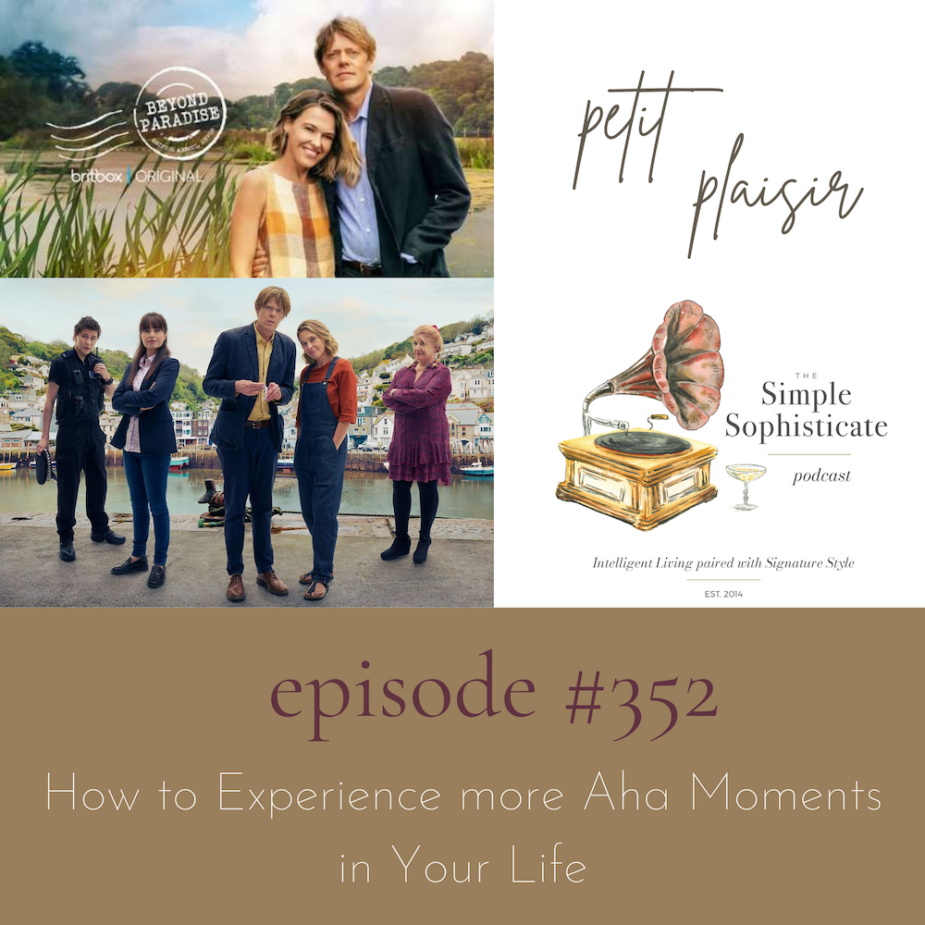
|
Tue, 14 February 2023
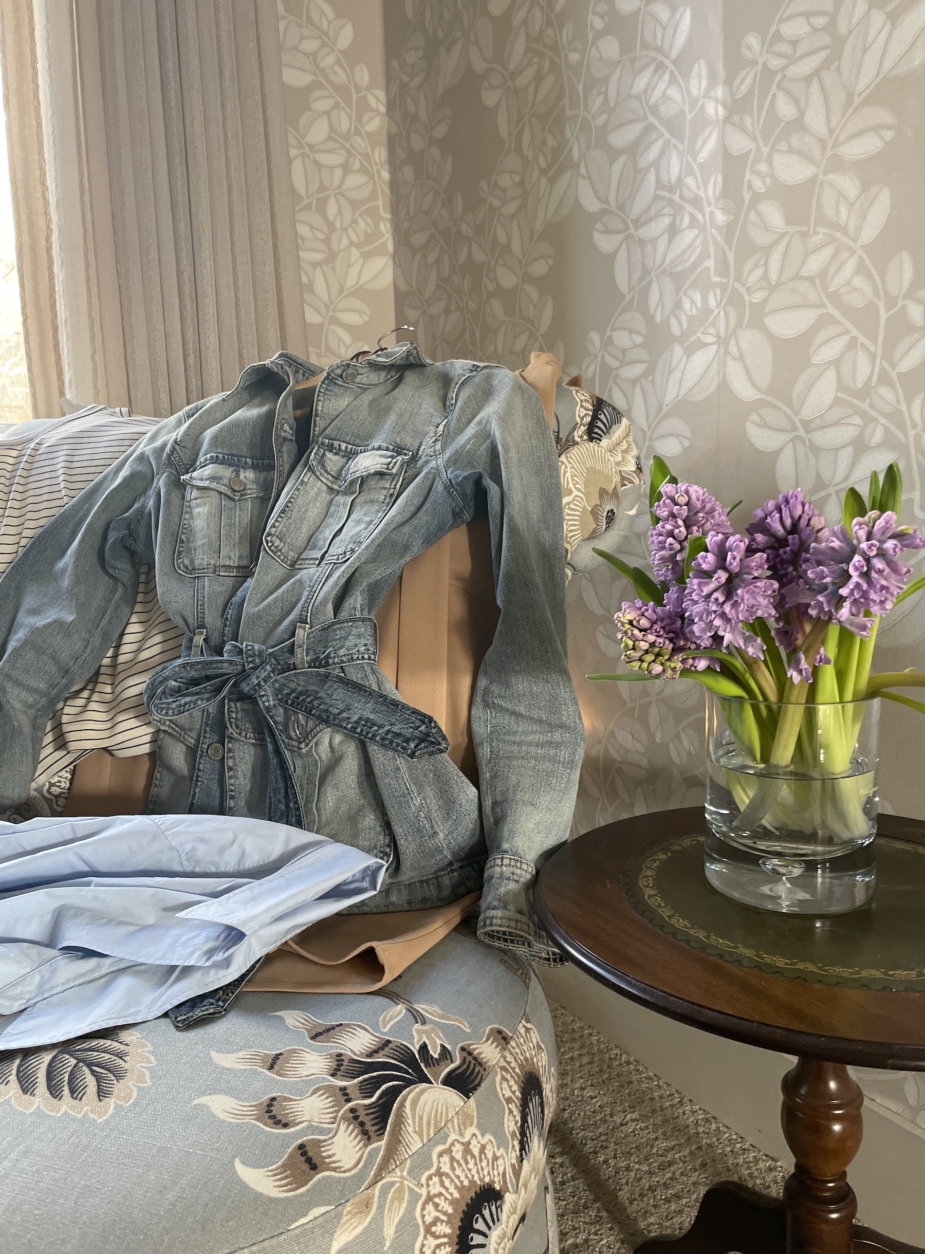 Gabriel. No last name needed, but he doesn't have one if he did, interestingly enough. I'm talking about Gabriel of Emily in Paris fame. Played by Lucas Bravo, Gabriel is the inspiration for today's post/episode because his clothes don't do the talking unlike the rest of the fashion-clad cast, but they definitely don't hinder his appeal. In a recent article in The Wall Street Journal, Ashley Ogawa Clarke spotlights the character's no-excess capsule wardrobe that works to a "T" while he works as an up-and-coming chef in one of the most highly fashionable cities in the world. Sharing that "costume designer Marylin Fitoussi wanted to telegraph that he’s 'more focused on cooking rather than always thinking, How do I look?’" In other words, allowing the clothes support the life he lives, showcase, but not hog the stage. This observation immediately caught my attention as I have found myself shifting when it comes to my own clothing: not away from caring what I choose to wear, but as I become more confident and focused on running TSLL well, choosing a wardrobe that is simple, yet stylish, requires less thought, but looks smart and yet effortless. With the release of TSLL's Annual Spring Shopping Guide arriving soon (March 1st), today's episode/post will share ideas for preparing ourselves for how to be savvy shoppers with clarity about what a Capsule Wardrobe entails without the Excess. To follow Albert Einstein's advice, although I doubt he was referring to wardrobe shopping, "Make everything as simple as possible, but not simpler.” Let's take a look at how to simplify to amplify as we invest in key items for our Spring Capsule Wardrobe:
1.Love a cut/style/length? Buy it in multiples, but in different colors This piece of advice is well-known, but something that Gabriel demonstrates well, but that is not often advised is that the colors for the same style are different. Decide to become a student of your skin's undertones as well as what complements your hair color, and purchase different colors in that same style - a shirt, a pair of pants, a skirt, a dress, a jacket, etc. - that works well with your silhouette, lifestyle and personal taste.
2. Denim just works, so invest in it, buy multiples of the exact same pair, then alter Something that was suggested in the article mentioned above is this idea. When you find a pair of jeans that just work - they are high quality, the wash is spot-on, the waist-height is ideal and the fit remains constant (in other words, not too much stretch) - buy multiple pairs, and then based on the different shoes you wear your jeans with, have certain pairs altered to work well with that particular pair of jeans, so that while the same jean, each has a slightly different look and adds that extra polish from the tailoring. For example, you may want an ankle hemline for the summer and spring when you wear with flats or heels, but a longer hem for wearing with booties in the fall and winter.
3. Find a jacket or blazer that you love and don't stray (buy multiples, in different colors) For me, it is an oversized blazer that I will be hunting down this spring, and in multiples. They may not each be from the same brand, but the style an cut will be the same. The idea here is that you know what complements your style, what works for your lifestyle, so why stray? Just change up the color, change up the fabric to either dress up or down, and go do what you do and pay no mind to what you are wearing (because you look and feel great).
4. Switch up materials Speaking of switching up the fabric . . . keeping it simple without the excess means you apply what you know and you don't add the fluff. A simple slub tee under an oversized blazer with ankle hemmed denim. Done and looking great. Throw your crossbody bag over your shoulder and get about your business. Come the weekend or an evening out, change the denim jeans to crepe pants with the same length and finish, maybe even still a dark navy, similar to your jeans. The blazer and tee still work, but you've punched it up a bit.
5. Find your pop of color and home in on that and nothing else (except neutrals) Something I wrote about in this post last year more generally is knowing what colors work for you and to forget the rest. Keeping in mind that the colors you come up with work with each other, and so to drill down a bit more specifically, stick to neutrals all except one color. And select this lone star color to be a color that complements you without fail. My one color is a cool pink - not pastel, not fuchsia, not maroon - but a cool undertone pink. No other color makes an appearance in my closet as I have learned through past purchases that other colors just don't work for me as well as I thought they might when I viewed them in the store or online. Paired with my neutrals of cream, navy, denim, and camel, that is just about all I wear, and almost everything can mix and match. This may sound boring, but there is no reason for me to attempt to dress like a style influencer or like Emily in Paris or Carrie Bradshaw. I adore each of their courageous ensembles and they look AMAZING, but what I gain from watching them is ideas of what types of items can go together, and then I return to my color palette and rest assured that what I end up purchasing will work with what I already have.
6. Stick to the basics for types of clothing and avoid the trends To relieve any confusion and fret about what to buy each season, walk away from worrying about trying to figure out the trends, and instead return to the basics - basic tees, oversized button-up shirts, blazers, A-line skirts or wrap dresses, knee-high boots, flats - ballet or loafers, blazers, etc. - and within those basics, become the student of yourself and know the answer to the following question: What flatters me? Necklines, hem lengths, sleeve lengths, heel height, waist height, etc. The simplifying of the process makes the decision-making easier, the selection streamlined and therefore you can narrow down what is available for you to choose from without draining your energy flipping/scrolling through item after item after item which is ultimately how frustration builds up - we see more of what we don't want than what we do. When the opposite begins to happen because you have edited out what wouldn't be best for your wardrobe, you feel as though you have ample options and the shopping begins to become more enjoyable.
7. Keep your shoe options to four, with variations Part of the stress of dressing well is often having the shoe we need, so let's simplify that as well. Make sure you have these four types of shoes in your closet, and make sure they are investment - high quality and fit well. (1) a trainer or a sneaker that fits what you need - not too wide, the best material for your lifestyle (canvas or leather, etc.), and a color that will work with your outfits. (2) a pump or heel to your choosing for dress and work - choose the height that flatters your leg and is comfortable to wear in a color (or colors) that work with your wardrobe. (3) a boot - ankle or knee high, determine the heel height for your lifestyle. And (4) a flat of your preference - pointed toe or slightly rounded, a loafer, etc. Begin with ensuring you have one of each, a quality pair of each and then build on that as you discover what will complement your wardrobe.
8. Make selecting quality over quantity your modus operandi At the core of living simply luxuriously is to live a life of quality over quantity in all arenas of our life, and so with our capsule wardrobe, as I have shared many times before, choose quality items. Even if you can only buy one this season, instead of the handful you would prefer, that one, if made well, fits you smashingly and complements your awesomeness is worth the price. Keeping in mind the rule of investment - cost per wear, and let that long-term benefit ease your mind. From boots, to coats, to sweaters and dresses, blazers and camisoles, when I purchase a quality item, it continues to be worn year after year, for years to come. I wrote a detailed post on my first purchase (and only thus far) of a Burberry trench, and while I waited for years to be able to purchase it, it is still in fantastic shape now six years later and it is worn constantly during the spring and fall months. Again and again and again, with advice shared in fashion magazines and even in Masterclass by fashion experts, the advice shared for keeping your wardrobe simple, but stylish is to, yep, you guessed it - choose quality over quantity. Ultimately, what you're doing when it comes to creating a capsule wardrobe that sings but without the excess is investing in multiple versions of the uniform you look your best in and that complements the life you love living.
With all of that said, look for TSLL's Spring Shopping Guide to be available on the blog on Wednesday March 1st where I will shop more than 70 items that are available in the new spring collections and items worth investing in so you will have and wear them for years to come. Ranging from low-mid (J.Crew, Madewell) to mid-range luxury (Theory, Vince, L.K. Bennett, etc.) to a few luxury finds (Net-a-Porter designers for example). As always, you can peruse TSLL's Boutique/Shop where I have shopped and keep updated timeless items for all seasons. On that page - find it in the drop-down menu under SHOP - Capsule Wardrobe - you will also see the past Spring and Fall Shopping Guides shared most recently on the blog.
SIMILAR POST/EPISODES YOU MIGHT ENOY
Petit Plaisir
~The Creative Act: A Way of Being by Rick Rubin
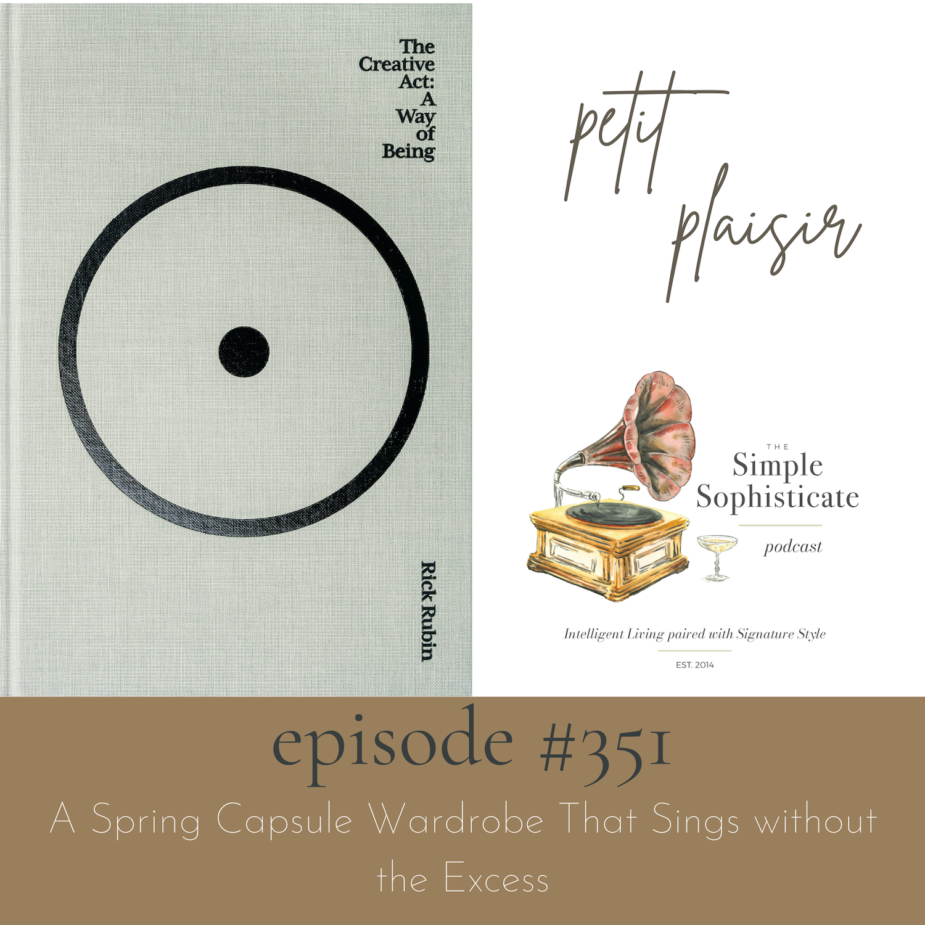
Listen to the Previous Podcast Episode
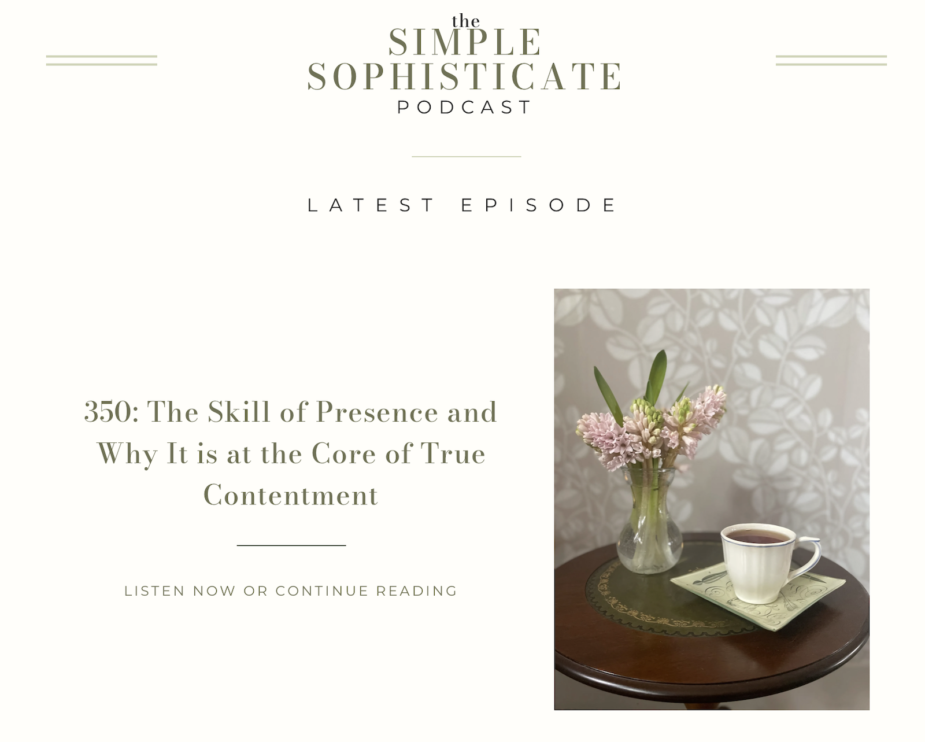
|
Tue, 31 January 2023
"Presence is power." What if I told you that the solution to your quandaries about life, love, work, finding calm, anything of value and importance already resided within you? While initially this may seem impossible, in actuality, when we dig down deep to the core of our motivations, our hopes and even our fears, the answers rest in being able to hold ourselves in the Present moment consciously on a regular and consistent basis. Now this may seem elementary, even a simpleton answer, but today, I want to share with you why indeed it is true. And how exciting to know that what we have been seeking (and not finding) outside of ourselves has been within our power all along. ~The Simple Sophisticate, episode #350 Read the Show Notes - https://thesimplyluxuriouslife.com/podcast350 The Simple Sophisticate is someone who prefers quality over quantity, sensible living over mindless consumption, personal style instead of trendy fashions, has an insatiable curiosity for life’s endless questions and a desire to live a truly fulfilling life rather than being led around by the nose. Inspired by her lifestyle blog The Simply Luxurious Life, Shannon Ables (the original Simple Sophisticate) shares with listeners tips on how to live a refined life on an everyday income. From achieving your goals, preparing a memorable meal, creating a capsule wardrobe, traveling the world (Francophiles and Anglophiles tune in as France and Britain is a favorite destination), and living life to the fullest without breaking the bank, living well is really quite simple. ~Subscribe to The Simple Sophisticate: iTunes | Stitcher | iHeartRadio | YouTube | Spotify | Amazon Music |
Tue, 17 January 2023
"On ne comprend jamais tout à fait une langue avant d’en comprendre au moins deux." It took 43 years for me to finally learn the French alphabet, and when I say learn I mean how to properly pronounce each letter, even after taking French classes in college and then again taking French 102 and 103 back in 2016 at our local community college. After sharing this with someone recently, they looked at me perplexed, but you see I never enrolled in French 101 as it was a fall course, and during the 2015/16 school year I was head-first transitioning into my new teaching position here in Bend, so waited until I was settled with my own schedule to explore French classes. Backtrack to college, as explained in detail in my first book, a similar situation; I began my studies during winter term rather than fall due to a shift in my life journey and needing to acquire the necessary prerequisites to study abroad in French the coming summer. With that said, learning the alphabet, and singing the French jingle to help cement the sounds of each letter into my memory was one of the most exciting and appreciative moments of my novice French learning experience thus far.
Beginning today is a return to the series I began in 2016, so today's episode/post is labeled as Partie Quatre (part four). As I make my way through my courses - a new quarter/course each season - look for future posts/episodes to be shared. You can explore all of my French-themed posts and episodes via the respective links.
The Simple Sophisticate, episode #349~Subscribe to The Simple Sophisticate: iTunes | Stitcher | iHeartRadio | YouTube | Spotify | Amazon Music |
Tue, 3 January 2023
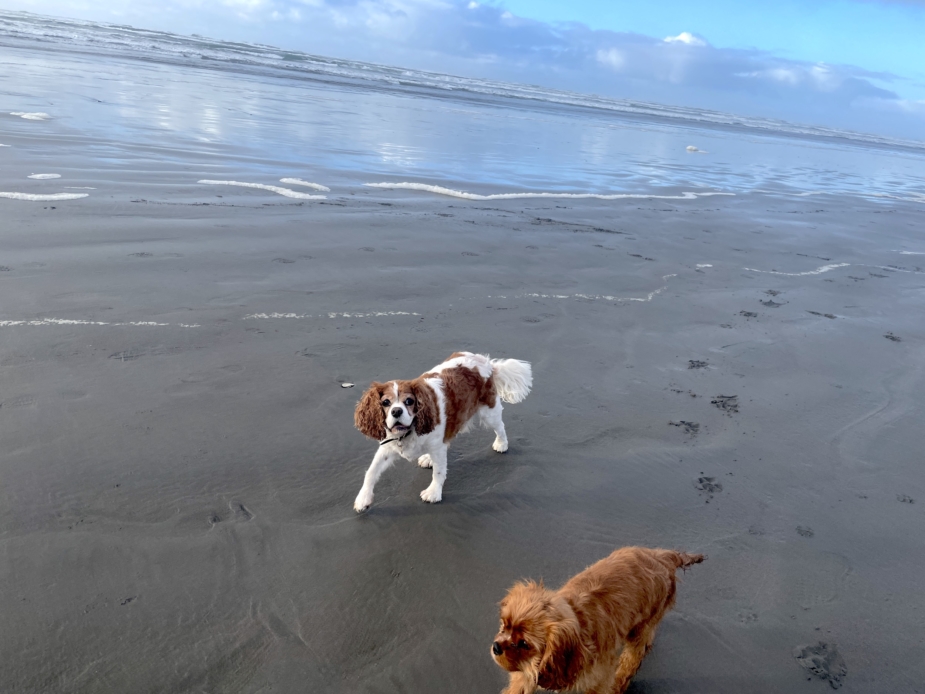
"The greatest gift that manifesting can offer us is not to help us attract things for us to possess but to help us unleash the most empowered, authentic, self-loving, and truly magnificent version of ourselves that there is." —Roxie Nafousi How we live, how we think, what we think determines the destiny of our lives, and all three are thankfully within our control. All three actions - living, thinking, selecting [which thoughts to think] - involve just that, being active rather than being passive. However, the paradox arises when we choose to first actively and consciously engage constructively with each daily practice - thinking, living, selecting - but then, . . . let go and let the magic unfold as it will. When I first picked up Roxi Nafousi's new book Manifest I wasn't sure how she would present the idea of manifesting, but I quickly discovered that she spoke to the core tenets of living simply luxuriously which involve active participation in our lives, deepening our awareness and knowledge of how our mind works and applying that knowledge to tap in to discovering what lies within that is uniquely who we are. In fact, late last year, I wrote a post about self-sabotage and better understanding the temporary discomfort that often derails the life trajectory that will ultimately bring us deep fulfillment, a discovery of insight taught in Nafousi's book. And there is so much more within the pages of the book to inspire you as you step into this new year, so I wanted to give one more taste of what manifesting entails because what it gave me was a sense of peace to let go once I have clarity and am willing to act consciously. To begin with, Nafousi's book is neatly organized around the seven steps, and each play a necessary role in cultivating healthy habits and thought defaults that set you on the right track to create the magic that at this moment may seem impossible. To reiterate, manifesting is not a passive approach to life. "You cannot just be clear in your vision and then wait for it to appear." So what does that mean exactly? Step two in the book centers around eradicating fear and doubt from your life, and she goes into great helpful detail to explain how by allowing fear and doubt into your life, errantly believing that they are your 'friends' is a significant reason you are not manifesting the life you wish to live. As it pertains to being active, Nafousi teaches that we must align our behavior with what we imagine to be our future life and selves as this reveals that we value ourselves, and we have a healthy awareness of our self-worth. If we allow fear and doubt to limit our vision of our life, then, as she describes, 'the universe won't believe you believe what you say you deserve." And this is where the hard work comes in. So you want to pass the bar exam? You cannot just 'think' your way to passing the exam. You are going have to study, prepare, study even more, and re-prioritize your time for a duration in order to ensure you are prepared to pass. Want to learn a new language? You are going to have to invest in quality instruction, invest your time, continuing to study regularly and surround yourself with the language as much as possible for a decently long duration of time, but your clarity of what your vision is gives you the road map and helps you to stay focused. Nafousi points out that once you know that path and what it might take to manifest what you envision, fear and doubt may still crop up. How? By way of excuses - "I don't have enough time", "I don't have enough resources [i.e. money, support, etc.]", "I don't have enough energy". Each of these excuses are just that, excuses borne out of fear or doubt. The excuse is a subterfuge for saying "I am not worth what I seek and I don't believe I am actually ready for what I hope for". But here is the good news: If you have done the homework of you, examined the feelings behind what you seek, and know in your core that what you are trying to manifest is sincerely aligned with your true self and fulfillment, toss aside the excuses. Yep, even if you cannot see how the money situation will work to make it a reality. Why? The universe has a magical way of making it work out. Maybe not exactly as you envisioned or when you envisioned it would all come together, but if you are willing to risk and toil and invest your time and whole heart, your sincerity is in many ways a silent language that the universe understands. Stay the course, keep investing (non-monetarily and monetarily), and then let go as you travel forward on your journey. That is the paradoxical part of this beautiful concept of manifesting. Let go.
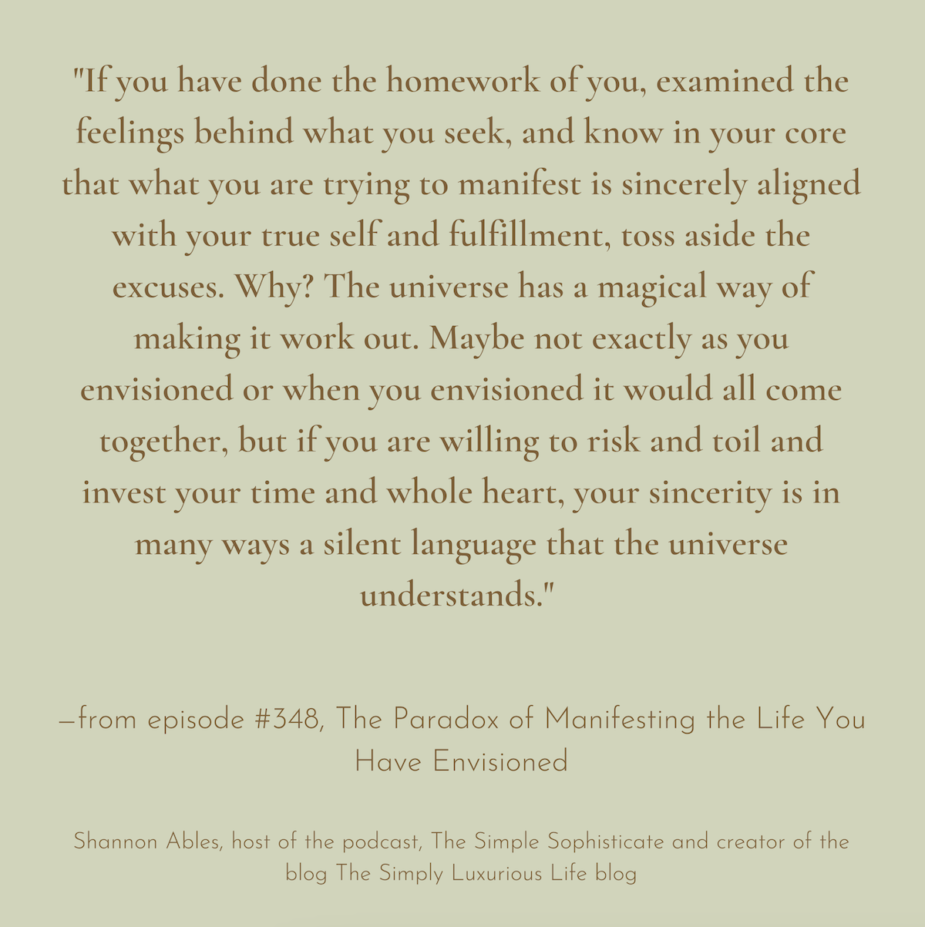 You still remain active, you are still wholly engaged, but what you will find is because you are truly aligned and sincere, the weeks and months, maybe even years on the calendar may flip by, but you are building capital as they say, building further proof that you believe you are worthy of what you are investing in and at some point it seems to all come together, often more beautifully that you could have imagined. But the good news is that you enjoyed the journey to this point as well because that journey was and is your life, just as much as arriving at the moment of manifestation. "True contentment and joy come not from material possession but from the relationships around us; from our sense of purpose; from our ability to live in a way that reflects our most authentic self. So, when you are deciding what you want to manifest, choose the things that will bring you the most fulfillment possible and know that the only person who can decide what that is, is you." —Roxie Nafousi The letting go also comes in the form of "letting go of who we think we should be, who other people expect us to be, and who we once were." During this time of limbo, when you have let go and are swinging forward to a less 'known', but no less specifically desired outcome, there will be tests. These tests are something we have talked about frequently on the blog. These tests crossing your path, believe it or not, come as a good sign because it means you are beginning to grow and change, and the universe just wants to check to see if you indeed believe in yourself. Each test also brings a gift, and that gift is a lesson you need to learn in order to step closer to the outcome you seek. Take the test, pass the test, move forward. You've got this. And the only way to fail the test is to not look for the lesson it wishes to teach you. Simply face the test, engage, explore, try your best, and as Nafousi points out "whenever you make the energetic shift to overcome your test, you will be rewarded with abundance." If that all seems a bit 'whoo-hooey', let me put it in more concise terms: it comes down to your mindset - are you set in a scarcity mindset or an abundance mindset? In a detailed post written this past November, I share how to shift your mindset from scarcity to abundance because in order to live the life you have envisioned, your mind must rest in abundance. And part of making that shift is stepping past the fear and the doubt that wants to keep you right where you are, and the only way to move forward is to engage with each test the universe sends your way and not cower. You may shake a bit, but remain standing and explore what is being presented. You don't have to act right away, but take your time, ask questions, feel your way around what is really going on and what you are really feeling and why. The balancing of taking action and letting go may initially seem a tricky, and almost impossible balance, but really what life is asking of you is to be present. There is no need to rush so long as you have put forward your intention with the clarity that you now have. Sometimes you will have to wait months and years for the materialization, but in a flash, all of a sudden it arrives. Almost so quickly it doesn't seem real and you question it, but rest your mind in the place of reassurance that this is indeed real because you put your intention and your energy out there a long time ago, and finally, the opportunity arose because you let go and moved with the timing of the universe. Seize it and savor it.
Manifest: 7 Steps to living Your Best Life by Roxy Nafousi 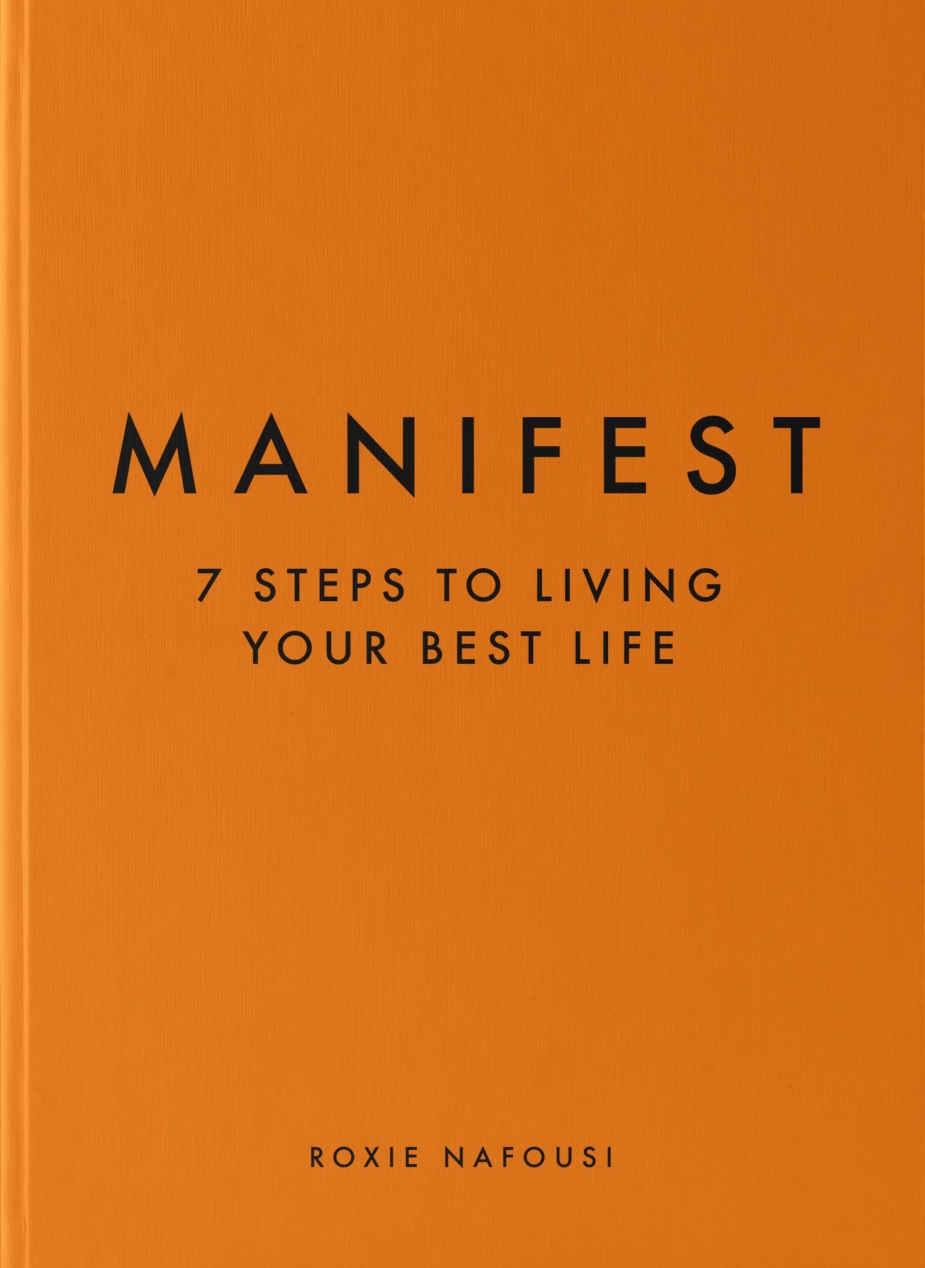
Petit Plaisir This Beautiful Fantastic, film (2017)
 |
Tue, 20 December 2022
 The holiday of Christmas is a festive time that arrives a mere one week before the new year begins. The arrival of Christmas stirs up nostalgia for some, angst for others, seasonal stress for most of us and a stream of quiet hope for perhaps nearly all of us that a Christmas miracle will occur. And regardless of what we imagine it to be as November arrives and we look ahead to the final two months of the year, it is a holiday capable of being exactly as we most wish it to be when we approach it with a conscious and loving heart and mind. Discovering and then honoring what brings us joy is a step in the direction for a most enjoyable holiday. Nigel Slater reminds in his The Christmas Chronicles that "many of the festival's observances date from pre-Christian times, and those who celebrate it as a purely religious event might be surprised to find out how much of the festivities hails from pagan times." The celebration of the winter solstice just days before the 25th, the beginning of more light to our days was, again as Slater shares, celebrated long before Christmas was celebrated "Saturnalia was the Roman festival of honor of the God Saturn, with feasting lasting from December 17th to the 23rd". And so in many ways, while religious or not, spiritual or atheist as Slater shares he is happily, we all borrow from each of the reasons to celebrate during this Christmas time of year, and that too is something to celebrate. I had planned on posting on an entirely different topic for today's episode/post, but in the days and weeks leading up to curating this episode, I found myself becoming increasingly excited about my own plans for Christmas. Knowing that how I am choosing to celebrate is a less celebrated approach by the culture, I wanted to share because as I wrote in the December chapter of my book The Road to Le Papillon, it is imperative that we celebrate all holidays that come with traditions in such a way that brings us true joy. I acknowledge that not everyone lives alone by choice as I do, but even in a household of a couple or a family, knowing and voicing and observing what brings true joy to those we love and then honoring this need in some way as you design your day of celebration is a priceless gift to give. So day, as the final episode of 2022, the holiday episode it will be, and along with the ideas for savoring Christmas home alone simply luxuriously, today's Petit Plaisir will be holiday inspired as well and ties in quite nicely with the theme of our conversation. While alone typically signifies one person, it can also include you and your significant other/partner/spouse or you and your household - family. Let's take a look of how to savor Christmas by focusing on quality rather than quantity thereby elevating the entire experience. ~Note to readers: More is discussed in detail in the audio version, so do be sure to tune in. ?
1.Choose to celebrate alone During the past three years, more than most of us had no choice but to celebrate Christmas alone, so understandably, doing so yet again, may not be enticing or desired. However, I was one of those people during the pandemic who enjoyed spending some of the holidays in my own company, but this is also coming from someone who prior to 2020 chose to spend both Thanksgiving and Christmas in my own company more than a couple of times and had, hands down, some of the best holidays in my adult years I have ever had. Knowing you have chosen to spend Christmas Day in your own company gives you time to plan, to anticipate, to prepare and thus to then savor the day when it arrives. Especially if we are changing our plans from previous years of spending this day with family, knowing we have communicated and perhaps shared some holiday time together earlier in December, will make the change into a holiday tradition you desire more enjoyable knowing you have prepared well, so that your conscience can be at peace.

2. Savor other holiday social outings/gatherings/volunteer activities leading up to Christmas Christmas Day has always been a day I don't want a grand dinner, nor do I want to dress up and throw a dinner party; however, as many of you know, I love hosting a dinner party, so it is rather how I view what Christmas Day is - cozying-in, getting snuggly and just having a wide-open day to savor the joy that has culminated over the past month or so. With all of that said, we need not wait for the actual date of the 25th to arrive to celebrate Christmas. No, no, no, no! As I know many TSLL readers do, plan a special lunch or dinner date with your dear friend or friends to exchange gifts. During the past couple of years, my dear friend Veronique and I have done this, and dined at a favorite European-cuisine restaurant here in Bend, enjoying sparkling wine and oodles of conversation as the hours pass by, only remembering at the end to exchange our gifts because we've been talking so much! :)

3. Do something special on either the 23rd or the 24th Every year I have done something slightly or significantly different, but these two dates are the special ones for me when it comes to soirées, hosting a dinner, going out to dinner and splurging, seeing something special with family or dear friends. Every year as a child, Christmas Eve was the BIG dinner at my parents' house in which we and our guests would dress up for and we kids would do so obediently because we knew soon we would be in bed awaiting Santa's arrival. Now as an adult, the energy of the season is palpable and spending time with others, more than a handful is something even this introvert enjoys because it only happens once a year. One year, in fact the last Christmas season I was in my house in eastern Oregon (Pendleton), I threw a soirée and more people came than I imagined, and it turned out to be one of the most beautiful memories of my time living in this home with the people attending from my neighborhood, my colleagues at school and my brother and his wife. It was held on Christmas Eve Eve (the 23rd), and it was perfect timing as then I had time to decompress on the 24th and look forward to a quiet Christmas Day. This year, I am excited to be able to enjoy a full five course meal and share the meal at my neighbors', along with my own, respective houses as we will be enjoying a progressive dinner, and since we all live either next to each other or on the same street, we need only walk a couple house-lengths to enjoy the next course. The clean-up is less, the cost for each of us is more affordable, and as the weather looks to be snowy, it will be safer to imbibe and thoroughly just enjoy the evening. I cannot wait!
4. Plan your Christmas meal - brunch, dinner, dessert, etc. As you will be in your own company and can dine whenever you prefer, decide what meal you want to enjoy and then do so at your leisure. Brunch is always a must-have on Christmas with pastries, eggs, a meat of choice - sausage or bacon, perhaps a Bellini and paired with The New York Times annual Puzzle section, I will be enjoying a good long meal in my pajamas, of which doesn't take that long to cook. Speaking of pajamas . . .
5. Select your favorite pajamas and have them ready to be worn As it is quite cold in Bend, I enjoy wearing linen pajamas, and make sure they are freshly laundered and pressed. Just knowing you are wearing something comfortable and warm that you will likely be wearing part, if not all of the day, eliminates the guilt of doing something that is quite foreign to most of us, but something to savor on this special day.
6. Stuff the stockings for your four-legged companions My pups each have their own stocking, and while Nelle doesn't know the fun that is in store for her just yet, both Norman and Oscar loves/d their stockings, and as you can see below, waited patiently to explore the contents each year.


7. Don't forget to give yourself a gift While no doubt you have already shopped and wrapped and delivered your gifts for loved ones, even filling out holiday cards to send to personal and professional contacts and acquaintances you are grateful to have in your life, be sure to remember to include yourself on Santa's list to shop for. Whether the gift to yourself is tangible (a nice Trudon candle) or not (purchase those tickets for your trip next year, or put the deposit on the vacation rental), give yourself something you've been dreaming about and maybe wouldn't purchase freely any other time of the year.
8. Make plans to do something unique/special on Christmas Day Whether you stay home and take part, attend an event locally or pop up to the mountain to go skiing if snow is in your backyard as it is mine, have a plan to do something special on this day. This will get you up and give you an opportunity to move and perhaps exercise and just looking forward to enjoying this special something is a joy in and of itself.

9. Plan a special evening ritual to savor As shared above in #4 if you have already planned on either a brunch, a lunch or a dinner, I would encourage to also include a delicious evening-into-the-night treat. What I will be up to after having a good brunch, then a jaunt to the mountain or a long walk in the snow somewhere nearby, is enjoying a slice of homemade Bu1che de Noël that I will be making a few days earlier, paired with hot cuppa or maybe a sip or two of cognac and enjoying whilst sitting by the fire, reading a bit from a book that is calling my name to suit whatever mood I am in, and then watching a bit of the new series that is this week's Petit Plaisir (see below).
A preview of what I hope I can recreate in my own kitchen. This was my mother's Bûche de Noël made, and we all enjoyed, last Christmas Eve. 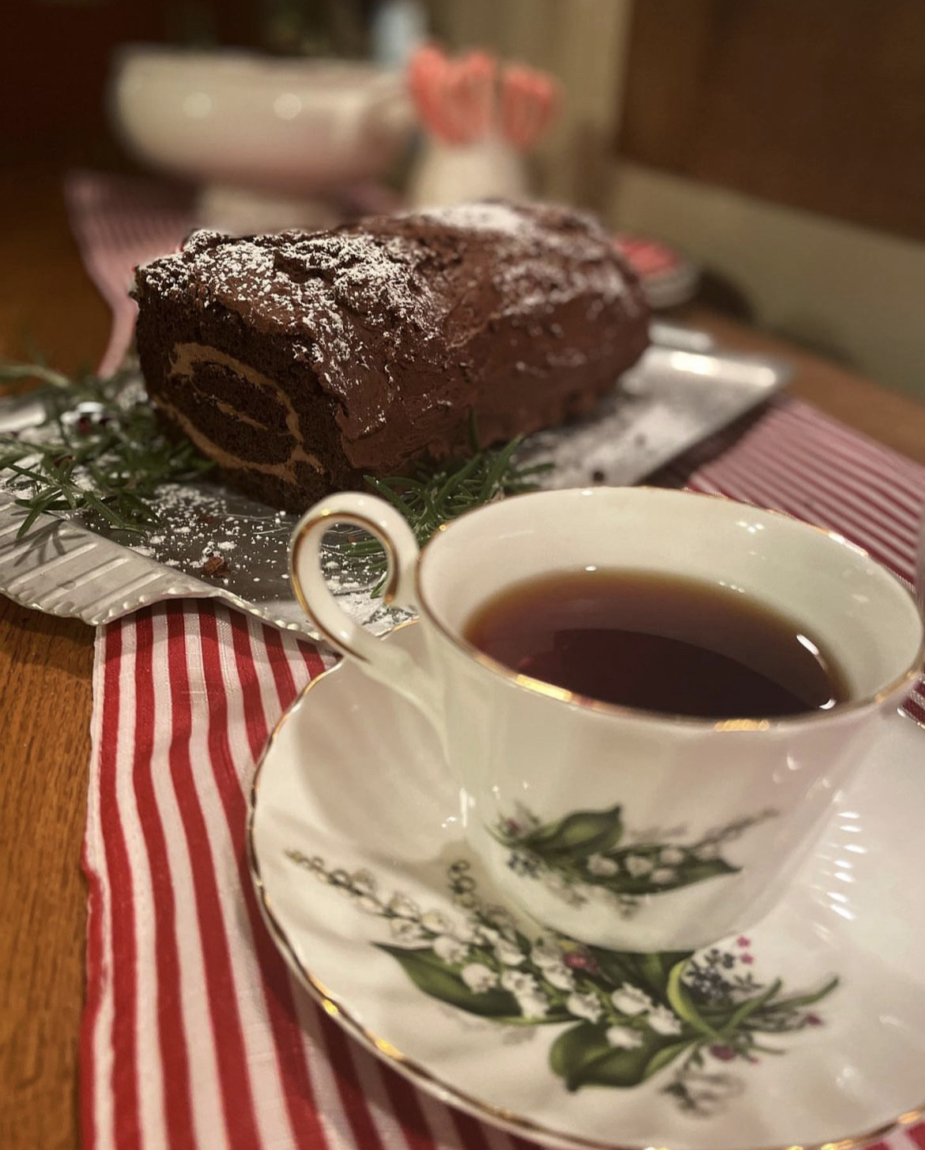
Wishing you a wonderful, happy and merry Christmas this coming Sunday (and a Happy Hanukkah as well). Thank you for stopping by and look for a new episode on Wednesday January 4th, 2023.
SIMILAR POSTS/EPISODES YOU MIGHT ENJOY
M.L. Longworth Talks Provence during the Holidays, Favorite Cookbooks and her new Provençal Mystery, episode #268 
Petit Plaisir
~A Storm for Christmas, Netflix limited series
 ~The Simple Sophisticate, episode #347~Subscribe to The Simple Sophisticate: iTunes | Stitcher | iHeartRadio | YouTube | Spotify | Amazon Music |
Tue, 6 December 2022
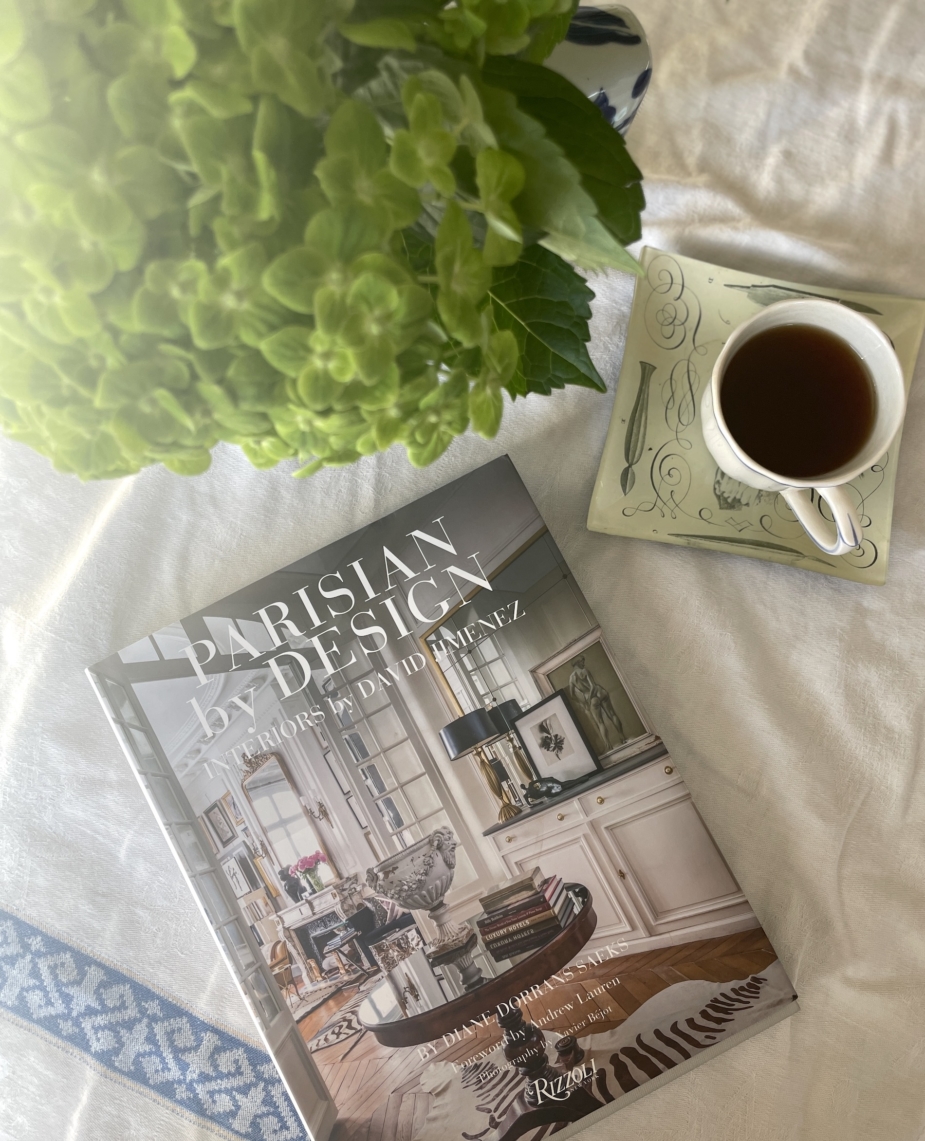 Those who know David Jimenez and his life journey often take a sigh of adoration followed by a smile and comment, “He is living the dream”. And indeed to us Francophiles, he is indeed. Having called Paris home for the past six years, American interior designer living in Paris David Jimenez partnered with Diane Dorrans Saeks to bring to readers Parisian by Design: Interiors by David Jimenez.
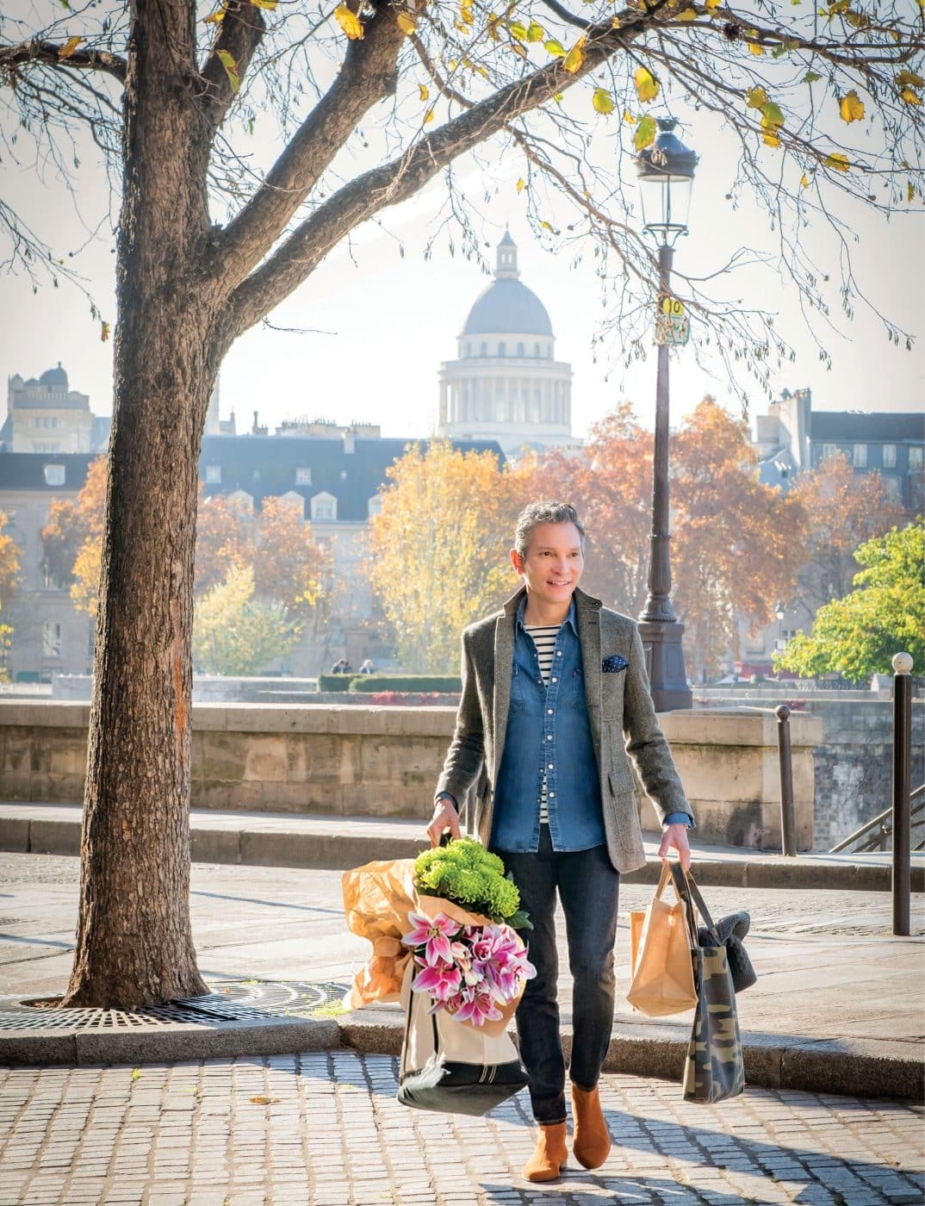 David Jimenez captured by photographer Xavier Béjot whilst going about his day on the Île Saint-Louis in Paris.
Parisian by Design: Interiors by David Jimenez by Diane Dorrans Saeks  Parisian by Design showcases the seven residences he has called home over his life journey of decorating, beginning in San Francisco, moving to Kansas City, then to his apartments in Paris that lead him to his now sanctuary on the City of Light, his apartment on Île Saint-Louis, as well as his design atelier on the same petite Île and, what I think is my favorite of all of his abodes, although each is inviting and quintessential European in its aesthetic with a strong affinity for Parisian touches, his apartment in the French countryside (see pics below from David's IG account).
In our hour-long conversation, David will introduce readers to what they will find in the book which includes a 10-page source list for you too to enjoy and peruse first-hand David’s personal recommended shops, artisans and destinations, not only in Paris, but beyond, and we will also dive deeper because David made his dream a reality - calling Paris home. Exploring how he trusted his journey from a very early age along with sharing what he has learned along the way to be the best life advice for knowing what to do next, we talk about nudges from the universe, trusting yourself and so much more. Oh! And his Petit Plaisir is Petit Plaisirs! Yes, David shares multiple Petit Plaisirs in the middle of our conversation, painting a picture for our minds through the senses that, if you are anything like me, will inspire and remind how powerfully rejuvenating savoring everyday seasonal pleasures can be. But I don’t want to give too much away. ? As well, our final question speaks to the winter holidays in Paris, and how we too can bring a touch of the charm into our own homes. I do hope you will tune in and thank you for stopping by. Visit David Jimenez’s website David Jimenez Studio and follow him on Instagram @davidjimenezstudio
~Explore more episodes of The Simple Sophisticate podcast in TSLL's Archives or wherever you listen to podcasts.
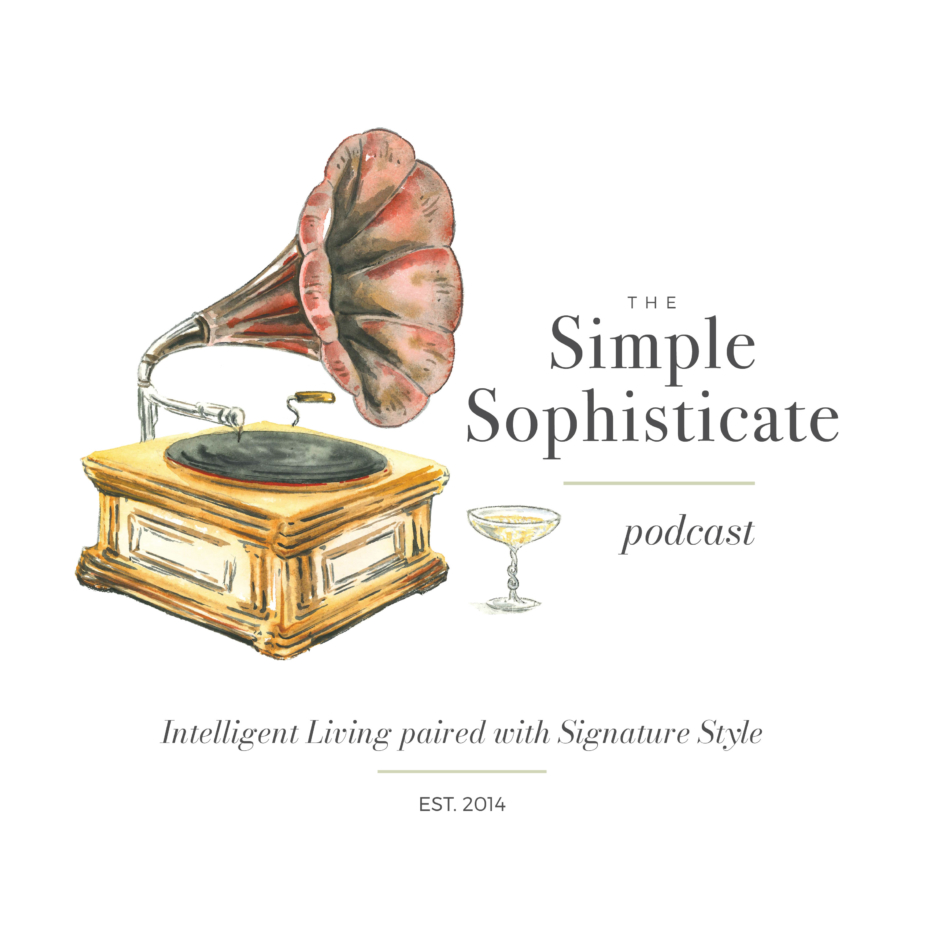
SIMILAR EPISODES YOU MIGHT ENJOY
15 Ideas for Savoring Paris, episode #328 
36 Ways to Welcome Joie de Vivre into Your Everyday Life, episode #253  ~Explore more French-inspired podcast episodes on The Simple Sophisticate |
Tue, 22 November 2022
The concept of luxury at its core is what brings you comfort. A space, piece or item that brings ease, calm and perhaps a sigh of letting go and being able to fully relax and savor the present moment. In 2013 I shared a list full of ideas exemplifying what true luxury is; the items on that list are worth exploring as we become more in tune withwhat luxurious living is. It is important to note that a fundamental element of what constitutes something as being luxurious is the effort and dedicated intention to bring your idea to fruition. In other words, you have taken the time, expended the effort, energy, investment, so that when whatever it is that has been reached (tangible or intangible), you appreciate it and will by no means toss it aside blithely for the next 'new' or 'better' model, version, trend, etc. When it comes to decorating our homes to create luxurious living spaces, while most certainly, luxury when it comes to interior design can be expensive, it need not always be that way, and it is important to note that size - a grand, large abode doesn't guarantee the space will be luxurious if the details are not tended to well. To walk into a luxurious space, small or large in scale is only part of being truly luxurious; it is when you engage with the space, live in it, sit down in the chairs, sleep in the beds, pour yourself a hot cuppa, that you then discover whether or not the home is truly luxurious. In today's episode/post I want to tend to those simple ideas that when you tend to them can elevate the luxury in a room immediately upon a guest or yourself living in the space. Three years ago, I began this series with a post sharing 10 Simple, Significant Decor Ideas to Add Luxurious Touches to the Home inspired by interior designer Cathy Kincaid's new book at the time, The Well Adorned Home. And as you will discover in that list, while the simple touches may be investment decisions, they significantly elevate the luxurious presence of the room, beckoning the inhabitants to relax and stay awhile.
Part Une, 10 Simple, Significant Decor Ideas to Add Luxurious Touches to the Home, episode #260 In part two (deux) of this series, I am sharing 13 ideas that while simple are also quite affordable and don't require a contractor or even the expert eye of an interior designer (all except #12). There is something almost impossible to describe with words but felt by our nervous system when we step into a decorated space that to our eye is luxurious, as well as to our other senses. Immediately there is a noticeable decrease in our stress levels, dopamine may even be released, and we let our guard down and sigh, exhaling a deep breath as though we are 'home', we are safe, comforted, we have found a place to unwind and be rejuvenated.
|
Tue, 8 November 2022

"I am sure there are [trends], but I don't really like them because I think trends come and go very rapidly." —Nina Campbell Creating a sanctuary takes time. But it need not take the same amount of time each time you set up a new home. Similar to getting to know ourselves, unconsciously from day one we may be drawn to certain tastes, preferences, aesthetics, etc., and this is where we can begin both in understanding ourselves and in curating a sanctuary that rejuvenates, comforts and welcomes us home, even if the location of our home changes over the years. However, unlike our wardrobe, the sizes of the types of furniture or décor items we are drawn to will not change, even if the colour palettes do which is good news because that means you can begin investing in the items for your sanctuary before you even have a penny in your bank account saved up for a down payment or the first month's rent. Decorating our homes doesn't have to begin from scratch each time we move into a new home; in fact, if we are starting from scratch each time, we are wasting money, time and harming the planet (unless we are leaving all of our furniture for the new buyer). And you actual liberate yourself when you invest in quality décor pieces initially which enables you to never have to start from scratch again. Why does it liberate you, especially, you might be saying, because you just spent all of your extra money on a custom sofa for example? Well, that is exactly what today's episode is all about, sharing the many reasons why investing in key décor items will help you curate a sanctuary that is tailored to you and the life you love living. 1.Endurance to last a lifetime or at least a few decades "[It was] good in the first place, and [is] still good today." —Nina Campbell Similar to well-made clothing with high quality fabric, furniture that is made well from the inside out - structurally sound sofa, chairs, beds, tables, etc. will go the distance, many lasting your entire lifetime. I will include stoves in this as well because if you are someone who spends regular time in the kitchen, invest well in a stove and yes, it can last your entire lifetime. The quote above was shared by renowned British interior designer Nina Campbell in a podcast episode in which she shared an experience of working with a client for the second time, about 10-15 years removed. Many of the primary pieces did not need replacing because they were made well. Below in #5 we will talk more about the benefit of having high quality furniture and large appliances, but generally speaking, you save yourself an extra step of having to go shopping for yet again another item. If you purchase a cheap item that looks good today, but isn't made well, no matter how many times you recover it, it will still not work nor last, or be comfortable. The idea of starting from scratch is eliminated when you buy well, yep, paying more, up front for the first time purchase, so that you don't have to pay for it again down the road when your tastes change, or what is more likely, the piece falls apart or you realize it doesn't fit well or is not comfortable.
2. Sustainable The sustainability choice in buying a quality piece of furniture or large appliance for your home ensures you won't be clogging up landfills. Mass produced furniture that is typically inexpensive also enables us to be less attached to the items and thus make the item easier to toss. Granted some may take their items to Goodwill or have a garage sale, but when you purchase furniture you love and is well made, and that you need as it provides a function in your home, you are able to keep it and use it for decades to come and also often become invested in it to take care of it well. As I will share in #7 on our list in detail, part of why buying antiques and consignment and vintage is worth doing is because of the sustainability approach, and while it may take more time to find what you need, when you find it, again, you will become more invested in taking care of it well, thereby keeping it in your home for a longer duration.
3. Saves Money in the Long-Term The price you pay for the high quality armchair today will be the cheapest price that armchair will be sold for if you were to shop for it again 10, 15, 20 years down the road. A well-made piece of furniture, if cared for well, will actually increase in value, a cheap sofa or chair will do exactly the opposite. In other words, it is not easy to plunk down a large sum of money on a dining room table for example, but if it is well made, fits your home and lifestyle, you will have it with you for your lifetime and perhaps hand it down to the next generation, only needing to have it refinished or re-stained when it exchanges homes. Try to think long-term if you are struggling to pay the price tag of a custom Howard & Sons London sofa or armchair, and instead think about how you will be able to have a trusted and loved piece of furniture for decades to come, even being able to hand it down and doing so with it in great condition even if the upholstery changes. ~Read British interior designer Rita Konig's advice on buying the perfect sofa (Konig is Nina Campbell's daughter)
Learn How to Be Your Own Interior Designer with Rita Konig (Create Academy course) 
4. Potential to change exterior, but value is retained due to high quality craftsmanship When you invest well in furniture you both love, as it speaks to your aesthetic tastes and lifestyle, and that is made well, as mentioned in #1, when your life changes, when your color preferences change, all you have to do is change the exterior as the skeletal, foundational components are doing just fine. Even if you have to replace and refurbish the seat cushions, you still have the well-built original frame which will save you money. From changing the upholstery or refinishing the wood of a beloved desk, dining room table or side table, this is where you save money and time, because you already have what you love, now you are just taking good care of it, which reduces stress to have to find something that works for what you need.
5. Pay no mind to trends "I am sure there are [trends], but I don't really like them because I think trends come and go very rapidly." —Nina Campbell To repeat Nina Campbell's quote from above, as someone who began working under the wing of John Fowler, I will heed her wisdom when it comes to trends. Sure, we all have an aesthetic we are drawn too, but that is separate from a trend. Nina Campbell, for example, has a particular aesthetic that draws clients to her, but what she does is not trendy and each client's home, when complete, will be different. The difference is when an interior designer creates spaces for different clients that all look somewhat similar but neither reveals an individual, then that is trendy. In other words, an interior designer brings their expertise, but listens to the client's needs (lifestyle) and what brings them comfort and rejuvenation (personal tastes and life journey), and designs a home that reflects their client. You want to see yourself and the people who live in your home in the interior design you create in your sanctuary. This most definitely takes time, but from day one you can begin including something you love, that speaks to you. For me, I have always been drawn to cozy, deep armchairs and sofas, wingbacks and wallpaper. I can remember going to the interior design store in our small town with my mother when I was a young girl, being able to select the wallpaper for my bedroom for the first time. I was so excited to be able to have a say in the decision making and flipping through all of those wallpaper books was a joy and most curiously good time. As well, I also know what I am not drawn too, and that also plays a role in where we begin. When we don't know, we try out things, and we learn along the way. I once thought a blue painted bathroom would be a great look, feel and aesthetic, but for me, I learned it was not. Lesson learned and carried forward to my next apartment or house. With each home we step into, or each new redecorating project we begin, we bring with us the knowledge and experience from our past projects, homes and interiors. To be guided by a trend, as was mentioned in episode #341, is not entirely a bad thing. "If an aspect of a trend speaks to you, there is a reason, and that is how we hone our understanding of what will work for a long duration of time in our homes as we decorate for the life we love living, [but] if you are not decorating in an approach that honors you, but rather following what others approve of, and in such an approach to life in any arena – decor, fashion, life choices – this is never an approach that will lead to true, lasting contentment."
6. You can move to other rooms or arrangements, and expand upon what you have, rather than starting from scratch Having furniture you love and that is well-made gives you the liberty to change where the piece is placed in your home. Perhaps a chair that was in the office now is moved to the new bedroom for guests. Or maybe the bed frame in your primary bedroom is moved to the guest room of your new home as you have one more room to furnish and as your tastes have changed, you can welcome in a new frame. Ultimately, what you are doing is giving yourself options and saving money, reducing what you need to add to your space because you already have very nice pieces to work with. 7. When you cannot purchase custom yet "I strongly believe that people may not want, or may not be able, to start again from scratch, so giving old furniture a new lease of life is at the heart of my philosophy." —Nina Campbell When we begin furnishing our homes, beginning in college for many of us, buying new and high quality is just not possible. Often we begin with hand-me-downs from family members and that is just perfectly fine. As you begin to purchase items, you likely still will not be able to purchase high quality brand new, let alone custom pieces, so head to the consignment and vintage shops and go treasure hunting. Scour the estate sales in your new hometown, but be patient, ask questions, and don't be afraid to barter. My first antique purchase was in college, an oak pub table that at the time cost a fortune for me - $400. I still have that table and it has been well cared for and functions and looks beautiful. Purchasing consignment and/or antiques when we can and want to is a sustainable approach as well to decorating our homes. It may take time to find what we are looking for, but remember, you can always update or adjust certain finds. If the items I made well, but the upholstery needs to change, that is easy to do, and you've saved money and helped the planet. ~Why Not . . . Shop Consignment Décor?
What Décor Items to Invest In The first two items are recommended by Nina Campbell as most definitely worth investing in from the start:
Decorating our sanctuary in many ways resembles putting together an incredibly large jigsaw puzzle, and over the years I have come to thoroughly enjoy putting together my own puzzle. Knowing what the right pieces are takes less time, but because I don't want a mass produced item, or know where what I am looking for might be found but it is not where I am at the moment, the time it takes to acquire these pieces takes longer, and that is okay. Because in the moment that we find and purchase and then welcome home the piece that fits just as we had imagined, it was worth it and our comfort and pleasure in our home deepens, and we become more rested and rejuvenated. Of course the journey of decorating our homes is forever on-going just as our capsule wardrobe is and knowing ourselves and learning about the world and how we partake and engage with it, but that is the fun part of being alive, and our homes stay alive because of this regular awareness of how to live well, tweaking, adding, layering, editing, etc. Wishing you a wonderful and most enjoyable journey of curating your sanctuary, and may your puzzle tickle your mind and bring many smiles to your days as you discover what would be right at home in your abode.
SIMILAR POSTS/EPISODES YOU MIGHT ENJOY
Petit Plaisir
~Parisian by Design: Interiors by David Jimenez by Diane Dorrans Saeks

|
Tue, 1 November 2022
"Creating healthy boundaries is how you ensure that you're happy and well in your relationships and in life." —Nedra Glover Tawwab, Set Boundaries, Find Peace: A Guide to Reclaiming Yourself To have boundaries that are respected is to give your life and your days peace of mind. Just as a sovereign state provides the foundation for its citizens to thrive instead of merely surviving due to the absence of worrying if what they need to live well might not be theirs tomorrow, so too do the boundaries we assert, communicate and actively uphold. But as is alluded to, we must engage consciously, intentionally and consistently. Licensed therapist for more than 14 years, Nedra Glover Tawwab wrote a book, a highly successful and praised both by readers and critics book, titled Set Boundaries, Find Peace: A Guide to Reclaiming Yourself, that is exactly what her book provides - a guide. A guide sharing the tools, but also the reasons to motivate readers to welcome boundaries into their daily lives, whether with their friendships, work, children, parents, romantic partnership and even regarding our use of social media and technology. Boundaries, healthy boundaries, as she explains the non-healthy boundaries and why they are destructive and deteriorate the quality of our lives, are an essential piece of our everyday life if we wish to live a life of contentment. And her book is a hands-on step-by-step guide teaching you how and which boundaries you need.
Upon reading this book, I immediately knew I had found a valuable resource, one to not only utilize now for different aspects of my life, but no doubt in the future either when I want to be reminded or discover what I need to do, how to communicate and validate my decisions to honor my needs. As well, just as importantly, is to understand and honor what others needs as well and to not take their boundary setting personally. In today's episode/post I would like to share with you how setting the right boundaries contributes, and exclusively contributes an essential ingredient that elevates the quality of our lives, thereby deepening our true contentment experienced in our everydays. If what is shared today speaks to you, I highly recommend picking up a copy of the book where you will find the specific examples of what to do/say, what not to do/say in very specific, as well as different situations. ~The Simple Sophisticate, episode #343~Subscribe to The Simple Sophisticate: iTunes | Stitcher | iHeartRadio | YouTube | Spotify | Amazon Music |
Tue, 18 October 2022

Having what we need in our closet as each season changes into the next brings a peace of mind that when reached is often forgotten about as it frees us to engage fully and comfortably (and confidently) in our daily lives. In my own life, it was this October when I had plans to go to the symphony that I relaxed knowing I had an outfit fitting for the autumnal weather that was timeless, yet comfortable and upon wearing it, eased my mind in quiet confidence knowing I was dressed well and respectfully for the event. It is this feeling that, as someone doesn't necessarily enjoy shopping, but finds pleasure it in when I find something that speaks to me and works with my lifestyle, motivates me when I look at my capsule wardrobe for each season and guides my decisions as I invest after considering the three qualifiers to nudge me to click purchase -high quality, fits my style and functions well. Today I would like to share with you 10 items that I have or am purchasing this fall season as part of my capsule wardrobe that I wear with confidence knowing it supports the life I love living and enables me to feel confident that I look my best so I can forget what I am wearing and just be present. ~Note for readers: the audio version of this episode goes into detail on each of the points listed below, so be sure to tune in as well as read through today's post. 1. Oversized blazer/jacket ~Theory's wool-twill black blazer, belted
 ~Nili Lotan Beige Adeline corduroy-trimmed quilted coat
 ~Iris & Ink Gray Hope Mélange woven blazer (more colors)
 ~Joseph dark gray Jara Mélange wool-flannel blazer

2. Oversized Pullover Sweaters ~Banana Republic Luna Cashmere Sweater Polo (four colors)
 ~wool-blend, Banana Republic's Cavo Half-Zip Sweater (two colors)
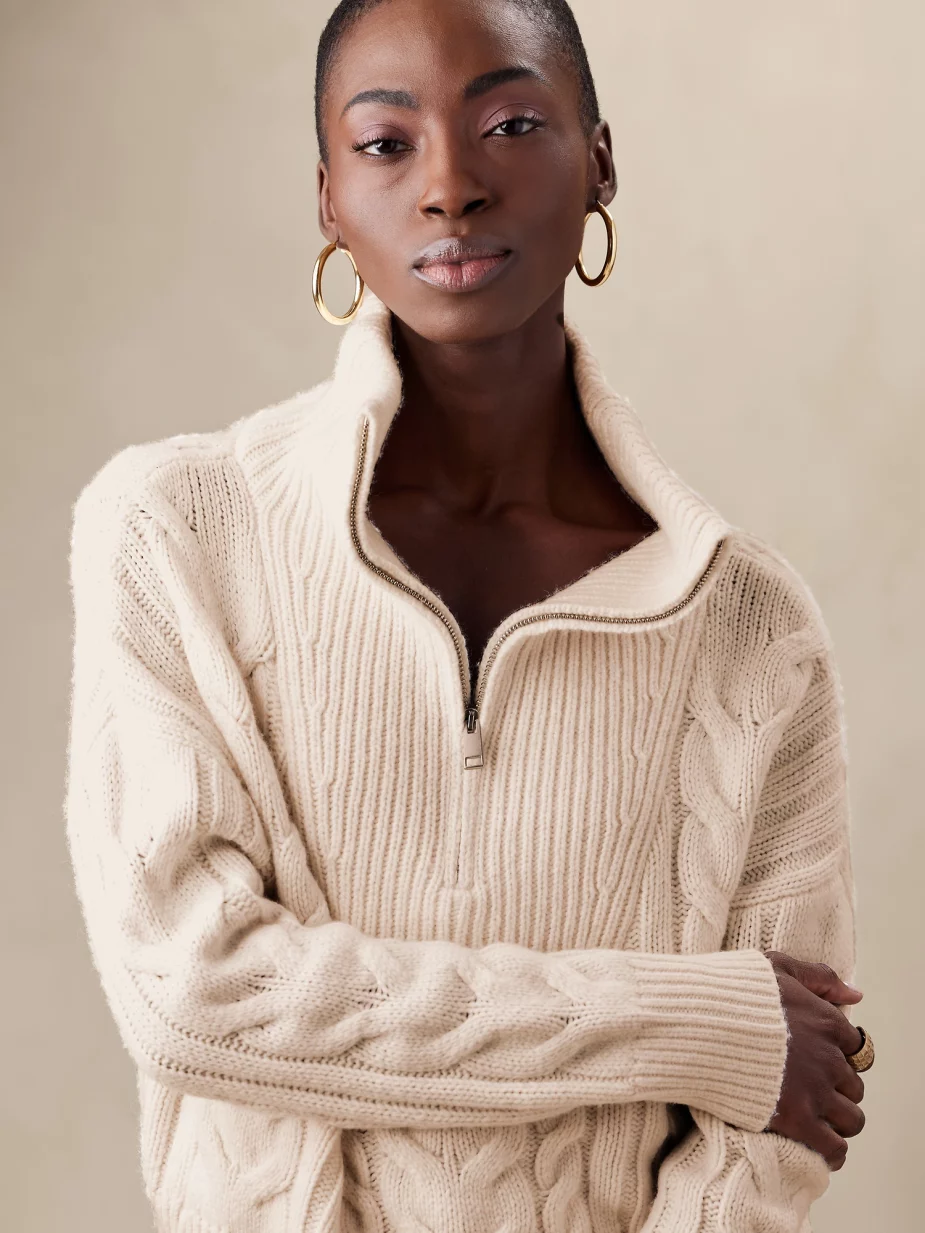 ~La Ligne Bastien Sweater, Stripes (multiple color options)
 SHOP MORE PULLOVERS:
3. Chelsea boot or Bootie with a heel ~Stuart Weitzman Yuliana 60 mm Bootie (four colors)
  ~Stuart 75 mm Stretch Bootie (taupe, more colors)
 ~SHOP MORE:
4. Cashmere Gloves ~Theory's ribbed cashmere fold-back gloves (four colors)
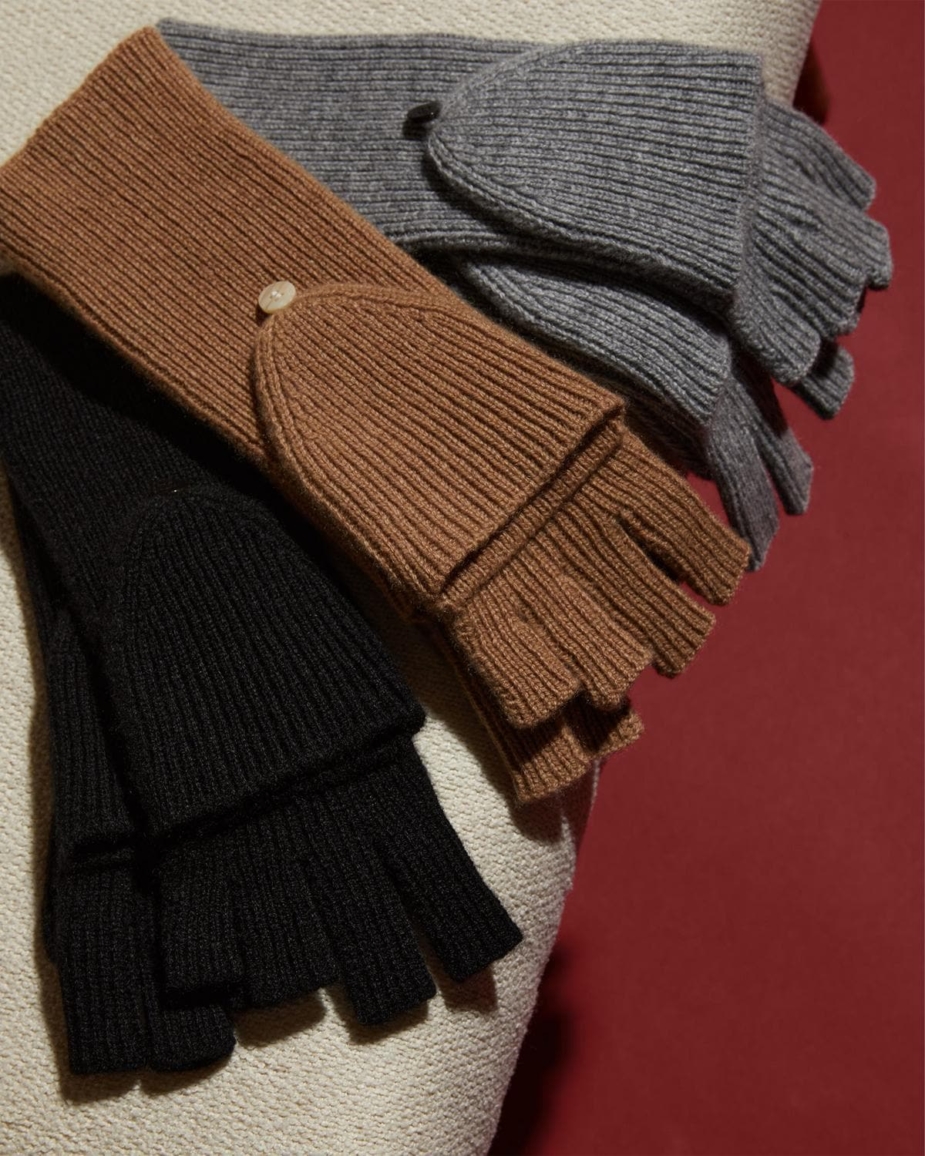
5. Contour Down Coat for walking with the pups ~Lululemon's Down for It All Jacket (four colors, removable hood)
 
6. High-rise leggings with pockets Lululemon's Align High-Rise Pant (three different lengths), with pockets (many colors)

7. Midi-length straight skirts with a high waist ~Reiss Dani button-up Slip Skirt
  ~Vince Crimped Wool Midi Skirt, Navy, use promo code 50OFF350 to save $50 when you purchase $350 or more

8. A scarf for warmth while walking or errands or travel ~Eric Bompard, cashmere voile scarf, many colors

9. A small wallet for stand-alone use or placing in my clutches and crossbody bags ~YSL Gaby, quilted small envelope wallet
  
10. Oversized v-neck and turtleneck sweaters with straight-leg high-waisted jeans Joseph's black striped ribbed merino wool turtleneck sweater (on sale when place in bag)
 ~Agolde black Freya high-rise slim-leg stretch organic jeans (on sale when placed in cart)
 ~Joseph High Neck Luxe Cashmere Jumper in Mauve
 ~Frame high-rise straight-leg jeans
 ~Joseph Luxe Cardigan stitch high neck jumper, cobble stone
 ~Goldsign Morgan high-rise straight-leg jeans
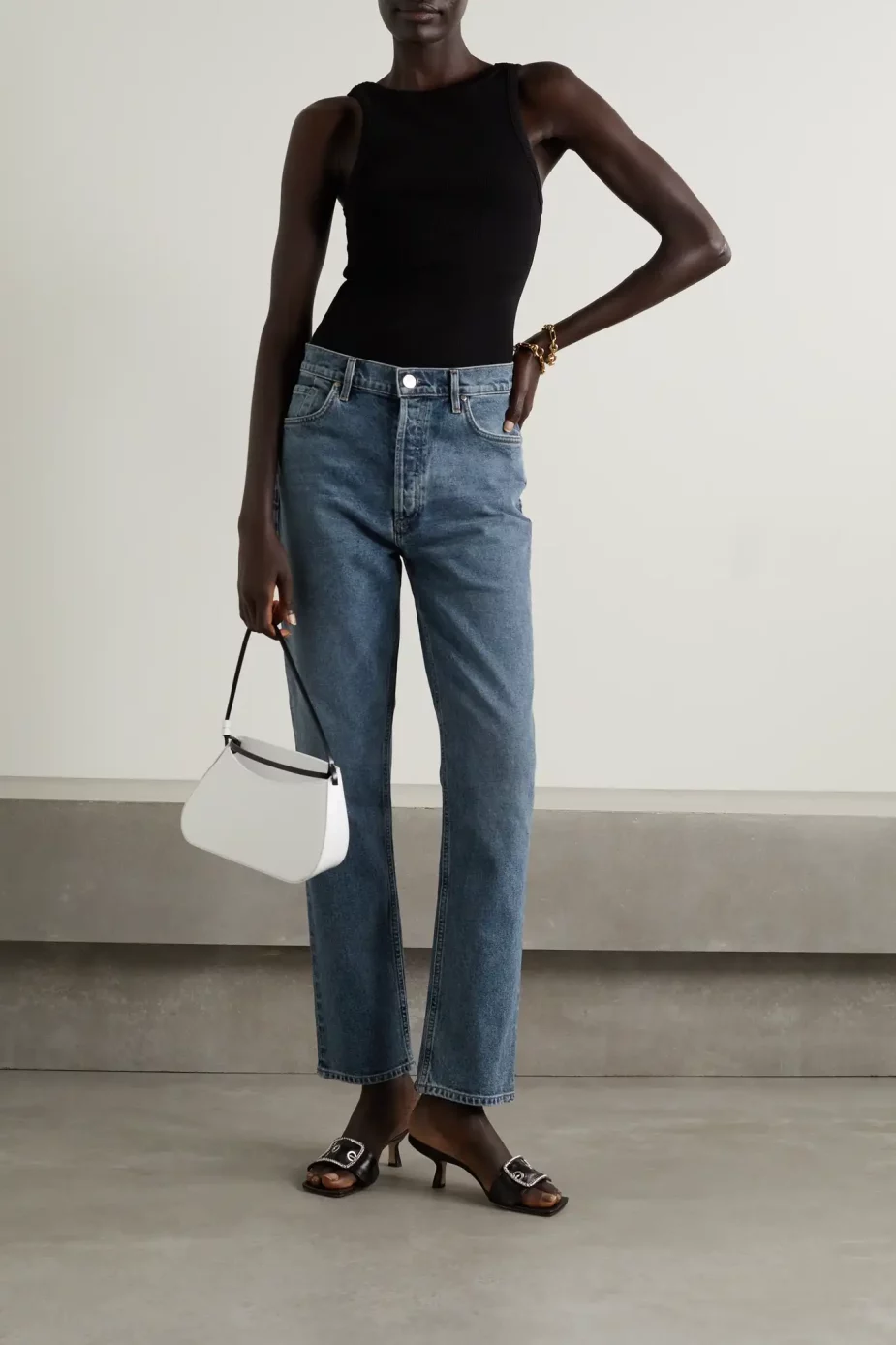 ~Johanna Ortiz Olive Swooning Wool-Blend Turtleneck Sweater
 ~Khaite Danielle High-rise straight-leg jeans
 ~Vince wool-cashmere blend sweater in Sand
 Each of the items in today's list are merely an idea of inspiration as components in what creates the foundation for a fall wardrobe to fit my day-to-day schedule and events. Over the years my style hasn't changed tremendously, but what I have noticed it that is has been honed as I become more clear and thus become more confident to invest in high quality items that I will reach for again and again year after year. Whether going about my daily work, attending an event indoors or walking my dogs outside in the chillier weather, I feel comfortable in what I am wearing on a variety of levels. And I hope you do as well with the items you have in your closet for years to come. Wishing you a stylish autumn season. ~Please note: TSLL is supported by you, readers who take the time to stop by (merci!), peruse and sometimes welcome into your life mentioned and recommended finds. Affiliate links are present in today’s post and may earn commissions for TSLL when you purchase. View TSLL’s full Privacy Policy here.
Petit Plaisir
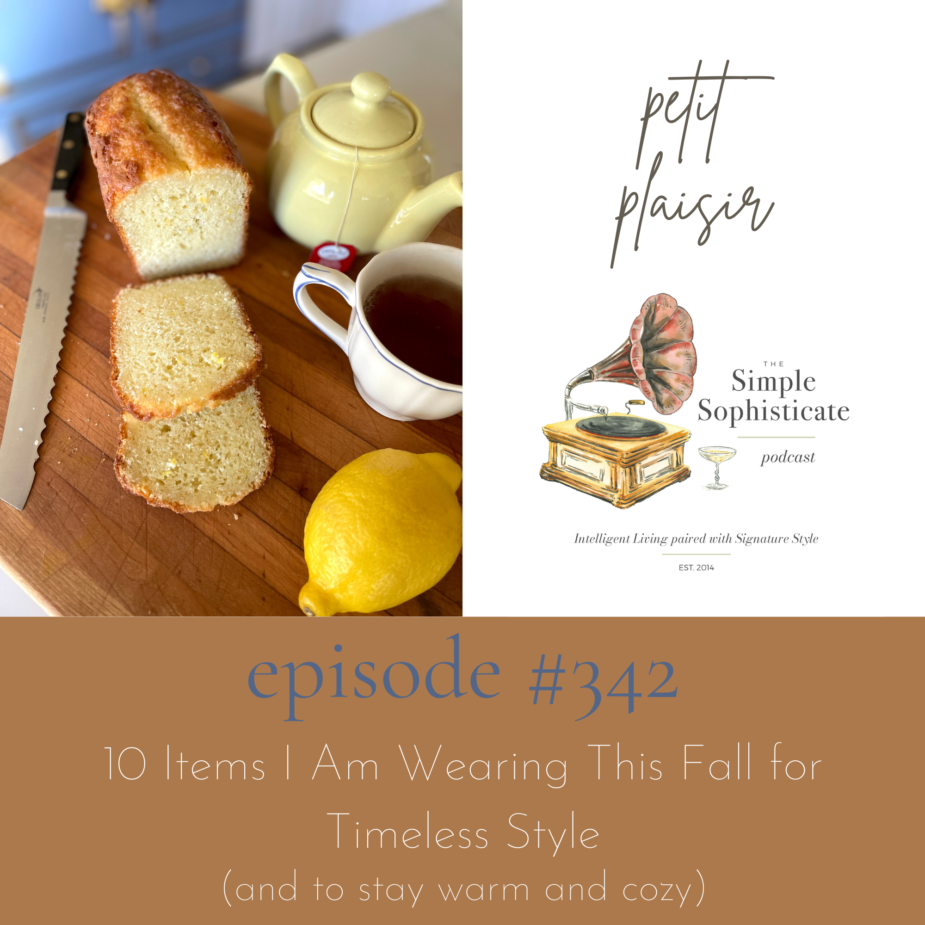
~Annika, tv series on PBS Masterpiece Mystery
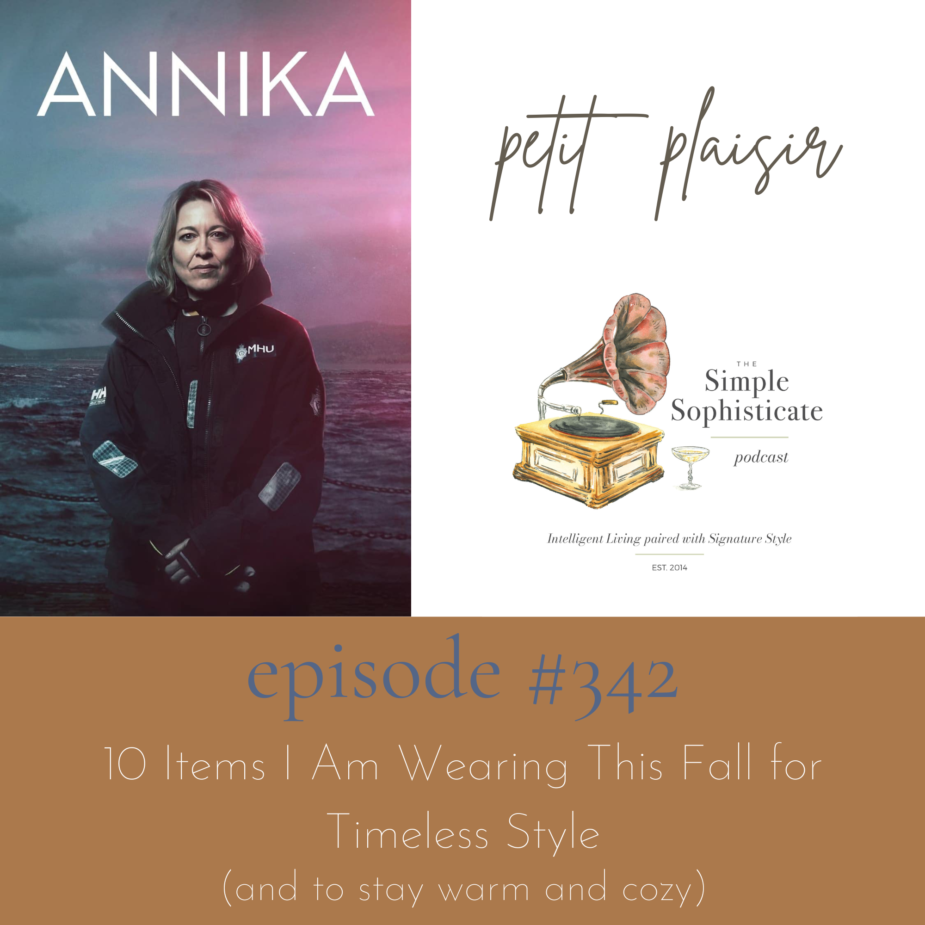
|
Tue, 4 October 2022
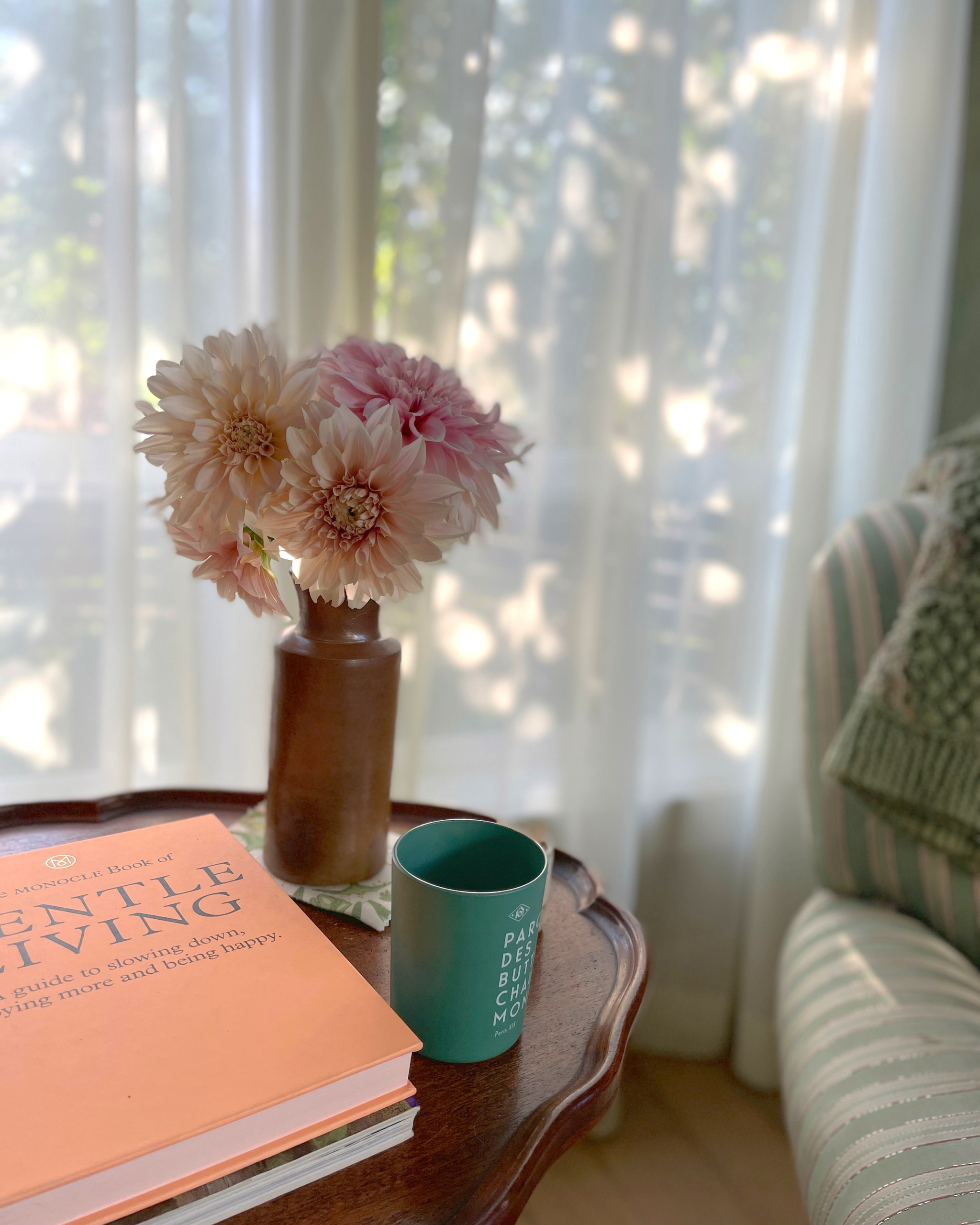
“In a simple and a peaceful cottage with a beautiful view, you will not be dreaming about the palaces or the heaven, because you already have a perfect thing!” ― Mehmet Murat ildan To feel welcomed, to feel deeply at home in a sanctuary, to feel 'cozyed in', almost as though to be hugged without confinement and instead inspire infinite curiosity to explore and play. To me, all of these 'feels' are what comes to mind when I think of the classic English cottage, both inside and out. Over the next many months and years, I look forward to exploring and sharing elements of the English Cottage aesthetic, the interiors, exteriors and the garden of a cottage because as many of you know, my home, Le Papillon, is what I consider to be a cottage. Perhaps it began with watching Nancy Meyers' film The Holiday and the cottage I later learned she had built especially for the movie, Rose Hill cottage, or maybe it was the interiors of the many homes profiled in The English Home magazine that I have subscribed to for over 10 years and continue to eagerly await the arrival of each new issue. Whatever precisely drew me to the English Cottage aesthetic I cannot pinpoint, but I always take notice of how I feel in a space, whether I am traveling and staying at vacation rentals, bed & breakfasts, hotels, or even at friends and family's homes. What makes me feel most at ease? What details attend to my needs to bring me comfort? Where can I truly relax and feel at home even if I am not at home? And mentally I took note, and finally, with my house here in Bend, Oregon, Le Papillon, I have been able to customize, paying attention to all of the details - grand and small that, to me, whilst adhering to the fundamental components of English cottage, create a sanctuary I feel at home, deeply at home when I am here. There are oodles of interior décor components that contribute to creating the English cottage aesthetic, so I wanted to begin with where I began and what is in my own home, Le Papillon. Below I will be sharing pictures and images that offer the vignette, a close-up look at the details discussed here in today's episode/post, and for each image, you will have the option of clicking through to tour the entire space and how I pulled it together (explore becoming a TOP Tier Member to gain exclusive access to all tours of my home, Le Papillon). As shared in the title of today's episode/post, this is part un, and I look forward to sharing many more elements that are in my home in future postings/episodes. First to begin with the history of the English Cottage and Cottage Garden. As Christopher Lloyd and Richard Bird share in their book about Cottage Gardens, "It has come down to us through the ages [to be] a bountiful yet regulated informality." While they are specifically speaking about the cottage gardening approach, the same can be said for the interiors as well. Everything that is chosen is thoughtful, intentional, but it may not appear to be so to the untrained eye. They go on to say, "[The Cottage and Cottage Garden] has evolved through common sense, combines need with enjoyment and is entirely unpretentious." With that definition in mind, let's take a look at the first 15 Key Elements I included in my English Cottage-inspired home, Le Papillon. ~Please note, while I give quite a bit of detail in the written post below, I also share even more in the audio version, so please do feel free to tune in wherever you listen to podcasts. 1.Ignore all trends of the moment at any moment "Ultimately, good taste is a considered point of view, and the courage of conviction even in the face of dissent." —Fiona McKenzie Johnston Before we dive in to today's topic, it is important to differentiate between classic English cottage and Cottagecore, the latter becoming a booming décor trend during the depths of the pandemic, but they are not the same, and the latter is a trend. Similar to the more recent trend that began on social media, the Coastal Grandmother style (both décor and fashion), a trend; however, if something offered by either one of these trends speaks to you, hold on to that. Explore that element and that becomes part of your good taste suggested above in the quote. The problem with adhering to a trend is that by definition, it will go out of style, and a new trend will replace it. The primary (perhaps more unconscious) reason both of these trends rose to popularity when they did has a lot to do with the times we found ourselves: we were seeking comfort, we were seeking something that brought us calm and certainty during some of the most uncertain and unprecedented times we have ever seen across many different generations. This is not a bad thing. Again, if an aspect of a trend speaks to you, there is a reason, and that is how we hone our understanding of what will work for a long duration of time in our homes as we decorate for the life we love living. Secondly, regarding the problem with trends is that you are not decorating in an approach that honors you, but rather following what others approve of, and in such an approach to life in any arena - decor, fashion, life choices - this is never an approach that will lead to true, lasting contentment. So we let go of trends and dare to trust that what we know makes us feel good, feel at home, even if magazines or social media says 'huh?', and what we also do, and this is key, is understand how good design works. The reason I mentioned the need to not just acknowledge what speaks to us about a trend, but also explore it, is because we must understand the décor principle that makes such a decor detail work in that particular way. We'll talk about this more in #2, but I have always been drawn to the expertise mixing and matching of prints the English seem to know how to do intuitively, except I know it is learned, and so I took online décor classes and discovered exactly what works and why, along with many other insider tips and tricks, before I invested in items I wanted to have in my home for a lifetime.
2. Wallpaper, prints, large and/or small The power of wallpaper with prints is that it is an illusion to the eye and actually makes the space feel larger than it is. Unlike with solids either regarding wallpaper or your typical paint job, a solid wall of any color stops the eye. We will talk about this more with upholstery as well, prints while beautiful and artistic, also serve the powerful and necessary purpose in what typically are small in square footage/yards that cottages are. Long-time readers of the blog know I have wallpapered multiple rooms in Le Papillon (six rooms as of this posting), and I have done so all by myself. I didn't begin by doing this task on my own however, but am grateful I had a good teacher. So yes, you can wallpaper on your own, just make sure, as I share in this detailed post, you purchase quality wallpaper, and you are half-way to creating an amazing space. With that said, sometimes the wallpaper will be the guiding detail that determines all other decisions in the room, such as my guest bathroom below. It was my dogged determination to find a space in my house to bring the classic Willow Bough print by William Morris, one of his first creations in 1870, and so when I decided on my guest bathroom, all of the other details had to complement the room that was bathed in willow boughs. However, the wallpaper can also simply complement, and that is what I have done in my foyer by using grasscloth as it provides a warmth due to its texture, but is not the star of the show. As well, small versus large prints, the large prints as you might imagine lead the way, but the small prints complement what the other stars in the room are. Choose the same color tone as those star pieces, but they need not be the same color, although they can and likely should play off of at least one color in the wallpaper. For example, my next project when it comes to curtains is to add roman shades to my kitchen, but as my house has an open floor plan, I need to pay attention to the colors in the Boot & Basket room as well as the dining room which are situated on either side of my kitchen, so my friend, Veronique, an interior designer, saw the green in the wallpaper, noting the color tone that I need to adhere to in order to work with the Provençal blue in my dining room curtains, and told me to find a print with some in green. That gives me direction of what to work for as the curtains will not be the star of the show, but must complement the details around it. ~Here is a detailed post of 12 British Wallpaper Companies to Know
3. Mixing antiques, vintage, consignment finds with new, but thoughtfully considered new pieces This detail of cottage decorating is one of my favorites, and perhaps yours as well, the treasure hunting! Of course, and yes, we need to underscore, that clutter is never a comfort, so always letting yourself purchase what is drawing your eye just because is not a great idea unless it serves a purpose and has a home in your cottage along with being something that caught your eye. Cottages are small, and just like the cottage garden, each item does two things - provides beauty and functionality. Part of the reason it takes time to decorate a cottage is because just because something is beautiful doesn't mean it is functional and just because something is functional doesn't guarantee that it is attractive to your eye, i.e. all of the technology and gadgets available for modern living. Think of it as a treasure hunt and then this searching becomes more pleasurable because when you finally do come across say a newspaper rack/holder that is desperately needed to keep the papers from being strewn across the floor on Sunday morning while you cozy into your reading nook, you will also be welcoming in something that is pleasing to the eye but exercising a function that you need for a tidy home. Overarchingly, this is why it is necessary to mix old and new items. Yes, you will likely have more old in the form of vintage, antique or consignment, but there are just some things that have to be new, certain chairs or furniture to fit the size or height of people in your home. For me, I needed a long sofa and a deep one, so I customized one as it is the star of the room, and the investment was worth it for years, decades even, of cottage style I love but also comfort I needed. (You can see my sofa in many of A Cuppa Moments video chats.)
4. Remove the over-head lighting This rule is not exclusive to cottages, but rather how to create a welcoming home. Nobody looks their best under lighting from above (unless you are young and perfect and blissfully ignorant to the benefits of youth). Overhead lighting also creates a harsh effect that is not warm nor soft on the eye. Yes, there will be places in the home or in your working areas depending upon what work you will be doing where overhead lighting is necessary, but even then, customize it so that you can dim it to your preferred brightness. The only two places I have overhead lighting that go full-tilt bright are in the kitchen and the garage. And in my kitchen, my overhead lighting is on a dimmer. In fact, all of the new light fixtures I have put into my home during my 2-year renovation/customization are on dimmers (advice from British interior designer, Rita Konig - always put lights with dimmers when installing the electric outlets). Even if your home has overhead/ceiling/can lighting, do what I do, and don't use it and better yet, take the lightbulbs out so that they are never used by mistake. This sounds extreme, but you want to feel comfortable in your house, so add the lamps (we will talk about this in a later point below) that create the lighting you want that is in your control; this possible with table lamps, floor lamps, picture lights and semi-flush, pendant or chandelier lighting.
5. Relinquish the idea of perfection and avoid matchy-matchy The beautiful puzzle of the English cottage is that when it comes together delights me to no end, and it is the ability to match seemingly different prints and colors in a manner that fits together perfectly, as though they were meant to go together. How do they do that?! First, let's talk about avoiding the matchy-matchy. It is completely understand why people (and I count myself among them) do this, it's safe and it doesn't 'break' any rules or is not harsh to the eye. However, if you are decorating your cottage, you have broken the rule because a cottage is meant to look almost accidentally put together when really it was quite intentional, but there is a playful element, a daring element that reveals a bit about the inhabitants, what you love, what makes you smile, where you've been, your favorite color, etc. Avoiding the matchy-matchy doesn't mean you can't do it everywhere, but when it is what you rely on in every room, it doesn't reveal you. For example, I have two pairs of matching lamps, one in my living room and one in my primary bedroom. For me, they create balance, a solid, subtle foundation because they are placed (especially the living room lamps) in a space that has a lot of different prints, details and non-matching furniture. So essential, use matchy-matchy not to play it safe, but when it actually provides a value for the décor aesthetic you are trying to create in the cottage. Which brings me to letting go of perfection. A cottage never looks partnered off or symmetrical, but yet it feels balanced. How do you do this? It is easier to learn this skill by looking at whole room pics, so I highly recommend picking up copies of The English Home magazine, but you might have two armchairs (as I do in my reading nook), but they don't match and have entirely different prints. To the casual eye, this appears imperfect and off balanced, but its in balance because they have the same color tone, and that tone is married in the curtains that stand between them. I still have two chairs, but they don't visually look the same, but have the same 'weight' to the eye. The perfection is what you want to let go, but what you create that establishes the balance will be perfect to you. “Be faithful to your own taste because nothing you really like is ever out of style.”—American interior design Billy Baldwin (1903-1984)
6. Ottomans A cottage beckons you to sit down and relax. How do we create an aesthetic that speaks this language? Well, ottomans play a powerful role in the symphony of details in a cottage. I once had two friends come to dinner, a couple, and when they walked through the foyer and into the open-plan, after I asked them to pick any seat they'd like to sit in, they said, "I cannot choose, they all look so comfortable. Each one is asking me to sit down and relax." That is what I hoped I could create. That was the goal even if the English cottage style isn't their preference, there is a feeling I want to create for everyone who walks in, and that is the feeling when it comes to choosing my furniture. Ottomans by nature ask you to put your feet up on them, to essential stop doing, and just be. There are so many different styles and sizes, so have fun finding the right ones (yes, plural) for your home. As I look around me, I can count four ottomans or hassocks (smaller and lower to the ground) that are in my house. They all perform a function, but their fabric or finish also work in the space aesthetically. One matches the chair it is paired with but it also is the hassock so my pups use it as a stepping stool to climb up into the chair. I will admit an error on my part because I have another armchair and purchased its matching ottoman. I love having the ottoman, but moving forward I might someday have it reupholstered to not be so matchy because there is too much of that one fabric in that corner. This is how we learn, and if we purchase quality pieces of furniture then down the road when we want to change it up, all we have to do is reupholster, not purchase an entirely new piece. Saves money and is a sustainable approach to decorating.
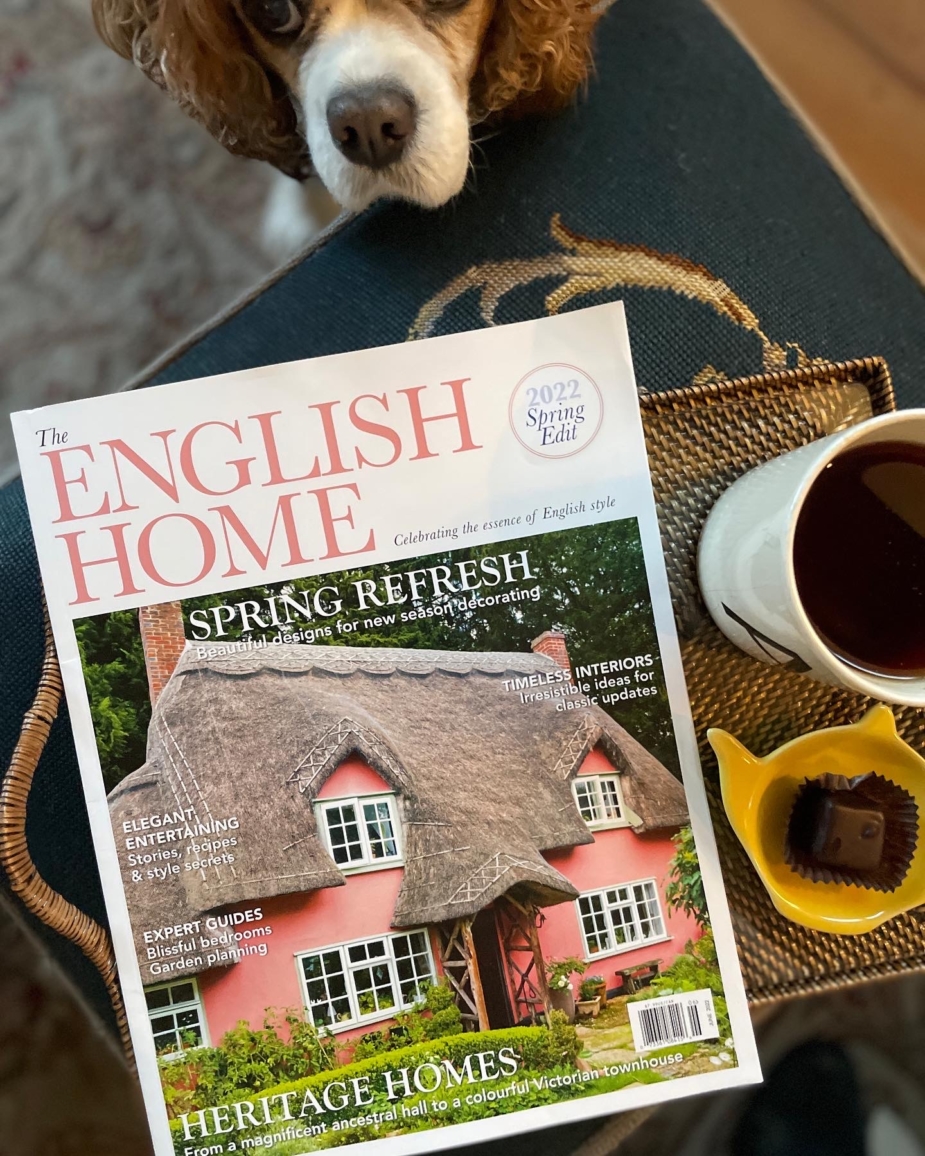
7. Reupholster furniture you love Speaking of reupholstering. ☺️ One of the best arguments for purchasing high quality furniture is because of what we just talked about in the conclusion for #6. Likely your tastes will evolve a bit or a lot, but when you have a favorite well-made piece of furniture, you can have it for life. The upholstery may change, but having an ideal cozy chair or sofa or dining room chair is near priceless for an item that you will have to pay well for. I have reupholstered a chair I inherited from my late Great Aunt and Uncle's home, a chair made in the 50s, had the cushions redone as well as the fabric to one that worked in my office, and each time I look at it, yes, I love the look, but it also holds many wonderful memories that make me smile. I have also purchased consignment furniture that I love structurally but not the fabric (often this will save you money because sometimes the fabric is what is keeping it from being purchased), and had it reupholstered (my office chair for example that you can see in September '22's A Cuppa Moments).
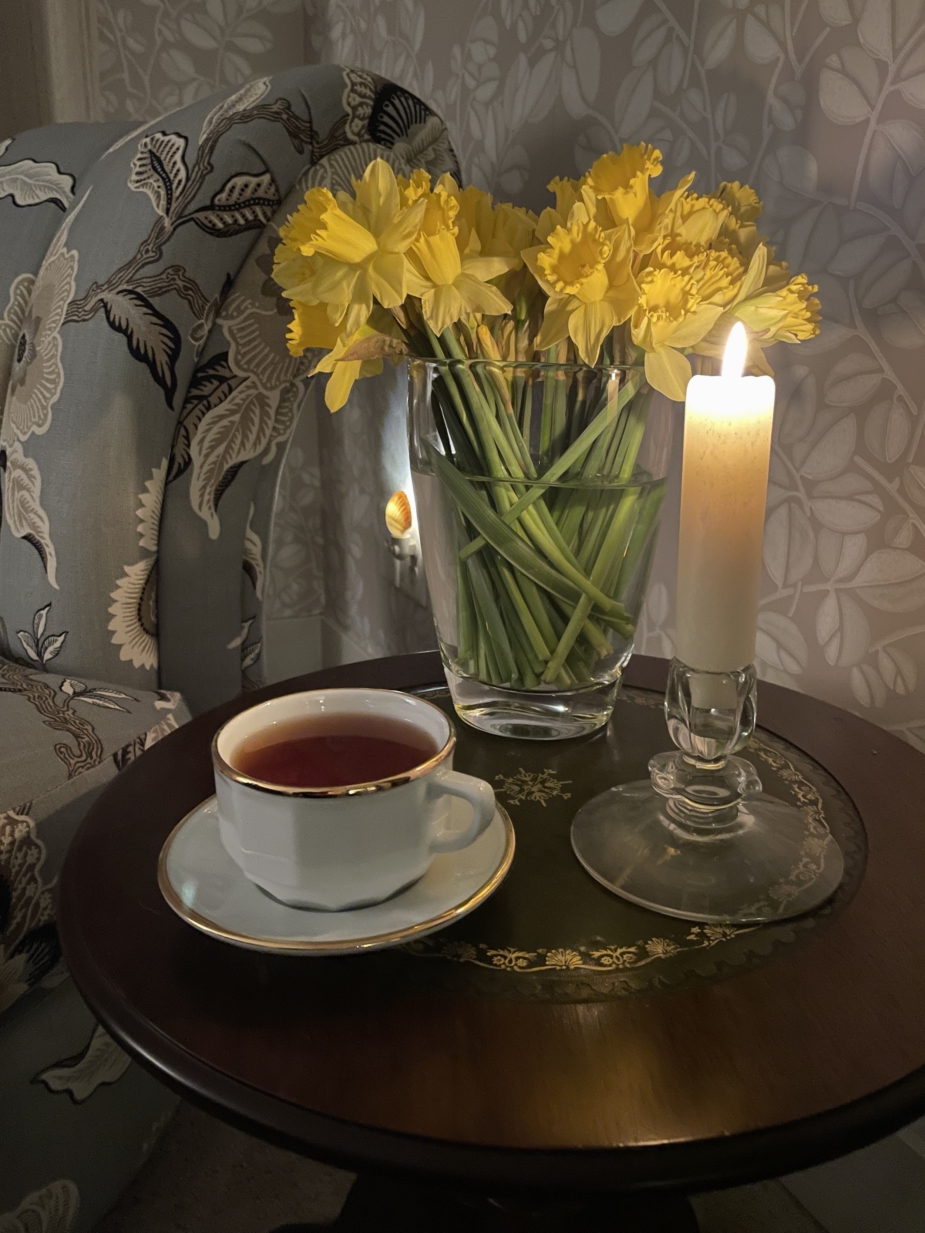
8. Have fun selecting or customizing your pillows, put them nearly everywhere I once heard a man, he happened to be American, but I think that is important to note, say he would never want pillows anywhere in his house (he had recently finished entirely remodeling his house). Indirectly, he was insinuating that they were feminine and he didn't want to appear 'weak'. Long story, but needless to say, I wanted to say (but bit my tongue), you are missing the purpose of pillows dude. Admittedly, when pillows are used just to 'look good', then yes, by all means get rid of them. I agree on that, but there is a purpose to having pillows if they are well made and in the right shape for the piece of furniture they are placed in. For example, on my George Sherlock sofa, which is incredibly deep, you cannot sit upright without having a large 22" square pillow behind you, and it must be a somewhat firm pillow. So over the past summer, after more than a year of figuring out which fabric would work best in the space of my living room, I had six 22" square pillows made with five different fabrics. They serve a purpose - the ability to sit comfortably, can be rearranged if you want to lay down, and they also are covered in fabrics that work with the sofa and the space. ~Tour my primary bedroom and learn about the three different sizes of pillows I chose and why I chose them.
9. Curtains, tall, complementary curtains for rooms of cozy-ing-in There are a variety of different curtains to explore adding to your cottage, and I look forward to touching on many of them in future postings, but today I would like to share with you where to add tall drapery in your cottage: anywhere you want to relax and unwind. Tall curtains, some ceiling to floor, but at least as tall as you and likely taller, and then draping to the ground, soften the space, enable you to change the amount of light that streams through, and finish a room. What rooms am I talking about? Bedrooms, reading nooks, some bathrooms - near a soaking tub perhaps, dining rooms. Keep in my all that was shared about fabrics and mixing and matching prints above, as the same rules apply to finding what is the best fabric for your curtains.
 ~Tour the curtains in my dining room (right) and reading nook (below).  ~Learn more about the wool, semi-sheer curtains in my primary bedroom. ~Discover why I chose the linen curtains that hang in my primary bathroom.
10. Table lamps, invest and have fun As shared in #4 above, once you have removed or no longer use the overhead lighting, you need light coming from somewhere if you don't have enough natural light, and this is where table lamps and floor lamps come in. Of course pendant and chandelier and semi-flush work well also, primarily in the kitchen, entry/foyer, mudroom, hallways, offices, but additionally to all of these rooms and especially to living rooms and bedrooms, add light that is at slightly above eye level when you are sitting, then add a shade that works in the space aesthetically. Don't feel you have to use the shade that the lamp comes with if that is the case. One rule of thumb Rita Konig teaches is wherever someone can sit down, make sure they have a place for their drink and light to read. Again, add dimmers if that is an option with your lamps, but this design detail has been a conscious choice upon moving into Le Papillon, and I have now added 3-4 lamps to the previous other lamps I have had for many years, some I have since changed the lamp shade to work in their new space.
11. A fireplace, wood or gas, adorned with thoughtful classic, signature attention If you are fortunate to have a fireplace in your cottage, whether it is a traditional wood-burning or a gas fireplace, even if you don't use it very often or at all, decorate around it thoughtfully keeping all of the ideas shared above and below in mind. I recently redid my mantle around my gas fireplace because it was modern in its aesthetic. I changed out the title, using a classic cottage choice - Delft tile - added a wooded frame and even added two scones because again, following Konig's advice, wherever you are going to sit, have a place for a drink and lighting to read a book, as I have two chairs that sit next to the fireplace, I needed a place for a lamp and there is not enough for a table, so I placed the light in the form of scones by each chair. On top of the mantle, be thoughtful, trying not to clutter, but don't let it be too sparsely adorned either. Have fun, and change it up when you are inspired to do so which leads me to #12 . . .
12. Strike a balance of intentional bountiful decor, yet not excess Sometimes cottages without an understanding of how to create cozy without clutter can become overwhelming in too much upholstery or too many 'cute' details. That to me is claustrophobic. Be bountiful by the way of, avoid being minimalistic, and so long as each item fits the two requirements - beautiful and functional - you won't have an excess.
13. Invest in a quality goose or feather down sofa I mentioned above that I have a George Sherlock sofa. This was a big investment item, but after having lived with a consignment sofa that was not well made for many years and before that a sofa, the best I could afford at the time, for 15 years, I wanted to purchase a lifetime sofa that was both comfort and aesthetically appealing in the cottage aesthetic that I love, so I invested and customized with fabric that works in my space. What does that mean? Plush fillings of down and feather to the firmness of my preference and a structure that will last my lifetime. I may reupholstered at some point waaaay down the road, but I will always keep this frame. It is sturdy and provides the comfort (i.e. space and length) that I need for someone who is tall and hosts dinner parties where many people need to find a seat in a small space that is my house.
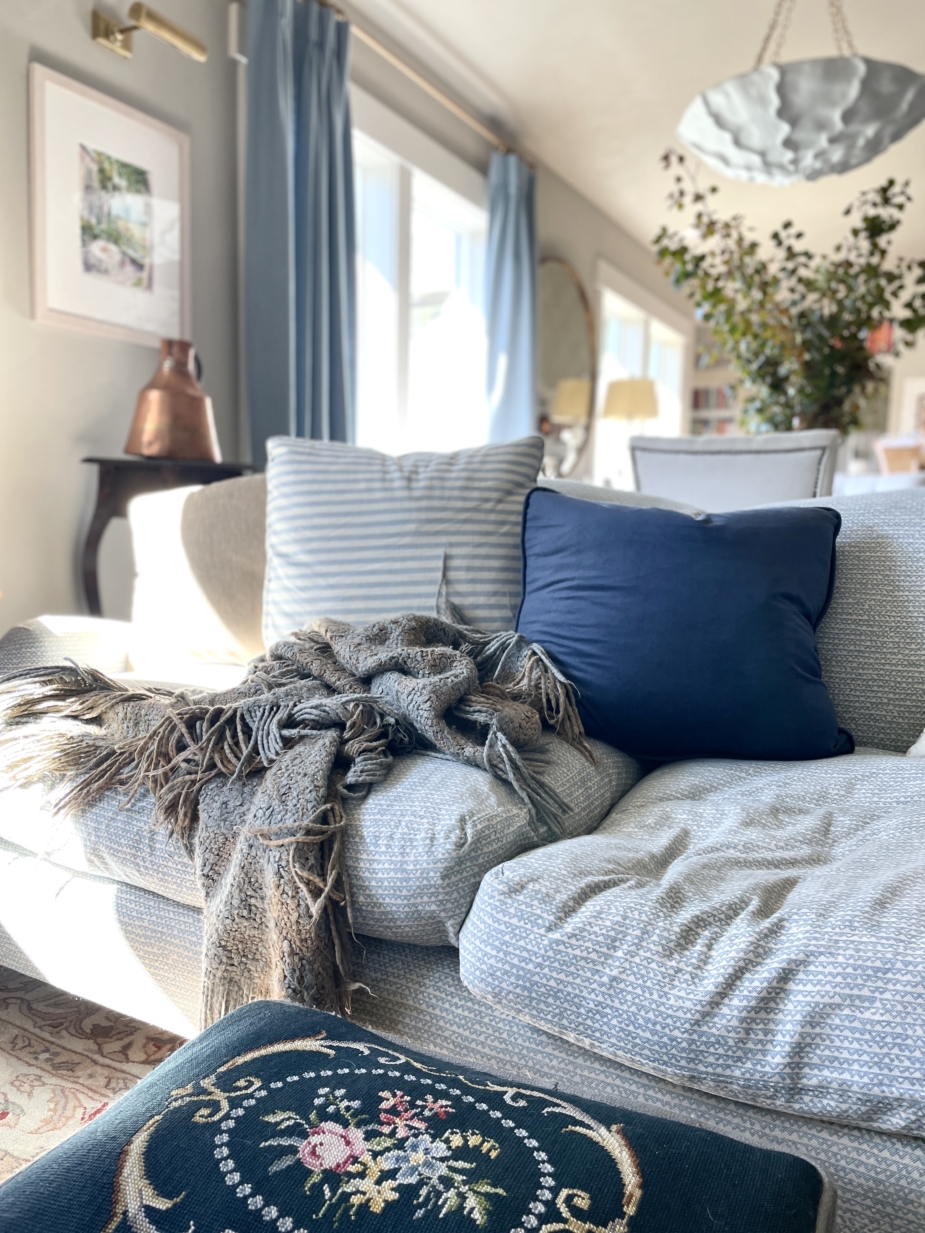
14. Upholstered chairs of all types The upholstered detail is a must, but not everything needs to be upholstered. This is where that balance must be struck. You will want some wood and hard structures - whether in the entire make up of the piece of furniture or in the feet or arms or the chair, table or sofa. Balancing soft and hard surfaces, appropriate to each space calms the eye and also communicates what the use of that space is.
15. Design a cottage that considers what makes your dogs and/or cats feel at home A cottage without a pup or a kitty is like living life without smiling. Our pets are just part of what makes our cottages feel like our sanctuary. Of course there will be times in our lives when we do not have pets because we know how much they take of our heart and it takes time to grieve and know when or if we will welcome a furry four-legged companion into our lives, but either way, knowing we have a home that our pets will feel as though they are welcomed as well is part of the key essentials to decorating and customizing a cottage. The first 'customization', as I shared in my new book The Road to Le Papillon was for my pups: a dog door installed into an existing solid door. Over the first year of my living in Le Papillon I also added a screen door to my garden porch and small fenced yard that also had a dog door, and there are so many other ideas to consider when making the human home be a pup or cat's home as well. From having cozy beds for each pet placed in a spot in the home that is with people while we go about our daily routine, creating their dining area to be inviting, attractive to the eye and in a safe but still part of the house spot where they can eat in peace, visit the water bowl at their leisure and not feel rushed, and something that is vitally important to their mental health, just as it is for humans, is to have ample natural light streaming into the cottage as much as possible. A priority when I purchased my now home was knowing that my pups had direct access to the fenced lawn, although they are never kept outside, and can always come in through the dog door. As well, having a garden for them to toodle about in with me is as much for my mental health as it is or them as we spend many hours between February into early November (if the weather permits), sitting outside, sometimes on the porches, but also on the grass in the shade or out in the sunshine, cutting flowers for bouquets, picking berries together (the strawberry pots are our favorites), and just genuinely feel as though we have our own 'entertainment center' of sorts because we have our own garden, no matter how small it is. As I keep it organic, I know they can poke around safely, and always know which plants are poisonous should they want to chew on plants which typically is only when they would be pups. Needless to say, a home for me is not a home, and in my case, my cottage is not a home without my pups, and it is a true joy and delight to know that they feel just as comfortable, safe and welcomed especially when we arrive home from a long trip, and I observe how they move about almost in a sense of relief to be back in their space because they are a big part of my life and joy.
 Norman enjoying his new bed as shared in the episode directly next to my office chair, so in easy reach of petting and staying apprised of where Mom (me) is going.
Decorating the interior of our cottage is a process that takes time, and if the goal is to create a cottage where we feel most at home, that means we must be patient. Perhaps we don't have a house that is technically a cottage but hope to one day, as I shared in this post, you can always begin purchasing items that will be perfect for a cottage you will live in some day. So many of my current pieces I use and love were purchased years ago (the tulip chair that I reupholstered for example, was purchased more than 20 years ago), and it is this time that creates the cozy, because the pieces are more than just 'things'; they hold memories and remind us of either people, or times in our lives that were pivotal, powerful and deeply personal to our life story. Such a feeling cannot be purchased on demand to create a cottage that is our sanctuary.
As I sit and type this episode/post, my two pups are snuggled up in the living room with me, yes, after one year since the passing of my sweet boy Oscar and with much thought, examination and especially consideration for what would be best for Norman, we welcomed a little girl into our lives. Not to replace, for she is beginning her own unique life story and journey just as Oscar had his and he will always be held dearly in our hearts. I will be gradually sharing more about her in the coming weeks and months, but if you are a TOP Tier Member, look for a proper introduction in next month's A Cuppa Moments. Now to this current moment where I find myself in my cottage on a sunny fall afternoon, my gentleman boy Norman is in his favorite chair that was handed down to me from my parents and to them from a friend, and my sweet little girl is nestled next to me on the English sofa I spoke about above draped with blankets I have had from many different chapters in my life and the pillows created after working with my dear friend Veronique and fabric from a small business based in England whose fabric when I saw it, I said, I will find a place for it as it brings a smile to my face when I see it. This is home. This is comfort and cozy and calm, and it took years to reach this point, but it feels as a cottage should, personal to the people who call it home, as though it is made for them to just be, nap, read, rest and enjoy the everyday. Today's list was hard to keep to just 15 items, so rest assured there are many more items I will share that focus on the interior décor of a cottage along with the exterior and garden. I look forward to sharing them with you so that you too can create a cottage you love living your life and savoring your everydays. Thank you for stopping by and tuning in. ~Peruse all of TSLL's Remodeled Rooms here, and to view any post individually, explore becoming a TOP Tier Member for exclusive (and ad-free) access.
SIMILAR POSTS/EPISODES YOU MIGHT ENJOY
Petit Plaisir ~Chicken Schnitzel and Lemon & Herb Salad
 ~The Simple Sophisticate, episode #341~Subscribe to The Simple Sophisticate: iTunes | Stitcher | iHeartRadio | YouTube | Spotify | Amazon Music |
Tue, 20 September 2022
"The best day in your life is the one on which you decide your life is your own. It is an amazing journey, and you alone are responsible for the quality of it. This is the day your life really begins." —Anonymous We wake up each day, often in our own bed, in the home that is ours whether directly or indirectly, and our mind too begins to wake up as well. The wheels turn by habit, and it is the habits we have cultivated that determine how we perceive the world, its possibilities, therefore our possibilities, the possibilities that the day will bring. Not expectations, mind you, which are different and actually distinctly subtly ruinous as when we have expectations, we close our minds off to any other possibilities that may delight, enliven, and deepen the beauty of the day. To awake each day and to hold our minds open to what could be, rather than narrowly focusing on what must or should be, our lives begin to change in the most amazing and beautifully wonderful ways. So how do we give ourselves the best chance to make today the best day of our lives? Well, it all begins with each of us, as we have the leading role in our story that is our life journey. Today I would like to share with you 7 ways you can give the best chance to making this the best day of your life. ~The Simple Sophisticate, episode #340 ~Subscribe to The Simple Sophisticate: iTunes | Stitcher | iHeartRadio | YouTube | Spotify | Amazon Music |
Tue, 6 September 2022
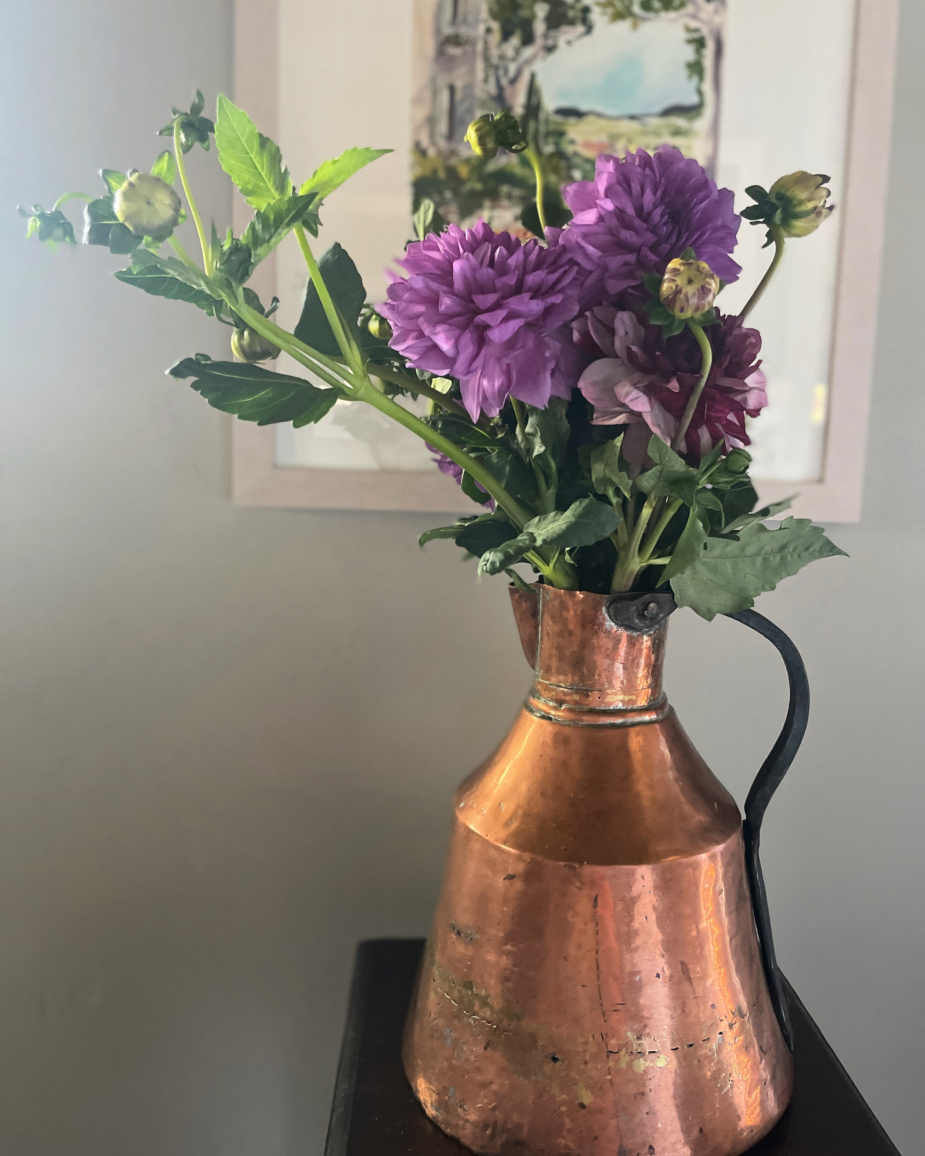
"The paradox of [contentment] is that it doesn't matter about our situation of life as meditation gives us freedom in the mind, but [when we cultivate contentment] we want to try to create an environment that is good for our body and mind." —Andy Puddicombe, Headspace Welcome to the premiere of the 9th season of The Simple Sophisticate podcast. In September 2014, the podcast debuted, and continues to premiere a new season each subsequent September. If you are new listener, be sure to explore all of the past episodes located on the podcast page here on the blog, and if you would like, begin with episode #1 which is the most downloaded episode of the entire show. I want to take a quick moment to thank the more than 1,050 listeners from around the world who have written a review for or ranked the show on their preferred podcasting platform. I try to share listeners' reviews on episodes of the show as my way of thanking you for taking the time for sharing what you enjoy about the podcast because it genuinely makes a difference, and new and potential listeners read what you share, taking note to find out what this show is all about. And most importantly, I know you have many things that occupy your attention, and ranking and especially reviewing takes time, so thank you very much for giving of your time. (below is a snapshot of the past couple of weeks of the show, and you will see in the upper right-hand corner the total number of reviews and rankings)
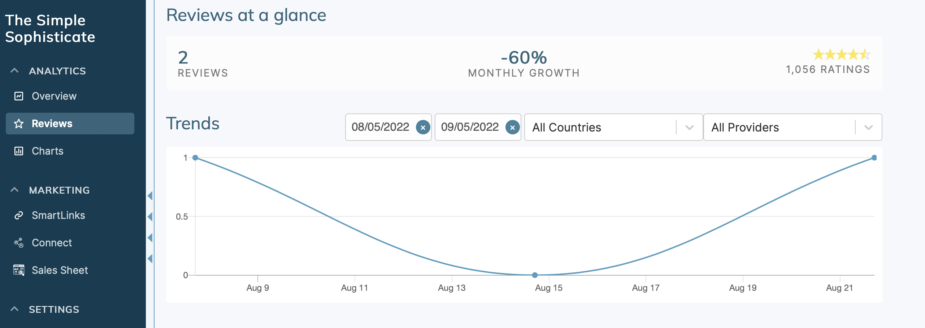
The Podcast has moved to Wednesdays! As you no doubt have noticed, today's podcast episode is appearing on a Wednesday and that is not by accident. Moving forward as I began sharing this past summer, the podcast will share new episodes on the 1st and 3rd Wednesday of each month. The reason for moving the show from Monday to Wednesday is to accommodate a work week that honors when I have the most creativity and time to give to writing and producing the show. For the first 6-7 years of the show, I wrote, taped and produced the show over the weekend due to my teaching schedule during the work week; however, now that I am exclusively writing and can design my own schedule, I want to dedicate my Mondays to writing each new episode and Tuesdays to taping and producing so that I can bring a fresh new show to you every 1st and 3rd Wednesday of every month. With that said, there is still inspiring content to kick off a brand new week on the blog in the form of the weekly Monday Motivational post that will be shared every single week so long as there is a Monday in it (which there always will be!;)). Be sure to check out this week's Monday Motivational post here, Saying No to a Culture of Non-Truths and Finally Finding Inner Calm. Now to today's episode which concludes with two Petit Plaisirs as we celebrate the commencement of a new season.
"The paradox of [contentment] is that it doesn't matter about our situation of life as meditation gives us freedom in the mind, but [when we cultivate contentment] we want to try to create an environment that is good for our body and mind." —Andy Puddicombe, Headspace To live a life of contentment is to live a life of inner steadiness, a feeling of being grounded and self-assured (not to be confused with arrogant and all-knowing) no matter what is swirling around you outside of your mind and body. I share on the homepage of the blog and again on the Introductions page of TSLL the definition of True Contentment which is not a term most people are familiar with. Happiness, yes, most people think they know what happiness is, but Contentment, rarely uttered and therefore rarely understood, and therefore, many are less likely to understand the awesome gifts and elevation to the quality of your life it can bring. I took extra time when we were redesigning the blog last year to be very clear about communicating what Contentment is to new and current readers, explaining how Contentment, while different from happiness, is absolutely related. Take a look below at the distinction.

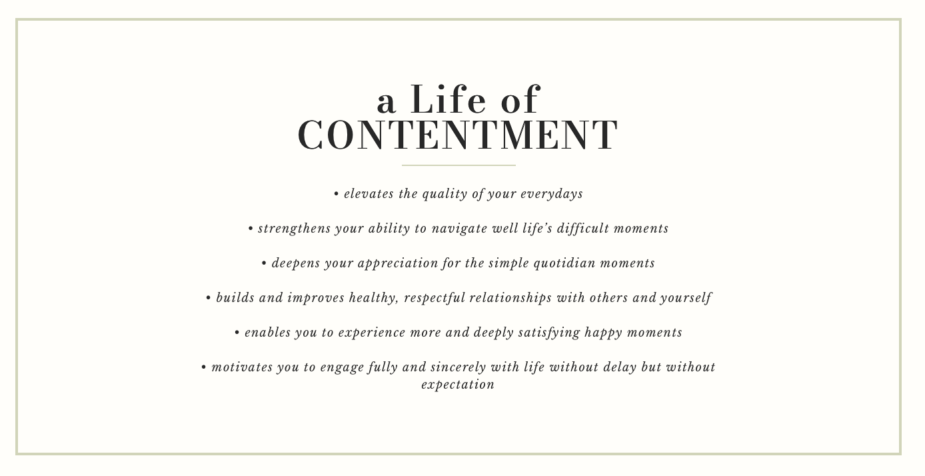
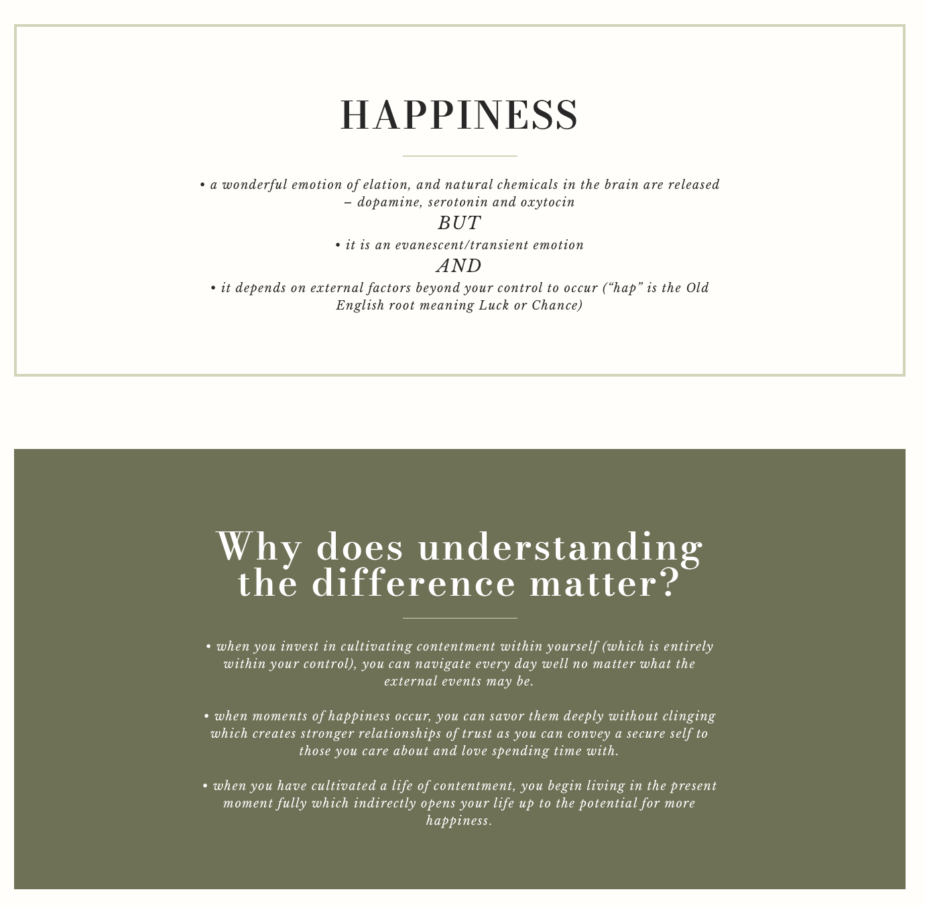 For today's episode, exploring the paradox of contentment, I am going to zero in on the first bullet of the list above in the green box: when you invest in cultivating contentment within yourself (which is entirely within your control), you can navigate every day well no matter what the external events may be. But first, let's talk about what a paradox is.
The definition of Paradox: a seemingly contradictory statement involving two (or more) ideas that initially are perceived not being possible to exist simultaneously, but upon investigation and further examination, state a truth. The paradox of contentment begins and requires that we begin with becoming a student of mindfulness. Through meditation (of which there are many ways to practice - you don't have to be sitting down, you can practice walking meditations and many other styles, so be sure to find one that suits you), you begin to gain more awareness of your thoughts, and are then, with consistent practice and time (i.e. patience) begin to step away objectively from your thoughts and assess them rationally, noting why they arose, what needs are not being met, etc. because you become a more honest student of yourself. Fundamentally, living a life of contentment doesn't just happen; it is a choice, and a choice we choose over and over again, but because we are consistent in our choice, we gradually begin to see the benefits of doing so and the choice becomes easier and easier and then becomes a healthy, constructive habit that is foundational to living our lives well. A more peaceful and rested mind; a mind for decision-making that has more clarity; a kinder, less defensive engagement with the world and to ourselves; and many more benefits (explore TSLL's Archives in the category of Contentment to discover them all). Let's break that down. Contentment is all about cultivating inner peace and calm regardless of what is going on around and outside of us, of which we have no control. It is when we begin to live a life of contentment that we begin to, as Andy Puddicombe's quote above states, "create an environment that is good for our body and mind." The latter half of this paradox is that our outer world begins to improve, change and reflect the peace and calm we feel inside. Directly, this change in the outer world, is not guaranteed, because we don't have control over anybody else's choices but our own, but how we bring ourselves to the world, how we engage, the decisions we make, what we prioritize, how we think and thus how we communicate, what we say, how we say it, if we even choose to say anything, is the energy that determines what we will experience in ways we cannot predict. And as you will begin to see, that constructive brave and loving energy is given back to you, and you begin to experience the living of your life in a more joyful way. Gradually, through meditation which strengthens the mind, Puddicombe shares, "you begin to create the conditions both internally and externally, for peace of mind." One of the most difficult parts of choosing to live with contentment and accepting the above paradox to be true is that we cannot know when or how all of this will occur. As humans, our Lizard Brain wants to know. And if we cannot know for certain, we don't want to dare waste our energy, but here's the irony in the refusal to invest in contentment. By choosing to live a life of contentment, you actually fuel yourself instead of drain yourself. You won't be wasting energy by learning how to cultivate contentment. You will be giving your life a deep breath, an energizing boost that on great days will take you even higher and on difficult days will sustain you and help you to healthily navigate through. Immediate versus distant results. Or more directly, short versus long term results. Let's take a look at the difference. First of all, I'll be honest, as humans, and especially in our culture of immediacy and shortened attention-spans, we want results immediately. I do as well. Count me on that list. We want to know if something is going to work before we invest. Of course, it will depend on what you are looking to invest in, but when it comes to your peace of mind which is a core component in your mental health and well-being, relationships and how you engage with the world in your place of work, community and home, it is hard to imagine anything more important to invest wisely in. And most substantive, deep life affecting investments take time to render their benefit. Sometimes the benefits are what never have to experienced because they have been mitigated by making the wise choice, and other times, the benefit of having clarity about what our heart and true self needs takes time because it asks us to be courageous up front, to take a seemingly huge risk up front without any promises, and then stay the course and continue to be a student, continue to apply the skills, continue to practice healthy daily habits, but then all of a sudden, you stop and look around you, and you are expressing gratitude for having cultivated loving relationships, a career that gives you purpose, a life you enjoy living each day and a world that is progressively improving. These awesome things take time, but they also take conscious effort and a brave person to ground themselves first to discover how to live well, and that starts with living a life of contentment. The paradox of contentment demonstrates that the most difficult part of living a life of contentment is at the beginning when you are just starting to dare to trust that cultivating the necessary skills of self-awareness, mindfulness, etc. Why? Because likely the environment you live and/or work in, the relationship (maybe not all) that you are engaged in, don't nurture the values you are trying to strengthen. However, with consistent, intentional effort, because you are living a life of true contentment, you begin to have the strength and trust in making different decisions that build relationships and an environment that does support how you want to live, and because you are surrounding yourself with such an environment, it becomes easier to live the life you had envisioned when you began the journey. Below are a few examples of how our outer world begins to change and as a result of living a life of contentment, further nurturing the values of our choice.
As we all step into a new season, and in many ways a new year, as I shared in Monday's Motivational post, while it takes time to see the benefits we consciously wish to welcome into our lives, it seems that far quicker than we might predict, the beauty of our days and life present themselves and we are experiencing them every day, in everyday moments. Thank you for tuning in to today's episode and the first episode of Season 9 of the podcast. I have two Petit Plaisirs to share with you, and look for a brand new episode (episode #340) on Wednesday September 21st. Don't forget that the 5th seasons of The Simply Luxurious Kitchen cooking show kicks off this coming Saturday, September 10th right here on the blog. Look for a trailer of the new season to be shared later this week on TSLL.
Petit Plaisir ~The Split, BBC series on Sundance

 ~The Simple Sophisticate, episode #339~Subscribe to The Simple Sophisticate: iTunes | Stitcher | iHeartRadio | YouTube | Spotify | Amazon Music |
Wed, 17 August 2022
It's been said that taking the Eurostar (which runs under the English Channel, connecting London to Brussels, Paris, Lille, Rotterdam and Amsterdam) is much more like taking a plane ride than taking a train ride, and in many respects, I would have to agree. Why? It's swift, it's non-stop and there is wonderful service and amenities for comfort as you drift along in either direction. Today's episode/post is for the first-time traveler choosing to take the Eurostar and especially for those of you like me, who don't live in Europe or Britain and want to see as much of the two countries that you love during one trip with ease. I booked my first ticket on the Eurostar in 2012, boarding in London, destined for Paris. Riding Standard (aka Coach) with my traveling companion, the ease of having your luggage with you, sitting in comfortable seats with spacious seating arrangements all the while knowing the only stop will be your stop eased my mind as it was the first time I had traveled abroad to Europe since 2000. Fast forward to 2022, and I booked our Standard Premiere tickets (there are three classes - Standard, Standard Premiere and Business Premiere), leaving Paris, departing for London. The upgrade was lovely and worth the additional space, a bit quieter (although Standard was fairly quiet as well), and the upgrade in dining service was oh, so good. But I am getting ahead of myself.
~The Simple Sophisticate, episode #338~Subscribe to The Simple Sophisticate: iTunes | Stitcher | iHeartRadio | YouTube | Spotify | Amazon Music
|
Sun, 14 August 2022
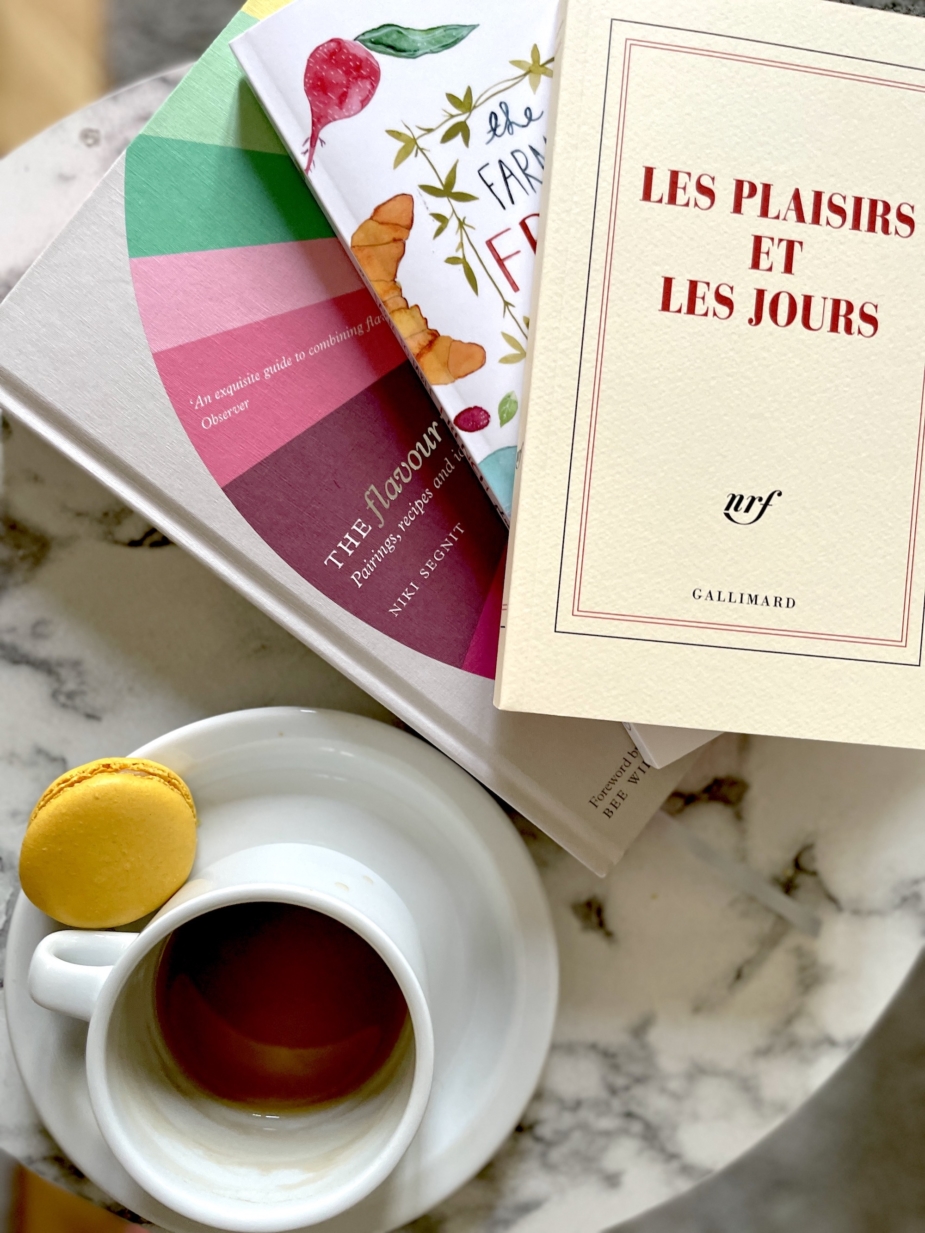 Since the beginning of TSLL blog in 2009 and with the podcast when it began in 2014, I have regularly shared French-inspired ideas to incorporate into our everyday routine (be sure to check out Podcast Bundle #2 for many of these episodes). And the more I observe and savor how such choices elevate my life, as they become habituated, mature and marinate so to speak their way into my way of living, I discover how consciously welcoming such details deeply affect a positive change in how I move through my days. For example, the muscle of savoring is strengthened, and I see more readily minute details to appreciate whether in my own home life or when I am out and about. I now more easily and without apology delight and exude my excitement without editing because it is not others' approval I am seeking when I, for example, get a good night's sleep that is in large part enabled by breathable sheets - à la linen! or when a flower blooms from a seed sown years ago, sitting next to an herb or a berry, planting inspired by the idea of cultivating a potager. After more than a decade of welcoming such changes into my life, there are many that remain and feel a part of me, as though I could not imagine living any other way because it simplifies as well as adds a touch of luxury to my life as well as functioning just as I hoped it would and then some. While some on this list may not be exclusive to the French culture, it is in my exploring the French culture that I was introduced to the idea (for example, #1 on the list). Whenever we come across a way of living that speaks to us, in whichever culture we may find ourselves, that deepens our appreciation for said culture, and our affection seems to organically strengthen and take root. Let's take a look at the list. ~Please note, I go into detail for each of the items below on audio version of the podcast. You can listen by clicking the 'Play' arrow above or download wherever you enjoy listening to podcasts.
1. A floppy straw sunhat for gardening or visiting the market
 
2. Brocante finds
Online Brocante shopping:
3. Focus on skincare, and thus, minimal makeup
episode #258, 22 French Beauty Secrets Worth the Investment 
4. Linen everywhere - clothing, sheets, curtains
5. Simple hair style, less perfect, more healthy and loose (even when in a chignon)
6. Un croissant on the weekend
French Croissants et Pain au Chocolat, step-by-step (cooking video included), Season 2, episode #6 of The Simply Luxurious Kitchen cooking show 
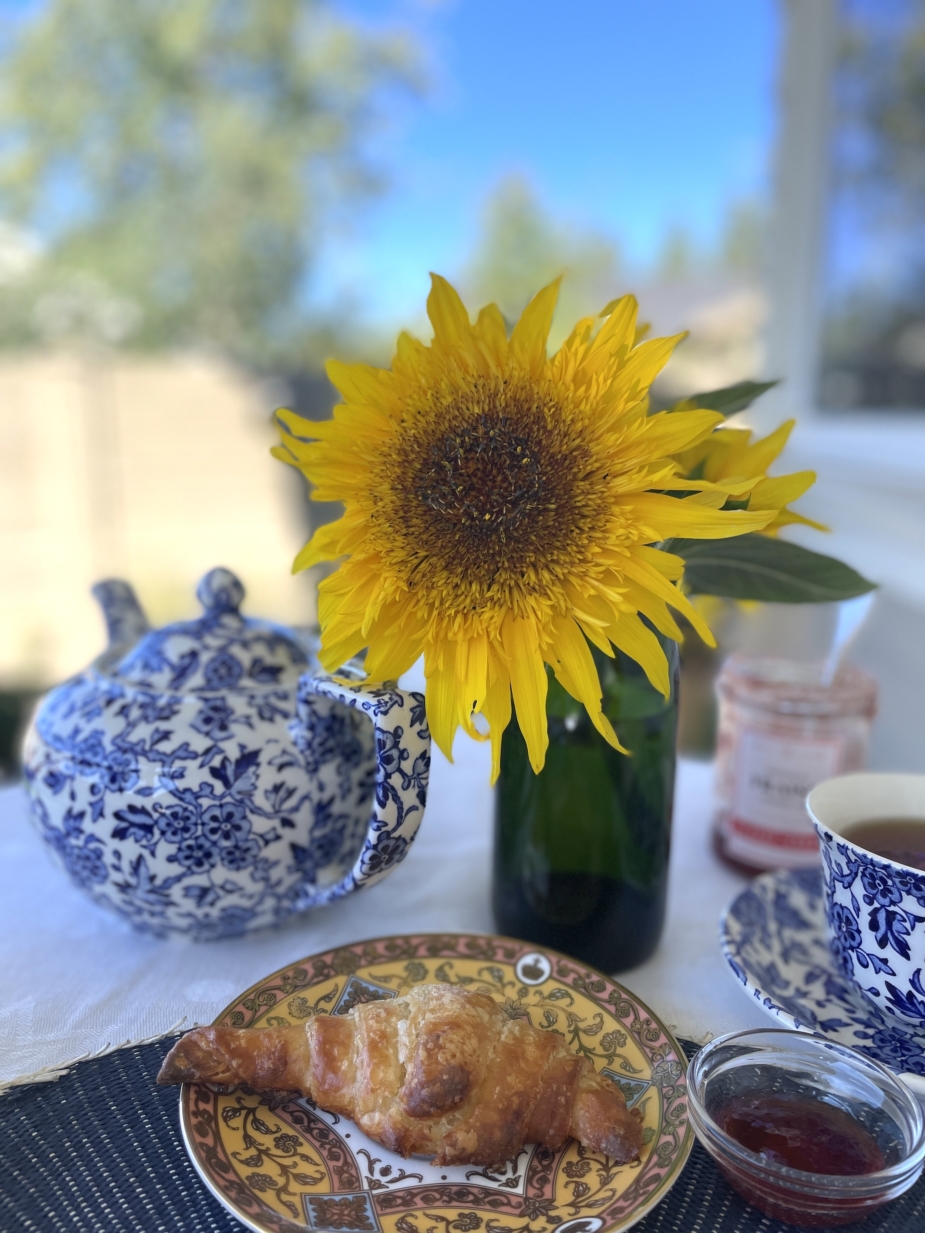 A recent breakfast on the garden porch, enjoying one of the croissants
7. French thé ~Stop by tomorrow as a new giveaway will be posted (the 3rd) and a bag of French thé will be paired with something quite luxurious to enjoy your favorite cuppa.
8. Mix and match favorite décor aesthetics
episode #228, 21 Parisian Décor Ideas from Ines de la Fressange 
9. Savon de Marseille soaps ~be sure to stop by the blog today for a giveaway to four lucky winners (must be a TOP Tier Member to enter), of 2 bars of Savon de Marseilles soaps made in France.
Traditional Marseille Soaps, petit plaisir, #321 Enter the Giveaway here (it will be posted at 4pm Paris time, Monday). Be sure to enter by Saturday August 20, 2022 
10. Growing a potager
However you choose or are inspired to welcome the French culture into your everyday life, let your curiosity guide you. I am confident you will discover even more appreciation of the everyday moments and routines, and your 'savoring' muscle will become quite strong. Thank you for stopping by and tuning in. Be sure to explore all of the posts and the second podcast episode shared this week during TSLL's 7th Annual French Week.
Petit Plaisir
 ~The Simple Sophisticate, episode #337~Subscribe to The Simple Sophisticate: iTunes | Stitcher | iHeartRadio | YouTube | Spotify | Amazon Music |
Sun, 31 July 2022
"In the same way that a car that is well-maintained will last longer and be more reliable, you cannot hope to get the lasting high performance you want from your brain if it is not properly cared for and protected." —Kimberley Wilson, author of How to Build a Healthy Brain: Practical steps to mental health and well-being Here on TSLL blog and the podcast, I have explored many topics within the first two subjects whether pertaining to emotional intelligence, relationships and communication, so when I came upon nutrition-trained Chartered Psychologist Kimberley Wilson's book - How to Build a Healthy Brain, I was intrigued and wanted to explore its contents. In so doing, I found what she had to share to be founded in a vast amount of supportive research from reputable institutions (in the United Kingdom and the states) as well as written in an approachable prose for readers, like myself, who do not have an educational background in the field of neurology, but genuinely wish to understand how their brains function and how to care for the brain well in order to live well. Today's post/episode is an introduction, a tasting menu of sorts to explore the wide ranging areas in our lives that contribute to the health (or malnutrition) of our brain and thereby, its capability to work to its full capabilities. Upon sitting down to read the book, once I began, once it was in my hands and I was reading it, it was hard to put down, and annotations now decorate nearly every page. Having completed my first reading of the book, I went back through and took detailed notes summarizing the key points that spoke to me and that I wanted to incorporate or strengthen in my own daily life. I will be sharing those here, but by no means is the list complete. The science of how the brain works, the parts of the brain, etc., are detailed in the first couple of chapters, and are worth reading prior to reading the entire book on your own as she lays a clear foundation of the parts of the 'engine' that make up the brain. While I will be focusing on what to do to strengthen and nourish your brain, reading her book details what happens when the brain is not nourished properly. For example, what chronic inflammation does to the mind and the effects witnessed in our daily lives such as depression, Alzheimer's, Parkinson's disease and other neurological maladies. However, because I want to lift today's conversation to focus on preventative and constructive habits we can add to our lives to create a stronger sense and state of well-being, I will be focusing on what you can begin or continue to do and how it nurtures the brain, thereby elevating the quality of your entire life. ~The Simple Sophisticate, episode #336 ~Subscribe to The Simple Sophisticate: iTunes | Stitcher | iHeartRadio | YouTube | Spotify | Amazon Music |
Sun, 24 July 2022
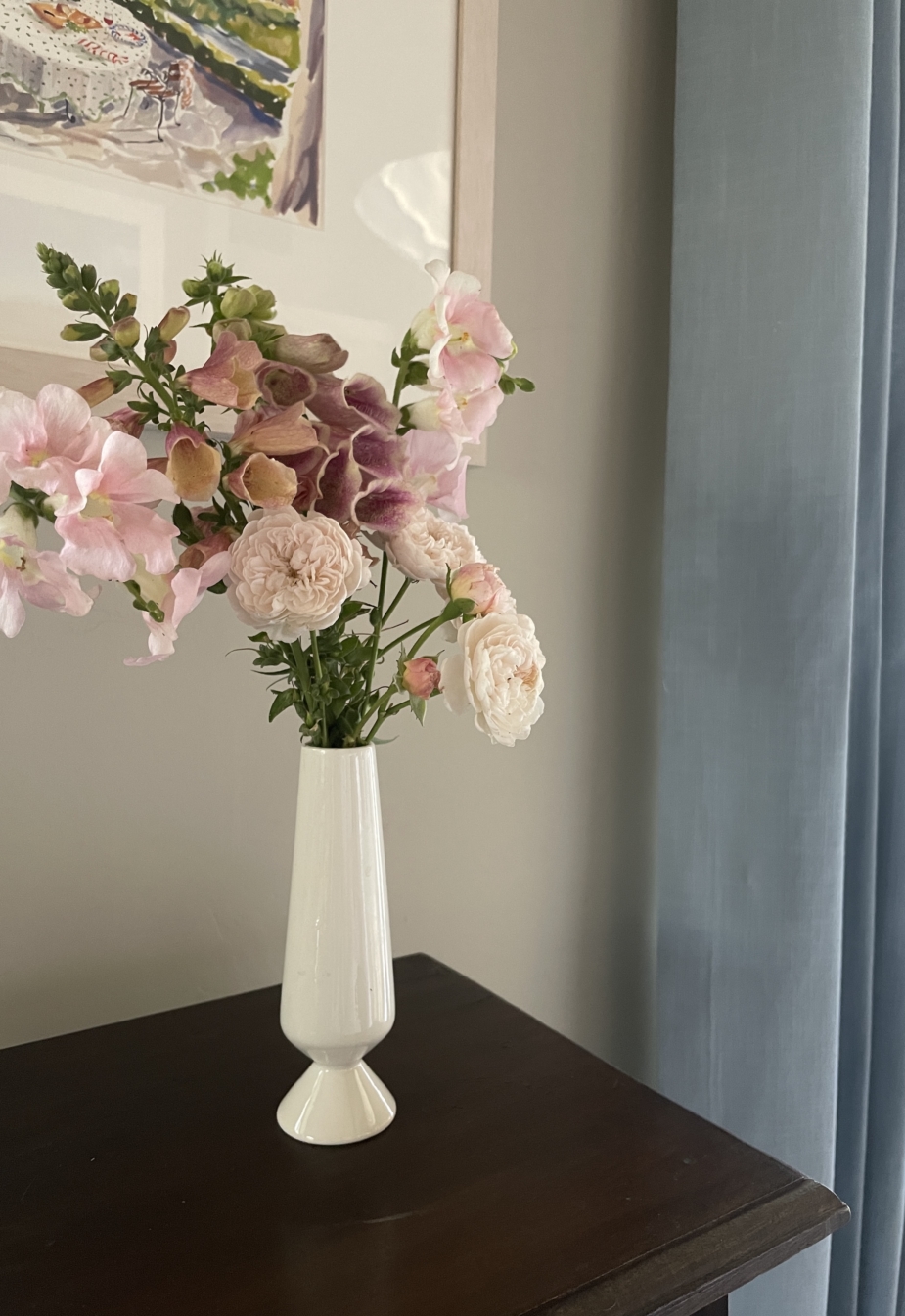 Of all summers, the summer of 2022 understandably beckons us to travel, explore and leave our homes and the towns and cities we have been staying close to for nearly three years due to the pandemic. Perhaps even our homes want us to leave so it can have a breather from us! However at the same time, with demand high, prices for travel fare are driven ever higher as well, so it may not be in the budget to travel during the summer season, or simply it just may not be of interest to travel as it indeed will be busy, at times chaotic and even stressful which negates the purpose that most of us align with traveling for a holiday. With all of that said, if you have chosen to stay put this summer, just as I have, I wanted to share ideas for savoring this time of year at home and in your home town wherever that might be. After all, we spend the majority of our lives in our abodes and in the town where our home address is found, there is most definitely a reason we remain, and hopefully a reason founded in appreciation for where we have the good fortune to call home, so let's explore how to make it even more special.
1.Permit yourself the luxuries during the summer season you discipline yourself from when working If you are spending your vacation time at home, be intentional about permitting yourself to wake up when you are ready (put away the alarm clock), take a nap if it calls you to do so, make your favorite meal, say yes or no as you please to invitations and opportunities - only partaking if you truly want to. Create rituals that you love and enjoy them throughout your vacation at home.
2. Turn off your phone or limit who you let contact you To immerse yourself in the mindset of being on holiday while staying home, remind yourself that part of getting away is to be less available. Set clear boundaries for a week or two, however long your holiday at home will be, as to whose calls you will take, what messages you will respond to and how often and when you will check your email. In other words, let yourself be free from being requested, needed, and required to do anything that does not let you wholly relax. Do not feel guilty about this. You need time to just be and do as you are drawn in order to reap the benefits of what a holiday is all about.
3. Tend to a garden and revel in the beauty that comes forth As the temperatures rise, when you are home, you can easily ensure the garden is watered well and regularly, whether you have plants in the ground or in pots. And it is during the summer months that the work in the garden decreases and time spent outside luxuriating in the beauty that begins to share itself is a priceless, evanescent treat. Knowing such beauty only lasts for a short period of time makes it all the more special. Seeing the butterflies dance about from flower to flower, witnessing the cherries ripen into their ruby red splendor in a blink of an eye it seems as July arrives, and waking up to blackberries blossoms nearing their transformation into fruits to nibble on are moments that can only be savored in summer, making it all the more difficult to ever want to travel during these precious warm months. With my schedule now my own as I work from home, no longer having to only have my summers off as was the case when I was teaching, I am looking at the calendar and considering when would the best time be for me to travel, and I must say, because I love to savor the garden that receives so much planning and preparation during winter and spring, it will be hard to travel during the summer months as the years unfold. The garden during the summer is less in need of attention, and is now more a space to relax and savor the hard work you have given to it. With each year's passing, the garden matures and begins to present the vision you had in your mind, but it takes time, so most definitely, spending time in the garden is a highlight for me when I choose to stay home during the summer months.
4. Create an outdoor area to relax While for half of the year in Bend, it is too cold to sit outside on the porch without a coat and other bundling accessories, the other half of the year is pure bliss outside, so I have intentionally created three (and hopefully in the future will add a fourth) outdoor areas that invite me or my guests to relax, slow down and just savor the natural beauty not only of the garden, but of the beautiful weather and long summer days. Perhaps you have a porch where you can add a swing?, or is there a nook where you can add an Adirondack and foot rest to while away hours reading in the shade whilst the birdsong fills the air? Add a small bistro table and chairs to enjoy dining al fresco, or add a lounge chair or settee upholstered with outdoor fabric to withstand the sun and elements and relax in true comfort (and maybe close your eyes for a bit and take a nap).
 7 Ideas for a Porch Swing Living Space for Luxurious Calm ~explore becoming a TOP Tier Member to take the tour of rooms, indoor and out, at Le Papillon~
5. Explore new recipes in your kitchen after visiting the local farmers' market With open-air markets in full swing, the fresh seasonal produce is abundant and invites us to try making a dish we may have never given a go in our own kitchen. Find a cookbook that shares recipes aligned with each season (I have shared a few below), and find a recipe for the produce you find at the market. Give yourself permission to invest in necessary ingredients to make the dish what it has the potential to be, and then have fun bringing it to your dinner table (or dine alfresco under the lights). Seasonal Cookbooks I recommend:
6. Pick up the weekly or summer entertainment guide for your town/city Here in Bend the summertime offerings have returned and the entertainment is aplenty and then some. From concerts in the amphitheater, events downtown, multiple farmers' markets now open, trails to hike and high lakes and rivers to explore with the paddle or kayak. Whatever you most enjoy, let yourself do so. Take your low-back chair and find a spot at the concert of the performer who is coming to your hometown. Revel in the opportunities right at your doorstep and partake. Even if you have to go alone, which I often do to the concerts at the amphitheater here in Bend, you know your hometown, you will likely run into acquaintances or people you know and discover you have something else in common - the same preference in music!
7. Watch a movie outdoors in your garden or lawn Perhaps inspired a bit by Home Again starring Reese Witherspoon, but it really is as simple as draping a light-colored sheet over a line strung from two parallel points, purchase a simple projector to connect to your laptop or tablet and enjoy sprawled on the grass or in your lounge furniture, sipping a glass of wine, and nibbling on something scrumptious and fresh. Just remember to be mindful of the sound/volume and your neighbors. Outdoor portable projectors:
8. Enjoy breakfast and/or dinner al fresco regularly
9. Explore the many parks and walking areas in your town/city
10. Give yourself permission to slow down and take time to just be, regularly Especially when it is hot outside, let yourself relax somewhere cool without feeling the need to be doing something. If you take a nap, let it happen, and let yourself rest.
11. Host a garden party, small and intimate or large Whether for aperitif or a full meal complete with courses, invite friends and/or neighbors to enjoy an evening in your garden and outdoor spaces.
12. Find the water and enjoy it how you want Depending upon where you live, the type of water you have access to will vary. Here in Bend, we are fortunate to have rivers, lakes, swimming recreational centers and even a white water surfing park. As many readers of TSLL blog know, Norman and I like to stand-up paddle, so during the summer, we try to do so at least once a week at a variety of locations either in town or just out of town on the road toward Mt. Bachelor. Being close to, in, or on top of water is soothing. If you live near the ocean, take walks, sit on the sand, take a book to read, whatever nurtures you, do so and savor being near water. However, the access to water need not be vast bodies of water. Consider adding a bird bath or a small DIY water feature with a solar generated fountain (find one here for fewer than $20). Simply being near water can be incredibly soothing and calming which again is the essence of going on holiday, to bring a feeling of calm into our lives.
13. Read, read, read to your heart's delight Often summer gives us more time to read what we want, rather than work materials that while we may enjoy them, are still required reading. While in the summer months what I read doesn't change, it is how much time I have to read that lengthens, and I savor this time, gobbling up more books, which leads to more books, and new authors and titles to explore.
14. Schedule outings to be pampered If you don't already have regular facials scheduled in your calendar or a regular massage, any self-care pampering that is out of budget to enjoy on a regular basis, schedule your favorites during your holiday at home. This will not only give yourself something to look forward to, but the pampering itself will feel as though you are on vacation.
15. Hire someone to clean your house/car/mow the lawn/etc. In other words, any have-to chores you don't enjoy, spend the money you may have had to use for travel to have someone tend to your chores so you can fully relax around your home and in your daily routine. I personally look forward to someday hiring lawn-care (mowing and edging) as the noise and jarring to my hands is uncomfortable. Such chores, whatever they are for you, look to delegate them and look at it as buying yourself time to do as you want rather than as you have to.
16. Invest and complete a project in your home to create an even more beckoning sanctuary The project need not be something you hire a contractor for which would likely take more than the three months during the summer. But whether the project in your home décor is something you can do yourself - painting or wallpapering or swapping out new light fixtures, or giving yourself the bathroom you had always dreamt about, why not explore creating a space in your sanctuary that elevates the comfort you feel when you step into it. Just this past week, the curtains for my living and dining room were installed. This detail of adding window treatments to the open-plan living spaces immediately transformed the space in my eyes - providing warmth, separation of designated areas and sophistication - softening the light, as well as letting more light in, providing privacy, but also creating more welcome. The image at the top of today's post offers a petite glimpse at the curtains in my dining room, and I look forward to sharing a full video tour in this coming August's A Cuppa Moments video chat with TOP Tier Members as well as sharing a detailed post on the blog for TOP Tier Members in August to source as well as share tips for customizing your own curtains, an investment that for me will be with this home for the lifetime of my residence here at Le Papillon. Finishing a project that changes the space in your home, creating a different mood from what you felt at the beginning of the summer is a reminder that the advantage of taking time off and staying home during such time that we give ourselves can yield powerful benefits to our daily lives the rest of the year.
17. Add a sartorial detail of preference to your summer capsule wardrobe When we are planning for a typical holiday getaway, we will often access our wardrobe to see what we need for a comfortable and enjoyable trip. Why not do the similar assessment for your summer holiday at home? What do you need to enjoy spending more time in your garden, wandering the markets, visiting your hometown haunts? Whether it is one item or a handful, doing so will again set the tone that staying home is a choice and doing so whilst feeling good in what you are wearing does make a difference. ~Explore this past week's This & That: July 22, 2022, for Panama hats
Staying home during the summer holiday season can be thoroughly enjoyable. It begins with a mind-shift to keeping an open mind to explore all of the possibilities and then asks you to shift your habits and approaches to everyday living: doing more of what brings you pleasure and delight and being determined to step away from guilt society or ways you were raised or nurtured drilled into you as wrong. There is nothing wrong with taking care of your well-being; in fact, quite the opposite, and if it begins by just taking a week or two in the summer to permit yourself, perhaps you will notice the benefits it brings into your life and explore ways to integrate what works best for you throughout the entire year. Wishing you a wonderful holiday. Bon Voyage!
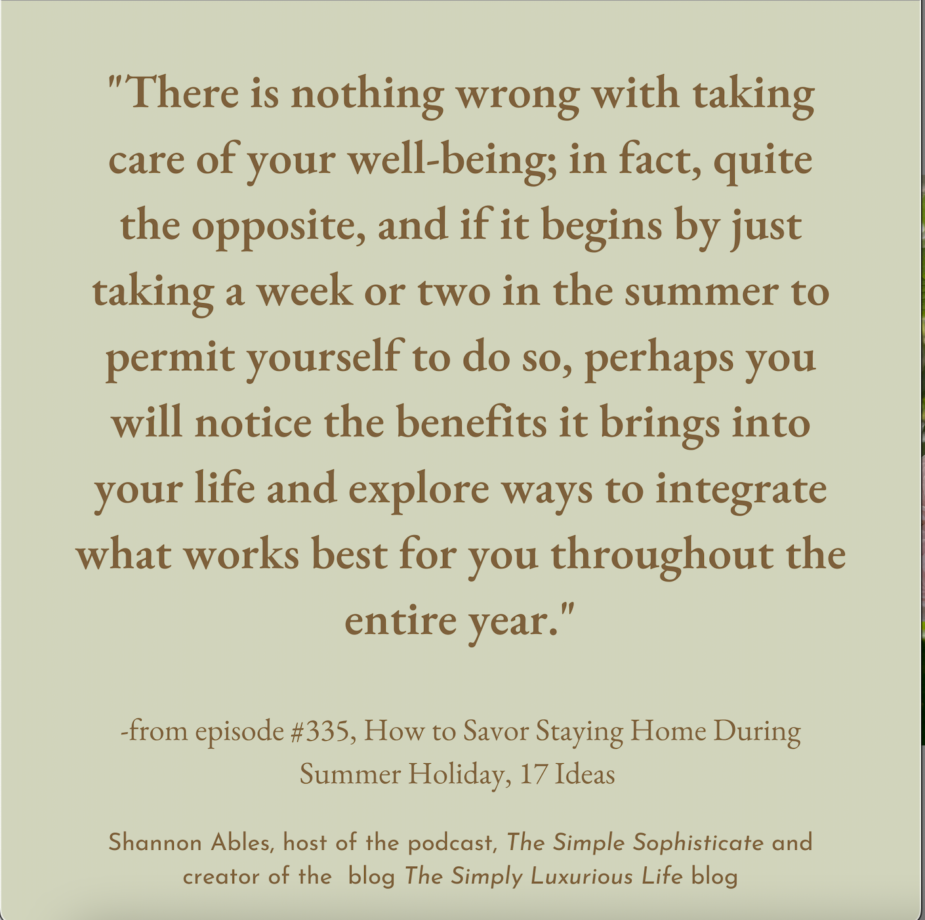
Petit Plaisir ~The Home Cookbook by Monty and Sarah Don
 ~The Simple Sophisticate, episode #335~Subscribe to The Simple Sophisticate: iTunes | Stitcher | iHeartRadio | YouTube | Spotify | Amazon Music |
Sun, 10 July 2022
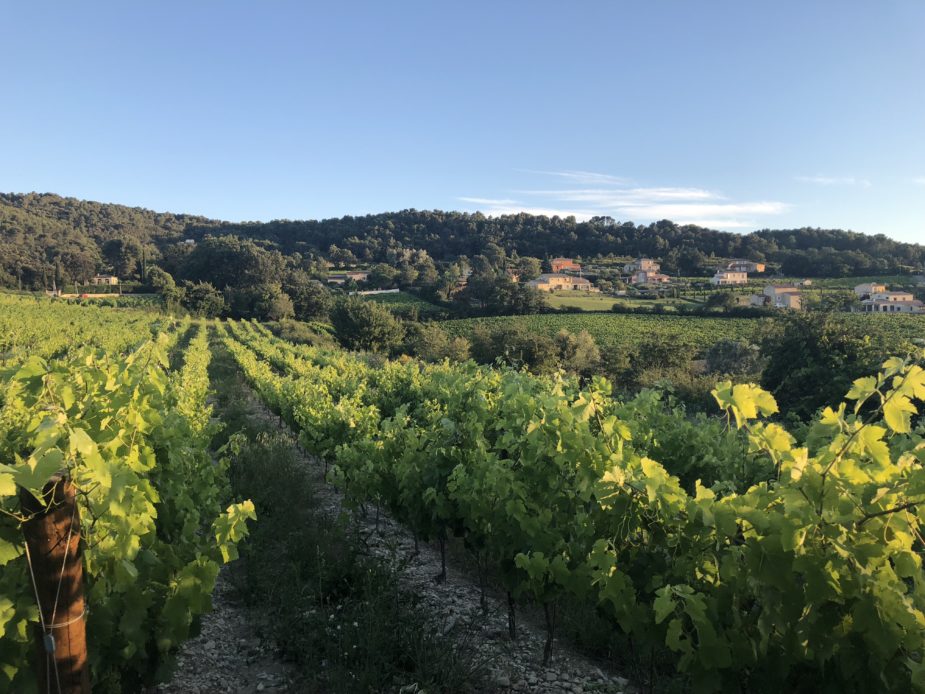 Bonne Fete Nationale! To those of us celebrating outside of France, we may be celebrating France's national holiday with an exclamation of Happy Bastille Day, but within the borders of France, as I have been reminded more than a few times, it is Bonne Fete Nationale or Le Quatorze Juillet! Whatever you prefer to utter, it is a day of celebrations for Francophiles, and while TSLL entire premise when it comes to living simply luxuriously draws much inspiration from the French way of life, today I have lined up 24 ideas for you to celebrate July 14th in your own way. The above vineyards in Provence take me back to my trip in 2018, and oh, how I long to return. Soon, I reassure myself, soon. But whether we have the opportunity to stand on the terra firma of France at the moment or pay homage from afar, we can absolutely partake in the annual celebration. I am looking forward to even more deeply celebrating today's events in the simple activities that fill my day: a sipping of French thé in the morning, watching the 17th stage of Le Tour de France, making herbed gougeres for apéro time in the evening and bringing them with me to gather with a dear friend who grew up in Belgium at her home here in Bend to dine in celebration of today being Le Quatorze Juillet. Parfait! Now to the list with many links for further exploration on many of the items shared. 1.Watch Le Tour de France Vicariously travel throughout the countryside of France for three weeks as the annual cycling event takes place. Watch on Peacock (ad-free, $9.99/mo or with ads, $4.99/mo) if you live in the states, and for all other international viewers, read this detailed post on VeloNews for exactly where to stream for your country. Peacock also offers the option to watch the international broadcast rather than NBC's broadcast which I flip back and forth from every other day from time to time. 2. Plan and then shop for a favorite French meal (check out TSLL's many French-inspired recipes here)
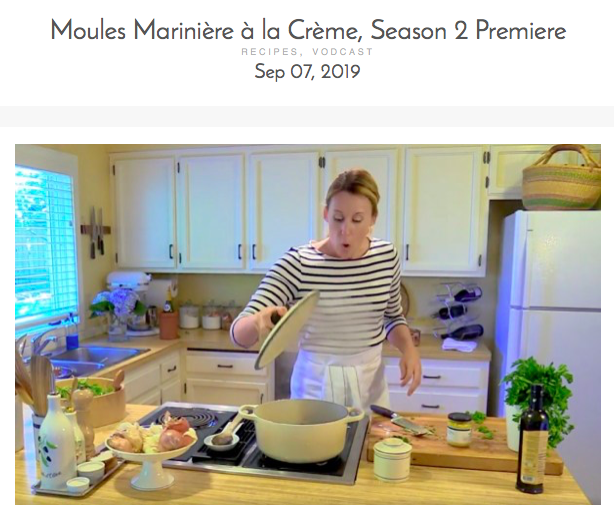
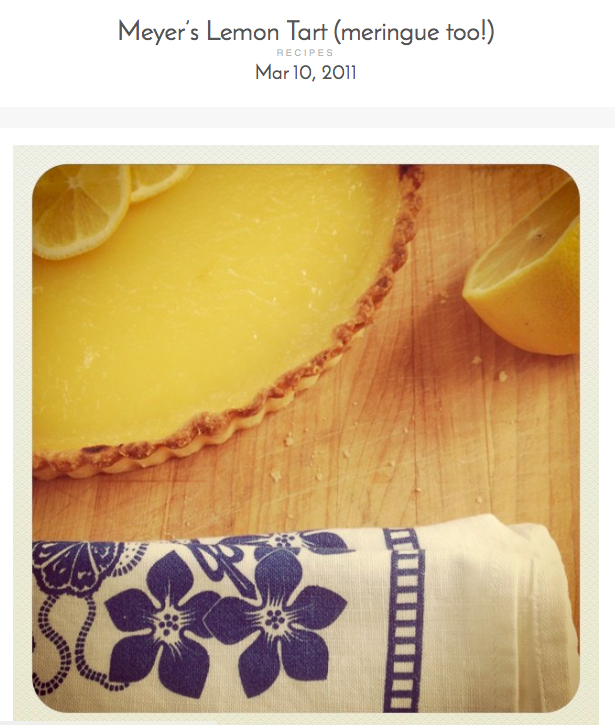
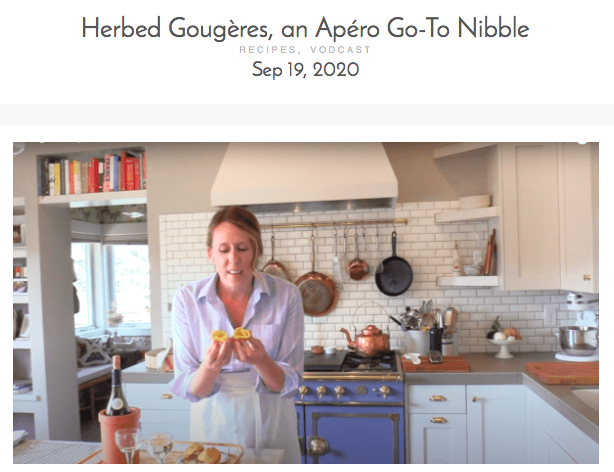 3. Don't forget the cheese and salad course (before dessert and after the main entrée)
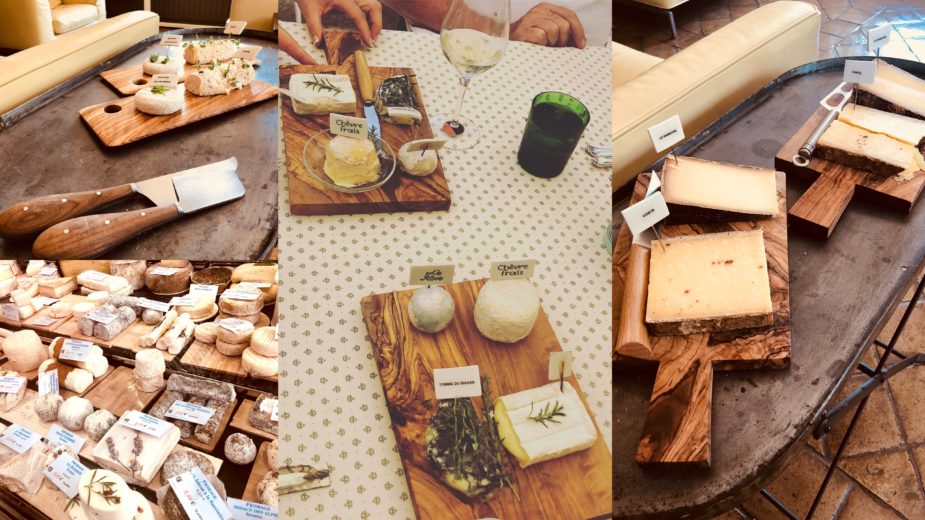 4. Play a game (or two) of pétanque (this game was being played in Paris just outside of the window of Hôtel Particulier Montmartre near Sacre Couer)
5. Gather with fellow Francophiles for a French meal beginning with apéro time 6. Pack a picnic and go somewhere amongst Mother Nature (don't forget to pack the wine and bistro wine glasses - sturdy, but lovely)
 from La Rochère - the classic bistrot glass (out of stock at the moment). Shop all of La Rochère's glasses here. Shop the brand on Wayfair here. 7. Visit a local farmers' market, and be sure to bring your market tote
8. Begin the day with a fresh baguette picked up at your local bakery 9. Une croissant s'il vous plait!, pair with cafe au lait or hot cup of thé ~explore how to make your own croissants here in episode #6, Season 2 of The Simply Luxurious Kitchen cooking show.
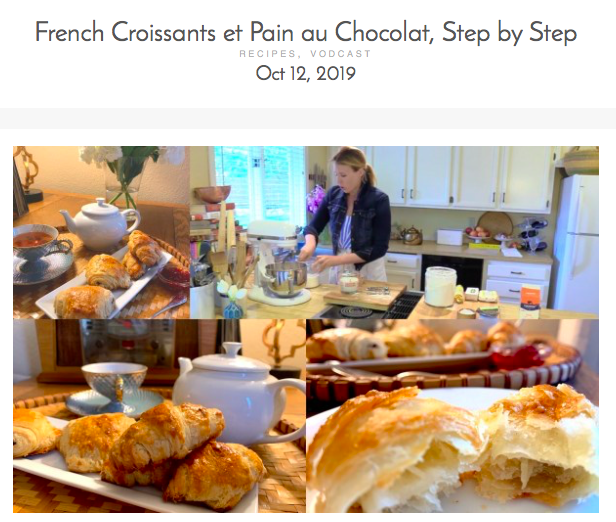 10. Select a bottle of wine from your favorite French region or the next region of France you hope to visit as inspiration to bring your next trip to fruition ~explore Châteauneuf du Pape wines (I pick mine up at both Trader Joes - they carry one varietal at a great price for this vineyard, as well as my local wine shop for more varietals and vintages)
 11. Seek out French thé and sip a hot cup in the morning to begin the day - pair with your croissant perhaps? :)
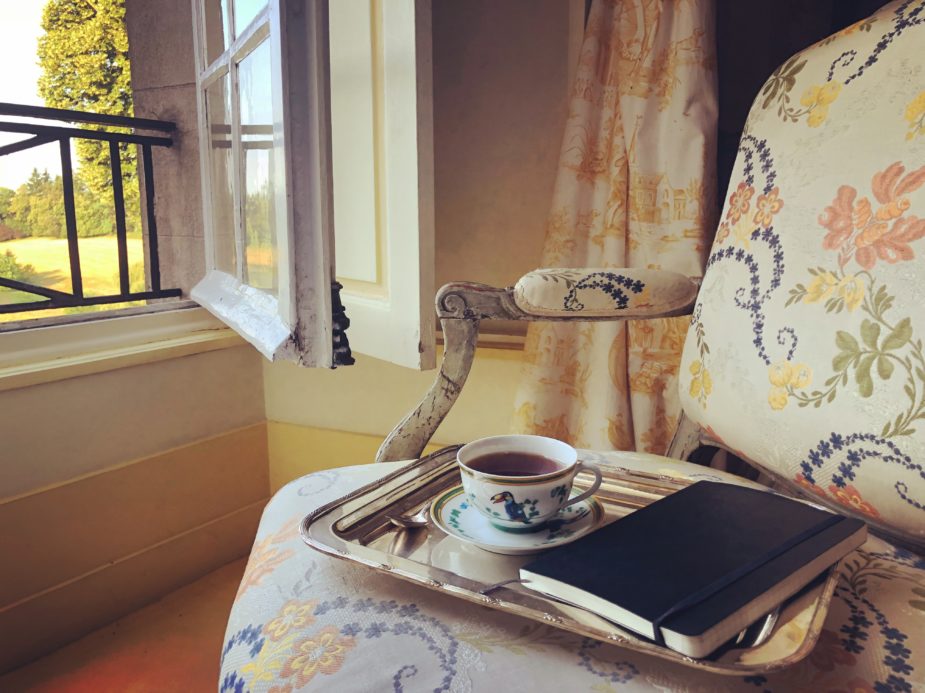 12. Cook a classic soufflé au fromage avec fresh herbs
 13. Organize a cheese and wine gathering
 14. Watch a French cozy mystery series ~explore the latest This & That weekly post which includes additional Francophile Finds, including more French television shows I recommend.
 15. Look around your home and discover how you can add a touch of France to your sanctuary, or yet another touch :)
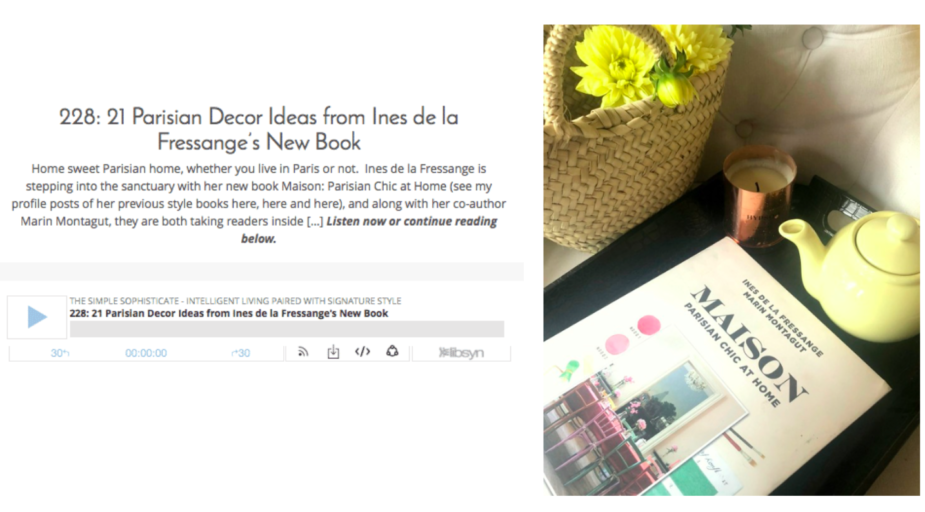 16. Shop and purchase French lingerie to update your lingerie capsule wardrobe ~Chantelle is one of the French brands I highly recommend for high quality everyday lingerie (and they are currently in the middle of their annual summer sale). As shared on this podcast episode Aubade is a quality French lingerie brand I also shop.
 17. Make a Clafoutis Aux Cerises with the cherries just now ready to harvest!
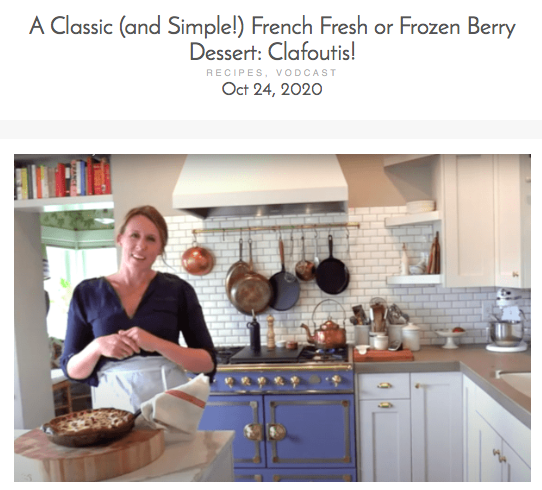 18. Conclude the evening by watching a favorite French film
 19. Listen to TSLL's Escape to France playlist - over an hour of French music to enjoy 20. Prefer lyric-free music? Listen to TSLL's French Jazz Cafe playlist 21. Make a simple French crêpe for dessert - Lemon and Brown Butter Sweet Crêpe
 22. Speaking of crêpes, make a Buckwheat crêpe (or galette) with prosciutto, gruyére and egg
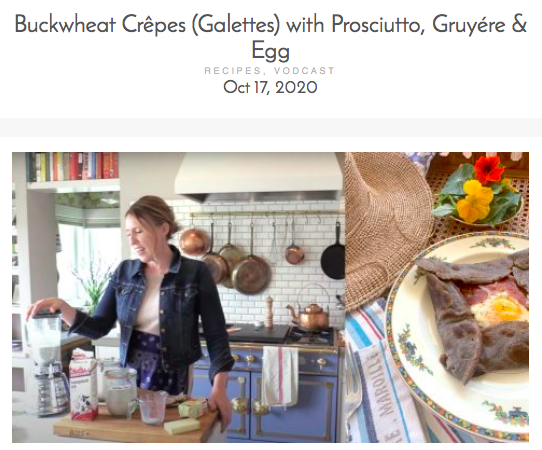 23. Read a French book to explore further the French culture ~Explore all of TSLL's Francophile Finds for books here.
 24. Add a French cookbook to your kitchen library - add one each year to further inspire your culinary journey into French cooking ~Explore all of TSLL's recommended cookbooks here.
25. Fall asleep enveloped in French linen sheets
***EXTRA**** Mark your calendars for the 2nd full week in August as each year TSLL celebrates all things French during the Annual TSLL French Week here on the blog. (explore all posts and giveaways shared in previous French Weeks here on the blog) ~Explore becoming a TOP Tier Member of TSLL Community to not only enjoy ad-free reading blog-wide, but also be able to enter all the giveaways presented during the Annual French Week (and access to exclusive content - tours of TSLL's home), as well as be able to curate a library of your favorite blog posts.
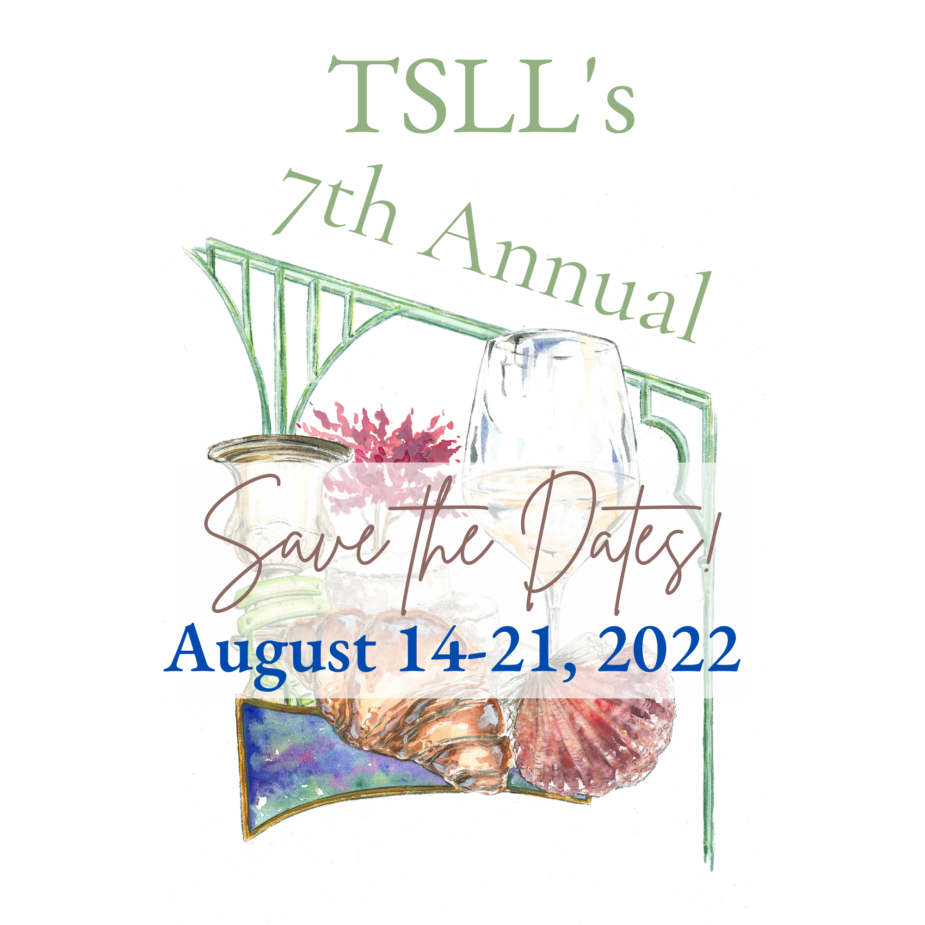 Of course there is much French-Inspired content to peruse and explore on TSLL, so be sure to find all of the French-themed posts here, French-themed podcast episodes here, and TSLL's Best Selling book in the category of France Travel The Road to Le Papillon: Daily Meditations on True Contentment, as well as TSLL's 1st book (with an entire chapter dedicated to French-Inspired Living and France Travel and 2nd book. Thank you for stopping by and santé!
Petit Plaisir
~Délicieux, the film
 ~The Simple Sophisticate, episode #334~Subscribe to The Simple Sophisticate: iTunes | Stitcher | iHeartRadio | YouTube | Spotify | Amazon Music |
Sun, 3 July 2022

"When it comes to jet lag, there ain’t — I report from the window seat of a bustling café in Montreal, hence this paraphrasing of Leonard Cohen — no cure." —Mark VanHoenacker, a Boeing 787 pilot for British Airways and the author of Imagine A City: A Pilot's Journey Across the Urban World The first time I flew abroad from Oregon to Europe (in my case France), concerns about jet lag were far from my mind; in fact, because I had so many other questions to answer and unknowns dancing in my mind, I didn't think about. I was 20 and planning to study abroad during my junior summer of college in Angers, France. I saved up for the $800 round-trip economy-class ticket (2000) by working three part-time jobs, took the necessary prerequisite courses, conferenced with my professor de Français, and along with not knowing I would need an adapter and converter to at the very least blow-out my hair and curled it, I also didn't think to investigate what jet lag was. Being the first member of my immediate family to travel abroad to Europe, I was figuring it all out for the first time on my own, and jet lag was never a word that popped up in conversations. Fast forward to 2012 and my second trip to France that included England as well. Thankfully I had a close friend who having lived in England for a time and thus traveled back and forth from the west coast to England often, had a few suggestions for combatting jet lag. Nothing worked superbly, but none of the advice hindered my thorough enjoyment of visiting London for the first time, and then returning to Paris. Jet lag persisted, but if it meant I would be able to be in the two countries I loved, it didn't matter a bit. Each trip following the two shared above, 2013, 2017, 2018, 2019, 2022, I have gradually tried to tweak, adjust and determine what works best to mitigate jet lag's effects, and while I have come to the same conclusion as the British Airways pilot above, as he too shares in his recent article in The Financial Times, there are ways to lessen the discomfort and the prolonged effects. But first, it is important to note what jet lag is — any time you travel quickly across two or more time zones and is caused when rapid travel throws off our circadian rhythm - the biological clock that helps control when we wake and fall asleep (source) The more readers I hear from and fellow travelers I meet, the more I realize that where you are traveling from (home departure city), thus the amount of time difference you are undergoing, makes a difference, and so I decided to write specifically from my experience as a traveler from the west coast of the United States venturing to Western Europe where most of my excursions take me. With that said, as many readers/listeners of TSLL blog/The Simple Sophisticate podcast are Francophiles and/or Anglophiles and our destinations are the same even if our departure city is different, it is my hope that some of the tips shared today may be applicable when tailored to your flying itinerary. ~Note to readers: More details are discussed in the audio version of this episode than are shared below, so be sure to tune in. 1.Depart in the early afternoon When scheduling past trips, excluding my most recent trip in 2022, I selected early morning flights to give myself more time at my desired destination. As well, often earlier flights in the day were a bit less expensive (I have not noticed this to be the case as of late, but in the past). However, when taking the most direct flight possible, leaving in the afternoon on the west coast has the arrival time in France or England in the early evening the following day which lends itself well to having a nice meal before exhaustedly going to sleep in a comfortable bed. As well, leaving in the afternoon gives you time to gradually begin the day, go through your regular routines, partake in a healthy 30-minute or hour-long exercise routine, and generally, prepare to sit for a very long time. When I am able to exercise and not feel rushed, the rest of the day and any unknowns that pop up are easier to navigate, and I can more easily relax since my body has had the opportunity to fully move, stretch and receive what it needs. 2. Arrive in the late evening in Europe If leaving in the early afternoon is not an option, at least try to schedule your arrival time in Europe in the early evening for the reasons shared above. Whether you were able to catch some sleep on the plane or not, your mind as well as your body is tired and after being fed well in your destination city, wants to stretch out and relax. Rather than fight trying to stay awake until night arrives should you arrive in the morning or early afternoon, when you arrive in the evening, you don't have to fight your body and just let it do what it yearns for. 3. The fewer connecting flights the better If at all possible, scheduling-wise and/or budget-wise, choose a direct flight, or the closest thing to it (I have to take a short hop from Redmond to an international airport, typically Seattle, Portland or San Fran, and then my international flight departs to Europe from there). Not only do you save time, but it is less stressful, thus it doesn't exhaust your mind unnecessarily which is already going to be confused when you arrive due to the time change. Mind exhaustion on top of jet lag prolongs your ability to adjust, and the shorter the hop, the less stress incurred.
 The many farms seen in the countryside in Normandy. 4. Try to sleep on the flight Even if for only a few hours, do your best to find a way to experience real sleep. Real sleep where the hours invisibly whisk by and you wake up feeling somewhat, if not quite a bit, rested and energized. In my experience, the fewer hours I am able to sleep on the trip, the harder/longer jet lag is to recover from on that particular end of the trip. 5. Invest in Business Class if/when possible In episode #329 I shared my experience flying Business Class on British Airways during my recent trip in April 2022 to Britain and France. Needless to say, even if it takes a bit longer to save up for each subsequent trip abroad in order to fly in such comfort, I will do it. It is worth it, largely because of the reduction of stress and my ability to sleep well. And as I shared in #4 above, when you sleep well during the flight, you reduce (not eliminate) jet lag. My flight to Europe in Business Class provided more than 4 hours of sleep, and while I did feel the effects of jet lagged for about two days upon arrival, this was far better than it has been in the past. No doubt my excitement being back in Paris helped to overcome some of the feeling, but as I assessed what else may have contributed to an easing of this expected feeling of exhaustion, confusion, malaise and inability to sleep naturally, the one primary variable that was different was the flight I chose and the amount of sleep and quality of sleep I received.
 My seat in Business Class on British Airways, bedding products from The White Company 6. Hydrate as much as possible while flying While toasting with sparkling wine as the journey begins is tempting and certainly something I enjoy doing as well, refrain from too much alcohol as it dehydrates you. Instead, seek out as much water as you can, and even the multiple bathroom-runs are good for you as it gets you up and out of your seat which is an activity that sets your circadian rhythm. The more you can do to set your circadian rhythm to knowing when it needs to be awake and when it needs to rest (the reason why airlines dim the cabin light uniformly for everyone and set the meals as they do), the more quickly your mind will be able to settle into the new sleep schedule. 7. Take a hot bath before bed Whether at your travel destination or when you arrive home, just before you want to go to bed, take a hot bath as this helps to relax the body and interestingly enough, drop the body temperature which helps you fall asleep.
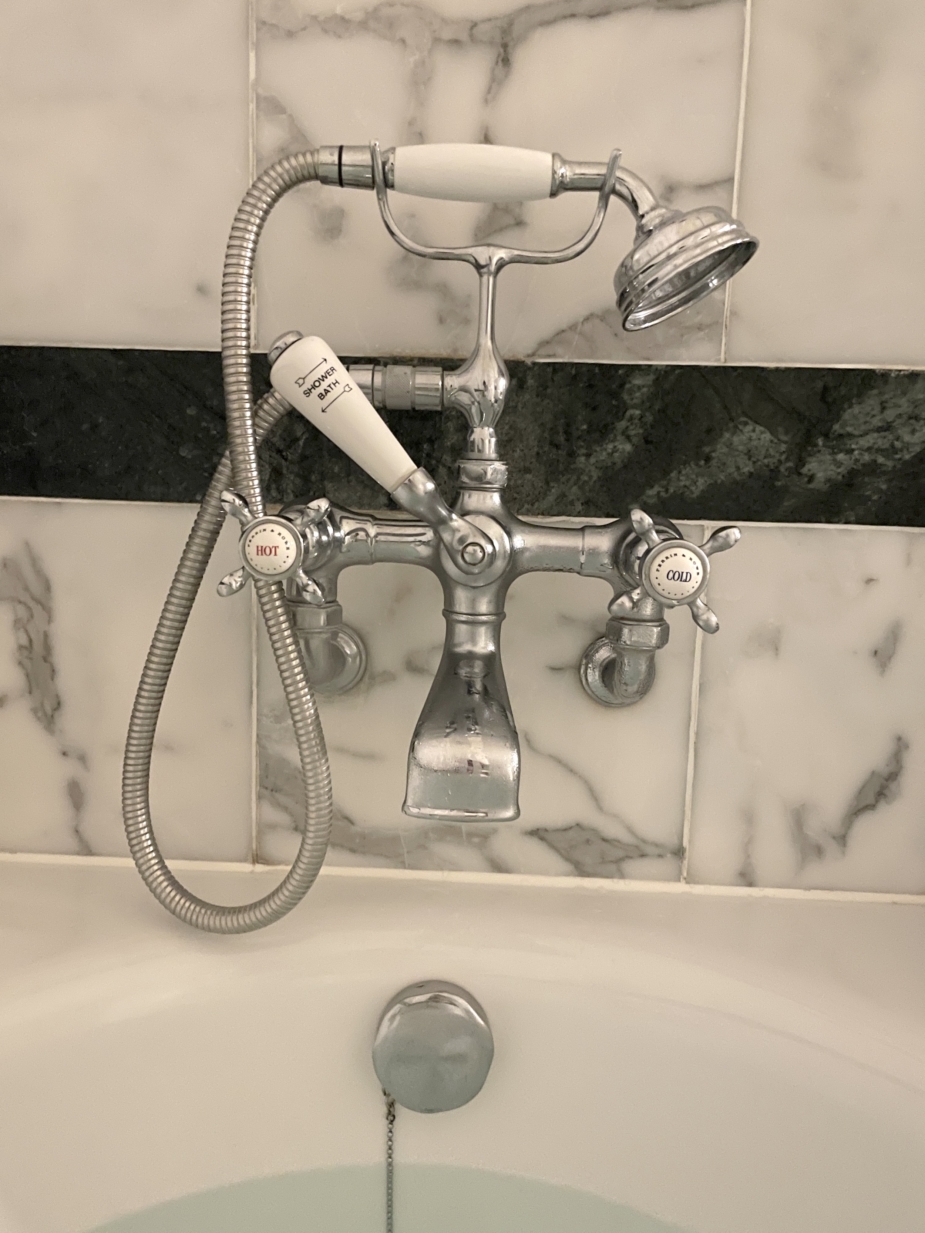 A deep soak of a bath at The Savoy while staying in London. Take the tour of our stay in this detailed post.
8. Begin to simulate, ever so slightly and gradually, the new time zone before you leave While a subtle shift at home may not seem beneficial, for me, this is actually quite possible as I like to go to bed early, and an excuse to go to bed one hour sooner, wake up one hour earlier is not a detriment. Of course, this will depend on your work and home schedule, but if you can, it may reduce jet lag a bit so it won't last as long when you arrive. 9. Be gentle and patient with yourself, gradually shift into the new time schedule Our brains are wonderful tools, but it takes time to change them, and that includes its sleep schedule. When our sleep schedule becomes disrupted, our mind is confused as to what it is supposed to do, so be gentle and patient with it. When I returned home this past April, it took about 7-10 days to get over my jet lag. Finding myself falling asleep on the sofa at 5pm with eyelids I could not bribe to stay open at any cost, I let myself fall asleep, and pushed myself to stay awake an hour later each night until I was finally back to my regular bedtime routine. With all of that said . . . 10. Understand there are many jet lag remedies, but honor what works for you I won't list the suggestions I have received over the years I haven't found helpful for me, or the beliefs from other travelers about what is most difficult (direction of flight) because what is true for them is true for them. However, sharing what has worked and why I have discovered it does work, had I been able to understand these truths, is something I would have loved to have known earlier in my travels but likely could not have known. Knowing that I needed to, for want of a better phrase, 'feel my way' through jet lag to figure out what happens and how I respond to it gave me the tools to figure out how to reduce its effects that most negatively affected me. Self-awareness not only helps you live a life you love living in a general over-arching way; it also affords you helpful insights in how to work well with jet lag to best fit your needs to ensure the best trip and experience possible. For example, as an HSP (highly sensitive person), sleep is especially important, whereas for non-HSPs being able to function well on 5-7 hours of sleep may be no problem. Not so in my case, so now that I know the value of sleep for my well-being, I invest in ensuring I receive a good night of sleep when I travel as I want to enjoy my trip as much as possible, and that includes on the flight.
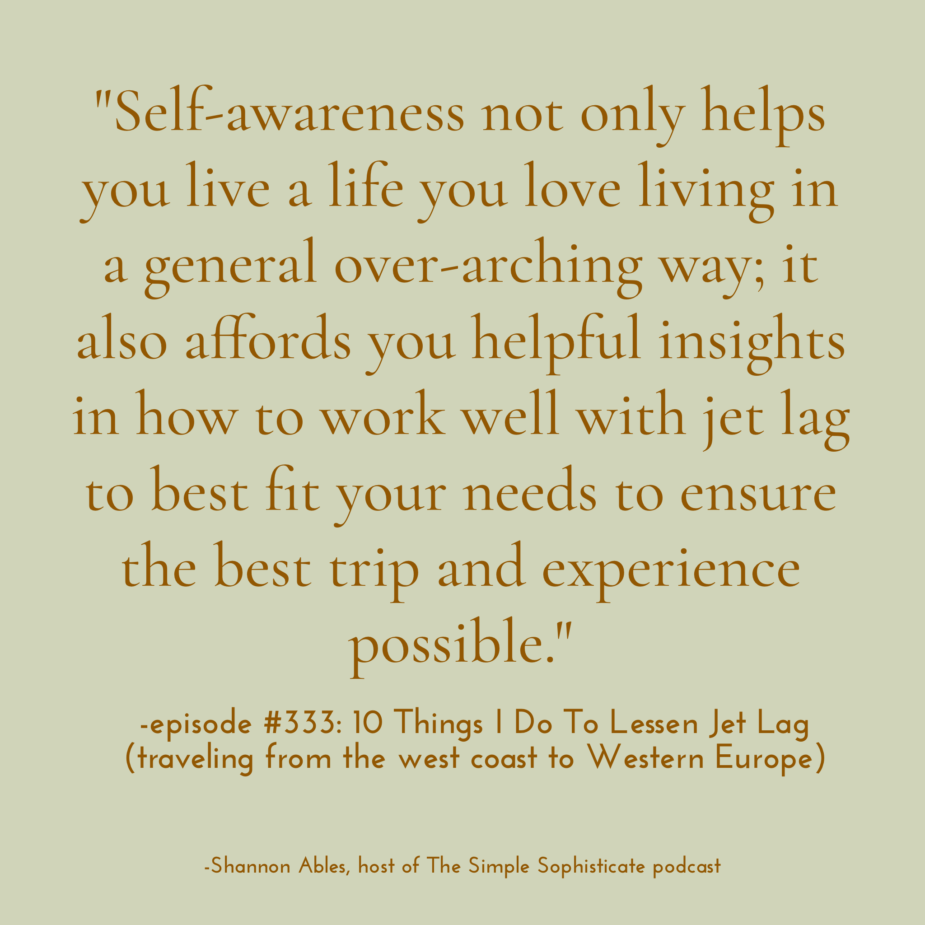 When we have the fortunate opportunity to travel abroad and cross many time zones, the price of jet lag is a small price to expense, but being aware of how it affects our minds and physical well-being is helpful so that we don't blame our mental lag on the destination but rather our mind's gradual settling in to the new time zone we have taken it to. Wishing you many wonderful trips and stamps in your passport! Bon Voyage!
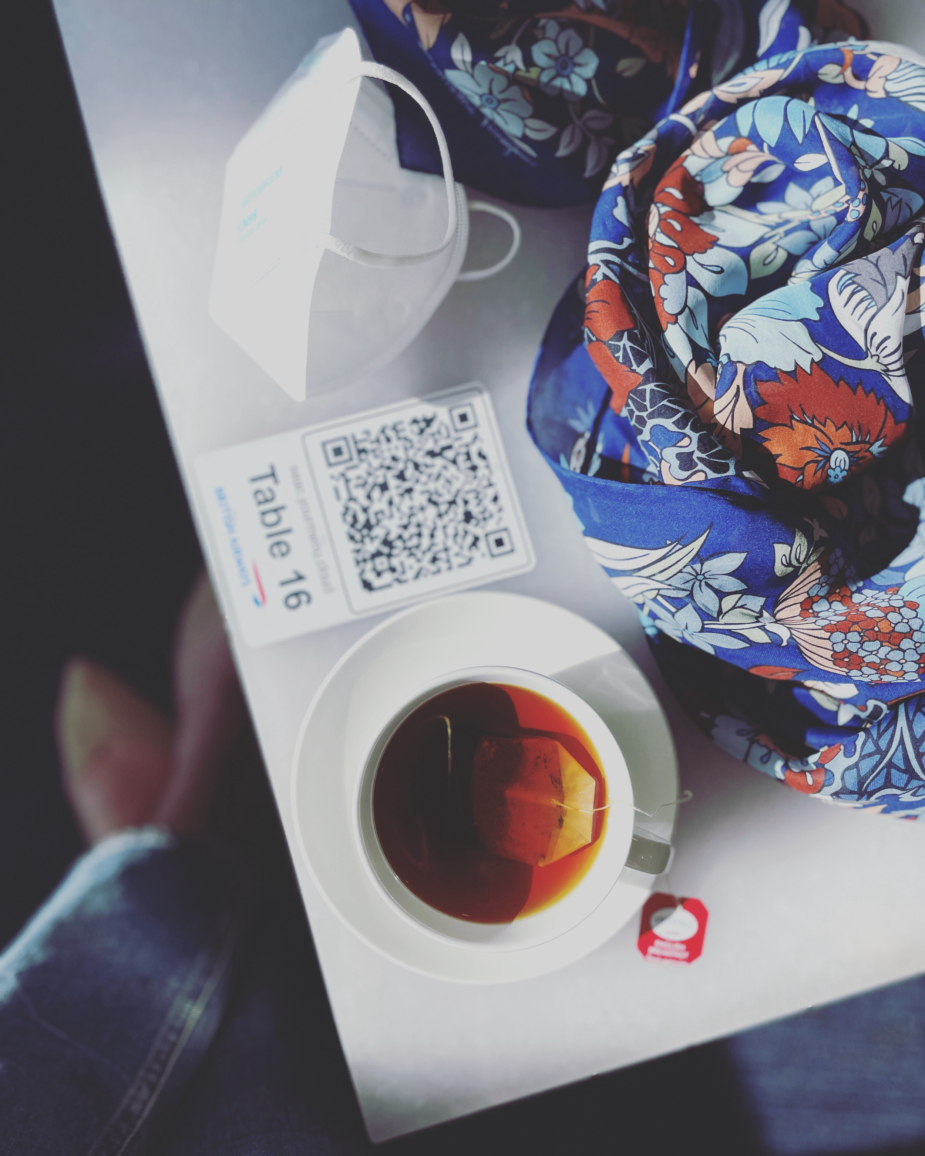
Petit Plaisir ~click here for the full recipe.
 ~Top image: arriving in London, looking out over Kensington Gardens and Royal Albert Hall |
Thu, 23 June 2022
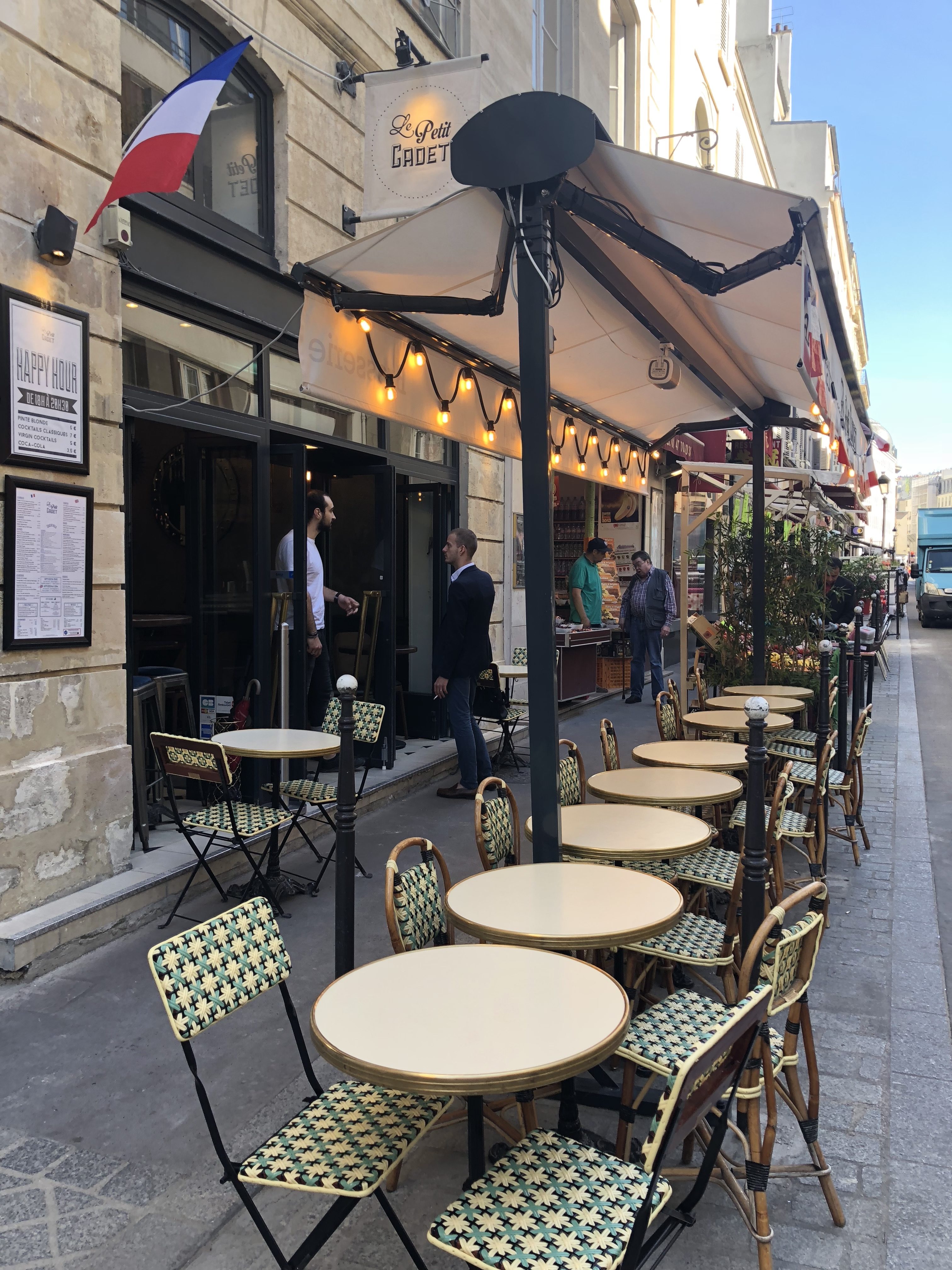
"He who comes home with the most money doesn't win. He who comes home with the most experiences wins." - Steve Smith, contributor with Rick Steves in Rick Steves France 2015The Simple Sophisticate, episode #23One of the most exquisite pleasures in my experience has always been having time at home without a to-do list. To enjoy my sanctuary that comforts me, rejuvenates me and allows me to dream so that when I do step outside into the world I can do, seek and produce, is one of the things I most treasure about living simply luxuriously. And so it began when I was a child, no doubt, as my mother always cultivated a warm home, but as I grew up and became responsible for establishing my own abode, it took much exploration, dead-ins from time to time and investment to create a space that allowed the everyday to be just as stimulating as new experiences brought about by travel. And in so doing, paying attention to my home environment, I began to pay attention to how I spend my days. Was I exhausted and unfilled at the end or exhausted and feeling productive? Did I have time in my day to spend it with those I loved, converse with those who engaged in creative, uplifting and thought-provoking conversation or care for myself in such a way that respected my overall health? And depending upon my answer, I would tweak, eliminate, maximize or designate more or less time to those activities that improved the quality of living. "He has achieved success who has lived well, laughed often and loved much." As the quote reminds us, living well is truly about prioritizing how we spend our days. Did we make time to enjoy the day, spend it with those we hold dear, take time to respect what our minds and bodies need or did we cram everything into our waking hours in order to fit a mold that we weren't asked for input regarding its creation? Everyone's path to living well will be different, but the key is to know what you want - more loosely rather than specifically. Because as we know, our lives intermingle with the rest of the world, but if we bring our best selves, have good intentions and are willing to be true selves, success is possible when it comes to living well. Recently, I was watching the travel guru Rick Steves discuss on PBS his explorations through the countryside of France. While staying at Chateau de Pray and dining on their outdoor terrace, his dining companion shared the quote listed at the beginning of today's post. And I couldn't agree more especially when it comes to travel, but why not bring a similar way of living into our everyday? Why not . . . live well each and every day? Why not use the nice china in the middle of the week? Why not treat ourselves regularly to dinner or lunch with a dear friend at a restaurant that piques our interest or tantalizes our taste buds? Why not sleep on silk pillowcases each night? Many may quickly scoff at such ideas as being too indulgent, thus deflating the exhilaration that is felt when they are only experiences from time to time, but what I hope to bring to your attention today is that with patience and careful planning, everyday life can indeed be lived luxuriously and can actually enhance the quality of our lives. Below are 20 ways to foster a simply luxurious way of living, but these are just a taste. If you would like the full list inspired by the French way of living, check out chapter 10 "Indulging Your Inner Francophile" in Choosing The Simply Luxurious Life: A Modern Woman's Guide. 1. Cook at home. Find simple, yet delicious recipes and discover the pleasures of cooking on your own schedule for your own dietary needs and preferences. (View TSLL recipes here.) 2. Indulge in café time. Once, twice or three times a week depending up on your schedule and enjoyment, select a favorite local café and stop in for some reading time, moseying through magazine time, or chats with friends. Indulge in one of the patisseries delicious sweet treats and lose track of time. 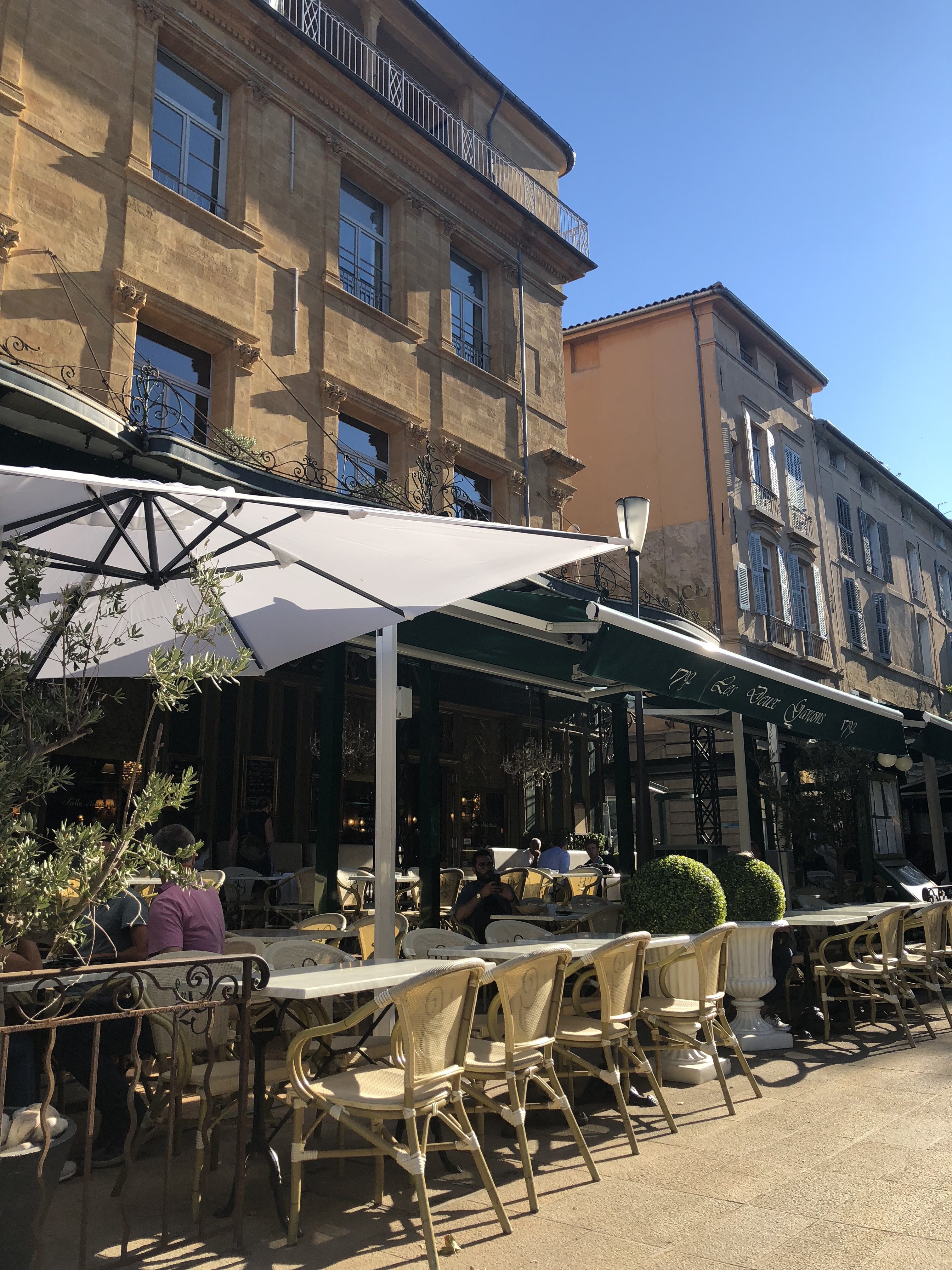 ~Les Deux Garcons cafe in Aix-en-Provence, cours Mirabeau~ ~Les Deux Garcons cafe in Aix-en-Provence, cours Mirabeau~ 3. Wear luxurious lingerie everyday. As I talk about in my book, lingerie is a necessity for the woman who wears it, not for those who might see her in it. Why? Because simply knowing we are wearing beautiful, comfortable, luxurious lingerie feels good. And everything begins with our thoughts. If we feel good, we smile more readily, we are more open to new experiences and our attitude is lifted. 4. Let go of busy. A powerful decision that will change your day-to-day living drastically for the better. Busy doesn't mean better or more productive, it simply reveals a life that perhaps could be managed better. After all, living well means living a life of quality. A life that focuses on what is necessary and lets go of the rest. And when you let go of busy, you have more time for moments of simple leisure and luxury that cultivate an everyday life to savor. (Click here to dive into this topic.) 5. Cultivate a capsule wardrobe for each season. Knowing you have in your closet clothes that will make you look and feel your best is a very powerful tool to possess as you begin your day. While this takes time and never really ends due to lives and bodies changing, it is worth our attention. (Click here to learn more about building a capsule wardrobe.) 6. Follow your own schedule. Perhaps it's Friday or even Saturday night, everyone must be out doing something, staying up late, right? Wrong. Your daily schedule is one that works for you and those you spend your time with. Perhaps you prefer Wednesday evenings out because Thursdays are lighter days at work and you enjoy spending your weekends waking up early and getting things done. Whatever schedule works for your goals, intentions, health, family, etc - adhere to it and don't apologize. After all, our lives, needs and desires change, listen to what is nudging you, calling your name and that is where you will find the unexpected beauty. 7. Discover a personal scent. Similar to knowing you are wearing luxurious lingerie is the choice of scent you layer upon your skin before stepping out the door for work or for play. A luxurious decision and investment, but one that will reveal your attention to detail. 8. Subscribe to daily/weekly/monthly periodicals. Running throughout the philosophy of living simply luxuriously is being well-read. Depending upon your lifestyle, curiosities, locale and interests, you will select reading material that interests you. Most importantly, gather knowledge, choose to learn something new each day, read a review of a new play or restaurant and be encouraged to give it a try. Become in the know of current events in order to strike up a conversation with anyone. Reading in truth, is a way of tickling your brain and refusing to live each day the same even if the events may be routine. 9. Save time and don't wash your hair everyday. Purchase a dry shampoo and have on hand for the days you don't lather up. Shampoo less often, thereby saving yourself more time in the morning, and believe it or not, improve the condition of your tresses. (Klorane Gentle Dry Shampoo with Oat Milk) 10. Invest in quality skincare products. In episode #13 of the podcast, specifics are shared on how to create glowing skin, and by investing in quality skincare products, your most beautiful skin will shine. The power of prevention is real, and while it takes time and a bit of investment, the pay-offs are tremendous. 11. Design a workout regimen to look forward to. Whether you enjoy exercising outdoors in Mother Nature or attending classes lead by instructors that inspire you and classmates that boost your mood, explore your interests and community to see what is available and what captures your needs and proclivities. Most people after having exercise will tell you that they feel better, energized and less stress, and if you can bring that into your everyday life, everything will be affected in a very positive way. (Revolver Yoga Studio, Walla Walla) 12. Find time to treasure hunt. Even if you are not necessarily going to buy, poke around in local consignment shops, yard sales, second-hand shops, antique boutiques and even boutiques that catch your eye. If nothing else, you will walk away with ideas on how to design, style and mix and match what you already have. 13. Be sincere, yet kind. While everyone has days that you are simply grumpy for any list of reasons, taking it out on others is something you will most likely regret. And even if you have to deliver news that isn't favorable, there is always a way to do so with kindness. Being conscious of how we treat people and our delivery will almost always be appreciated, and even if it is taken for granted, at least we can go home at night and feel good about the energy we put out into the world. 14. Shop at local vendors and boutiques. Perhaps you live in a town that you hand-selected for the community it offers, but what if you didn't? Either way, supporting local vendors when it comes to food or local boutiques when it comes to shopping for gifts, necessities and products not only builds good-will, but strengthens the economy of the local community. And additionally, when it comes to buying food locally, you benefit your overall health as most foods are free from pesticides and hold more nutritional value that your body craves. 15. Eat real food. Full of flavor that will satiate, real food is a choice your body will thank you for. Processed food may be more convenient and help you reduce the shopping trips to the grocery store, but in the long term, it is a bad investment. Returning home after a long day knowing the food you will be incorporating into your meal will be satisfying and nutritious will remove guilt and properly fuel your body for whatever it may be asked to do next. 16. Elevate the conversation. Easier said than done when we are exhausted, stressed and frustrated, but when you do your best to refrain from complaining and gossiping, you are less likely to go home in the evening regretting or feeling guilty about partaking. In fact, when conversations are full of curious information - books, local events, news, etc - you can walk away inspired, motivated and eager to do something new. Why not bring such a conversation to those in your world? 17. Create an evening routine to look forward to. At the end of the day, your body and mind may be entirely taxed which is why making time (even 15 minutes) for unwinding with a favorite pastime is crucial. Being able to look forward to this simple routine can be the silver lining no matter what your day has unearthed. 18. Schedule regular spa appointments for beauty and health maintenance. Much like exercise, caring for our bodies is a means to caring for our health, overall beauty and mind. So be sure to schedule your facial, massage, hair cut/color, waxing and any other must-dos before you walk out the door from your last appointment. They can often be the respite in a busy week and will no doubt leave you feeling rejuvenated. 19. Stock a bar cart for spur-of-the-moment entertaining. Whether you drink alcoholic beverages or not, stock a bar cart that has drinks and nibbles at the ready for last-minute guests. Even for one or two guests, having a bar with wine, beer or if it's morning - croissants and hot tea keeps the food with the conversation in the living room or sitting room. Luxurious and ready for any everyday occasion. (A glimpse of my 20. Fill your home with inspired music. For techies or retro audiophiles, have your turntable or playlists ready for any occasion. From leisurely jazz tunes when you return from work and wish to read the daily news to beautiful Bach in the morning as you get ready for work, set up your music station, turn off the television and forget about time, even if for a moment. Whatever inspires you in your travels or remains memorable to you from your past, why not bring it into your everyday life if at all possible? Cultivate an everyday life that perhaps no one would believe is possible, but rest assured it is. After all, as Annie Dillard reminds us, how we spend our days is how we spend our lives. Why not spend your life living well each and everyday? ~SIMILAR POSTS FROM THE ARCHIVES YOU MIGHT ENJOY: ~Episode #32: The Francophile's Style Guide: The 14 Essentials ~10 Gifts of Mastering the French Mystique ~Why Not . . . Indulge Your Inner Francophile? ~Why Not . . . Find Your Je Ne Sais Quoi? ~10 Ways to Unearth Your Inner Francophile (episode #4) ~French-Inspired Living: Books to Enjoy
Petit Plaisir:Befriend a local wine shop to ensure great wines no matter what the occasion. ~Liner & Elsen "One of America's six great main street wine shops." -Bon Appetit 2222 NW Quimby St. (off 22nd Ave.)
~Chateau Du Grand Bos (2005) Bordeaux, France (wine enjoyed in the photo to the right).
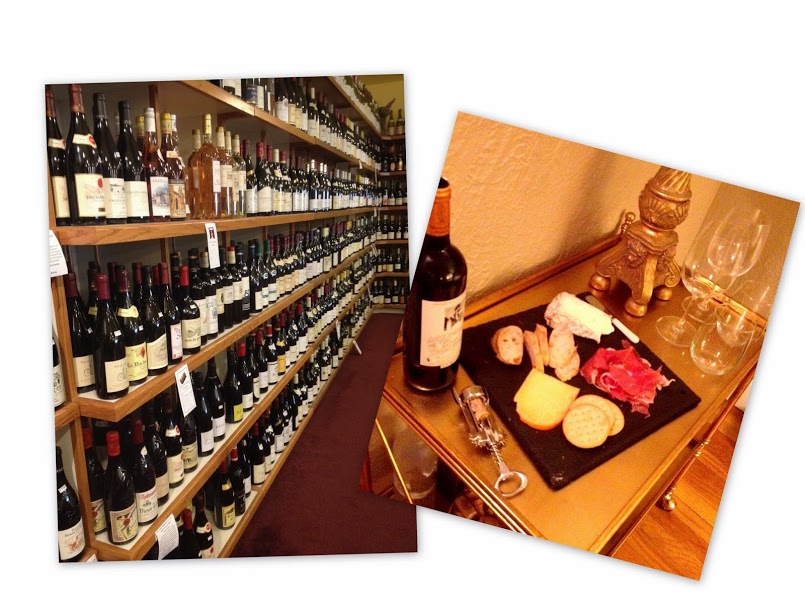 ~Images: (1) a cafe in Paris in Montmartre captured by TSLL |
Sun, 19 June 2022
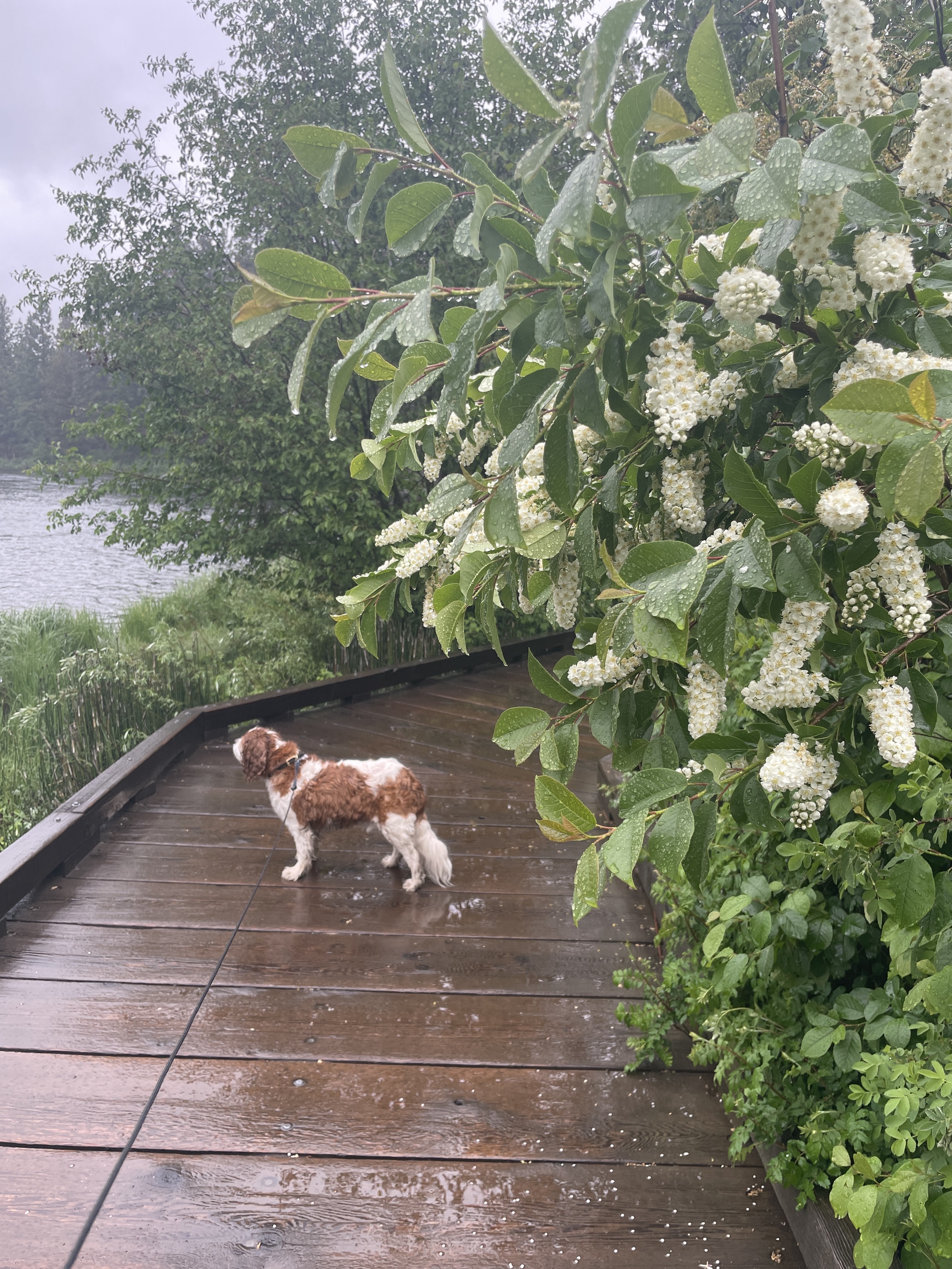
"Your soul needs time for solitude and self-reflection. In order to love, lead, heal, and create, you must nourish yourself first." —Louise Hay Stillness. Silence. Solitude. Whether you have ten minutes or an entire afternoon or day to give to quiet contemplation, otherwise known as reflection, when you choose to do so, you ground yourself, ensuring the next "step" in your life journey will be far more constructive and in alignment with a life of contentment. I happened upon an observation made by Paul Child, the husband of Julia Child, while reading Warming Up Julia Child: The remarkable figures who shaped a legend, while traveling the west coast during the first book tour for his wife, sharing in a letter with Avis DeVoto about the bustle in Southern California whose population was skyrocketing at the time,"'So busy w/material consumption & social whirling,' that they neglected reading and reflection." It was his concluding clause of what he felt was lacking that immediately drew my attention: His prioritizing and valuing of reflection as a regular pastime for a deeper appreciation of art and science, and well, living well, in his opinion. Unconsciously, it has been my nature since I was a young girl, to reflect often. Likely associated with being introverted, but because it was unconscious, overthinking could occur which was unproductive. However, because I knew and had many examples from my life journey that resulted from being reflective, thinking deeply about a project, life choice, or temporary dilemma, I knew there was great power in being reflective. The skill I needed to learn was how to harness it for constructive purposes and to recognize when it became destructive (when my mind would regress to its Lizard Mind tendency and spend time in the land of worrying and catatrophizing).
“Most true happiness comes from one's inner life, from the disposition of the mind and soul. Admittedly, a good inner life is difficult to achieve, especially in these trying times. It takes reflection and contemplation and self-discipline.” – William L. Shirer William Shirer, an American journalist and war correspondent, and notably, the first reporter hired by Edward R. Murrow, acknowledges the need to attain the skill of self-discipline, and the understanding that a strong and healthy inner life is a conscious effort that is not easy, but powerfully rewarding when achieved. In 2010, I shared a list of benefits when we acquire the skill of self-discipline, and over the years I have found to be true that it is when I have clarity about my priorities, about myself and how best to nurture myself so that I am deeply content and at peace that self-discipline becomes easier and isn't a battle with bad habits I wish to eliminate. It may at first seem antithetical to slow down and be still to gain a better life, but as was discussed in last Monday's Motivational post, it is through subtraction that we increase the quality of our life. Silence and the act of Reflecting go hand in hand, as we need to provide the space to recall, remember, examine and consider. As artist from the 16th and 17th century Francis Bacon states, “Silence is the sleep that nourishes wisdom.” In order to understand, we must slow down. In order to find peace with our direction, we must find the time to be still and ponder all that we have experienced during the day, the week, etc.. Confucius as well prioritized the importance and value of reflection when he said, "By three methods we may learn wisdom. First, by reflection, which is noblest. Second, by imitation, which is easiest and third by experience which is bitterest." To reflect enables us to avoid unwanted outcomes, events, loss, pain and hardship. Similar to a pickup that has found its way into a sinking water-logged mud puddle. To continue to spin one's wheels literally, only digs the pickup further into the ground, making it more and more difficult to be pulled free. It is through pausing, reflecting on the situation, ascertaining a plan that is not identical to the one that brought you to the mud puddle that will enable a desired outcome.
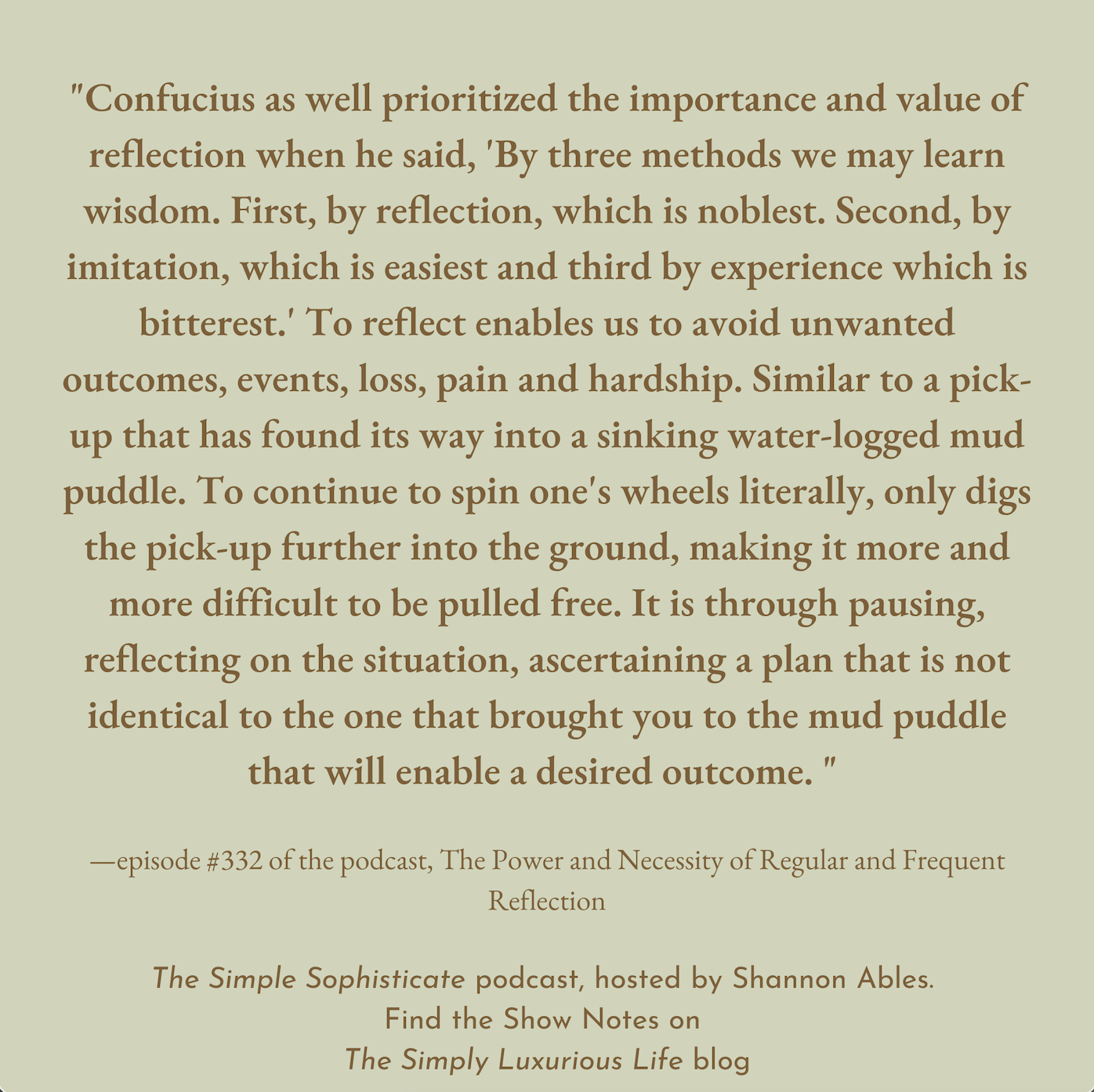 As my own daily life has become far more quiet, I have found myself experiencing moments that remind me of my childhood when I would while away entire afternoons or mornings, completely enthralled with an excursion with my horse or other animals, writing or reading, or simply toodling about letting my curiosity lead the way. Absolute bliss. And such moments were made possible because I gave myself time the year and two years prior to reflect on what was and what was not working in my life, what made me feel fulfilled, grounded and at peace, no matter what others said I should be doing to attain such desired outcomes. In this turning point in my life, reflecting was a vital tool that gifted me with the trust in my decision I had for so long been too scared to make. As I know there are many fellow introverts as well as HSPs in TSLL community, reflecting, as I mentioned above, is likely already part of your everydays. The struggle I consciously have identified to be a barrier I need to work through (or around) in order to get on the other side of is acknowledging and finding peace with the truth that I thrive in an environment and approach to living my everydays that many people I had surrounded myself with or been surrounded by (due to teaching) don't find to be comforting or nourishing. For so long I expended energy, with my family, with colleagues or friends trying to explain, defend and becoming frustrated sometimes to the point of exasperation as though I was banging my head against a wall, that how I enjoy living my days is the real deal. It genuinely brings me deep satisfaction, elation and it is my place of true contentment. Some of these people I would try to convince extended pity, some assumed their way of living was superior because it wasn't their way and so I must be unhappy even though I claimed otherwise. And so what I am in the process of doing is finding peace with the reality that they may never understand, finding courage to speak my truth in a loving yet strong way, being at peace with the reality that my truth may cause some of these people to feel discomfort in the moment when I share, but I avoid feeling resentful later which is a destructive and unhelpful feeling as I move forward building and nurturing relationships with people who accept a truth they may never understand, and lovingly acknowledge there are many ways to find contentment and thus many moments of happiness.
I share the above journey first because all of my ahas discovered came about through regular reflection. The ahas didn't come instantly, but they did come. Often assisted by reading, as Paul Child paired with regular reflection, because none of us has all the answers to the questions we will come across while we reflect, and so in areas where I didn't understand, I looked to those who knew far more than I did. And the second reason I shared the above journey is because I wish I had heard someone say this to me, to tell me how you live your life, what brings you peace, calm, exuberance need not be validated by others. In the introduction of the November chapter (chapter 11) in The Road to Le Papillon: Daily Meditations on True Contentment I speak about an aha I had about savoring my joy and not asking permission or validation from others to acknowledge that my joy was okay. Once I became conscious that I was actually unconsciously seeking others approval to feel joy, I then gave myself the approval from within and stopped seeking it outside of myself regarding how I enjoy and find peace in my everydays. So if I can give any amount of peace of mind to encourage you to continue to enjoy your days as you do regardless of whether others in your life currently understand, I hope I can do that today and here on TSLL blog. 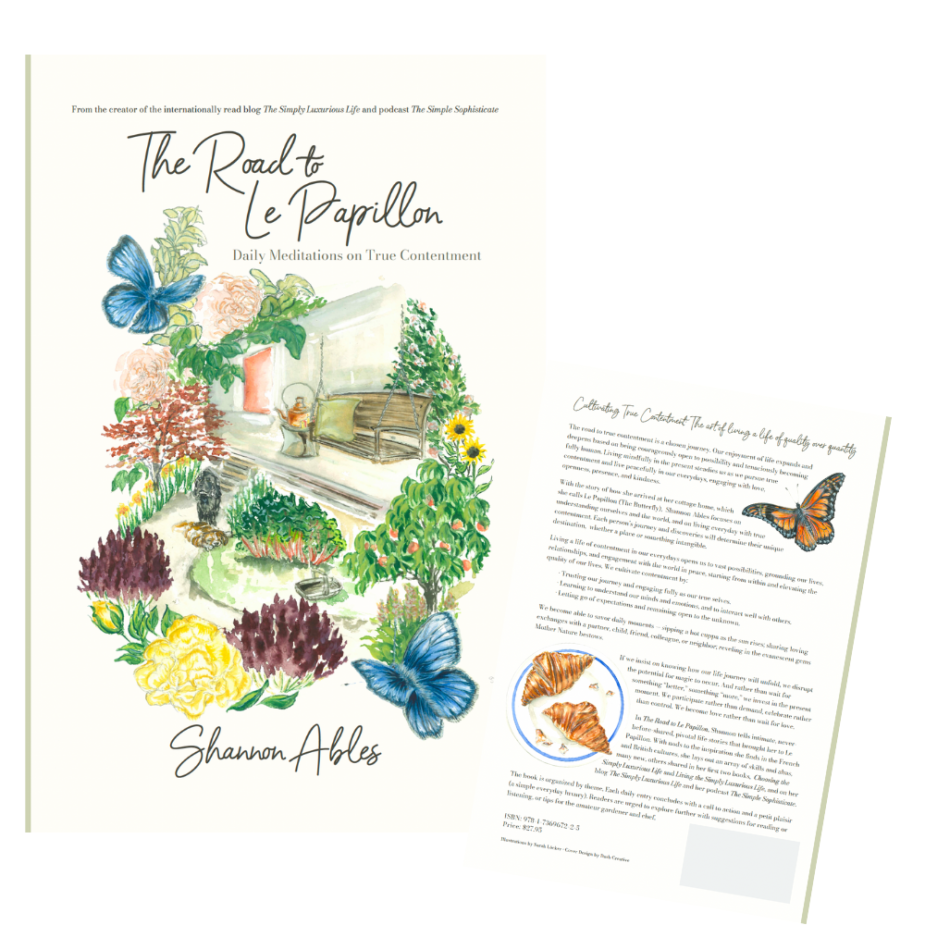
What exactly does 'reflecting' look like in our daily lives? Well, let's first take a look at what it is not. It is not meditating. Meditating is a valuable skill and practice, something I wrote a detailed post about sharing six benefits and how to meditate daily, but reflecting requires you to use the mind, to contemplate, to examine, and meditation asks you to observe your mind, to step back and strengthen your ability or simple awareness so that you engage with each day with more mindfulness, being able to hold yourself fully in the present moment. (1) Reflecting asks for you to find a quiet space. This could be in one spot or on your walk while you either listen to your favorite music, anything that doesn't ask you to think about the content you are hearing, so in order to reflect, you will want to turn off the podcast episode (counter-intuitive direction coming from a podcaster, I know :)). Maybe it is while you are taking a bath, taking a shower, sitting in your favorite cozy chair or outside on your porch or working in your garden. You can be doing something while you are reflecting, but it needs to be quiet which enables your thoughts to wander without influence or distraction. (2) Journaling often helps us to understand what our thoughts are trying to help us understand. As I shared a couple of weeks ago, often it is when I put what I am thinking about on paper that I make more sense of what I am actually trying to work through. The process of manually telling my hand to write a certain word or idea helps me solidify what I am actually feeling, wanting, or what is causing frustration. (3) Reading can help prompt reflection, but only if you stop to let yourself ponder and mull over what it is that was sparked in your mind while you were reading. When I was teaching, I prompted my students to annotate while they read because it helped them to actively engage with the writer. And while it did slow their reading down, it also strengthen a closer reading of the text. My description of such reading and writing on the page was that they were having a conversation with the author - questioning, sharing ahas, challenging, understanding, etc.. (4) Regularly engage in reflecting and thus it will become a practice that not only becomes easier to do as you will find great benefit as you go through your days, but you will want to return to this comforting space in your day. Reflecting becomes a space where you are conversing about the day's and life's events, making sense of them as best you can and if you cannot, presenting questions for your mind to mull over in the days and weeks to come. I find the latter to be unexpectedly powerful because our mind is there to help us if we let it. We can sometimes pose a question to our mind, sleep on it, and wake up with an amazing aha we had not thought of but because so much stored information is in our long-term memory, it took our mind time to find where it was located. :) (5) Practice meditation. I know, I know, I just said that meditation is not reflecting, and I am sticking to what I said, but in order to have an effective and beneficial reflective practice, you must have control of your mind. You need to be able to tell it where to go and where not to go, and how you do that is by strengthening the muscle that is the mind, and you do that through meditation.
The Benefits of Regular, Frequent Reflection Now that my days have breath, in other words, regular 'white space', something Mozart reminds is how the music is heard and thus appreciated (here is his actual quote, “The music is not in the notes, but in the silence between.”), I reflect every day and have found great strength received, grounding steadiness and a more sturdy confidence in my journey moving forward which is full of so many unknowns. Often the reflecting is in my journal, but it can also occur while I am taking my long morning walk with Norman or our short stroll in the evening. I have had to consciously remain vigilant that my mind doesn't let the reflecting wander where it doesn't need to go - worry, catatrophizing, etc. - places it would go without my knowledge previously of how to stop it or acknowledging that doing so was unnecessary and definitely not helpful, but such bad habits have been significantly reduced if not eliminated. I find this bad habit arises when I am tired, have not given myself enough time to recharge, and so I am being more mindful of my daily schedule as well. The key to ensuring your reflection is beneficial is to always be focusing on constructive actions and progress rather than ruminating on negative events. The latter is where 'overthinking' and catatrophizing can happen, and there is never a benefit in such mental habits. This is where strengthening your mind gives you the power to direct your mind's attention. This is where meditation is a skill that contributes to reflection as meditation strengthens the muscle that is the mind. Now let's look at the benefits of regular, frequent reflection.
"Honest self-reflection opens your mind to reprogramming, change, success, and freedom."- Vikas Runwal As well, in order for any of the below benefits to be experienced, you must be brave enough to be honest with yourself. You may not like what your mind discovers upon reflection during certain instances as you realize you behaved or acted or spoke in a way that was not in alignment with who you want to be. You may discover you need to apologize and accept the consequences of your choices, but in so doing, you will learn, and because you are reflecting you are beginning to create positive change.
"Time and reflection change the sight little by little 'til we come to understand." —Paul Cezanne 1.Deeper clarity of direction 2. Decision-making becomes easier 3. Deeper clarity of your needs, dreams and their roots of origin - are they yours innately or placed upon you by society 4. Better selections of which relationships to become a part of, to invest in 5. Improved relationships - you discover areas you would like to improve, better understand about yourself, and you also find your voice to communicate your needs, desires and interests. 6. Reduction of stress and anxiety as you become comfortable with your own company, strengthening your sense of agency as you trust your decisions and competence to navigate whatever the future presents. 7. Deeper and more restful sleep 8. Improved Emotional Intelligence (EQ) In order to welcome a regular and frequent practice of reflection, you may have to rearrange your daily routine, but I assure you, the benefits, what you gain, will be more than worth it as you will begin to live a life you deeply love. Changes will certainly be a part of your journey when you begin to reflect in this way, but the changes will be made by you, and will be constructive. So today, embrace your own company, befriend yourself, as Jane Austen describes the leading character in Mansfield Park Fanny Price, "Her own thoughts and reflections were habitually her best companions." Once you begin to confront behaviors and choices that do not contribute to the life you want to live, you will greatly enjoy the company that is your constant companion, you.
"The capacity to reflect is at the heart of what it is to be an effective learner."- Bill Lucas
SIMILAR POSTS/EPISODES YOU MIGHT ENJOY
Petit Plaisir
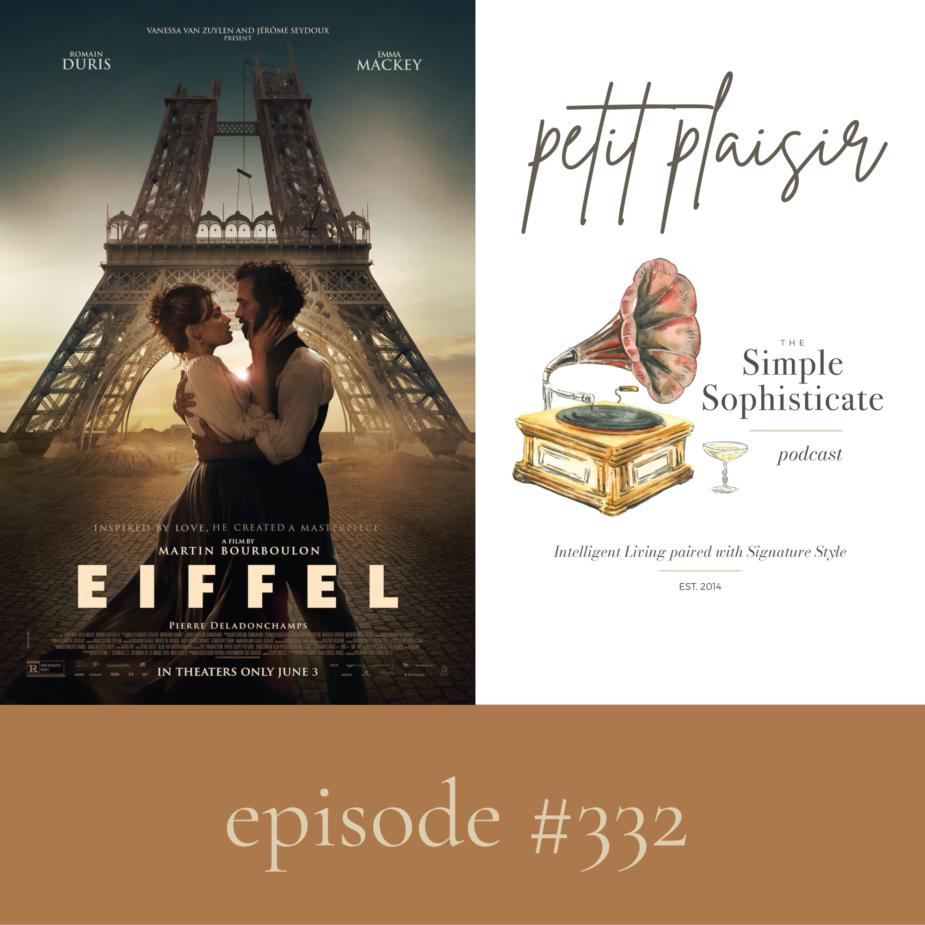 ~The Simple Sophisticate, episode #332~Subscribe to The Simple Sophisticate: iTunes | Stitcher | iHeartRadio | YouTube | Spotify | Amazon Music |
Sun, 5 June 2022
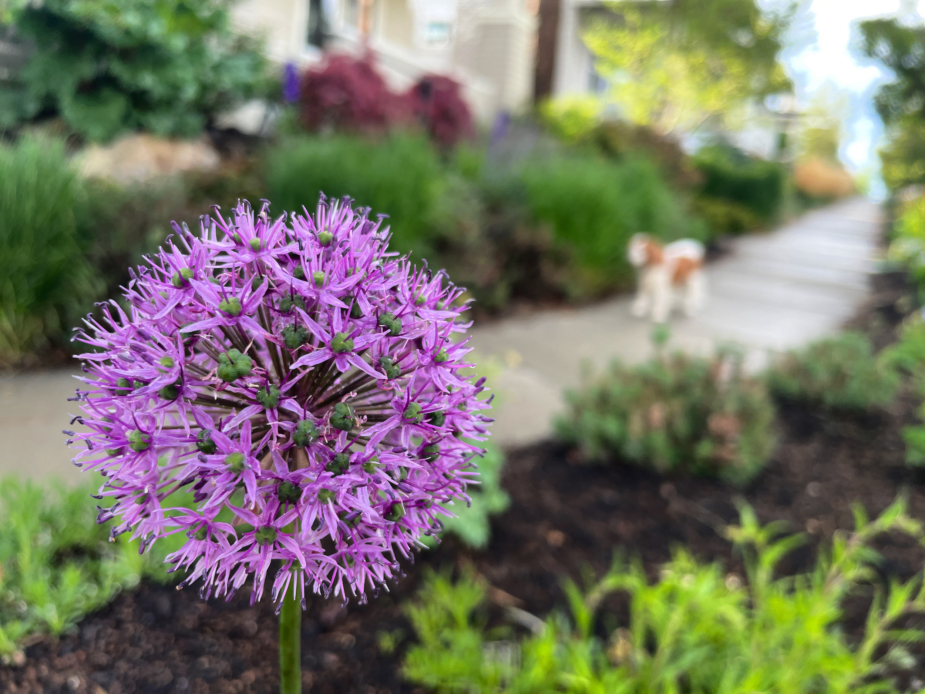
"Our life experience will equal what we have paid attention to, whether by choice or default." —William James To hold our attention on a singular point of focus exhibits a strength of being able to thwart the tugs of distraction. And to be able to thwart distraction takes conscious intention to notice, to choose to hold ourselves in the present and to be an observer. An observer, contrary to what many may at first liken it to being, is not a wallflower or someone who is shy or passive in how they engage in life. No, an observer demonstrates awareness of the world beyond their inner world, beyond their own thoughts, worries, past experiences and biases. An observer acknowledges that the moment in which they find themselves is far more awesome when we step away from the past and choose not to look past today into the future and instead hold ourselves and our attention in the present without expectation of what we 'must' see or find. There are many reasons for noticing of any sort - looking for the good, looking for the threat or simply observing - to become a honed, yet unconscious skill in our lives, and I will be addressing by the latter on this list of three can actually bring more awesomeness into your life. Depending upon our childhood or our relationship with any caretaker during our youth, or in a culture where and if we were perceived as inferior or the minority, if the day's events unfolded based on how we engaged, what we said or didn't say, did or didn't do, we may have become very skilled at noticing others' moods, behaviors and tone of voice. Such 'noticing' was for survival, for a 'better', less contentious environment. However, it wasn't a noticing of what all that surrounded us, but rather a noticing in order to avoid threats, pain or belittling most specifically and solely. If we were so fortunate to be raised and then as an adult live in an environment where joy was a regular and consistent feeling, good moments and peace-filled and happy feelings, even if different from those around us, were celebrated without judgment, then noticing the good is a muscle we have been toning and maybe didn't realize what a gift we were given. I recently read The Art of Noticing by Rob Walker, and his introduction shares that the environment in which many of us find ourselves, if we aren't exercising our 'noticing' muscles, can detract our attention and thus prevent us from living well or fulfilled. Walker includes a quote from philosopher Georg Simmel who in 1903 wrote, "The stimulation of modern life . . . wears down the senses, leaving us dull, indifferent, and unable to focus on what really matters." That was in 1903 which while I know many may say, well, it has only gotten worse, I would counter an understandable remark by saying, its a perennial issue, an issue of whether or not to choose to notice the awesomeness, to notice when we need to turn off the noise (if we perceive it to be noise) and live more presently rather than just let what comes and what happens happen. There is a reason stimulation of constant bombardment of noises - pings, quickly displayed images in movies, programming, advertisements and overlaying of music with films/shows/etc. - occur: to give you no space to think, and instead to tell you how to think. The only way such stimulation can work is if its creator knows where its audience is at the present moment. The advertiser, the media, the speaker has to meet the audience where it is, then they pull the audience (whose attention they now have) where they want them to go (or to think). If where they begin their messaging is too far removed from where we (the audience) are, their message or idea will not land and thus not be effective, so to this point, whether it is 1903 or 2023, the world around us will forever be trying to overstimulate us in order to wear us down to refrain from thinking and nudge us to just go along, letting us believe it was our idea. Our job is to be thinkers, critical thinkers, and choose to strengthen the skill of 'noticing' or as what is often described on TSLL blog, be fully present and thus mindful. So how exactly do we become better at noticing all that is around us and thus witness, observe and savor the awesomeness in our life and the world? How do we see all that is around us clearly without the veneer of societal biases and norms? I'd like to share with you a list ideas for doing just that - seeing clearly, seeing the awesomeness and thus discovering how quite sweet everyday life is exactly where you live, call home and make your life.
1.Slow down I can already see some readers/listeners' response to this first item on the list. The reasons for their inability to slow down are on the tip of their tongue. 😌 I don't disagree that the life you are currently living will not slow its pace to match yours when you choose to shift to a speed that enables you to notice the world and yourself as you live in it. However, my first question is, Whose needs are not being fulfilled when you slow down? Likely, it is others' needs, not yours because if you are acknowledging you would like to slow down but cannot, you are already expressing a need to take your foot off the pedal. We cannot change anyone else's behavior but our own if we wish to engage in healthy relationships, so we cannot know why others feel they must go at the pace they travel, but if the pace you are traveling leaves you unable to feel fulfilled, leaves you regularly trying to catch your breath, hitting the snooze button, drinking one more cup of caffeine, etc. then slowing down is the first and best way to be able to notice anything that will be beneficial and incorporate it regularly into your life to see significant change. When our regular everyday pace slows down, much like a train that has halted at the train station, we can situate ourselves, read the signs clearly, take in the scenery without it whizzing by and really observe the detail in our lives. When we observe, because we have slowed our pace, we are able to take note of what is working, what provides comfort, genuine support, real love, and what does not. Then, with this clear information, we begin to make better decisions. Not being rushed, we choose with confidence what and whom to engage with or to refrain from and know in our minds why we are doing so, and that it is our true self that is making the decision, not an outside influence.
2. Celebrate this truth about being human - "more than any other creature, humans can outmaneuver our own base instincts" Base instincts in humans deal with surviving. Not thriving, but surviving, so in other words, we are programmed to instinctively look for the threat, not for what will make us smile, not for what will make us feel at ease or happy or loved. Instincts are not intuition, so let's not conflate these too. Instincts are pre-programmed based on experiences we have never had, but as human beings living in a civil, modern world, our instincts are leading us astray and causing us more harm and dulling a life that could be so much more fulfilling and peace-filled. Intuition is honed; it is a skill that takes time to understand because each of our intuitions, while residing within us, is waiting for our true selves to emerge and for us to consciously understand who that is. Once we come to understand our own language, translating what our intuition is telling us becomes second nature. So back to the outmaneuvering our base instincts as shared by Rob Walker in the above quote. For survival purposes as a child or as an adult who has to be constantly looking out for threats due to variables beyond their control, noticing takes on a negative, but necessary connotation. Even when the threat is no longer - we have removed ourselves from that environment, that person, etc. - our instinct is to stay vigilant and only keep an eye out for threats. This is where we must outmaneuver what we have done in the past, and instead begin to observe all that surrounds us. Walker astutely points out that it is no coincidence that a civil and modern society that feels overwhelmed by stimulation is simultaneously seeing a rise in meditation and mindfulness practices, teachings and routines. This is a beautiful and constructive example of 'outmaneuvering'. Humans can bring about that necessary change for a more enriching life when we acknowledge how we are currently living is not fulfilling.
3. Embrace solitude Discover the gift and nourishment sharing time in your own company can be. A TSLL reader recently and bravely shared that it wasn't until they felt truly lonely, that they found their true selves. Why? Because by looking the feeling of lonely in the face, they came to understand what made them feel lonely, and as this reader journeyed through the feeling (she didn't avoid it or turn away from it once she met it), she found ways of living her days that included time in her own company partaking fully having intentionally chosen for no one else to be there but herself and finding deep enjoyment. why? Because it wasn't her being alone that made her feel lonely. What she discovered was her true self, and this self-knowledge was aided by letting herself run into feeling that was lonely which then led her to understanding what her true needs were to feel fulfilled and nourished. Loneliness often is misdefined. Loneliness is not being without other people. Loneliness is not knowing what fulfills you and thus not feeling connected to the world in which you find yourself. It is when you embrace solitude, a necessity, not a luxury, that you give yourself the ability to be the student of yourself. You are forced to be honest with yourself if you choose to be courageous enough to stand in the space where you are the only human being. It is my regular moments of solitude where I am refueled, nourished and find clarity. It is in my regular moments of solitude where I reflect on my feelings, events and thus come to fully understand myself so that moving forward I know clearly how to engage well with others, to apply what I now know and connect more sincerely and deeply when I step out of my solitude.
4. Let your curiosity be your guide Being curious leads you to new discoveries. And each step forward prompted by curiosity strengthens your ability to be vulnerable. Your first steps fueled by curiosity may be small and appear insignificant, but they all add up to you becoming a person who knows how to be present and keep an open mind, open to what will cross your path, and instead of judging it, exploring it. Whatever it is that stirs your curiosity such discoveries are much like the cookie crumbs leading you to and on a trail of fulfillment. You begin to discover what brings you to life, what enlivens you in a way other activities may not have. And while other activities may prompt curiosity in others, you begin to celebrate the differences and realize that following anyone else's path is not the route to true contentment for you. All of this is to say, each of us finds our way to true contentment on different paths, and this is something to celebrate. Because when we find our path, we're not looking at other people's route, but grateful they have found the grounding peace just as we have.
Concrete Ideas for Noticing Choosing to be an observer means we are holding ourselves fully in the present moment, and rather than judging what we see, which involves our unconscious biases, we are simply noting. We see it. This is what we see, hear, feel - the senses become our translators. 5. Choose to engage in only one task at a time By choosing to engage in only one activity, we are not distracted by another tug of the other tasks. Our attention is given wholly, our focus is on one thing, and so we can take it all in and are less likely to rush and thus deepen the quality of our efforts. 6. Reflect regularly - Make a list weekly, yearly, etc. of just what is To note what has evolved, changed, is no longer, has begun make a list first of what was just last week at this exact time. If you would like to go further, make a list of what what happening in your life one year ago today, perhaps even two years ago or three years ago. When you create such lists, you are not passing judgement, just stating facts - truths of what was happening, was in place, how you felt and why you felt it, etc.. I enjoy this regular practice for weekly reflection and what I have found, especially when I make the yearly and bi-yearly lists is that the headaches and bothers at the time are no longer remembered, and thankfully, often the large headaches have been overcome and that gives me calm and confidence. Moreover, I am reminded that any harried or fretful thinking I had didn't materialize and that savoring all that was going well was the best thing to do so that better engagement occurred (whether I wisely heeded this advice them or not, upon reflection I am encouraged to do so moving forward). 7. Allow silence in conversation to be present While in a conversation, often when there is a span of silence, one or both people try to fill it. Why not . . . let the space of silence be. In so doing, you let thoughts marinate, you give time for a response rather than a reaction and how you hold yourself in this span of silence has the potential to provide comfort to the other that indeed, such a silence is okay and you are not rushing and you are choosing to be right where you are and with them. Begin to notice in such moments how you feel. At first you may feel uncomfortable, unsettled as you acknowledge you want to fill the space but is there really anything that needs to be said at that moment if you don't know how to respond to what has just been shared? Give time and see how you feel not rushing to speak.
8. Just listen My mother does this very well. She will just listen to me. She doesn't insert her opinion, pass judgment or interrupt and thus I meander in my words until sometimes I discover something I had not realized simply by sharing. Of course, just sitting silently all of the time doesn't consist of a conversation, but the practice is to know when to just listen. When you do this you open up space to just notice. You take in not only the words, but their physical movements, facial expression and all that is going on around them. You also again give yourself time to observe and thus when you choose to engage verbally in the conversation, you are responding having given thought to what you will say and how it will be received because you have wholly taken in all that the speaker has presented. 9. Regular digital silence Walker suggests taking a week of digital silence to not engage or 'connect' on your social platforms, but instead just observe. You can check your email, your social media accounts, but if you are trying to become more aware of the world around you and really see what does surround you, do not comment, like or anything else that is engagement on your part. Instead, just observe and see what you notice. What really does draw your eye, and why? Discover if you really do need to respond and why you previously felt you needed to. Walker goes further to entertain the idea that if we had a limit to how many times we could comment or respond each week, where would we place our energy and focus? Why would we do this? All of this silence we choose to welcome into our lives as shared by #7, #8, and #9 give you the opportunity to become more aware and thus discover if you are engaging in the world in a way that is in alignment with the life you want to live and how you want to show up in the world. 10. Audit your daily sonic profile This particular suggestion by Walker caught my attention, especially as someone who lives alone, and for any TSLL readers who tune in to the monthly A Cuppa Moments, Norman's snoring (something I adore) is more pronounced than I realized when it is captured on video. This always makes me smile because when we take note of all of the sounds in our everydays we might discover certain ones provide comfort while others dull our experience and still others numb us to truly feeling what we need to feel. I have spoken about this before but I have realized that as I have grown, I am more and more comfortable with silence and prefer it as unnecessary sounds if not soothing to my ear (I adore birdsong for example and find it nurtures and encourages my writing, but the sound of a leaf blower drives me up a wall leaving me unable to concentrate). What I have also realized is that part of why I needed some 'noises' in my life - the television on or the radio in the background - was because I was unable to be mindful, unable to master my mind and where it would wander. As well, advertisements are always muted or turned off when they appear during shows I am watching as after having taught rhetoric for many years in school, I am now aware of the subtle influences of skillful advertising companies and don't want to introduce any ideas I don't choose to watch or explore mindfully and entirely into my days when all I want to do is relax with a quality program. The auditing of your sonic profile also includes the small, everyday sounds such as the dishwasher's humming, the dryer's whirling, ice crackling when you pour the liquid over the top for sipping. Observe the natural sounds that surround you as well - the drizzling of rain, the gentle breeze and dancing of the leaves. When you begin to notice all of the auditory details of your days and how they affect you, you begin to pay more attention to how to build a life, a day, that nourishes you, your mind and your being. 11. Be alone in public I sincerely enjoy doing this and because of how I live my life, I am alone in public often, and am quite comfortable with it. Being alone in public also makes me more deeply appreciate when I am spending time with others out in public as I engage differently as my attention is primarily on the conversation I am having and what we are doing together rather than the exterior going-ons. When I am alone in public I notice details far more quickly, easily and deeply. I also notice how others are not noticing all that is going on around them which, as I shared above, is what most of us (including myself) do when we are with someone we want to be with - we give them and our engagement with them our full attention (this is a good thing :)). The balancing of both time in public alone and with others enables us to become more aware of our environment and how the community we live in engages, organizes, what it enjoys, explores, celebrates, etc. I also find myself being open to new and unexpected conversations and opportunities when I am alone in public because you see more, and if you are observing and not judging, you are open to whatever may cross your path. This doesn't mean you have to engage, but you see it and that is what noticing is all about. 12. Journal your days This one is my practice and suggestion. One that I have found when I don't know what to do with my mind due to feeling restless or confused or at the beginning of shifting my days to a slower pace. When I sit down to journal, I begin to notice what just thinking about what I noticed could not accomplish. Putting on paper how I felt when I woke up and how the morning sun streaming through the reading nook window brought a smile to my face reminds me of the awesomeness that I may have forgotten about by the end of the day. Such seemingly trivial 'noticings' are actually, as Walker states in his introduction, vital. "[Paying attention] connects us with others. It makes you eager to find interest in the everydays to notice what everybody else overlooks—these are vital skills and noble goals." When you begin to really pay attention to the present moment and observe with an open mind, you begin to realize "what matters to you" and you begin to let go of what was told to you that you should care about, what your life should look like and what next steps you should take, because you now know what brings you to life when certain details, events, people, activities, time alone awakens your true self. Today and moving forward, infuse your everydays with more 'noticing', more observation and by doing so you will strengthen your ability to hold yourself in the present moment which strengthens your ability to be mindful which all contributes to your discovering how awesome your everydays are and the world you choose to live in fully.
SIMILAR POSTS/EPISODES YOU MIGHT ENJOY:
Petit Plaisir
 ~The Simple Sophisticate, episode #331~Subscribe to The Simple Sophisticate: iTunes | Stitcher | iHeartRadio | YouTube | Spotify | Amazon Music |
Sat, 21 May 2022
 The British culture is varied and vast and while one person's affection for the culture may include punk rock along with their love for the Beatles, another's affinities may gravitate toward the gardening and afternoon tea. While my predilections lean more toward the latter, whenever a culture speaks to us that is not the one in which we grew up in or were raised entirely, we owe it to ourselves to continue to explore because our intuition is speaking. As many readers of TSLL and listeners of the podcast know, TSLL derives much of its content from two cultures, the French and the British, specifically the ways of life that invite us to slow down, savor and invest in quality moments and approaches rather than quantity and superficial living to gain approval. Instead the only approval we seek is from within. In episode #144 I shared 20 ways for welcoming the French culture into your everyday life, and so it is well overdue that I should share a similar list for welcoming the British culture into your everyday life. After having now visited London on three separate occasions and the English countryside on two separate occasions, I enjoyed compiling this list as my life in Bend is a marriage of both my love of the French and British culture, incorporating from both the everyday rituals I love, savoring approaches, tastes, décor and ways of life that reminds me of two cultures that tickle my curiosity and nurture my true self most sincerely.
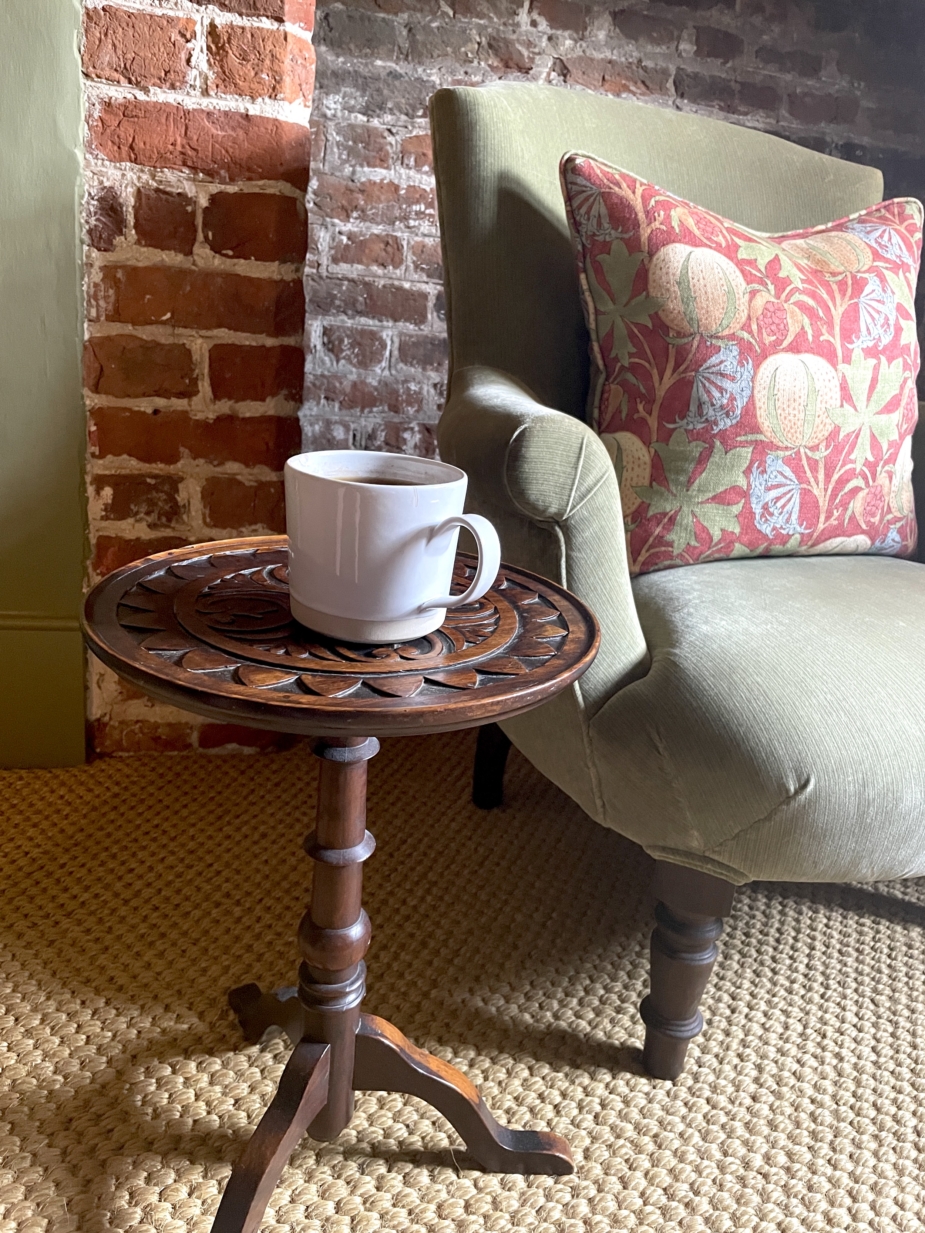 Inspired by my most recent visit, but also drawing upon all of my experiences and fortunate opportunities to explore Britain, let's take a look at how we can welcome different ideas into our everyday life the British culture. ~Note to readers: Be sure to listen to the episode as each item listed below is discussed in much more detail in the audio version.
1. Create a tea ritual in your everyday routine
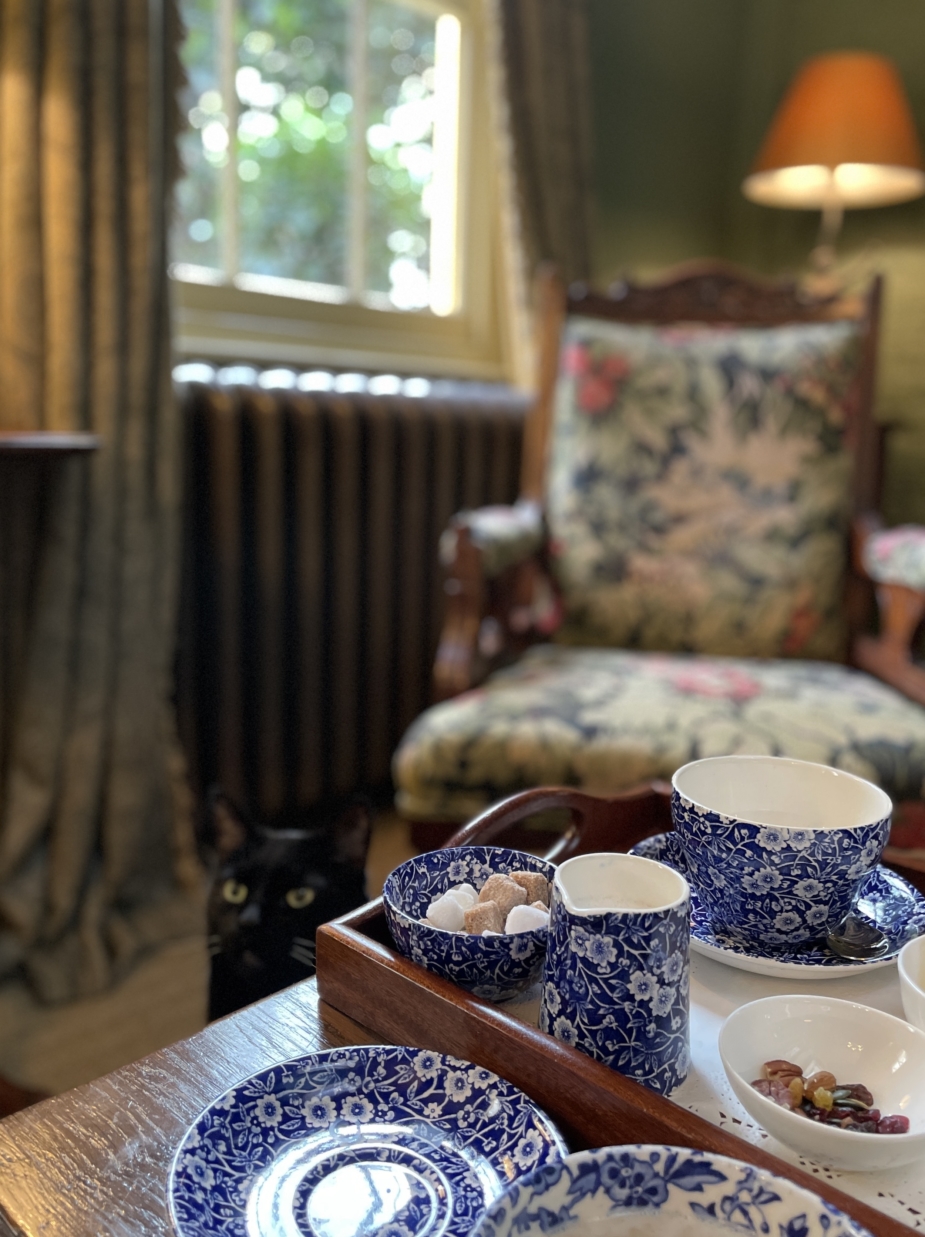 The feline host at The Rookery in London, Bagheera, joined us for our morning tea. 2. Know, use correctly with confidence and be able to explain the difference in conversation between saying England, Great Britain/Britain and the United Kingdom ~tune in to the audio version for this episode where the differences are explained Check out this detailed and easy to follow post about the clear differences.
3. Subscribe to either AcornTV or BritBox (or both), and enjoy multiple series, films and BBC programs, some within hours of their airing in Britain
4. Grow a garden no matter how large or small your outdoor space or balcony
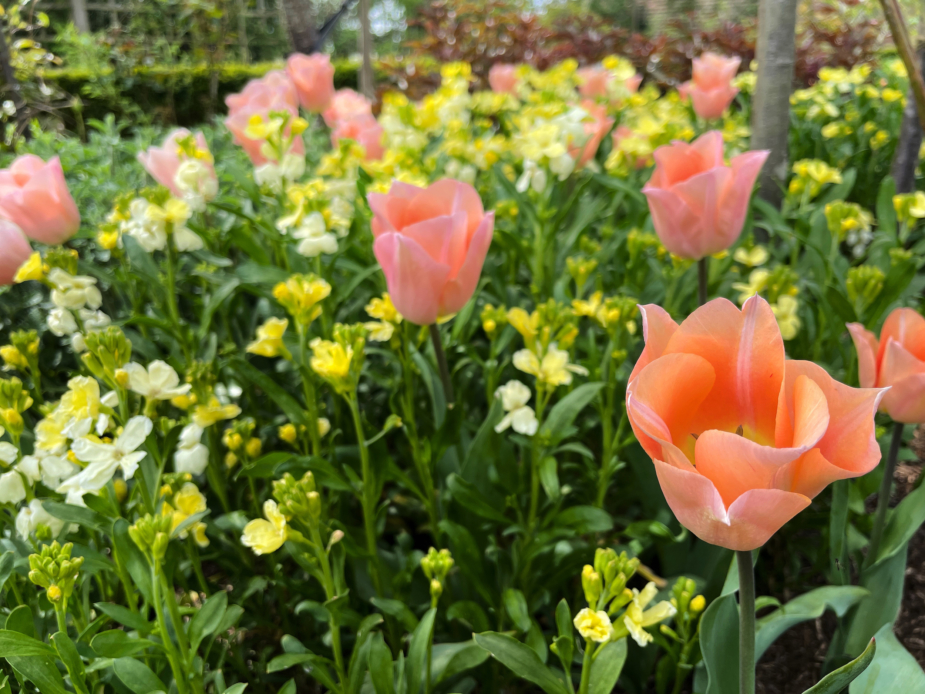 Touring gardens was a primary focus on this most recent trip, and Sissinghurst Castle Gardens inspired many ideas as well as soothed the mind and being as I wandered the grounds for hours.
5. Invite others to 'tea' at your home or for a Cuppa
6. Celebrate the Queen's Platinum Jubilee this year ~Have you entered the Grand Giveaway for your chance to win Fortnum & Mason's Jubilee Hamper? Click here to do so.
7. Welcome cozy upholstered furniture (reupholstered an old favorite) into your home décor ~Staying at The Pig at Bridge Place introduced many ideas for cozy upholstery inspiration.
   
8. Watch football (aka soccer), or not and instead watch tennis or cricket or rugby
9. Have biscuits (shortbread cookies) or something simple to nibble on when having tea with guests at your home
10. Tune in via television or radio to the BBC "The oldest national broadcasting organisation in the world with a global reach, covering world events 24/7 and producing world-class entertainment".
11. Watch Ted Lasso on AppleTV+ A new season will likely be released this late summer/early fall. The first two seasons can be streamed in entirety now.
12. Acquire a high quality umbrella (and use it when it rains) ~James Smith & Sons in London on New Oxford was a must-stop during my recent trip to London.
  
13. Layer with pillows, let go of matchy-matchy Instead keep in the same color tone, and mix large and small prints with the occasional solid.
14. Find time to spend time at the oceanside
15. Make and enjoy scones with clotted cream and strawberry jam
16. Watch Come Dine With Me (on Channel 4) Premiering in 2005 and running for 27 seasons, so far, this reality series is a hit across Britain.
17. Find your favorite color of a pair of wellies and have them on hand
18. Make and enjoy a traditional Cornish Pasty
19. Watch The Great British Bake-Off each late summer/early fall
20. Enjoy a proper English Breakfast What exactly is a traditional English Breakfast (we're not talking about the tea here)? Sausages, back bacon (not a crispy version, but rather more hearty as it consists of a little bit of the loin and is smoked), eggs, tomatoes - pan seared and seasoned with salt and pepper, mushrooms, fried bread, and beans.
21. Practice your French Did you know that the Queen looks over the weekly menu given to her by the chef who writes the menu in French, as has every chef dating back to Queen Victoria's reign? Yep, and just another lovely reason to incorporate both cultures in some way into your daily life. :)
22. Practice thoughtful manners Give personal space (an arm's length distance), use both a fork and knife when dining, don't ask nosey questions, please and thank you, respect the queue, refrain from superlatives (i.e. the best, greatest, worst, tallest, shortest, most exciting, etc.)
23. Make and enjoy Yorkshire pudding (and it isn't a 'pudding')
24. Welcome trays into your everyday for serving tea, meals, courses, etc.
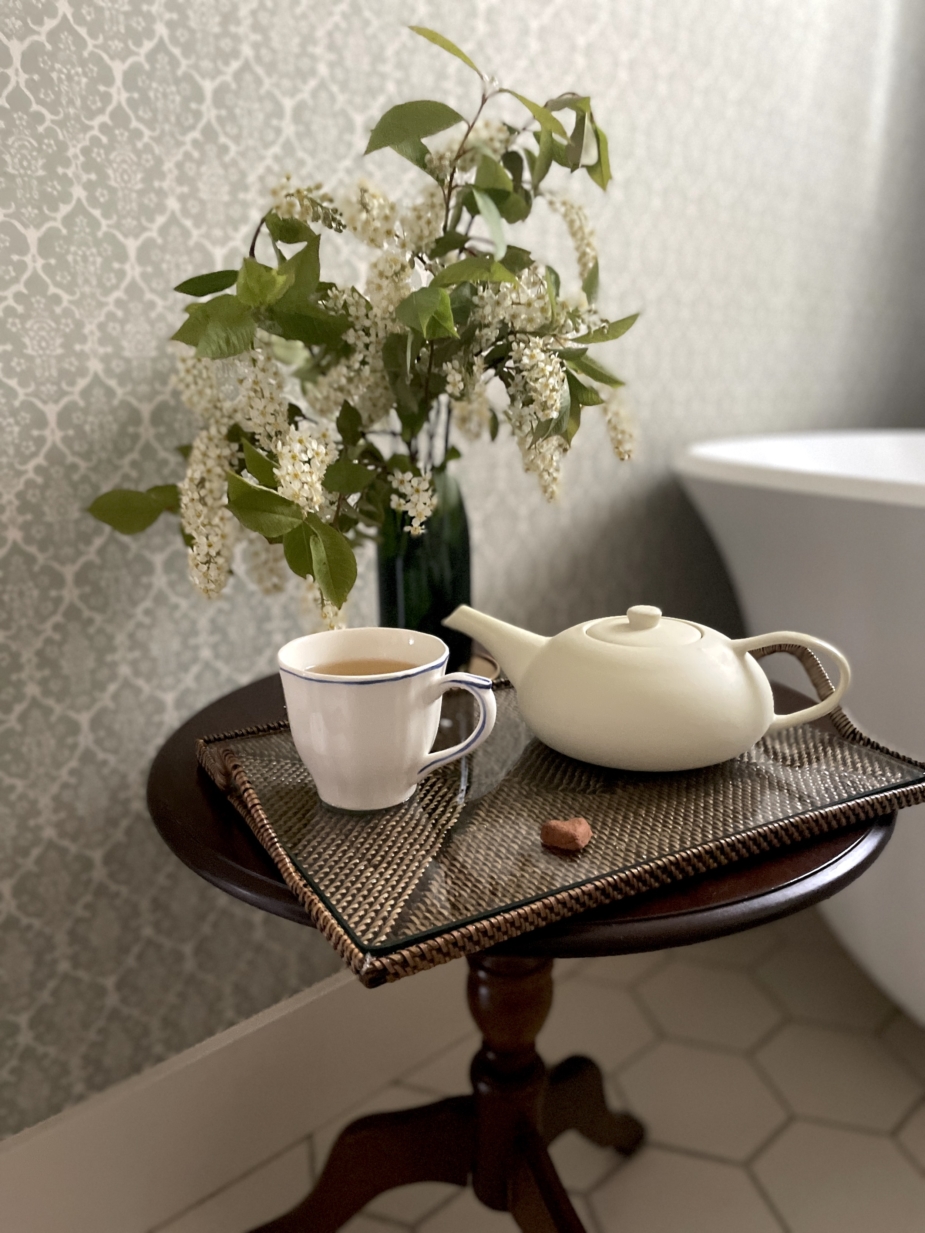 ~Be sure to enter this giveaway to win a high quality, handmade rectangular tray with glass top.
25. Enjoy daily walks with your pups and say hello to passing pups
 During this trip walking was done both in the heart of London (seen here with Big Ben in the background) and in the English countryside as we toured Sissinghurst Castle Garden. This photo was captured after just having departed from The Tube in the morning on our way to Westminster Abbey, followed by a visit to The National Gallery and then to Claridge's for Afternoon Tea. Needless to say, Norman was missed, and our reunion upon arriving back in Bend was quite sweet.
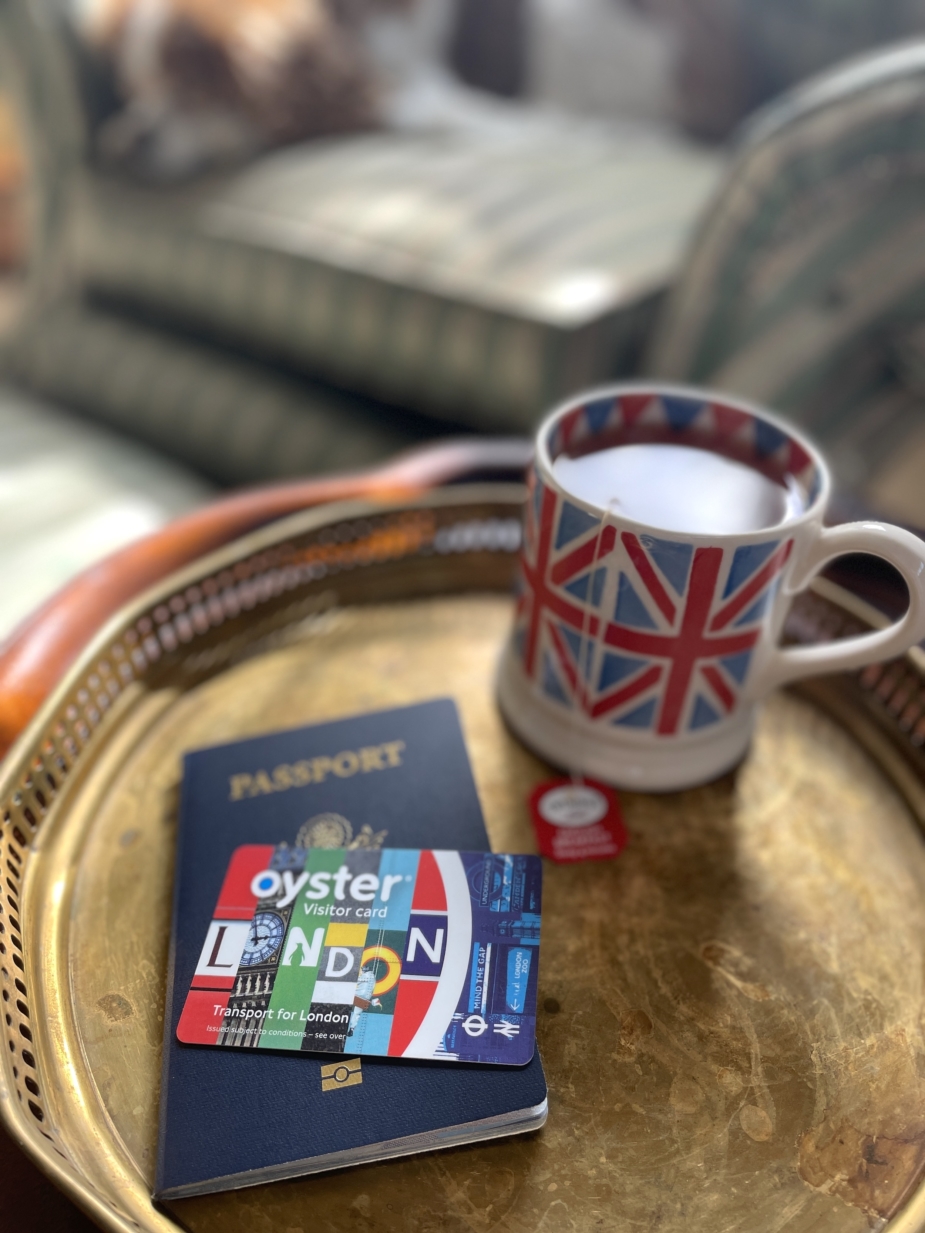 Enjoy English tea at home in Bend, Oregon, with Norman as my companion. Bliss.
SIMILAR POSTS YOU MIGHT ENJOY:
Petit Plaisir
 ~The Simple Sophisticate, episode #330~Subscribe to The Simple Sophisticate: iTunes | Stitcher | iHeartRadio | YouTube | Spotify | Amazon Music ~Explore all of the posts shared during this year's Annual British Week. Today's episode wraps up all of the new posts that will be shared (16 in total), and be sure to enter to win all of the five giveaways by 4pm (Pacific) today. All winners will be announced in a detailed post tomorrow on the blog. Thank you to everyone who stopped by this week. What a fun week it was! To talk all things British's and reminisce and hear your stories of travel as well as future trips, I am excited for everyone as each of us welcomes the British culture in our own way of everyday life continues. Have a wonderful weekend.
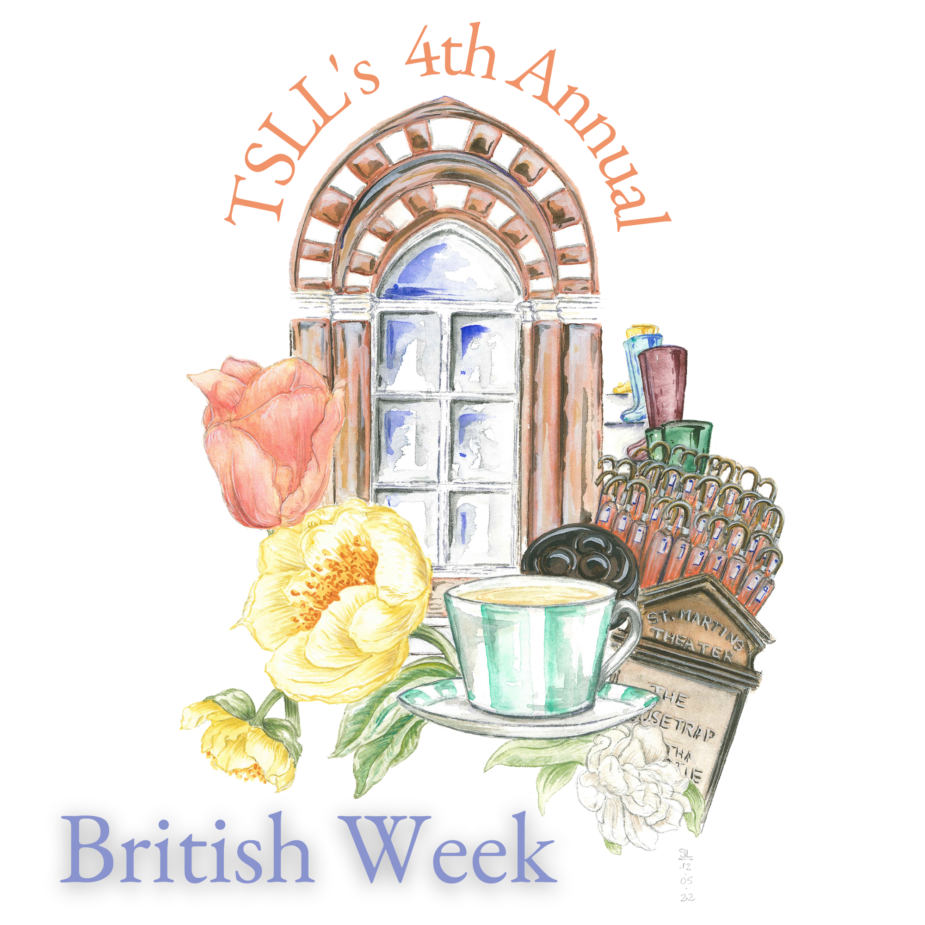
|
Sun, 15 May 2022
To feel intrinsically connected with a culture other than the one you were raised involves the feeling of a coming home. A 'coming home' in a way that seems impossible until you feel it first-hand, deep in the marrow of your bones. As I share in detail in the introduction of the month of May in my new book The Road to Le Papillon: Daily Meditations on True Contentment, my first trip and time spent in the English countryside spoke to my inner most true self in a way I didn't expect, but completely understood. Returning to England this past April was life lifting. Noting not having visited since 2017, which I didn't realize consciously is nearly 5 years, ended a drought of British culture seen with my own eyes that I needed more than I realized. It was a figurative deep breath of fresh air that upon taking in, immediately brought a smile to my face and a calm to my being. While I didn't spend my time as I most enjoy for most of my days when I am in England, which is to rent a vacation rental out in the countryside and go about many days just savoring the everyday routines and visiting an occasional destination of interest, I was in Britain, and that was all that mattered. I saw places and spent time partaking in activities that further introduced a culture to me I had not done before, and for that I am grateful. In today's episode/post, I'd like to share with you 20 Life Lessons learned during these 3 1/2 days in Britain - both in London and in Kent as we took a train ride out to the southeast countryside of England and spent the night as we were intent to visit Sissinghurst Castle Garden, and oh what a treat that was. Let's take a look at the list: ~Note, if you tune in to the audio version, I share much more detail about each item on the list. Be sure to check out the podcast wherever you enjoy your favorite shows. ~The Simple Sophisticate, episode #329~Subscribe to The Simple Sophisticate: iTunes | Stitcher | iHeartRadio | YouTube | Spotify | Amazon Music |
Sun, 1 May 2022
Today I would like to share with you 16 ideas for savoring Paris fully no matter how short your stay may be. As I have written about in my first book and referred to in my third, the Paris Syndrome is real, but the magic of Paris is real as well. Admittedly, I thoroughly enjoy the French countryside and appreciate and utilize my time in Paris for punctuating my visits as my trips begin and then as I conclude them before making my way to the airport or heading to England via the Eurostar. While in Paris, I give myself a day or two to soak up opportunities to explore exhibits, try new and different restaurants, step inside places I am most curious about as there is always something I have yet to see with my own eyes or simply sit on a terrasse and watch the city go about its day. The energy, the city itself is like no other, and it does seem to breathe new life, excite new ideas and bring them to the forefront for my attention to cease. My recent trip found me traveling with my mother who I invited to join me as I wanted to get my feet back onto the terra firma of the two countries I adore and write about here on TSLL after the nearly three year hiatus. With this being my mother's first trip to either country (France and Britain), I decided against stepping outside of Paris and instead tried to give her a taste of what makes the City of Light so special. Seeing so much in the span of just under three days was a bit overwhelming, but each experience was quite special. However, with this being my seventh visit to Paris, it solidified even more concretely what I enjoy spending my time doing when I visit no matter how much time I have and what enables me to truly savor, appreciate and revel in any opportunity to be there in person. Let's take a look at the list. ~The Simple Sophisticate, episode #328
|
Sun, 17 April 2022
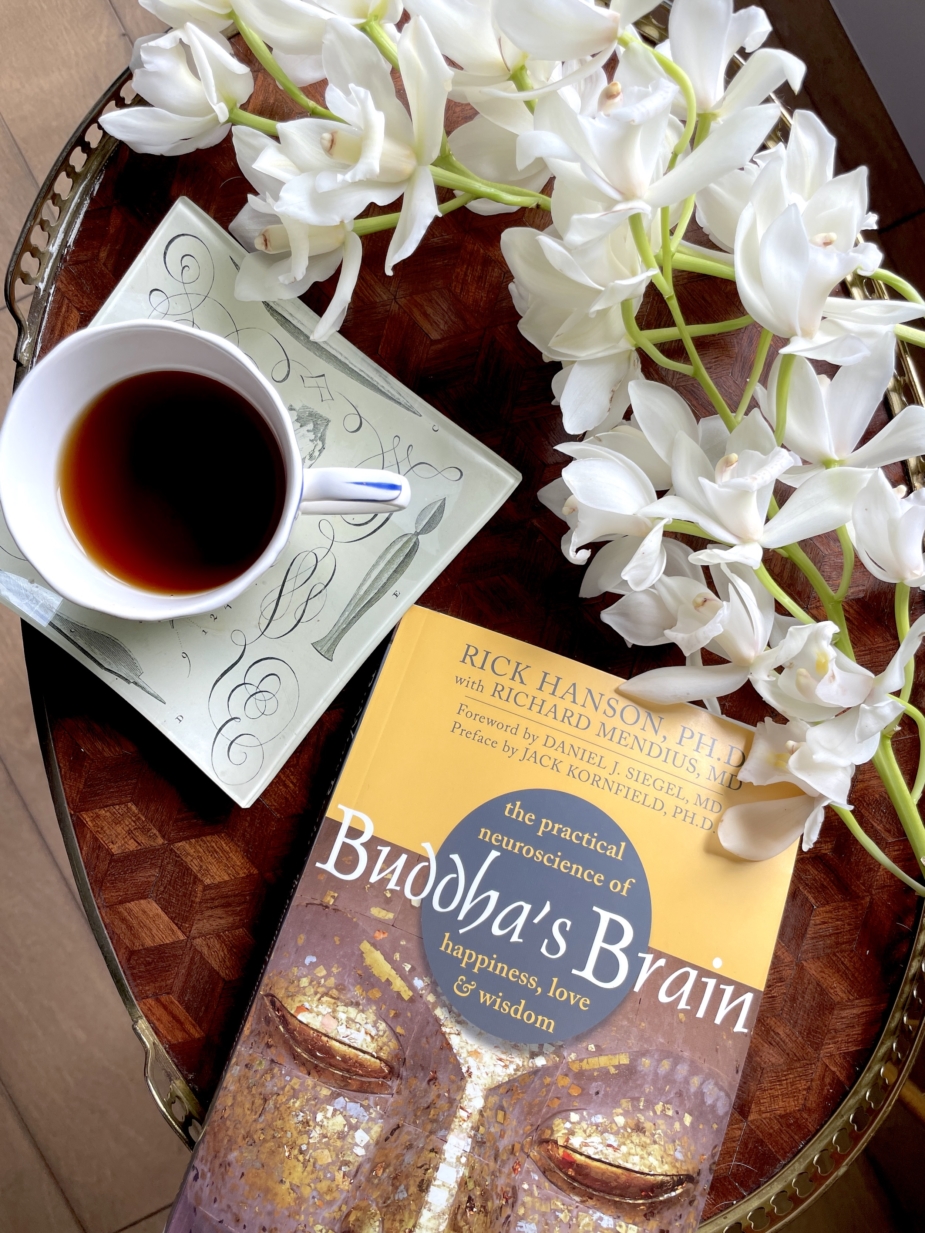
"Although your true nature may be hidden momentarily by stress and worry, anger and unfulfilled longings, it still continues to exist. Knowing this can be a great comfort."—Rick Hanson, PhD with Richard Mendius, MD, Buddha's Brain: The practical neuroscience of happiness, love and wisdom The mind's default is dialed to 'survive', not to thrive. However, the wonderful 'gift' that our brain has within it is the toolbox full of tools (i.e. capabilities) to learn the skills to change the dial to 'thrive'. There is a distinction, however slight between the brain and the mind, and while the two are often conflated, think of the brain as the physical entity within your skull and the mind, the conceptual idea maker that thinks due to the capabilities of the brain. With that said, the title refers to the truth of what will change your life for the better. The author of Buddha's Brain, Rick Hanson is a neuropsychologist shares along with the contributor, doctor in neurology Richard Mendius, "If I know one thing for sure, it's that you can do small things inside your mind that will lead to big changes in your brain and your experience of living . . . you really can nudge your whole being in a better direction every day. When you change your brain, you change your life." The secret that is often unknown unless we are taught, learn or observe it, is that we have to change the dial from 'survive' to 'thrive' and it is a muscle we have to keep toned. The question I have been asking for over two decades is How. And while I have been grateful to find books over the past twelve years, sharing so many of them and what I have here on TSLL, it was reading Buddha's Brain that provided the science that help me make sense of why my brain encourages my mind to default in certain ways that in hindsight are not helpful. (I will list the other previous books and their post/episodes below.)
1.Practice the three fundamentals of Buddha's teachings: Virtue, Mindfulness and Wisdom Since our brain and how it functions is the reason we suffer, yet we can change the brain, then we can also cure the suffering. Hanson summarizes what Siddartha who over two thousand years ago, at the time not yet called Buddha, discovered as he trained his mind "thus his brain" while understanding the causes of suffering, also discovered the "path to freedom from suffering". Let's take a look at what each of these three look like in everyday life:
2. Prolong feelings of happiness Did you know that as "you become a happier person, the left front region of your brain becomes more active"? Yep. And this is a very good thing because the left frontal region of your brain is where your skills for communication and thinking abstractly as well as understanding abstraction are rooted. When we consciously prolong and hold ourselves in moments of happiness, in other words, savor them deeply, we are actually rewiring our brain, and "when neurons fire together, they wire together". When we do this regularly, savoring what is good, what makes us happy, we are gradually, yet steadily and significantly changing our brains, and thus 'how we think' for the better.
3. You don't need more resources, you already have what you need The key to changing our brains is not to have more money, more time or well, anything outside of ourselves, which is very good news. The key is awareness, knowledge of how to change the brain, and the will and restraint to do so. So, look back to #2, that is a great place to start - savor the moments of happiness.
4. Understand why we 'suffer' when we step away from what we know From ending a relationship and moving on, to changing jobs and thus the colleagues you surround yourselves with, the first year at college away from your family after having lived with them your entire life thus far, leaving your home to travel and experiencing home sickness or even the Paris Syndrome, your mind defaults to 'surviving' and is not concerning itself with what is best for you to thrive. Within our brain, the Lizard brain as it is often called, when we separate from what we have done, when we choose to be independent and start something new or go somewhere new, our brain will push back and "produce painful signals of disturbance and see your choice as a threat". Thus the struggle with the mind, and the emotions, for a temporary period of time. Often, people don't understand such feelings are temporary and retreat to what they've known which is what the Lizard brain and brain set to the default of 'survive' wants you to do, but that is not thriving.
5. Understand how past negative experiences trigger the mind in the present more powerfully than positive memories "The brain is drawn to bad news." Velcro versus Teflon. Since our brain is set to default to survive, "the hippocampus makes sure [negative events are] stored carefully for future reference", our negative experiences tend to have more of an impact than positive ones unless we live consciously and understand why the brain does this. I found this section of the book incredibly powerful because once I understood why the brain kept pulling me back to worry, doubt, anger, sorrow, shame, any negative feeling to prevent me from stretching, changing, growing, progressing, even hoping, I could then take the wheel and pause its previously unstoppable progression toward an unhelpful state of mind. Keep the following quote in mind if you too have a mind that you might right now think cannot be controlled (the good news, and why I am writing this post, is that it can): "[The brain] highlights past losses and failures, it downplays present abilities, and it exaggerates future obstacles. Consequently, the mind continually tends to render unfair verdicts about a person's character, conduct and possibilities. The weight of those judgments can really wear you down."
6. Stop living in simulations Simulations are moments that the brain plays, or replays over and over again. Whether you are rehashing an argument or situation that didn't go as you had hoped, or thinking ahead to the future and imagining every possible outcome, every single one is a simulation and it pulls you away from the present moment. Hanson calls simulations 'mini-movies', and shares, "Mini-movies keep us stuck by their simplistic view of the past and by their defining out of existence real possibilities for the future, such as new ways to reach out to others or dream big dreams." Essentially when we let ourselves get lost and wander about in simulations we are putting ourselves into an invisible cage, and as Hanson rightly reminds, trapping ourselves in a life that is smaller than the one you could actually have.
7. Practice regular self-compassion We often know how to give compassion or extend compassion to others. It is important to note that compassion is not pity. Compassion instead involves extending "warmth, concern and good wishes". In 2016 I wrote a detailed episode (#122) sharing how to extend compassion to yourself, and why it is important. When you practice self-compassion you are creating a refuge, an island of calm as author Dr. Kristin Neff describes it for you to just be - stepping away from all negative and positive energy that you may have running in your mind, letting go of self-doubt and extending kindness to yourself. When we practice regular self-compassion, we are exercising self-awareness as we give ourselves what we need, and we are in that moment, in a state of true contentment because no matter what is swirling around us - in the outside world or within our mind, we are stepping back and finding stillness, observing, but not engaging, and providing care to ourselves so that we can respond well when we are ready, rather than reacting.
8. Stop throwing the Second Dart Oh, oh, oh! This was a big aha moment for me. Since we're talking about a Second Dart, there must be a First Dart, and there is. As Dr. Hanson explains, the First Dart is out of our control - a negative or unwanted experience happens, but it is HOW we react to the First Dart that creates a Second Dart, and we can prevent the latter from ever being thrown in the first place by becoming aware of ourselves and choosing to respond rather than react. The reason Second Darts need to cease being thrown is because they are often more hurtful, painful and destructive. And here's the best news of all, Second Darts are entirely avoidable and never unavoidable. In other words, we need to stop hurting ourselves in such a way that is entirely avoidable to do so.
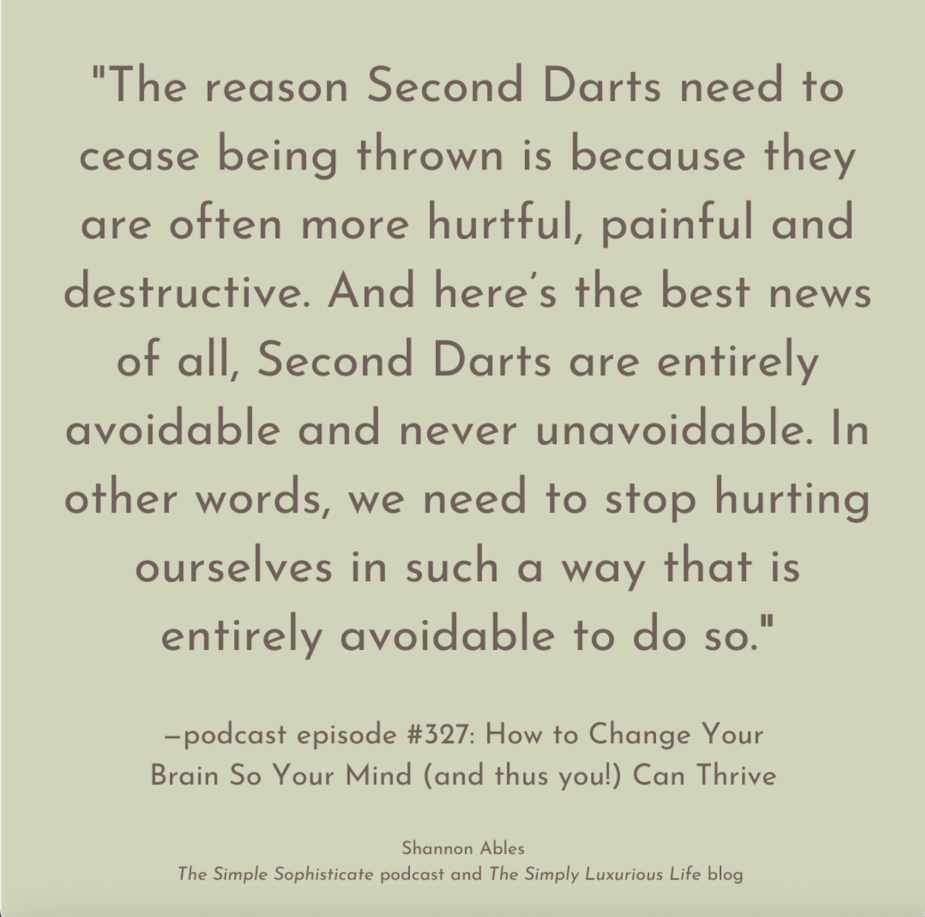 An example of what a Second Dart looks like: Your boss or colleague gives you the cold shoulder at work or doesn't consider your idea, or even invite you to share (first dart); immediately, in your mind, you rush to doubt yourself, become angry for being ignored and immediately assume their treatment must be all about something you did/lack/didn't do/are not enough of/etc. (second dart). The second dart lacks any evidence and takes in no context for any other extenuating circumstances, and causing unnecessary suffering. Dr. Hanson warns that sadly, some second darts can be thrown that are a result of a positive first dart that we, refuse to see as positive because we are doubtful and distrustful of ourselves. Example: you receive a genuine compliment and immediately question (in your mind) how it could be possible that someone sees something good, or you are fearful they will see through you. Again, you've caused yourself unnecessary suffering and you are creating neural connections that actually decrease positive growth in the mind. Long story short, refrain from throwing a Second Dart, ever, ever, ever.
9. Consciously create a life of more moments and experiences to savor every day Our brain has a negativity bias as discussed above. Understand this and you understand the vital importance of savoring, savoring, savoring. I often repeat in triplet this verb and it's not on accident. When we savor, don't just do it once, hold yourself in the moment, create an imprint of this awesome moment in your mind. Your brain is changing for the better, and thus your mind thinks better and your life changes for the better. Hanson shares ideas that I have a feeling will look quite familiar to readers and listeners of TSLL blog and the corresponding podcast. (1) look around you, throughout your day and your life for what you are grateful for, look for the good news in other words and so much of the good news is seemingly small and insignificant, but it is not insignificant at all - it is fuel to focus on to improve your life - beautiful scents, steady steps toward a goal, your favorite weather forecast, a healthy body!, clean water; (2) savor the experience for longer than you may have thought necessary - hold it in your awareness, drink it up - the longer you do, the "more neurons that fire and thus wire together, and the stronger the trace in memory"; (3) recall the journey of challenges you overcame to arrive where you are and are grateful to be - this rewires the brain, deepens savoring and adds to our list of what we are grateful for; and (4) take in all of the good sensations from past good memories and current ones - the warmth of the sun, the peace you felt when you heard the good news, the first time you laid eyes on [insert destination/person/outcome].
10. Understand the process to rewiring the brain so that the mind can thrive Begin the journey of mind transformation by keeping this truth in mind (pun not intended): it will take regular practice, but your mind will eventually change for the better. It will get rather difficult in the middle of the journey before it gets easier, so stick with it. Hanson delineates the four stages we move through (the goal being stage 4) to reach a state of full awareness and awakening of the mind, in other words, strengthening our mind's ability to thrive.
Hanson explains that we often get stuck in Stage Two, thinking it is impossible to move forward into stage three. Why? Often because we have the incorrect idea that the life around us must change to suit us, but that is faulty thinking. Remember, we live in awareness and how we respond to what we cannot control will determine our ability to either simply survive or thrive. It's important to state this again (as much for myself as for readers/listeners), don't throw the second-dart. Simply don't do it, and you're already well on your way to Stage Three. The goal for growth is to aim for Stage Three and Four, but if you are living consciously in awareness and practicing the above steps shared, you'll get there and your life will be be full of more 'happiness, love and wisdom'. "Over time, through training and shaping your mind and brain, you can even change what arises, increasing what's positive and decreasing what's negative. In the meantime, you can rest in and be nourished by a growing sense of the peace and clarity in your true nature." There is far more worth understanding and exploring in this book, Buddha's Brain. Today I wanted to introduce you to the fundamental science behind why our brains are not our friend if we don't know how they work and just let it lead us where it will. We cannot let that happen or we won't find true contentment. I think it is also important to point out, by focusing on the good, celebrating the awesome moments in life, Hanson explains, "[It] is not about putting a happy shiny face on everything, nor is it about turning away from the hard things in life. It's about nourishing your well-being, contentment, and peace inside that are refuges you can always come from and return to." When we understand how our mind is initially designed, but at the same time understand what it is capable of, we set ourselves free to no longer be stuck in a cage we have the key to unlock.
Books, Blog Posts and Podcast Episodes previous shared about the Mind
Petit Plaisir
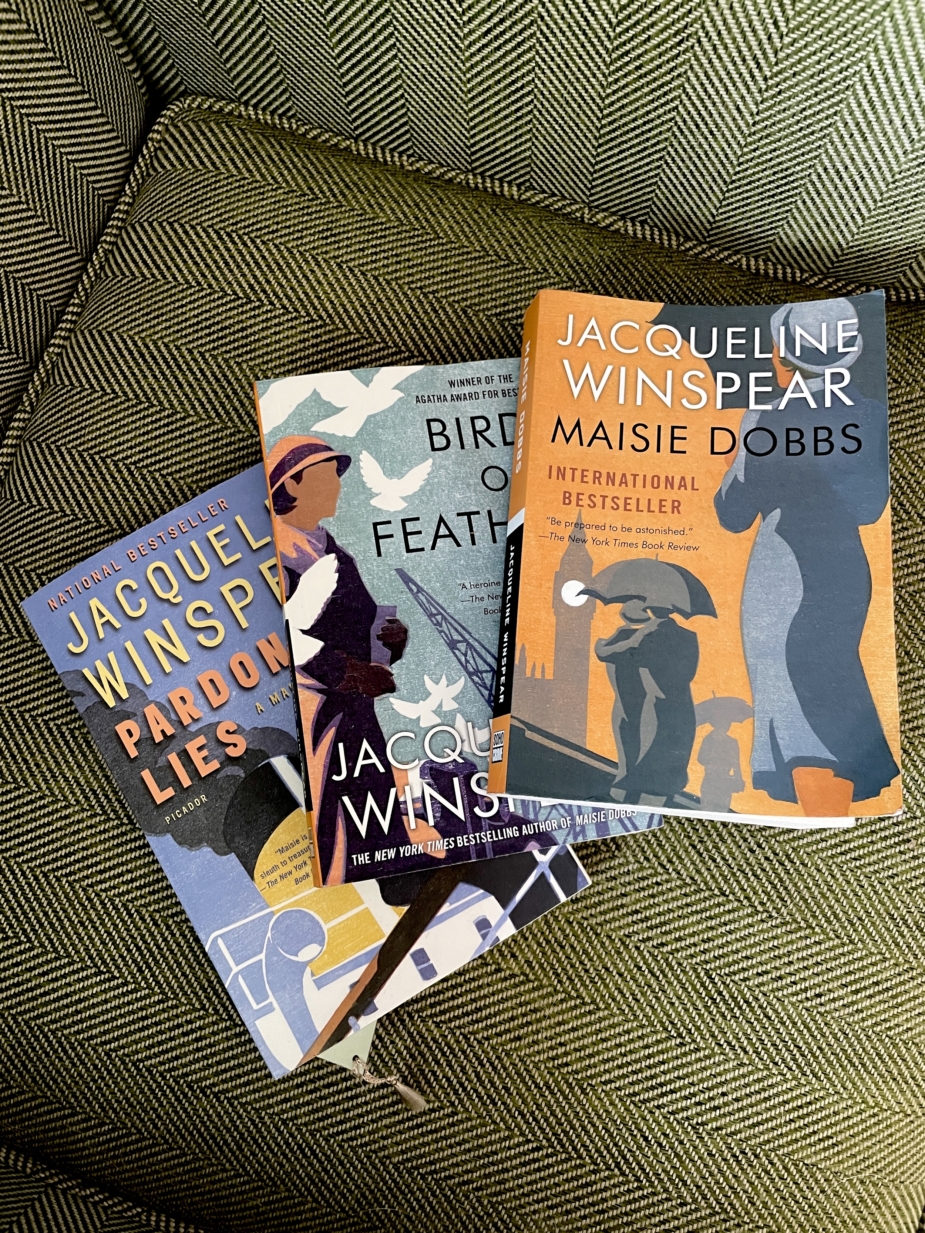 ~The Simple Sophisticate, episode #327~Subscribe to The Simple Sophisticate: iTunes | Stitcher | iHeartRadio | YouTube | Spotify | Amazon Music |
Sun, 3 April 2022
"To attain wealth, the lasting kind, the kind that gives your life meaning, value and sustenance, base your daily existence on the generosity of spirit. Everything else you desire will follow of its own accord." —Deepak Chopra, Abundance: The Inner Path to Wealth To experience great joy in our everydays is to experience bliss. If ever you find yourself smiling in the middle of your everydays just because, if you are me anyway, you are experiencing a bliss-filled moment. We may find it surprising or difficult at first to imagine the possibility to experience such a natural state going about a life routine that happens nearly everyday, but that is exactly the point to living consciously. This is exactly why choosing to understand what true contentment is makes all the difference. ~The Simple Sophisticate, episode #326~Subscribe to The Simple Sophisticate: iTunes | Stitcher | iHeartRadio | YouTube | Spotify | Amazon Music |
Sun, 20 March 2022
Spring kicked off officially yesterday, March 20th in the Northern Hemisphere, and as I worked out in my garden, ever so gently, signs of spring were definitely emerging. Over the years here on the blog and podcast, there have been many posts celebrating the arrival of the spring season, and well, we all could be nourished by some brightness of spring, so I thought I would bring yet another such post/episode your way. Below are 10 more ideas for reveling in the start of a season that arrives with the buoyant determination to grow, restart and find the awesomeness that surrounds us.
~The Simple Sophisticate, episode #325View the Show Notes - https://thesimplyluxuriouslife.com/podcast325 ~Subscribe to The Simple Sophisticate: iTunes | Stitcher | iHeartRadio | YouTube | Spotify | Amazon Music |
Sun, 6 March 2022
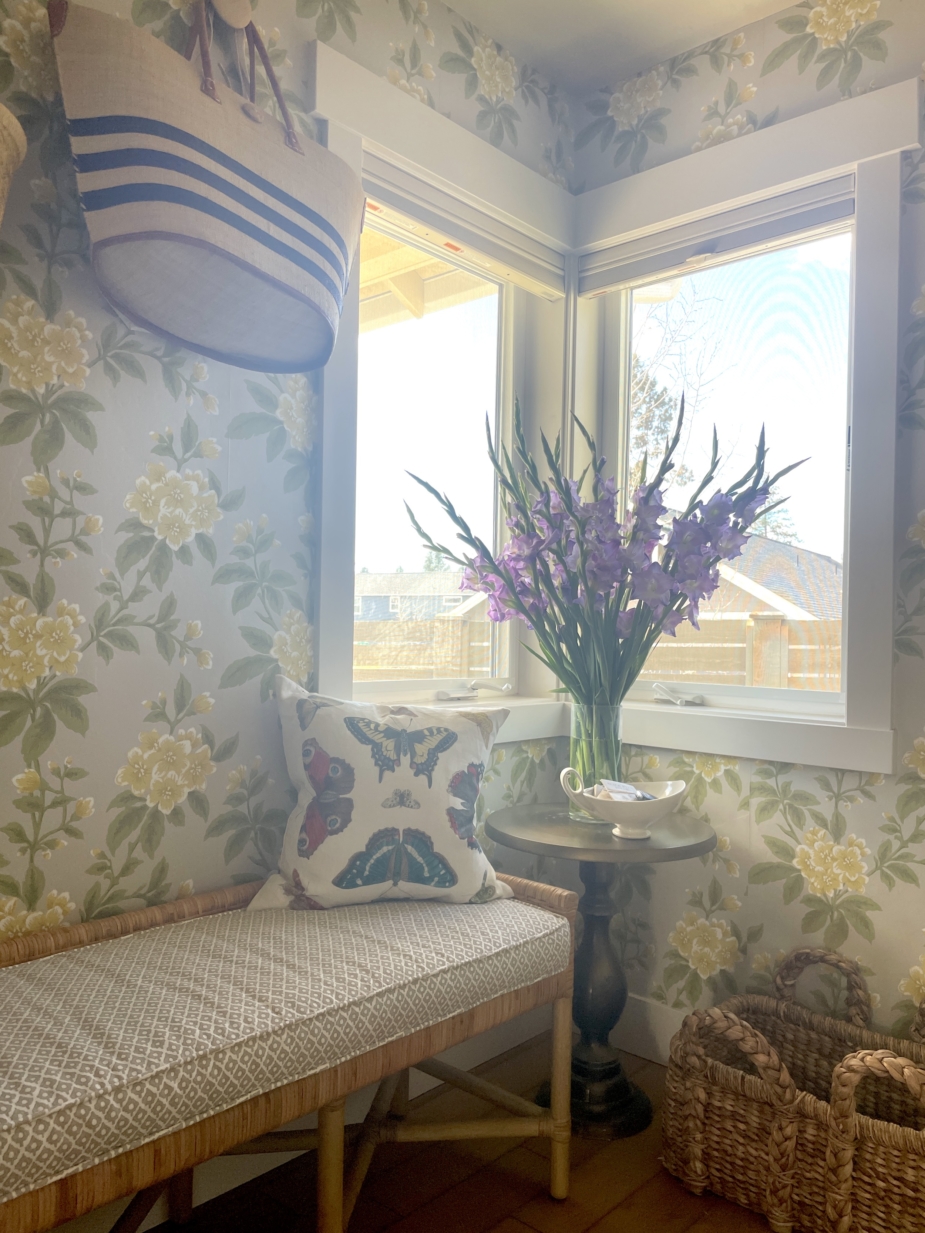
“Since most of us spend our lives doing ordinary tasks, the most important thing is to carry them out extraordinarily well.” —Henry David Thoreau It's morning, early in our house. Norman has finished his breakfast served in the mudroom which is adjacent to the kitchen, and I begin toasting my steel cut oats. The clanking of pans being chosen for the two egg omelette, the whisk of the eggs in the mixing bowl provide the soundtrack of our mornings, and Norman finds his way onto the rug in front of the stove to enjoy his daily dental chewy. An ordinary moment that happens every single morning and to me it is extraordinary.
"Be extraordinary at the ordinary." —Andy Puddicombe, meditation teacher One of the common refrains I heard from TSLL readers over the past two years was while disheartened and pained by the reason for the slower pace of life, was that it was in fact a pace they appreciated. No longer did they have to fight back or expend energy to explain why indeed the slower pace suited them and nourished them. Now that lives and schedules and expectations are beginning to pick up steam and the ability to pursue, travel and experience those unique and intriguing occasions we longed for as we were unable to for some time return, the importance of choosing our pace in our everydays and how we hold ourselves in our everydays, having seen the difference in ourselves, a better time could not be had to continue to, or fine-tune so as to improve how we go about living in the ordinary moments. Often the word ordinary connotes a 'hum-drum' energy, an energy not desired or seen as inferior especially when we think of its relation to the word 'extraordinary'. However, all ordinary means is that it, whatever 'it' is, is commonplace. And for our purposes in today's episode/post, ordinary simply refers to the ability to have a day without strife, to tend to a job or a task to make money so that we can live our lives, to eat our daily meals and move about our home and community engaging with our family and coworkers and neighbors as they too move about a schedule similarly including the same elements. Why I gravitated to the quote I share above - be extraordinary at the ordinary - is because at its core we are choosing to focus on what is necessary, and so thereby we keep those necessities in our days, eliminate what weighs down or expends energy unnecessarily, and thus, we are choosing to focus on quality over quantity which is a core premise of living simply luxuriously.
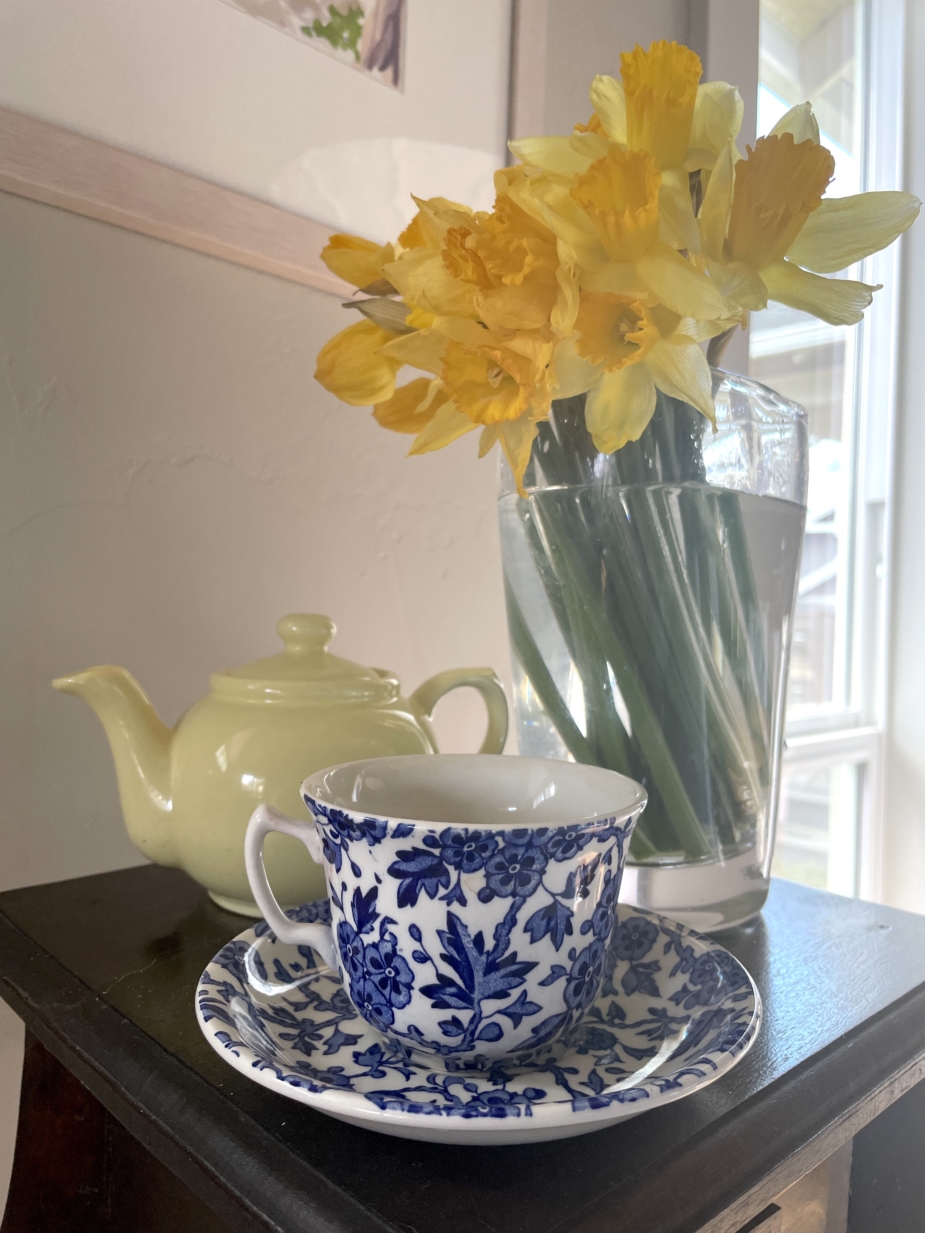
An example from Shannon's life of making ordinary extraordinary in our everyday lives As I type, it is early morning at Le Papillon. Norman is snuggled up next to me, softly snoring, and the house begins to warm up while the classical music plays softly providing a gentle easing into the day. The day, by objective definitions, is ordinary, but in this moment, it feels extraordinary. The companionship and good health of my pup, a home and thus a roof over my head to keep me warm and safe, the means (my computer) to do my work well, and the beauty of art (the music) to lift the day, yet keep it calm. How exactly do we elevate the ordinary to the status of extraordinary? Start with how you move through your everydays.
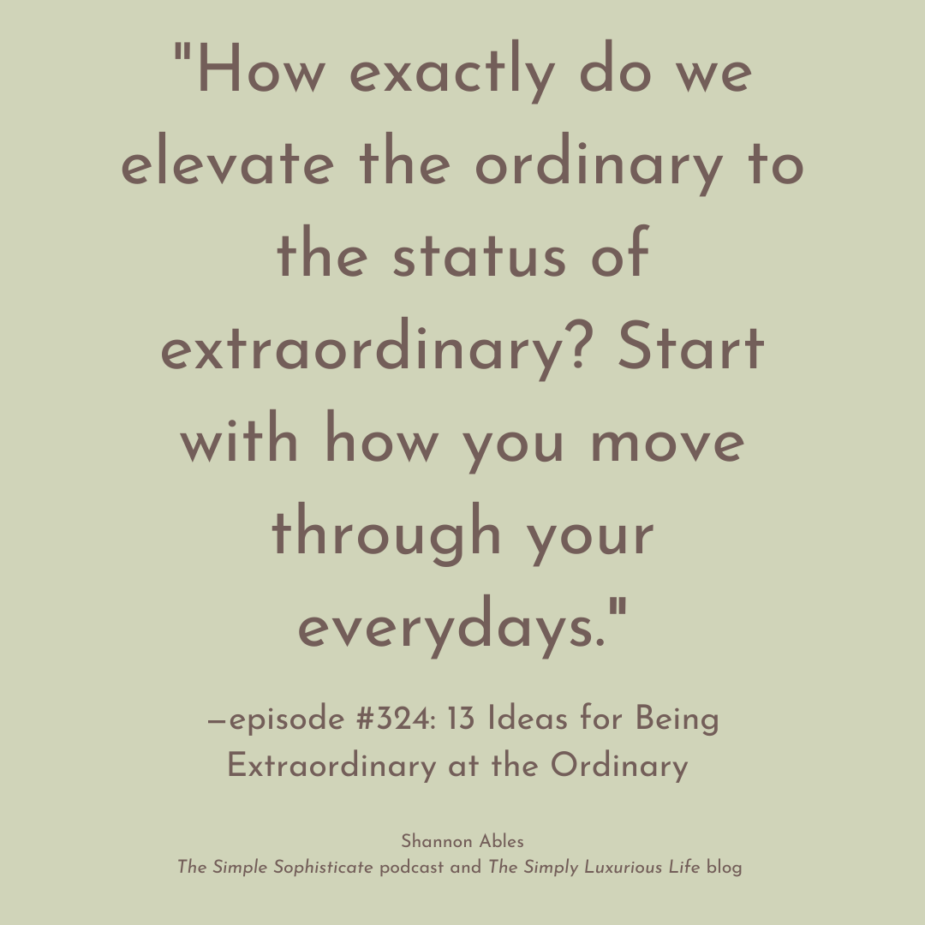 While Henry David Thoreau's quote shared above is less known, it partners well with the quote that immediately springs to my mind, and more widely recognized, as is a mantra I display in my office as a way to ground me. I change the pronouns of course and do so as well here.
"I have learned this at least by my experiment: that if one advances confidently in the direction of [her] dreams, and endeavors to live the life which [she] has imagined, [she] will meet with a success unexpected in common hours." The awesomeness of life happens in the everydays, and guess what? The super majority of the days of our lives are everydays. Therefore we have so many opportunities to make them extraordinary. Let's break it down a bit further. Here is a list of concrete practices to incorporate into how you live in your everydays to welcome the extraordinary to be experienced:
Each of the ideas suggested are merely a sampling of how we can elevate the 'ordinary' everyday to something extraordinary to experience each day. If you have been a long-time reader of the blog or listener of the podcast, you know that nearly all of the content you find shares inspiration, ideas and examples of how to do exactly this - live an extraordinary life in the ordinary moments. A key component, something we've tangentially talked about in a variety of ways is to understand why we/you place so much value on the extraordinary moments celebrated by outside sources - the awards, the status symbols, the life markers set by society one must achieve. While we are social creatures, and we want to feel included, we want to feel seen, appreciated, applauded and accepted, when we seek out healthy sources of each of the A's as David Richo describes as the 5 Key A's in a healthy adult relationship (ep. #287), we can find them and savor them in our everydays. So often we seek something that is already within each of us or capable of being nurtured with those in our everyday lives already. When we discover how rich we already are for living an extraordinary life in our everydays, the supposed 'grand' achievements become less tempting to pursue especially if doing so takes us away from what we know is quite special and we are quite fortunate to have - healthy, loving relationships, a career or calling that fulfills us, a home that gives us safety, shelter and security, a community that is at peace, small, yet significant opportunities to learn and grow. When we choose to embrace the choice of living extraordinarily in our everydays as Thoreau advises, it becomes easier to hold ourselves in the present moment, and because we are doing our best in those moments that each day offers, we go to bed each night more at peace and thus slumber is deeper, more nourishing which makes the new day that we awake to full of all the more potential to be extraordinary all over again. The cycle feeds itself, and we hold the key in how we hold ourselves, what we notice, what we engage in, how we engage, what we let go, etc. . Expend energy on the things that bring value, find strength to let go of unhelpful, unnecessary or detrimental tasks, habits or relationships, and your life will begin to feel quite extraordinary. Find inspiration for each day of the year, how to live well in your everydays in TSLL's new book - The Road to Le Papillon: Daily Meditations on True Contentment (available now). ~Take a peek inside the book, listen to an excerpt and discover why the title - Le Papillon - was chosen in this 15 minute video with Norman and I.
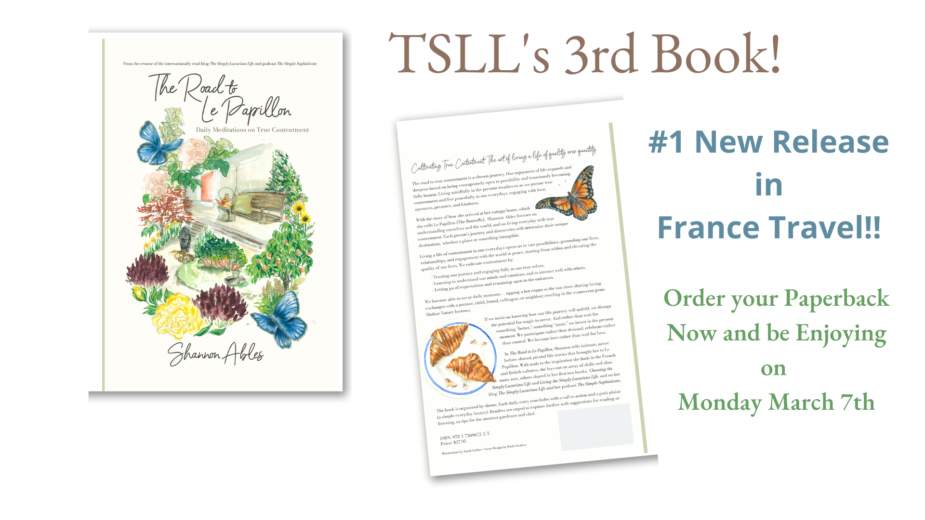
Petit Plaisir —Murder in Provence, BritBox (based on M.L. Longworth's Provençal mystery series)
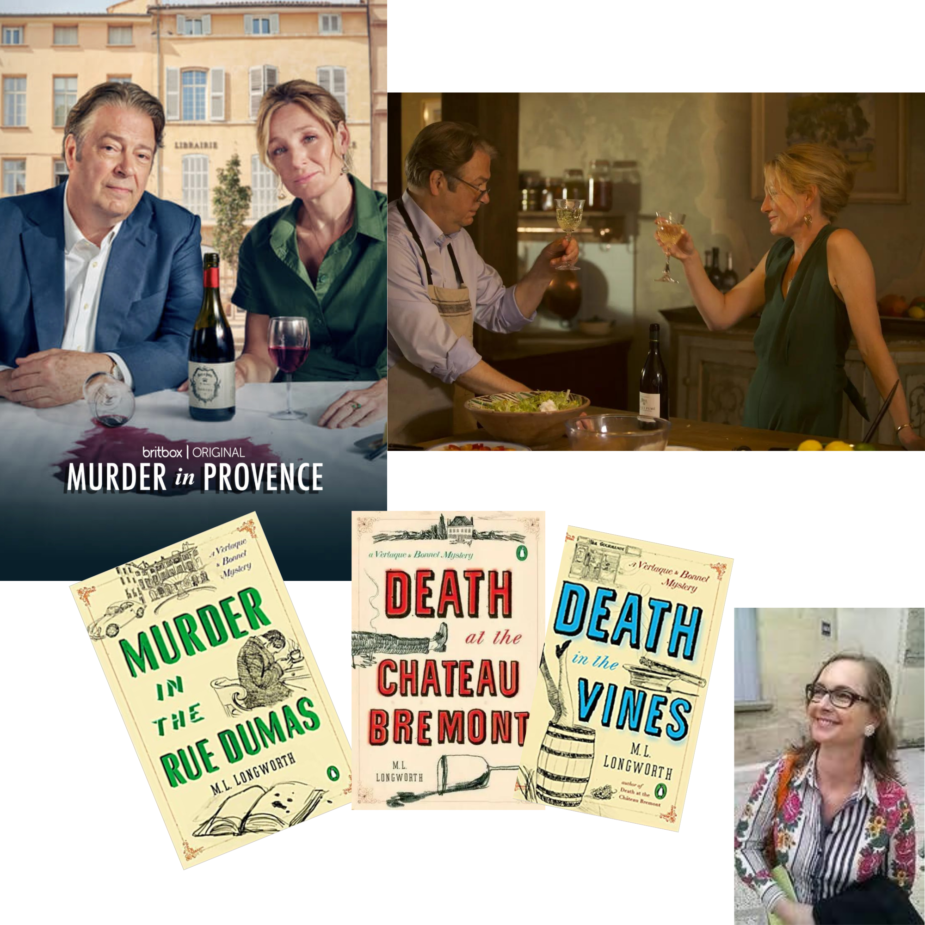 ~The Simple Sophisticate, episode #324~Subscribe to The Simple Sophisticate: iTunes | Stitcher | iHeartRadio | YouTube | Spotify | Amazon Music |
Sun, 20 February 2022
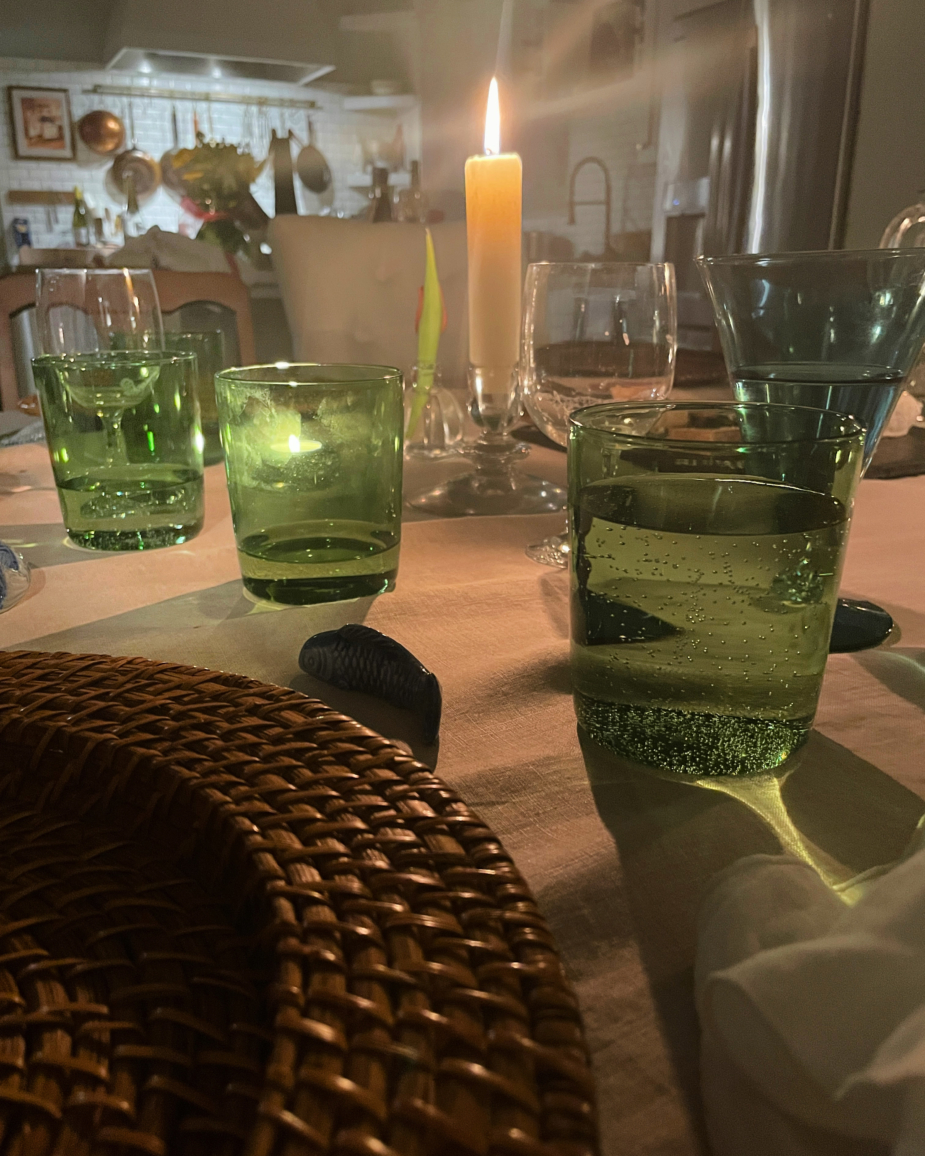 ~Note to readers of TSLL's 3rd book, The Road to Le Papillon. I have updated the Read Further link to bring you to this post for July 2nd's entry in the book. If you would like to reread the original link (it was also shared in April 19th's entry), click here to read Understanding Yourself by Taking Off the Blindfold. The clock neared midnight, the candles on the table still flickered just at a slightly lower height than when they were lit only six hours ago, the kitchen was full of dishes and the platters of food offered crumbs and hints at the menu that had just recently been shared and enjoyed amongst friends. The first dinner party at Le Papillon took place over this past weekend, and after being thoughtful about when to invite friends in a large gathering into my home, honoring each's comfort level and ensuring safety and health precautions were clearly communicated so all could relax and enjoy the evening (all friends were boosted, and tests were made available to ease everyone's mind), the date was set, and the menu began being planned as well as how to inaugurate Le Papillon as this would be the first dinner party ever held. My friends said yes. Each showed up with an enthusiasm and welcoming spirit that warmed my heart and reminded me of so much that I missed during these past two years. As each course was served, each glass poured - sipped and held up to toast, the volume of the playlist was turned up ever so slightly as the ease of stepping back into the conviviality of seeing each other, talking intimately, laughing heartedly and listening closely felt second-nature despite the delay of enjoying such a setting. As goodbyes were exchanged, fresh-from the oven cookies were given to each guest to enjoy on the car-ride home. I closed the door, turning around to look at my home and the visual reminder of all that just been shared and enjoyed. I sighed deeply and my smile grew widely. Gratitude washed over me, and I knew I wouldn't be going to bed soon. Not because there were dishes to be cleaned, but because I was energized in a way only such occasions can lift my spirits naturally. And so I reminded myself to savor. In episode #213 in 2018 I detailed in nine steps and ideas how to savor any given moment in which you find yourself wanting to remain in the present moment, taking all that you are experiencing in fully so as to hold it in your memory, but as well, to let it be what it is, not forcing it be what you want it to be. Today I would like to further the conversation on savoring and share with you 6 everyday moments to savor or moments in which we may forget to savor well, giving ourselves permission to take it in, slow down and revel in the awesome gifts received by the moment that we are delighting in. Studies have taught us that there are three different ways to savor life moments, and when we do consciously welcome the art of savoring into our lives, we improve our well-being. So while it may see indulgent, even selfish and at the very least unnecessary to engage in savoring, the truth is, to know how to savor, and incorporate doing so into our everyday life, is to increase the quality of our life. As detailed through extensive research by Dr. Jordi Quoidbach of the Barcelona Graduate School of Economics, the three types of savoring depend upon when and what you are savoring as it relates to time:
Much of what will be shared in the list below are moments that we have long anticipated and hoped would go well, and upon such an event going well, we consciously choose to create space for a Peak-Theory moment as a way to fully savor what has just concluded and deepen the much appreciated event even more. Following my first dinner party held in far too long, offered such such an opportunity to create a Peak-Theory experience. For me, when any of the moments listed below occurs, I give myself permission to just be still. I edit out most if not all plans or consciously choose to not make any new plans, and give myself an hour, a morning, afternoon, evening or, if I can, a full day, to just let the good memories wash over me one more time. Partly I do this so that I do not forget a moment. I will even sit down and put it all into my journal as I know I will forgot those small details that made the evening/event/experience so special. Usually I am home for this carved out time, so I will make sure I have a fridge with food for a good meal to be enjoyed, I will snuggle up in my cozy pajamas or leisure clothes, make a pot of tea, soak in a hot bath at some point during the day, maybe (most likely) take a nap at some point and if I am not at home, but perhaps traveling, I will let myself just wander about the city, town or countryside I am visiting, give myself permission to then lounge about in the accommodations and drink in the momentary state of appreciation, calm and giddiness I may be feeling. One of the key components and truths of savoring to remember is that savoring is all the more important because it will never be that all is going perfectly in our lives. We cannot wait to savor siting the need for there not to be any hiccups or stresses occurring - bills still need to be paid, jobs still need to be tended to, the world is still grappling with unrelenting pains. In fact, it is precisely because there will always be some kind of unwanted thing happening in our most intimate lives as well as the grander world that we must incorporate savoring into our lives. When we teach ourselves that savoring is not indulgent but necessary, when we acknowledge that such awesome moments, as the ones listed below, but there are undoubtedly many more, do not happen every day, we are living in the present, we are living consciously and we are elevating the quality of our lives. We are appreciating being alive, being human and as our stress-levels gradually decrease, we become better able to navigate through unwanted moments and we find a deeper, steady, resting state of contentment. Simply put, savoring life doesn't require perfection, rather the art of living a life you love requires savoring.
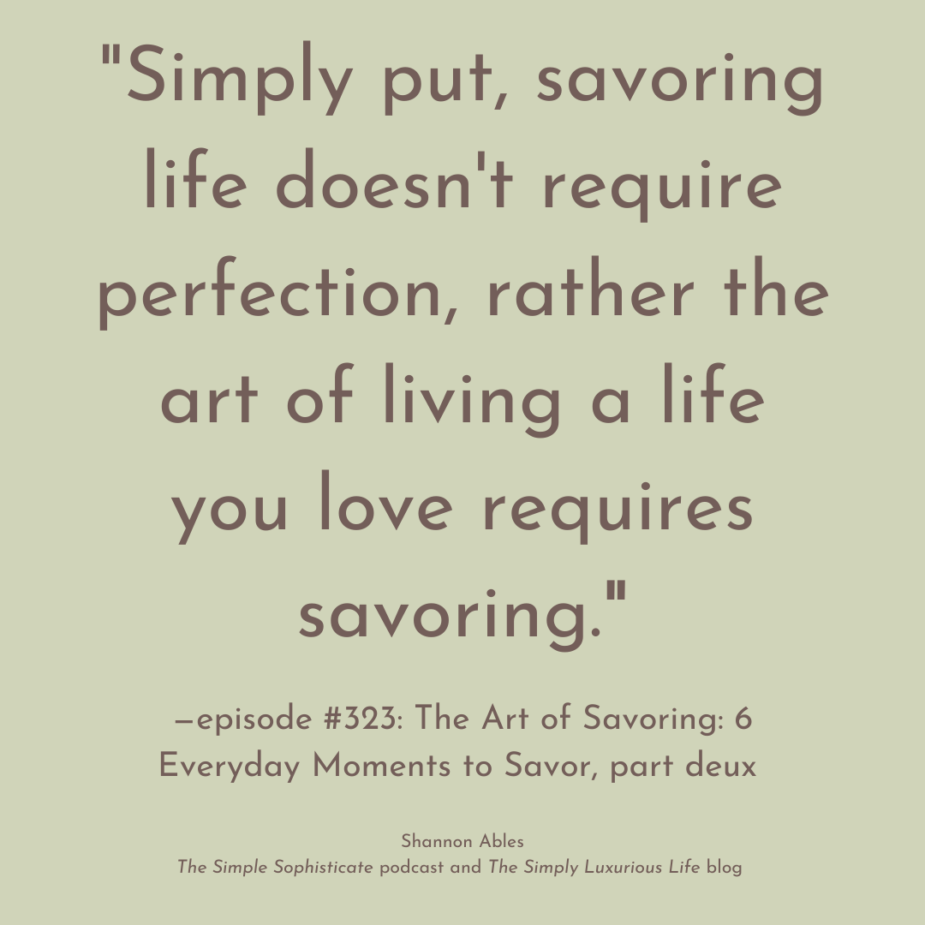 Let's take a look at ten moments in life to encourage you to savor by engaging in a Peak-Theory moment in which you linger a little longer after the much loved event/moment/experience in order to hold it in your memory and deepen your appreciation.
1.The moments as well as day after a long anticipated event - dinner party, celebration As shared above, whether you have just hosted a dinner party that went well, perhaps after a big event that required much coordination - a charity gala, a wedding, an anniversary party, a reunion, a birthday party, etc. - let yourself savor immediately after by doing whatever enables you to just take it all in again, reliving it, thinking about, letting yourself smile and doodle about, doing any task or no task at all that lets it all soak in even more. Take the next day, the next half day, whatever you need to let the awesome memories marinate so they won't soon be forgotten.
2. Upon seeing/reaching/holding in your hands the outcome you have longed worked so hard for Whether a work-related project or a personal goal being reached, once you have reached your mark - holding the published book in your hands, shaking hands with your new boss on the new job you just landed, finishing the home project you planned and saved for, arriving at the airport for the trip you saved up for - once you've reached where you've worked so hard to arrive, create a moment, hours, whatever time you need to drink in all that you have done to arrive where you long wished to be. Let yourself rewind and play back all that you overcame to be where you are so that you never forget and thus appreciate your arrival all the more.
3. Seasonal weather long missed - the first rain fall in weeks/months, the long anticipated snowfall, the break in the clouds after days of rain, clear skies after smokey, hazy, or foggy oppression Just yesterday, the snow finally came back to Bend. Even if for a few short hours, we have not seen snowfall in Bend since late December. I reveled in it. I stayed inside, let myself cozy in and just gazed outside and smiled, smiled and smiled a bit more. Mother Nature will bring what she brings, and each of us based our preferences and where we live have weather we most enjoy. When it has not happened in far too long, when it does arrive, let yourself savor.
4. Finishing a book that transported you, moved you, taught you something unexpected, deepened your understanding in a way you had never known before Upon finishing the book, reading the last word, last page, last chapter. You close it slowly, looking up at nothing in particular, and perhaps you smile as your thoughts seem to have been renewed and enlivened. Sit with this feeling of great expansion, and let yourself savor the gift you just gave yourself. You are changed, you are growing, you are living and that is an exciting place to find yourself and realize about yourself.
5. The first daffodil in the garden to bloom, the first of any perennial, tree blossom, favorite flower to return since the previous year Whether you sit outside and simply gaze in awe at the beauty that has revealed itself, let yourself delight in the awesomeness of Mother Nature. If the weather is warm, I will sit on my porch or somewhere nearby the bloom(s) and take more than a moment to be in that space with the natural beauty. Sometimes I read a book, sometimes I will sit with a cuppa, and sometimes I will just close my eyes and feel the fresh air kiss my skin. Savor such arrivals because they won't arrive in their first form such as this for another twelve months.
6. Stepping foot on the terra firma of a beloved destination, country, town, or home after a long absence Perhaps you know you will be traveling soon or have just returned from traveling to a place you have longed to visit or return to after a much delayed absence. If so, think about how you will or can savor how it feels to see this place with your own eyes, feel the air of that place, the energy of that place, so you can hold it with you in your memory when you do have to eventually leave again. Is it visiting a favorite haunt and just sitting, taking all the going-ons around you? Is it taking part in a certain activity that you can only do at this locale? Or maybe it is a favorite food or drink you enjoy. Whatever it may be, let yourself savor the good fortune to have been able to return.
Knowing how to savor and why it is important to do so not only strengthens our muscle of mindfulness as it involves the awareness of our mind and where we let it travel and where we hold our thoughts, it also shows us how awesome our one and only life is. When we pay attention to how certain moments that make us feel good in a natural way, we are honoring our most true selves. When we honor our true selves the quality of our days improves and thus the quality of our lives. The powerful truth of savoring is that it reminds us that whether the good moments in our lives are large or small, seemingly significant to the outside world or not seen at all, we become more in tune and aware as to how truly rich our lives are, and what we think we lack is actually far less than previously thought. In fact, we may have all that we need if we would only give ourselves permission to savor more regularly. The exciting truth is, everyday moments abound for us to savor if only we would have the courage to lose our inhibitions and revel in them and then hold them close so that we never forgot how great life truly is.
~Learn more about purchasing/pre-ordering a copy of TSLL's 3rd book - The Road to Le Papillon: Daily Meditations on True Contentment 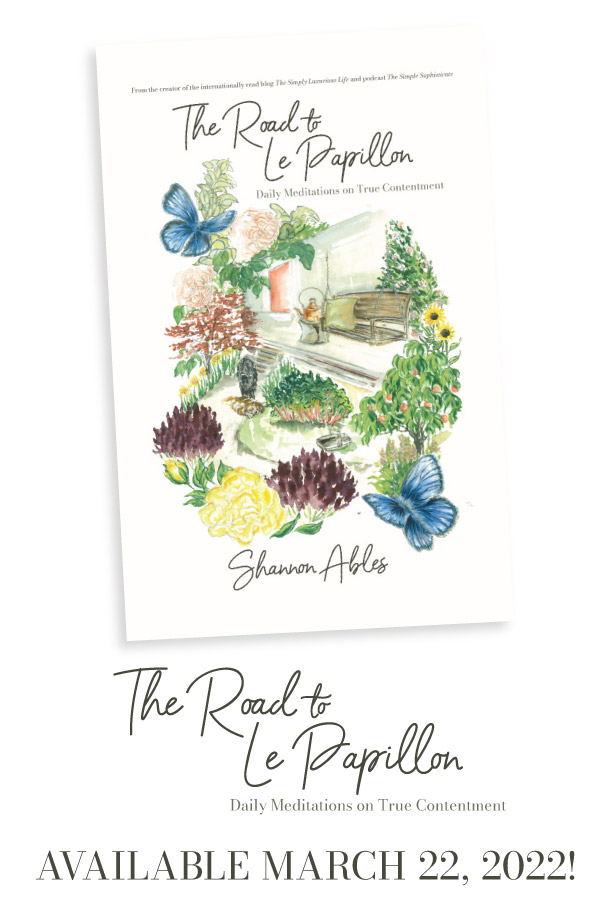
SIMILAR POSTS YOU MIGHT ENJOY
Petit Plaisir
Happy Yoga: Simple Tools and Practices for Everyday Calm and Strength by Hannah Barrett 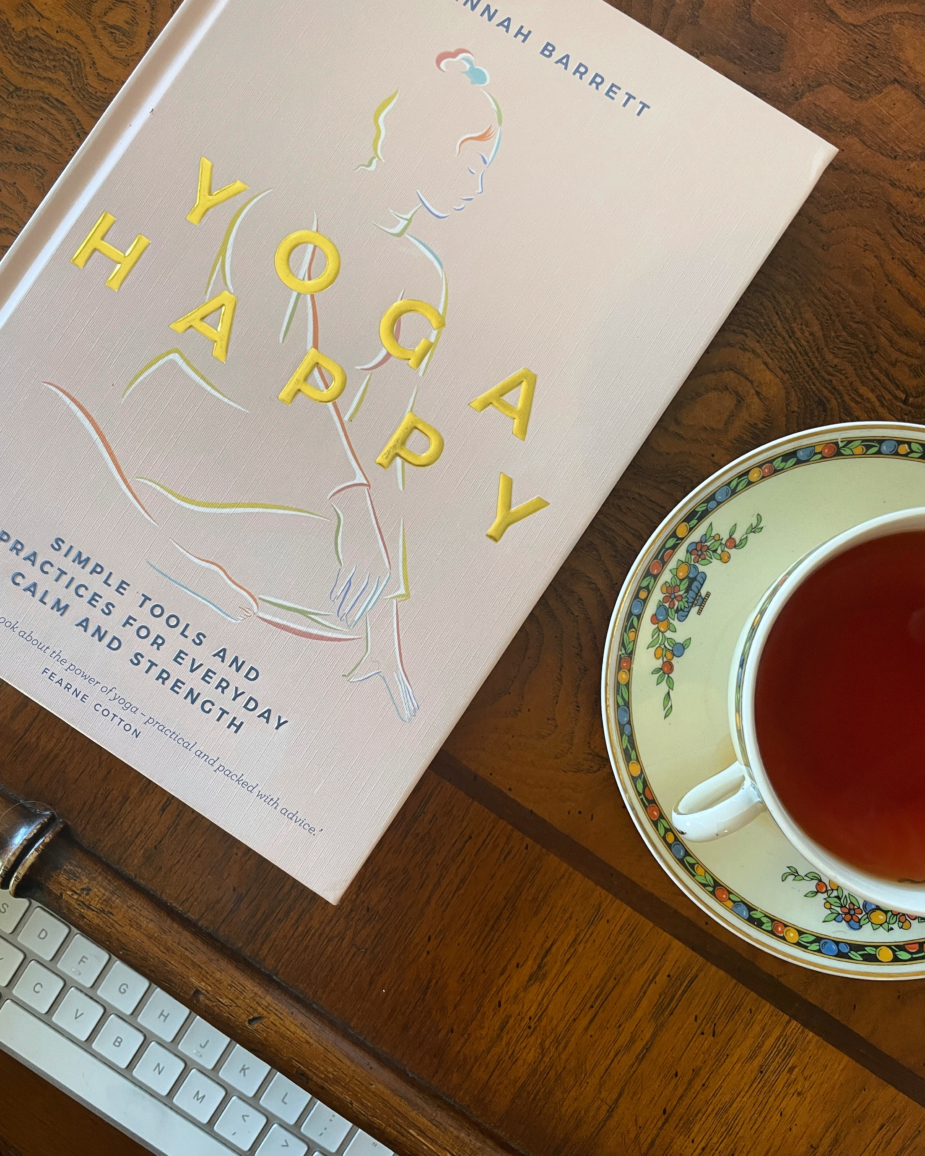
Murder In . . . (French mystery series) 
~The Simple Sophisticate, episode #323~Subscribe to The Simple Sophisticate: iTunes | Stitcher | iHeartRadio | YouTube | Spotify | Amazon Music |
Sun, 6 February 2022
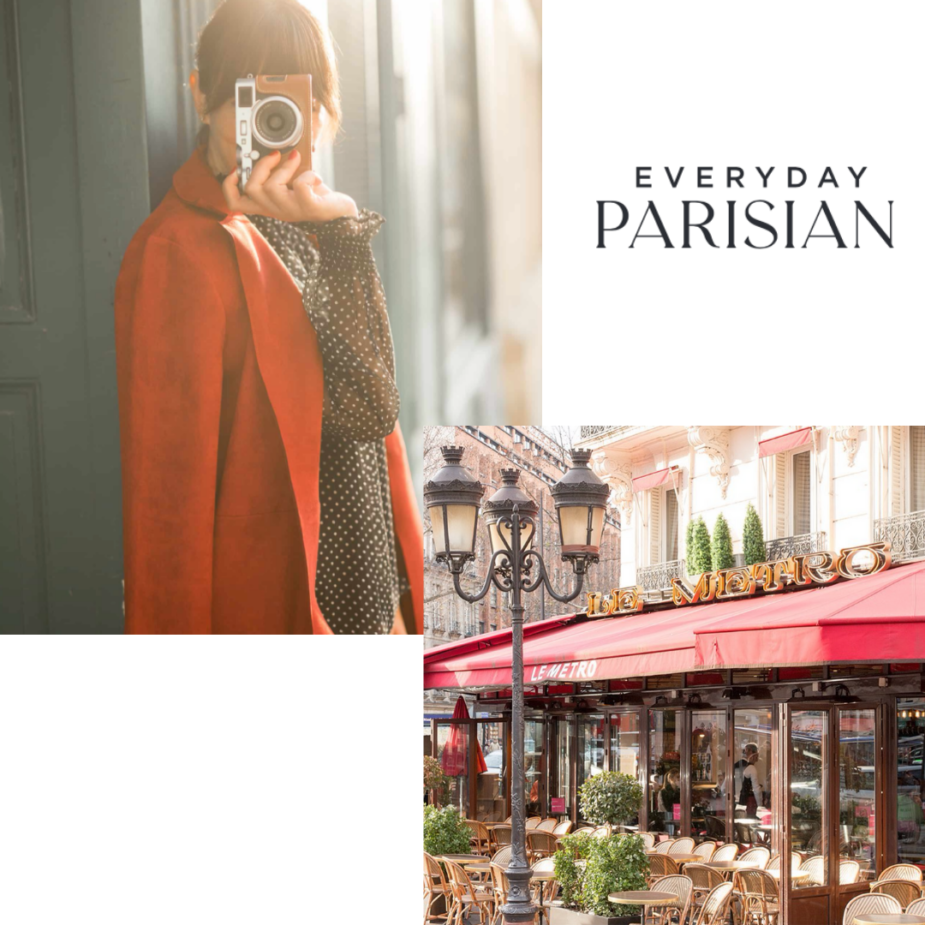 Photographer and Paris blogger, founder of Everyday Parisian, Rebecca Plotnick joins me on today's episode to talk about traveling to Paris during the time of Covid. Travelers are gradually beginning to make travel plans abroad, and as Rebecca traveled to Paris this past October, I invited her on the show to share her experience as well as assuage travelers who may wonder exactly how to meet the requirements for testing and proof of vaccination. This past August, Rebecca shared a detailed Q & A here on the blog during TSLL's Annual French Week; however, I purposely waited for her to join the podcast until after she returned from Paris as I wanted her to talk specifically about what travelers can expect and thus prepare for as they step back on plans to visit the City of Light. I recently read that Paris is the #4 destination American travelers have booked flights to for their summer 2022 travels, and as you will hear in our conversation, while visiting any time of year is wonderful, visiting in spring may be quite a special time to take in the natural beauty as well as the other sites and favorite tastes of a city so many TSLL readers love. ~NOTE: Since the recording of this episode, France as updated their requirement of a proof of vaccination (US Embassy for France) (French (French website - in English). You will need to secure a Vaccine Pass, but their online site is temporarily unusable. Currently what you can do, is as soon as you arrive in Paris, visit a local pharmacy, and for $40, show them your proof of vaccination (CDC card), as well as your passport, and you will be able to attain the necessary health pass to ensure access to all of the sites you came to Paris to see. Links shared in today's episode:
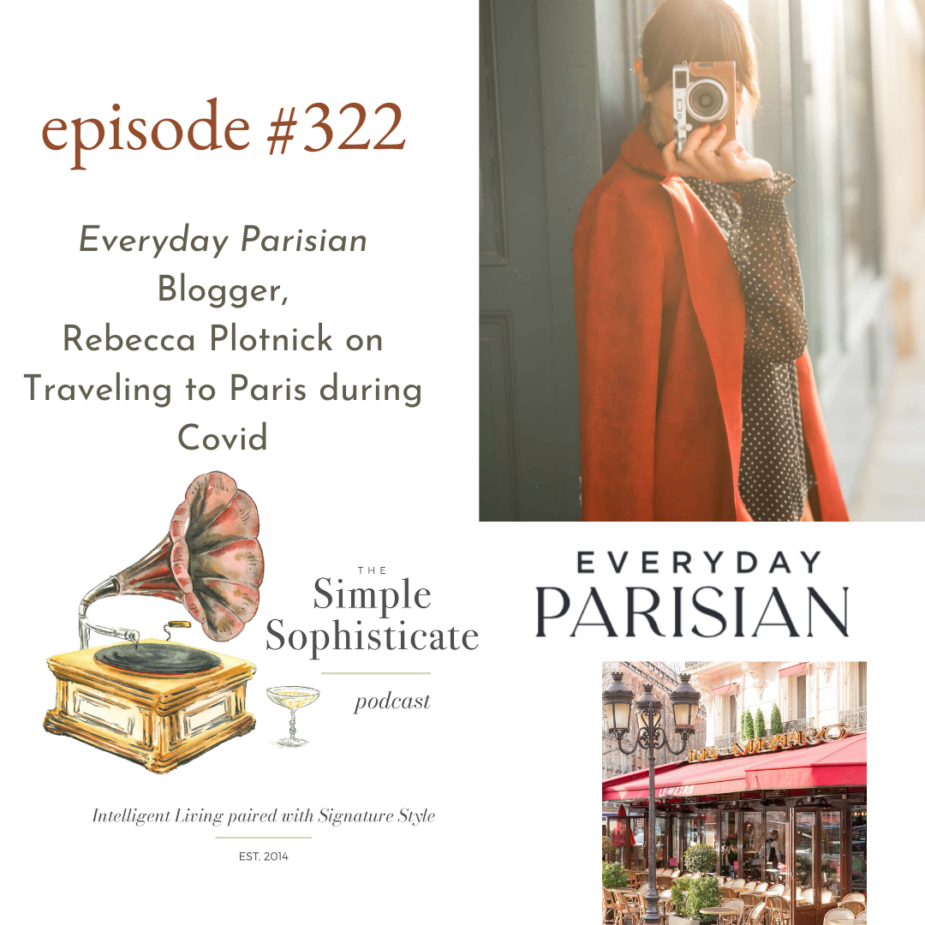
SIMILAR EPISODES/POSTS YOU MIGHT ENJOY
~Explore all French-Inspired episodes from the podcast here ~The Simple Sophisticate, episode #322~Subscribe to The Simple Sophisticate: iTunes | Stitcher | iHeartRadio | YouTube | Spotify | Amazon Music |
Sun, 16 January 2022
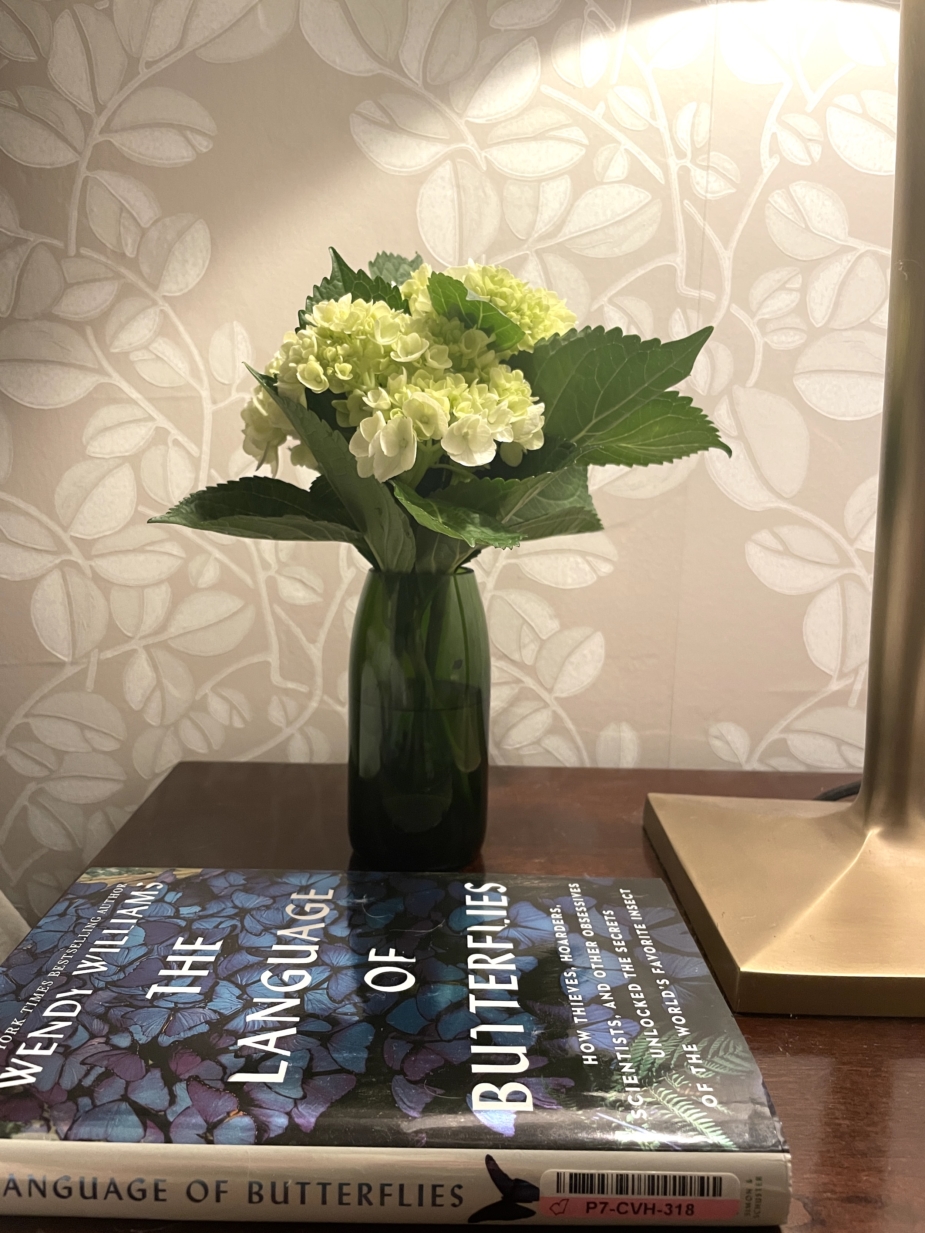 December has the ability to take us out of our daily and weekly rhythms. With all of the joviality and celebration, we often excitedly step into the change and welcome the shift of energy and focus. Similarly, when we have chosen a temporary project to focus our attention, our life routine, where we place our energies, what is prioritized and how we go about our days voluntarily changes. However, what we realize, is the routine preceding December or the commencement of the project, if we intentionally cultivated it, was created for a helpful reason. As shared in episode #316, our lives need 'white space' as that is where we breathe, think, settle, found the ground and our balance before moving forward well into whatever is in front of us. To look at it another way, why is beautiful music so beautiful? Claude Debussy explains, 'Music is the space between the notes.' When our lives become too full, too jammed with demands, even if they lead us to supposed exciting results, our beings suffer, our peace of mind suffers and we ultimately end up exhausted gasping for space to catch our breath, unable to connect well or fully in a way that would actually foster the life we love living. Inspired by my own life at the moment, the week ahead is my first week stepping back into the weekly and daily routines I have longed desired to be a part of my everyday life. The contractors are done. I have one job to hold my focus during the workday hours and I have five days in front of me to reset. Resetting does not necessarily mean returning to what was. After all, the project has concluded bringing a result not previously part of your life, and if you are resetting after the winter holidays, you no doubt experienced either connections, conversations, or moments that deepened, awoken or informed you about something unknown prior to the month of December. You have the opportunity to apply what you are now aware of and enhance your way of dancing with your days and weeks. How to reset constructively:1. Let the rest and recovery happenYour body is likely more tired than you realize as you have been traveling at a different pace and it has been carrying you with adrenaline to push through; however, this is not sustainable for clear thinking or engaging. Often you know you need to give yourself excessive rest when you fall asleep far earlier than you ever would (7pm on the sofa - zonked out). Your body is trying to speak to you. This is not a bad habit because it is not a habit. It is a need, and when the body is fully rested, you will be able to return to your regular 7-9 hours of sleep, turning in at your usual time and waking up to begin your day well. However, in the meantime, honor what your body is asking for. 2. Reflect on your previous routine pre-project/holidaysWhat I have done and did do this past weekend was pull out my old journals as I keep a list of my daily schedules as they evolved over time. I read them closely to understand how and why I chose them, and even though you may think you will remember, often, it is the details of the day that make it harmonize with what you need, so read and look closely. Bring back what you missed, ignore what was a headache, and then read #3 . . . 3. DecompressNow is the time to just put down on paper in a journal or talk with a counselor what you are relieved about, anxious about, hopeful about, excited about, etc.. Often we think by 'thinking about' each of these items in our head, we've helped ourselves out, but actually, they remain jumbled in our mind and we haven't sorted out the 'why' clearly or rationally. When we see our thoughts on paper, when we hear our words spoken outloud and being received by another person who is objective, we can ascertain where we are being constructive in our thinking and where we are still stuck in the stress or jazzed-up, adrenaline fueled energy (that is unsustainable) caused by the project or holiday season. Before we make any changes, additions or deletions, we want to make sure our mind is grounded, and our clarity of what we want our daily and weekly routine to foster understood without confusion by the previous temporary shifting of how we were going about our lives. 4. Don't do anything drasticOften January turns into the month of extreme restriction - dry January or excessive working out. Essentially, reverting to extremes that are never intended to be a regular rhythm keeps us in a state of instability. No wonder we get out of rhythm easily and have difficulty shifting to a helpful pace if we swing from one extreme to the next. When we have a steady, grounding daily and weekly routine, we can savor those extras, those beautiful surprises, those moments that exceed our imaginations whenever they arise whether in January, December or anywhere in between for whatever reason. 5.Strengthen the foundation - food, exercise and mental massageThe tripod of health is something long talked about here on the blog. Make sure your three pillars of good health are tended to and brought back into rhythm in your routines - (1) what you eat, (2) your consistent physical exercise routine (aerobic, strength) and (3) regular strengthening of your mind. In my case, my weekly grocery shopping became irregular as I usually shop on Mondays after reading through cookbooks and planning the week on Sundays. I look forward to returning to this weekly routine as the markets are quieter, often restocked after the weekend and the week becomes fresh and full of delicious meals waiting to be enjoyed. My exercise thankfully does not need to be revamped as that was the self-care component that kept me steady throughout the regular changes and arrivals and tasks in the house happening - each week different than the next. The one thing the contractors did know was that Shannon would be out of the house in the morning with Norman taking a walk and would be back to answer questions momentarily. My meditation and mindfulness practice wasn't perfectly steady, but it was inconsistently steady. So while I need to improve it, it will be easier to reset as I have been returning to it as often as my days allowed and always, without fail, felt steadier after each morning practice.
 31 Ways to Practice True Self-Care, episode #242 6. Find space and time for your social connectionsBegin to look outside of your work schedule, if the project that was all consuming was work-related, and connect with people and events simply because you enjoy their company and/or the activities you were not able to make time for. While truthfully, we should not extricate time with either as it reveals we have taken them a bit too much for granted, spend time and energy to acknowledge this awareness and step back or toward what you know is vital to your connection for social engagement. From carving out time for visiting a local bookshop with no intended purchase in mind, meeting a friend for drinks, taking in a local theater production, taking a day-trip with a loved one somewhere that catches the curiosity for you both, make time and share time together. 7. Finding Your Financial FootingAfter the holidays, often our budgets take a hit, and after a project we've invested in, the same too may be the case. It may seem the best idea is to go to extremes, and really ratchet down your spending, but often this is counter-intuitive, similar to drastic dieting. The best idea is to set a plan for, yes, reduction of spending, but also for paying off what needs your financial attention. Take the long-term, intentional approach, to slow your speed and find a rhythm with money that will last not just through January, but ensure you don't ratchet up the excessive spending or investment again next December or when it comes to projects, keep in perspective your appreciation for what you have put your money into and not rush to the next project just to keep your 'mind' busy. If you do want to do a hard, but not excessive reset, simply take one full week off in January from spending anything. This will give you time to assess, find your footing and clarify any decisions moving forward.
8. Begin to think less about the future and more about todayInitially this may seem counter-intuitive, but likely as the year began you set either resolutions or revolutions or at least an intention for the year. I have included a post below full of ideas for creating a fresh start. Once you have approximately 3 (but no more than 5) specific outcomes you wish you attain over the year, clarify the behavior, activities and small steps you need to tend to in your everydays. Then, let go of thinking about the future, and focus on how you move through your days. If your intention is to learn specific skills on becoming a better master of your mind, or a better communicator or more loving, explore this list of books and instead of seeing them as a huge task to conquer, purchase one book and move through it in your own time, in your own everydays, without evening thinking about what will be next. You know where to look when you are ready to for the next book should you want to read it, but for now, focus on what you are doing now. In other words, when you were immersed in the project, you were likely thinking about the outcome more than you wanted to, which pulled you away from your everyday focus, savoring the life you have the good fortune to live, investing well in certain relationships because you were all-in on the project. However, that needs to change, and the change needs to bring us back into the present. Trusting we've put into place the small tasks to tend to that will lead us where we desire to arrive, but along the way, keep us open to the beauty of the everyday.
9. Now, let goWhen we are so hyper focused on one aspect of life - the holidays or a project we hope will change our lives for the better, we have planned, we have looked ahead, and we then are often so laser focused, but we often forget to just be, to just let go, to fully see what is presented by the people we happen to meet, the events as they happen to occur, the weather that dances around the days we try to structure so rigidly. Let go, immerse yourself in the life you love living, savoring the simple pleasures along the way, listening well and sharing yourself fully, and see what happens. January need not be the extreme month of deprivation or punishment it often becomes, but rather a month to reset, to take a deep cleansing breath and settle into a rhythm that elevates our everydays, setting precedent for how we will move through the entire year that awaits our travel forward.
The Extra Item for the Blog Reader (not heard on the episode) 10. Have patience and be gentle with yourselfOften, especially after a jarring life event (if unwanted), all we want is to get back to steady, to get back to calm, and even if we love the outcome of the holidays or the project we have just wrapped up, we want to be able to snap our fingers and be back into our regular rolling through the day, but more time is needed. It takes time to acclimate to any new or new-as-of-late routine or rhythm, and when we understand this, we can be gentle with ourselves. This is why, bringing back more self-care than you may normally do on a regular basis would be a good idea. Take an extra bath this week, be okay, spend more time meditating than you may normally do on a regular day, take on less work if you can manage that, just so you get your sea-legs back. The rhythm you are resetting your life to follow will return but instead of demanding it arrive and becoming frustrated when you don't feel settled as quickly as you had hoped, know that its slow arrival will ensure it stays in your days for a good long while. Now I am off to take a bubble bath and settle into my evening. Bonsoir. ~Explore becoming a TOP Tier Member here.
Petit Plaisir
 ~Skincare - The Mighty Patch
The Traditional Marseille Soaps
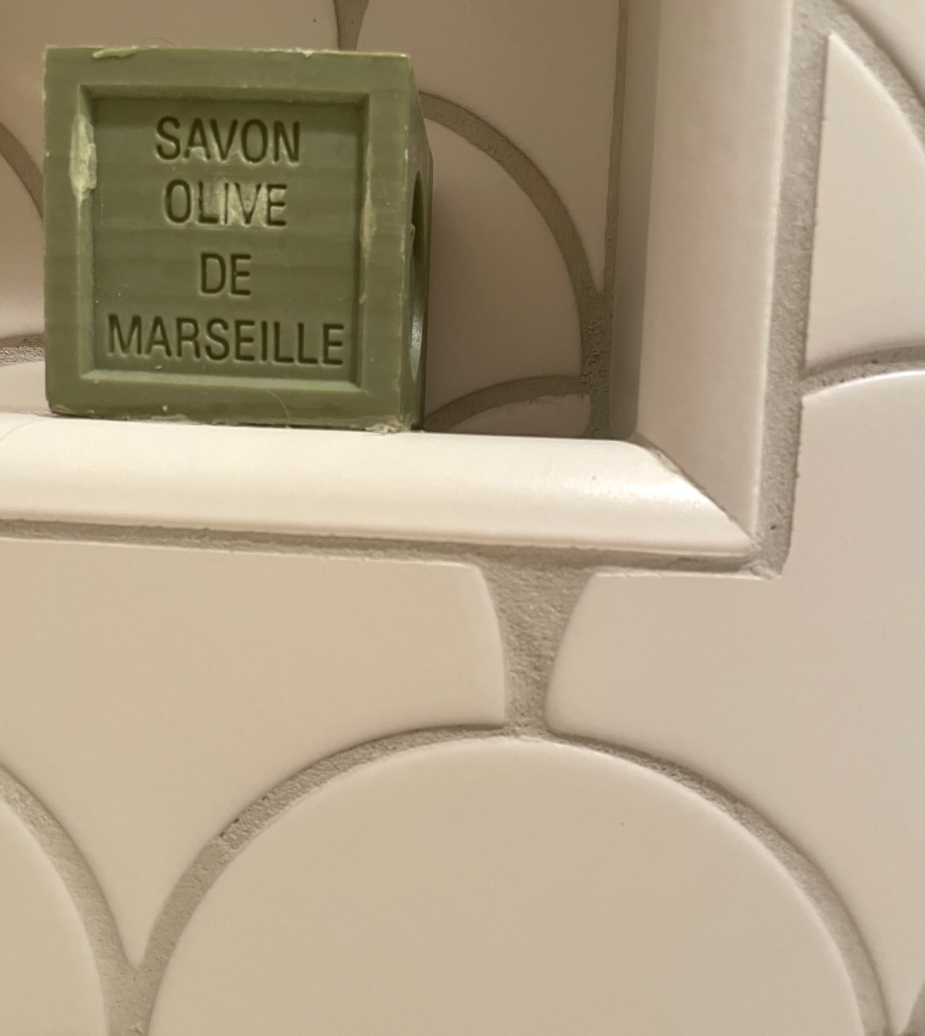 ~View more Petit Plaisirs here. ~The Simple Sophisticate, episode #321~Subscribe to The Simple Sophisticate: iTunes | Stitcher | iHeartRadio | YouTube | Spotify | Amazon Music |
Sun, 2 January 2022

“You were brave and it paid off.” I am starting with where you will be at the end of 2022 because it is absolutely possible. Yes, it is. Let me first acknowledge where you might find your mind when you first read the title of today's post/episode followed by the quote. Doubtful, skeptical, it is wishful and empty thinking you present Shannon. Okay, I hear you, I acknowledge those same feelings arose in my own mind when such a question - What If . . . ? and just that quote regarding being brave first crossed my path. After all, we all have reason to be terrified after the past two years due to everything that has unfolded, what has been revealed, what we have had to do to make it through. We all have beyond justifiable reason to play it safe, to hold on to what is left (or what we think is left), to be scared, to be doubtful, but I am choosing to look at it differently, and this will come as no surprise to readers of the blog and this podcast as the content shared on TSLL especially over the past two years, but over the entire life of the blog (12 years) has defaulted to possibilities becoming reality. More than any time previously, collectively speaking, the world has witnessed both the privilege and the disparity, the unexpected and never predicted as well as the power of people. We can utilize what we have witnessed and elevate not only the lives of those around us, but our own life or we can ignore it and continue to just get along. I choose the former and I am confident you will as well. In the Broadway play If/Then with Idina Menzel cast in the lead role, a play I had the good fortune to watch in 2014 - my first ever to see with my own eyes in NYC - the idea is presented regarding what happens when two different paths are chosen by the same person. How does one's life unfold? Will we end up in the same place years removed or will we give up opportunity? Does fate play a role or not? From romance to career, to friendships, (there is even a song titled, What If? - listen to here or below), both storylines play out before theater-goers' eyes, and what is witnessed is that our choices do matter, our bravery matters; however, in both storylines, we cannot control the other pieces of the story - the other people, the world events, the interactions and storylines of other people and what they are going through in their own lives. But we can dare to love, dare to step forward into the unknown, dare to try, dare to be fully human and be kind and curious because when we choose this approach, we let love into our lives in both hoped for and unexpected ways, we create memories we never want to forget and we build relationships and legacies we are proud to have taken part in with our whole heart.
Below I have gathered up potential hoped for and desired scenarios you may hold in your heart as you stride into 2022 as Norman is striding onto the beach in the picture below. Paired with each I have included what each of us will need to do in our lives to ensure the best possibility for our hope to materialize. In other words, we cannot sit, cross our fingers and be passive. No, we must act, we must take part, we must engage and do so in constructive and secure ways to give the opportunity the best enticement to unfold before our very eyes. Let's take a look at the list below.
 What If . . . your health flourished?
What If . . . you met and built a healthy, loving relationship with someone?
What If . . . the world changed in a way that opened up unexpected possibilities in which your skill-set soars?
What If . . . you found a steady peace of mind in your everydays?
What If . . . you fell in love with the work you do or began doing work you love?
Our lives are unfolding as we read this post. And the gift to each of us is that we are here, alive and capable of being the main character in our story if we choose to engage fully. By choosing to engage with loving-kindness and integrity in each of our actions, we build a force of energy full of peace of mind as we know while we have been true to ourselves we have also considered those we love and what selflessly is what will honor their journey as well. We don't ignore ourselves, but rather respect ourselves. We are loving in the thoughts we let about in our mind which further strengthens our peace of mind and how we 'see' the world, we are loving in our actions, we are loving with our words. But rest assured, being loving doesn't mean being weak or soft or a push-over, but it does require us to allow others to be who they are even when it doesn't make sense to us, even if it is different than how we would live our lives. Loving asks us to extend appreciation, sincerely and often which means we must look for what is going well all the time which makes it far more difficult to look for what is not going well, thus limiting or eliminating any reason to complain. Loving asks us to be affectionate, to be vulnerable and not withhold giving love to others - a touch of the arm, a hug, a kiss, a kind word. So won't you too step forward and dare to elevate the potential of what this year can bring into your life and those you love? Living in the mindset of "What If . . . ?" is not to hold on to hope. In the context of what we are talking about today, it is a taking responsibility of our actions, how we present ourselves - the thoughts that turn into words, the words we use, the tone surrounding those words, the actions we take rather than being passive, what we step toward and engage with and what we let go and let be.
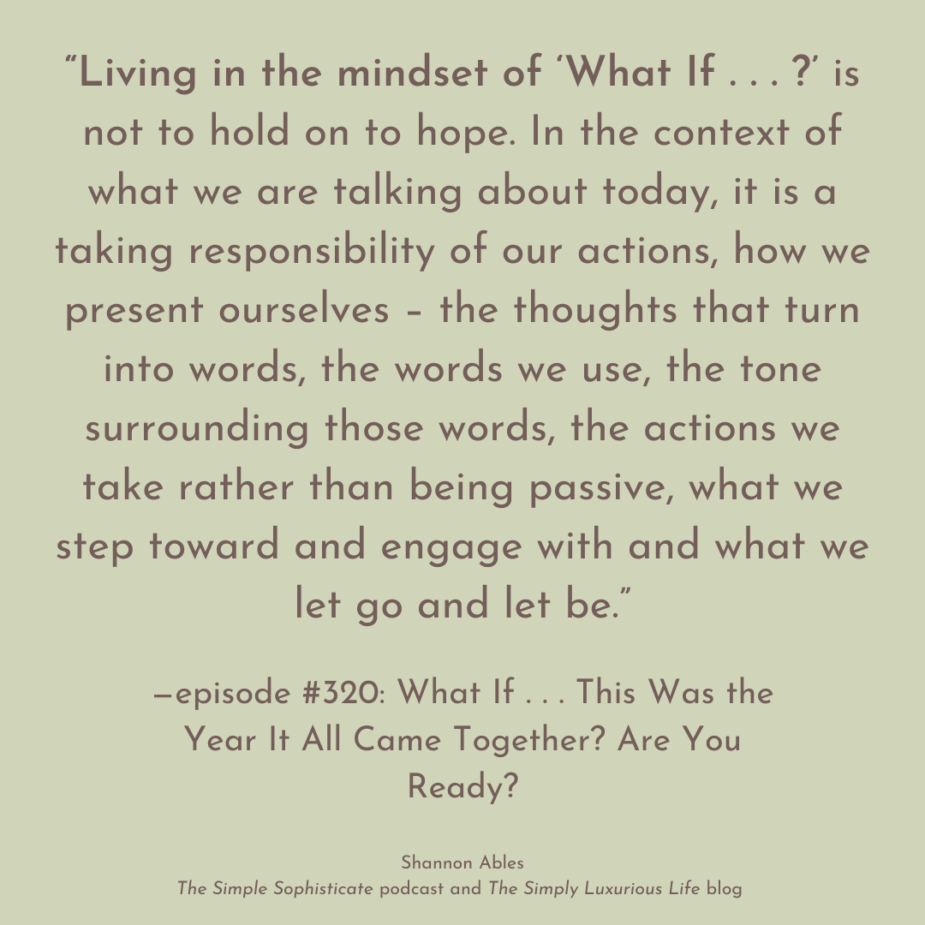 Living in the mindset of 'What If . . .?" removes us from the director's chair and puts us on the stage of life to engage with what is presented by others on the stage with us at any given moment. Living in the mindset of 'What If . . . ?' requires us to live in awareness and to take action where we acknowledge we need to grow, where we are hindered by our current choices/actions/thoughts the life we desire from materializing. It requires us to handle our egos with command of understanding when it is unhelpful and guiding us down a path that will not be fortuitous, and also knowing when it can help us, but never letting it lead.
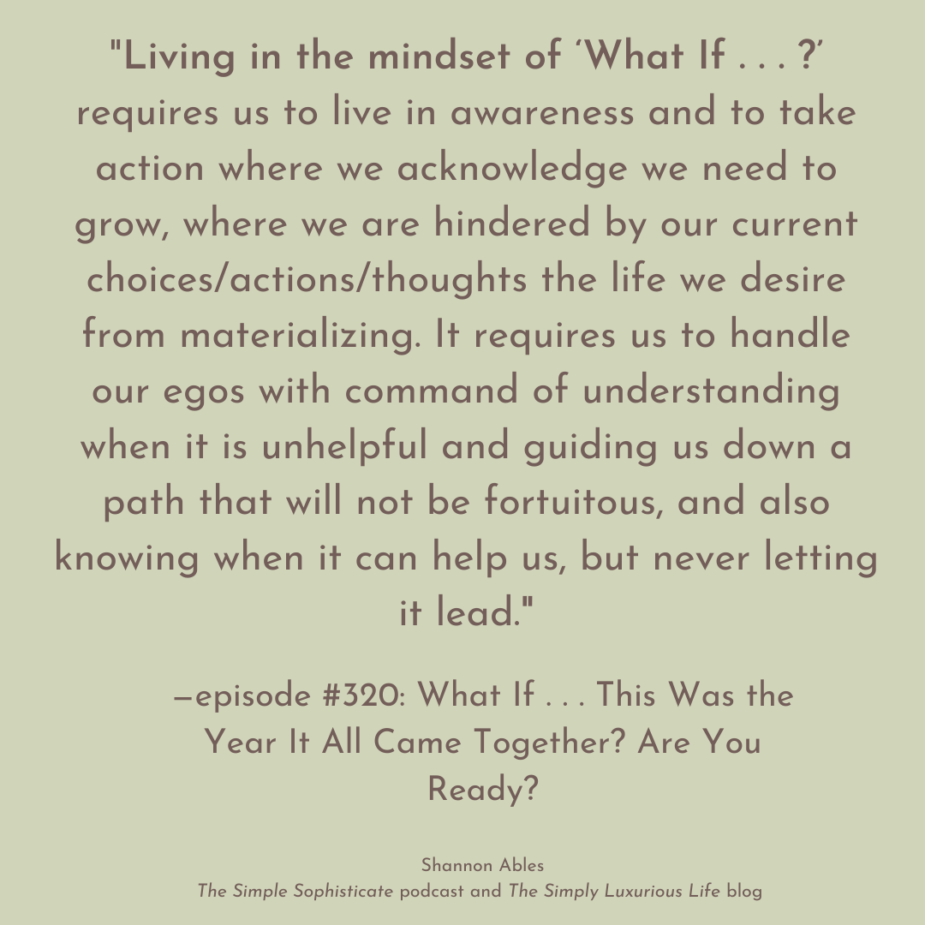 Living in the mindset of 'What If . . . ?' reiterates the importance of putting in the time. Time when we are not recognized, not out in front of the crowd, not receiving attention, but instead trusting ourselves to invest with both our time, our money, our focus to create the possibility of a new reality. May 2022 delight and amaze you, and may you find the courage to be brave. Here we go!
SIMILAR POSTS/EPISODES YOU MIGHT ENJOY
 episode #214: Attaining the Change You Seek in the New Year
Petit Plaisir ~Hacks, HBO Max
 —SKIMS Cozy Bouclé Robe (bone, and more colors)
 ~The Simple Sophisticate, episode #320~Subscribe to The Simple Sophisticate: iTunes | Stitcher | iHeartRadio | YouTube | Spotify | Amazon Music |
Sun, 19 December 2021
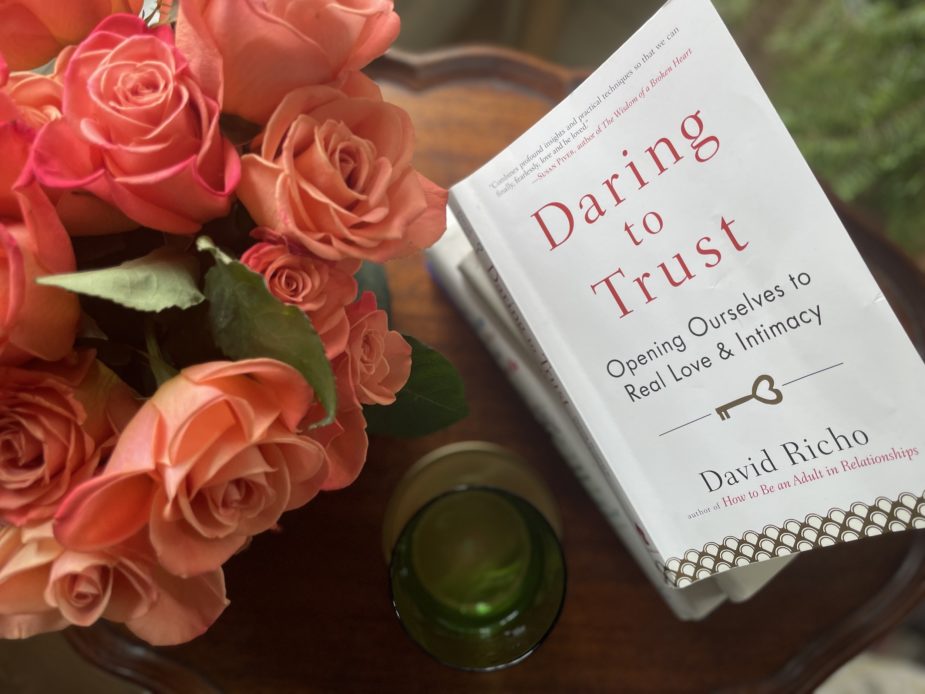 "As we practice unconditional trustworthiness, we notice a healing result: we are no longer devastated when others fail us. Our focus has shifted from ourselves as victims of others' betrayals of fidelity to our own commitment to trustworthiness. We still see that some people are not trustworthy, and we feel sad and injured. But as long as we do not follow suit, we are not so hurt as we once were—and we like ourselves more. This does not mean that we have become naive or gullible. It actually shows that we trust ourselves more. Then we become more discriminating in recognizing trustworthiness in others." —David Richo, author of Daring to Trust: Opening Ourselves to Real Love & Intimacy Often the word trust is expressed as a fundamental desire to find in other people, but what often is forgotten is how we play a role in both being fully trustworthy, but also trusting ourselves. Having self-trust, David Richo shares in his book Daring to Trust is one of the four types of trust we must possess in order to live a deeply enriching and fulfilling life. What are the other three types of trust you may be wondering? We will talk about those in today's post/episode. Over the course of this podcast, I have shared many discoveries from a vast range of books on how to improve the skills that will improve the quality of our lives (see the list of the most recent, the past two years, below). I found it especially poignant and timely that I read Daring to Trust as the year 2021 wound down.
Often we aren't certain or cannot pinpoint what exactly is preventing us from living a life of true contentment. Perhaps we have come quite close, have felt it from time to time, but not consistently. There are moments of deep fulfillment and peace, but it eludes us at other times, and we wonder what we have done wrong. For me, after reading the following books listed above (link to the episode each book inspired), I felt confident I had the ingredients to live a life of everyday contentment, and largely I did, but the said contentment would flit away when certain moments would present themselves, and so I kept searching. I told myself, there must be a missing ingredient I have overlooked. I must have missed a crucial skill for holding myself steadily in contentment each day. Turns out it was understanding what true trust is and how to be fully trustworthy all the while acknowledging that we (and others) are human. Both of these concepts are what will be discussed in today's episode/post. First, let's find common ground on what trust is. David Richo defines it simply as reliance on reliability. He underscores, "[Trust] is not dependency but rather an inner assurance, a confidence that gives us a sense of security." 1. Strengthen your trust IQ: Know when to walk away "We trust others when we feel safe and secure in their presence. Our insistence that we will spend time only with those with whom we feel safe increases our trust IQ. Over time, we become more adept at telling the difference between a con artist and a straight-up guy. When we feel unsafe with someone and still stay with them, we damage our ability to discern trustworthiness in those we will meet in the future." Understanding true trust in others and exercising trustworthiness in how we live our lives gives us the tools to know when to stay and when to leave. Richo's quote above brings to our attention the importance of how we hurt this skill of discernment each time we distrust what we know about trust.
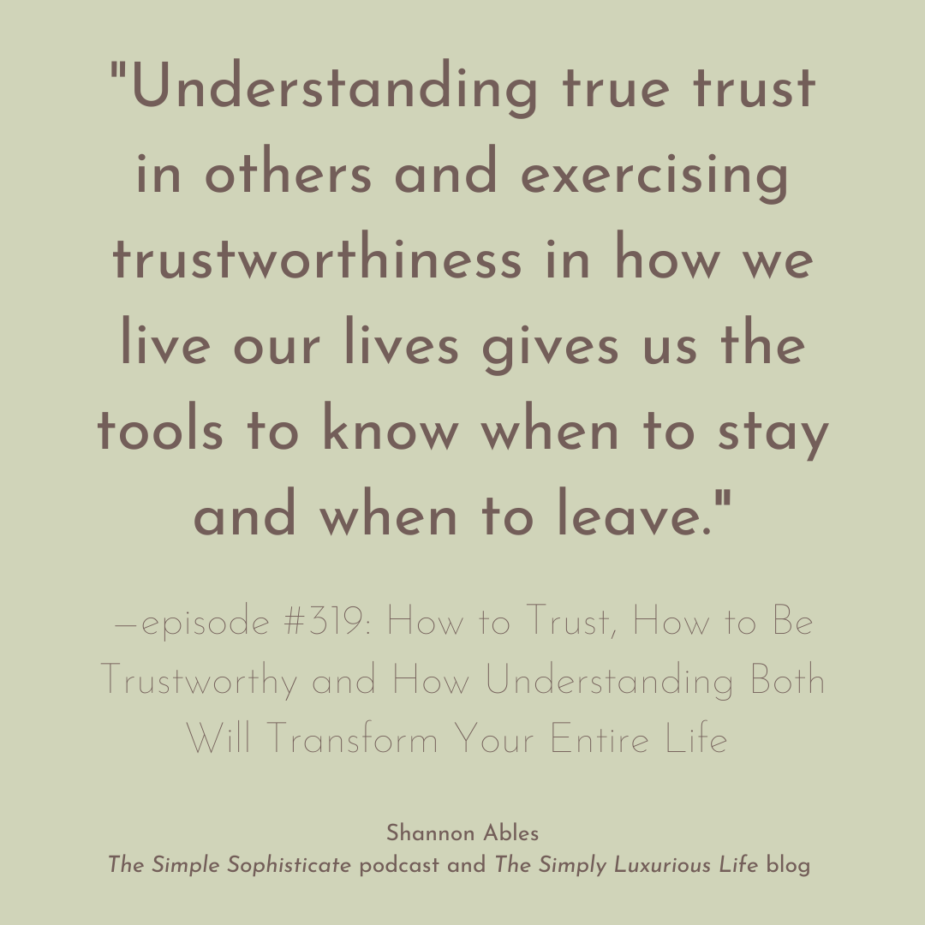 When we know we can trust, "we know longer have to protect ourselves" and the cultivation of true intimacy becomes possible. But first, what is adult trust? In other words, what is the trust we need to understand? 2. What is trust, adult trust? When I read the first chapter of David Richo's book I became immediately aware of how I had approached trust incorrectly throughout my adult life. I had placed the responsibility on the other to show trust or to be trustworthy, placing the power in someone else; however, I had it backwards and I disempowered myself in the process. Let me explain: Adult trust is "I trust myself with whatever you do" instead of "You will never hurt me." Sounds crazy to choose to let go of the latter statement, but again, you are taking back your power, taking responsibility for being trustworthy and being able to accurately determine if someone is available to be trusted. Richo points out that when we make this shift to adult trust, we remove the victim mentality and own our life, our choices and honor ourselves which improves our ability to observe those who are capable of being trusted as we move forward. By putting the trust in ourselves to discern if others are trustworthy, knowing we can walk away at the worst of it, speak up with assertiveness (not aggression) we exhibit security in ourselves. And when we demonstrate we are a secure individual, we attract healthier individuals to us as we are not seen as a burden to someone else, not seen as a victim in need of someone else's care. 3. True trust takes time As much as we desire to flat out trust the person who captures our eye, our libido, our hopes, to say we fully trust someone so quickly is foolhardy. In fact, we must count ourselves fortunate if we grew up in a family home where a healthy installation of trust as Richo calls it was part of our upbringing because we will know what true trust looks and feels like in others as we navigate into our adult lives. However, if such a childhood was not part of our life story, it is important to learn what true trust is so that we will begin to seek out those we can trust and let go of those we cannot. We forget that as a baby, our whole lives were placed in the responsibility and care of adults we didn't get to choose. Over the course of our childhood - 18 years or so - we either have a mountain of evidence that our parents were trustworthy to provide security and care or we don't, but it took time, and our parents were not perfect, so they made mistakes, but most likely, they are people you could trust. The imperfection is important to note, as is the time factor. Trust takes time. No matter how attracted you are to someone, no matter how hotly charged the chemistry that runs between you two, neither have anything to do with whether or not you can trust them. You may want to trust them, but you do not have enough experience with them, time with them or exploration of them to know whether you can or not. What does taking time to trust look like?
"Our companion practice of the unconditional yes to what is directs us to be thankful for trustworthiness from others when it comes our way and be open to disappointment sometimes too." 4. Often sex is desired when it is trust we seek "Regarding touching, it is central to trusting." While there are the five languages of love as Gary Chapman talks about in his book which was the central focus of episode #87 - Romantic Love: What is it and How to Maintain It, touch is often something each of us is starved for. Healthy touch, loving touch, a safe touch. Richo brings to our attention that "in adulthood we may look to sex as a substitute for the touch and holding we need" when what we are actually seeking is a heart connection which can happen in many other ways of touching. However, because we know that other forms of touching prompt great emotional response, we are fearful of the emotion that will arise, so the sex gives us temporarily what we long for, but isn't fulfilling if it isn't with someone we trust. On the trustworthy side, which is something we have entire control over (we'll talk about what that is in the next point), when we trust ourselves (self-trust) we aren't afraid to express our emotions or let ourselves feel the emotions we have while with another, and so we are able to let go of our unnecessary inhibitions and extend touch - whether in an arm around the shoulder, a touch of the hand or a kiss. All of these actions again are exchanged with someone we trust and motivated by sincere exchange of feeling knowing the person with whom we are exchanging feels safe with us. 5. Be wholly trustworthy in your daily actions When we are trustworthy, David Richo explains, we are living with and engaging with the world with integrity and loving kindness.
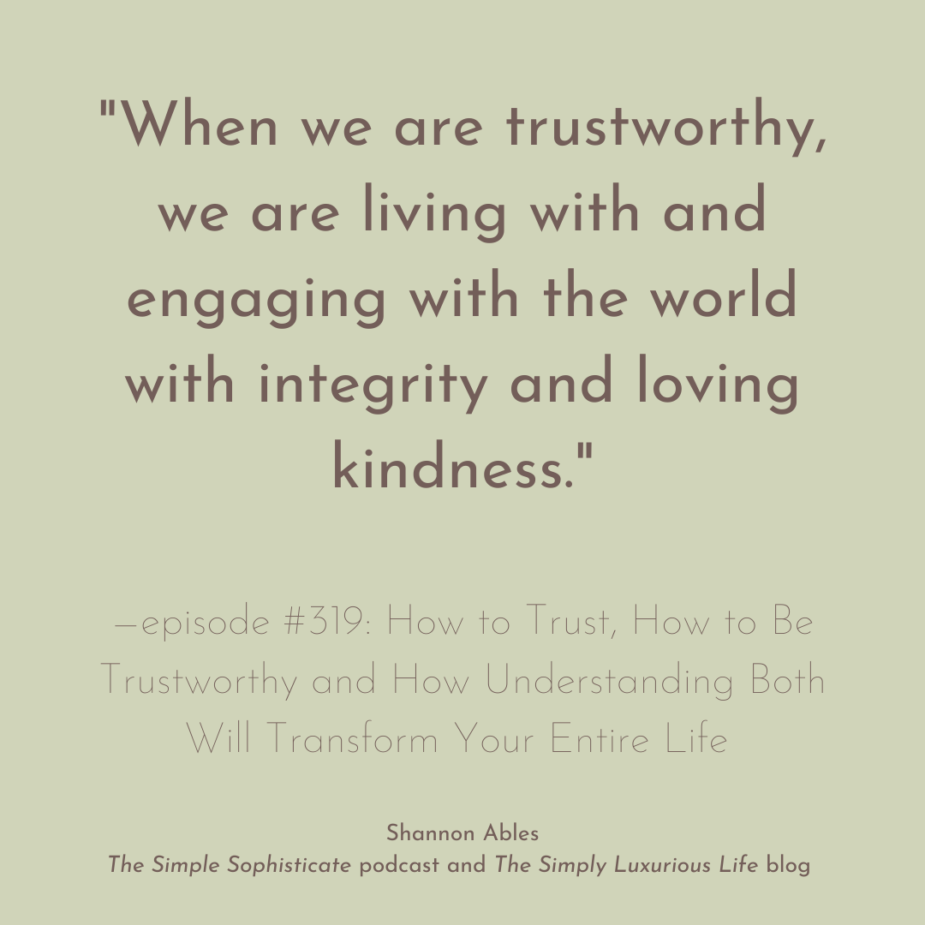 When we act with integrity, we may be rejected, we may even be laughed at, but because we are mature enough to understand how trust can be built with another, the opinions of those who reject or laugh or scoff matter less because we have strengthened our inner resources and know to walk away. We do not take revenge, retaliate or act in a way that is against our integrity, but instead engage with loving kindness. Richo shares this detailed list of the many ways you express loving kindness and integrity. Here is just a taste:
6. Build a full and healthy life: Rely on your partner for only 25% of your needs fulfillment It is not just a romantic partner we shouldn't rely on for more than 25% of our needs fulfillment but any one person. Why? If we remain in the child-parent trust model which is a survival approach, we are in a dependency-relationship which thwarts any attempt for a healthy, fulfilling relationship. Ironically, we are programmed to have our survival needs met - the child-parent model - but we must shift away from this comfort seeking and step into the challenge approach to living which requires that we become more comfortable with the unknown and cultivate more self-trust (we'll talk about this type of trust below). The shift occurs when we start seeking safety and security from within rather than outside of ourselves. When we make this shift, our world changes for the better. Our days and relationships more enriching and our contentment grounding. Richo shares a quote from Henry David Thoreau which I found quite succinct and accurate to describe what we seek in relationships, "I will come to you, my friend, when I no longer need you. Then you will find a palace, not an almshouse." So where does the rest of our need fulfillment come from if only 25% can come from any one person? It comes from the healthy social circle and self-care you have thoughtfully nurtured over time, and that doesn't just mean people. In this post, I share a list of different connections and relationships worth investing in and then in this post share the elements of a strong social well-being. Simply put, your friends, family, yes, even your pets, and of course your career, spiritual practice, Mother Nature and any other resource that strengthens your sense of safety and security make up the remaining 75% of your needs fulfillment. 7. Exercise, as well as be able to identify, the five A's In episode #287 - 5 Things to Do to Build Healthy Relationships, David Richo's first book How to Be An Adult in Relationships: The 5 Keys to Mindful Loving inspired the content. Detailing the five A's necessary to be exercised by both individuals in any mutually satisfying and fulfilling relationships, these 5 A's play a fundamental part in building trust. What are the A's?
We are being trustworthy when we express each of these in relationships. We know someone is worthy of being trusted when they exercise them in return. (read this post to explore each of the A's in more detail). 8. When we have self-trust, there is no need, or desire, to control others "The yes of surrender to the limits in our relationship leads to serenity, the safety and security that happen from within us. Such surrender is our proof to ourselves that we really can trust ourselves. We begin to redirect our trust, an empowering venture." An intimate relationship takes time to build as both involved have taken the time to show they are trustworthy. When we trust the other, we gradually and then more largely surrender, and surrendering is possible because we hold fast and steadily to strong trust of ourselves. The surrendering has as much to do with being with another human being as it has to do with letting our feelings be what they will be in the midst of all the experiences that will arise. And letting ourselves fully feel these feelings without suppression. I speak largely of the awesome feelings that we may have thought were never possible. We are more comfortable with surrender because we trust ourselves to respond rather than react, to speak up with assertiveness not aggression when our needs are not being met as well as knowing what our needs are and why because we have done the homework of ourselves as well as acknowledged that we are still growing and learning and evolving. Richo writes about men in American culture and how often when men deny or step away from the potential of a relationship with a real, healthy and secure individual, stating the reason is because they fear losing their freedom, it is actually an inaccurate reason. Let me explain. If the person they are stepping towards is indeed real, secure and has self-trust, then what men actually fear is not the loss of their freedom, but rather the feelings that may arise when they surrender themselves to what the relationship, what the intimacy, may actually be and who they will become when they surrender to the truth of what they feel. In other words, two self-trusting adults who exchange all of the 5 A's create a space, a life of fulfillment without controlling the other. Why? Because we are not forcing the other to be engaged with us. They want to be with us because we each find comfort, affirmation, love and community with each other. It feels good because it is good to feel our best, and if we feel our best with them, even when we unintentionally make mistakes or life trips us up, so long as we are acting with integrity and loving kindness, the intimacy remains and actually strengthens. Such strength in a relationship takes time to build, just as trust does and that is why true intimacy, true fulfillment, true love, takes time and is never at first sight. 9. Strengthen your core trust and become curious about your own life journey Essentially our core trust is acceptance in the reality of the world. A letting go, a trusting in magic and truth of things beyond our control. It doesn't mean we do not engage or act passively, but we do not strangle life. We let it unfold while dancing with it. When we exercise our core trust we "generate a calm abiding, a serenity that energizes. The opposite of being in control is resting secure and being alert to what comes next." "To open to reality is to turn toward it and to trust that it makes room for us in that very same moment . . . all this happens as we let go of control and stay with whatever happens until it transforms." Understanding what core trust is and how it can open up our lives was an aha moment for me. In many ways over the past 12 years I have been exercising a core trust even though I was doing so unconsciously. When we take our life experiences and mine them for wisdom rather than wallow in them and lament about how things may have been different, we are choosing to embrace our journey and figure out what is our calling, how can we marry what we are passionate about with what the world needs - our dharma as Jay Shetty calls it and in so doing, our journey unfolds in ways we could never have imagined. We are open to possibility and brave enough to explore the unknown while staying grounded in our self-trust - our boundaries maintained, our values held once questioned and evaluated to truly be our own. "When I give up trying to direct the show and instead keep opening to how it unfolds, I unfold." Richo reminds that "without core trust, we can't relax our grasp and let reality unfold as it needs to . . . with core trust, we gain confidence that nothing can happen to us that does not offer a fulfillment of our ineradicable yearning for wholeness. Thus everything in our lives, whether from events or from people, is just what is needed for our unique story to be told." How exciting is that! How freeing is that to know that it is in the letting go, engaging, but not demanding or manipulating, that we actually infuse our life with awesome possibility. 10. As your trust strengthens, your wisdom grows "Wisdom requires us to open to what happens and be discriminating about what we let in." As we come to understand what constitutes trust in someone else, as we explore our own feelings to accurately access what our needs are and why we are feeling what we are feeling, as we communicate with assertiveness paired with courtesy our needs, as we experience the walking away and opening up to new people, as our self-trust grows, as our core trust grows, we are better able to know who to begin letting into our lives and who to walk past. 11. Understand where the need to control originates "Our need to control is actually not a need; it is a panic that our needs will not be met unless we take full charge." Richo's explanation of the truth he states above prompted many lightbulb moments to go off in my own head. I found myself shaking my head in agreement, acknowledging the truth of my own desire to control in a variety of different instances in my life, and I felt grateful to finally have found his insights as they helped me better understand myself. The truth is, when we demand to control, we let go of the core trust we must have in order to live a life of fulfillment. The ego wins when we require something go exactly our way, and when the ego wins, we are relinquishing the belief in our own powers. We are far more capable than we acknowledge in such moments, and letting the ego win keeps us in a state of dependency rather than trust in the world around us and in ourselves. 12. The four directions we give our trust In today's episode so far we have talked about self-trust (#8) and core trust (#9), and now I would like to talk about the other two because once we have all four types of trust being exercised in our lives, the quality of our relationships and our experience of life, thus a life of fulfillment, elevates. When we exercise self-trust we become better able to determine who is trustworthy and who to continue to get to know in a variety of types of relationships. Exercising self-trust in this way ushers in the third type of trust - interpersonal trust.
As we nurture a variety of interpersonal relationships of trust, we make sure not to place more than 25% of our needs in any one relationship. We do so because we trust ourselves, we have a core trust and, to introduce the fourth type of trust, we have trust in a higher power. Do not jump to conclusions. A "higher power" as defined by Richo "can mean belief in a personal God or in any force or spirit in nature or the universe that transcends ego and can be relied upon for grace and support. In many ways, our core trust and trust in a higher power are one. Richo is not saying our destiny has already been pre-ordained or even that there is intervention by something we don't understand. No. What he is saying is that we can have "confidence that no power on earth can hold us captive to hate or prohibit us from loving." This does not require us to have faith in a literal God, but rather to understand something we cannot fully understand but have the courage to believe in the 'friendliness of the universe'. Richo goes on to talk about Grace-full Coincidence in his epilogue, further encouragement to each of us to let go, act with integrity and loving kindness in each of our days, be engaged with the world, but not demanding, and trust in something magical. He poses this question: Does the universe position things so carefully that our hearts can open at just the right time? What mysterious power makes it all come together just like that? Is it that friendly? How can we ever doubt that we can dare to trust? My immediate response and annotation in my book was, I hope so. And so I am consciously daring to trust, to open my heart to that possibility and take control of what I can, which is only myself and how I engage. Remembering to exercise the 5 A's, remove the stories from my mind and walk with patience and self-trust along with all of the other trusts, grateful for the gift of being here on this earth. I dare you to do the same and am confident your life journey will delight and amaze you when you do.
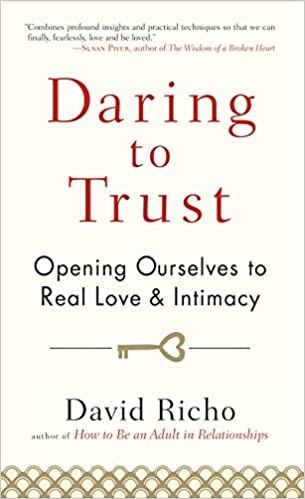 Explore the full book here.
Petit Plaisir —John Coltrane's Giant Steps album
~The Simple Sophisticate, episode #319~Subscribe to The Simple Sophisticate: iTunes | Stitcher | iHeartRadio | YouTube | Spotify | Amazon Music |
Sun, 5 December 2021
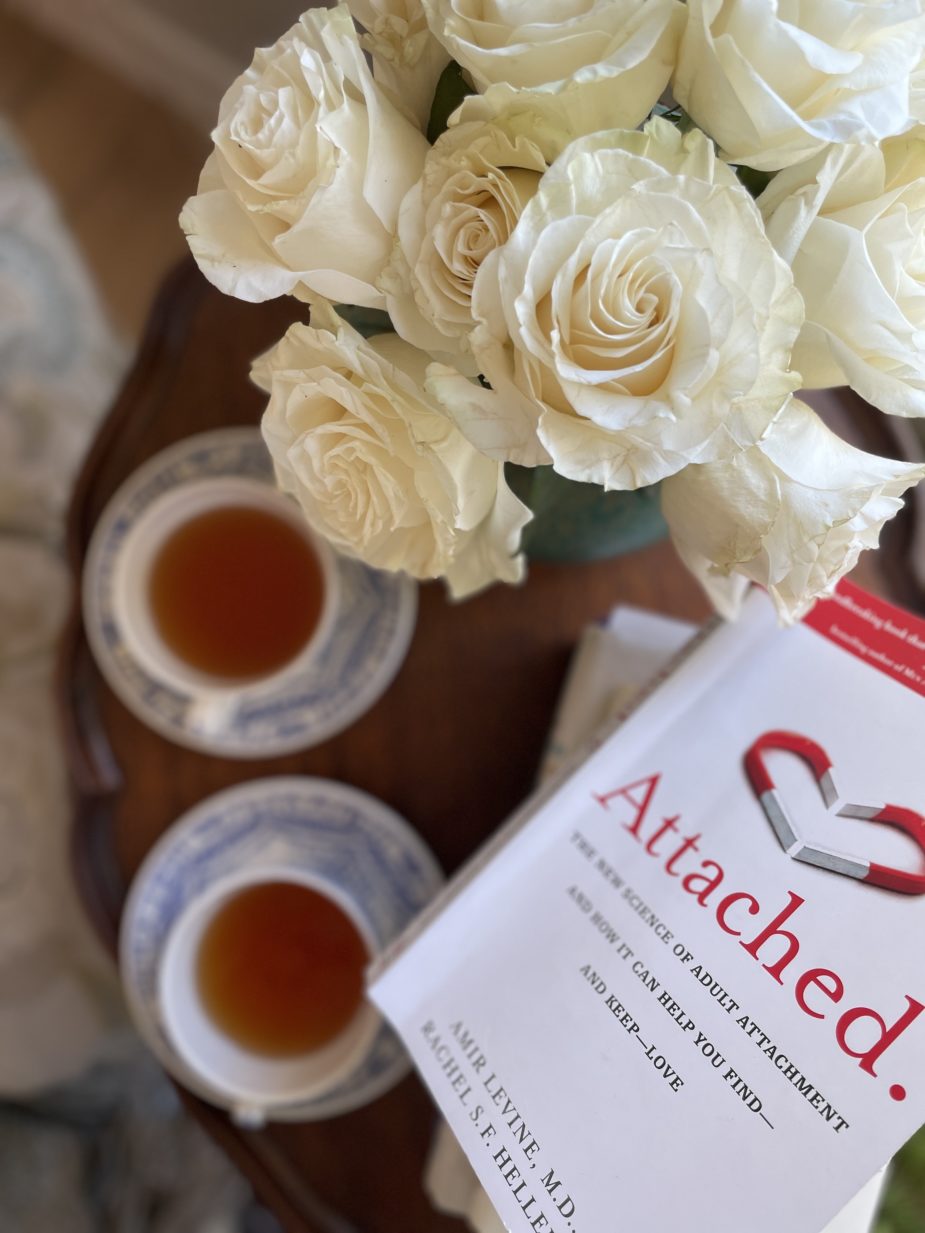 "If we feel secure, the world is at our feet. We can take risks, be creative, and pursue our dreams." —Amir Levine, M.D. and Rachel S.F. Heller, M.A., authors of Attached: The New Science of Adult Attachment and How It Can Help You Find—and Keep—Love Until we know the priceless gift of peace security in relationships of any type bring into our everydays, it can seem unfathomable to trust such peace is possible. On the flip-side, if all that we have ever known due to the good fortunate of our upbringing with secure, loving parents and community is a life and way of being that enables us to try, explore, and soar, then it isn't until we meet someone or try to engage with someone who is insecure that we realize the awesomeness of being secure in a relationship. During the height of the pandemic lockdowns, a book that was published in 2010 hit record sales as those in relationships sought advice on how to strengthen their relationships, those desiring a relationship inquired how to be and find and build a secure relationship and wherever else readers may have fallen on the continuum of wondering about relationships picked up the book Attached.: The new sequence of adult attachment and how it can help you find—and keep—love by Dr. Amir Levin and Rachel S.F. Heller. Without the tools or knowledge to understand what feeling and behaving in a secure way might be, we do our best to navigate the emotions that naturally arise when we take the risk of meeting someone knew and intertwining two different people's lives into one, yet hoping to ensure contentment for both. However, if we don't know ourselves well, don't know how to communicate clearly, yet kindly and without harm, and our partner doesn't either know themselves well or doesn't communicate effectively, how are we know what works for the two individuals involved? The good news for all of us is that having a Secure attachment style can be learned. We are not born with or without it. We are taught or modeled different attachment styles during childhood and then through adulthood; the key is to be aware and knowledgeable of each, and to acquire and practice the skills of being Secure. And as for seeking out a partner, become a secure adult enables to understand what is shown from those we consider entering into a relationship with so that we choose wisely and engage in a healthy manner to put the odds in our favor of finding and keeping a healthy, loving relationship. "Time and again, research shows that the best predictor of happiness in a relationship is a secure attachment style."
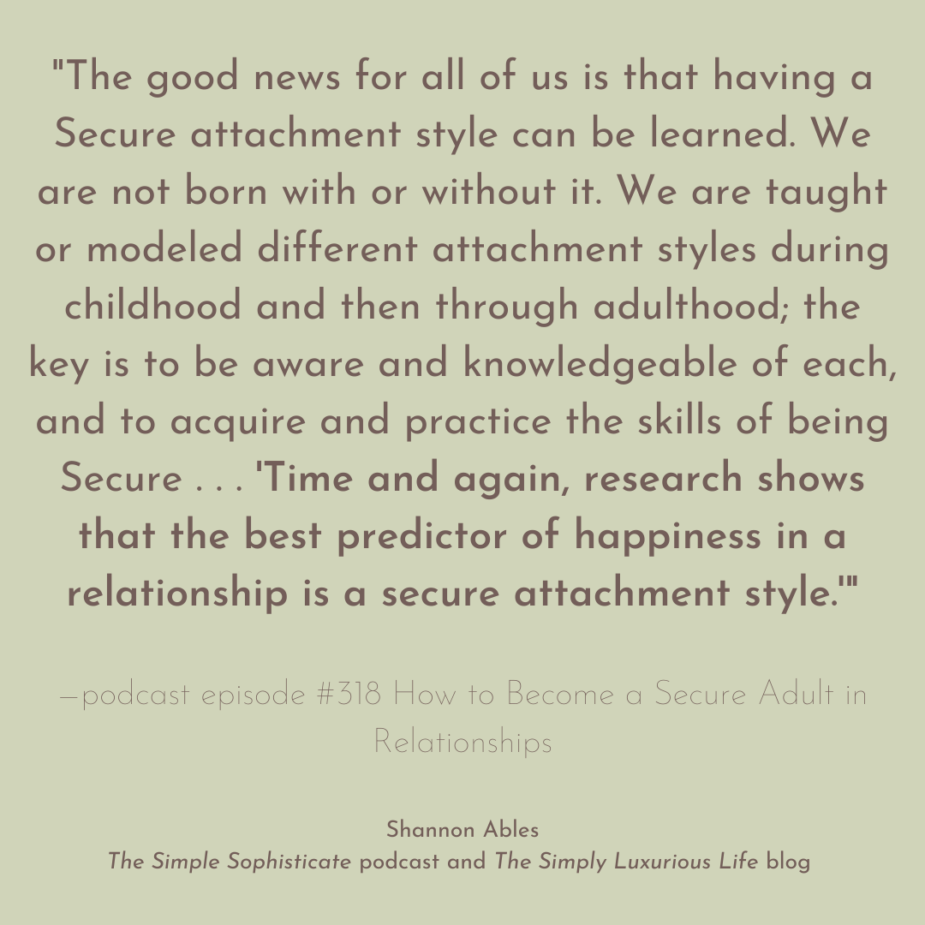 Benefits of being a secure individual in life and in relationships:
What are the characteristics of a secure individual? First, it is important to note that you cannot determine simply by looking at someone that they are secure. Simply because someone is friendly, likable and sociable does not mean they are secure. The author adamantly refutes the belief that a secure individual can be determined by their "charm, composure and/or self-confidence. As with other attachment styles, personality or physical traits won't give secures away. Secure people fit almost every description across the personality spectrum." But back to the question: what are the characteristics of a secure individual? "(1) They are programmed to expect their partners to be loving and responsive and (2) don't worry much about losing their partner's love. (3) They feel extremely comfortable with intimacy and closeness and (4) have an uncanny ability to communicate their needs and (5) respond to their partners' needs." I picked up the book early this fall after reading an article in The New York Times by Foster Kamer. While I had heard of the three, technically four different types of attachment styles, I had never deeply explored them to fully understand them. Of course, being, feeling and engaging with Secure attachment styles sounded to me to be a no-brainer, but I knew I didn't always fall into that category . . . and I wanted to. For the sake of my own well-being, but also for all relationships I was part of, especially an intimate, romantic relationship, I chose to pick up the book and become a student. Guessing how to be Secure didn't seem to me to be a recipe for success, so I chose to be a student, purchased the book, and have since read it three times, re-reading certain sections based on what I needed to more fully understand. Once I read the book I knew I wanted to bring it to listeners of the podcast and readers of TSLL blog, so today, I will be sharing 13 skills and insights for becoming a Secure adult in relationships. By no means is what I share with you today the full breadth and depth of what the book details, so I highly recommend, if this topic interests you, to pick up the book. Let's get started. ~Note to Readers: Be sure to tune in to the audio version as each point listed below is discussed in detail, content that is not included in the written post. 1. Understand the Dependency Paradox"Does [being programmed to connect with someone special] mean that in order to be happy in a relationship we need to be joined with our partner at the hip or give up other aspects of our life such as our careers or friends? Paradoxically, the opposite is true! It turns out that the ability to step into the world on our own often stems from the knowledge that there is someone beside us who we can count on—this is the "dependency paradox". (p. 29) "If you want to take the road to independence and happiness, find the right person to depend on and travel down it with that person. Once you understand this, you've grasped the essence of attachment theory." 2. Understand your current attachment style (it can change, it is not permanent)"Attachment styles are stable but plastic. Knowing your specific attachment profile will help you understand yourself better and guide you in your interactions with others. Ideally this will result in more happiness in your relationships." Know thyself. A common refrain here on TSLL blog and podcast, but the truth is you need to know where you are now in order to acquire the correct instructions to arrive at your desired destination. 3. Learn how to effectively communicate your needs - be clear and kind"[Secure individuals] are able to sensitively and empathetically—and most importantly, coherently—discuss their emotions". Speaking at someone is different than speaking with someone, and how we speak with someone will determine the potential for our needs to be heard. To speak with kindness is to be inoffensive and to "not put your partner on the spot". Use "I feel" statements or "I need" statements to express why you wish to share what you are sharing. The practice of effective communication stretches across all types of relationships and it is never too early or too late to start. Often our goal in communicating is to gain what we desire, but the truth is, we may not immediately gain what we desire, but we will at least become clear about who can or cannot be what we need or give us what we need. Of course, immediate actions from our partner, friend, child or boss doesn't mean they cannot or won't be able to as sometimes it takes time to process, to work on logistics, etc., but if you don't effectively and kindly communicate your needs, no one will know them. "Effective communication is the quickest, most direct way to determine whether your prospective partner will be able to meet your needs." 4. Don't play games5. Refrain from engaging in the 'relationship dance'Defined as 'one partner getting closer while the other steps back in order to maintain a certain distance in the relationship at all times', with a secure partner you don't step too closely too quickly, simply at a steady and reasonable pace that the two people involved feel comfortable moving. There is no rushing as there is a groundedness in one's self and a secure person is "comfortable with closeness" and isn't afraid to step forward once they know themselves and who they are stepping toward or someone they want to get to know better. This is not to say a secure person knows it will work out, but rather they have a sense of steady assurance in themselves and that what they give is real and worth exploring. ~Post to explore: 10 Ways to Strengthen Your Self-Worth 6. View "sex and emotional intimacy as one"Distance is created when the two are separated. Again, such a view speaks to the ability to be comfortable with closeness once both partners have been vulnerable beyond the bedroom as they get to know each other and are drawn to each other beyond the physical chemistry. 7. Responsive and expect it in return (remember, no games)Having communicated their needs and listening sincerely to their partner's needs, the reciprocity of responsiveness rather than dismissal strengthens the trust and intimate connection. 8. Be availablePhysically and emotionally being present for your partner is the action of a secure individual. When we communicate our needs and tend to them as well as observe our partner is responsive to our needs, we in turn are also showing up and making ourselves available. 9. Support without interference"Provide behind-the-scenes-support for [your partner's] endeavors." Allowing your partner to pursue what they are passionate about, helping without over-taking or taking the credit so that their gifts shine is the support of a secure individual. As a secure individual you are helping because you want to support your partner, yet are securely tending to your own passions and need no spotlight, need not be in control, rather only present to help as needed without being recognized by anyone other than your partner. 10. Understand there are many potential partners11. Don't feel a need to act defensively or punishIn other words, secure individuals can see a situation more objectively. They can effectively diffuse the conflict, observe in their partner what really provoked their outburst or anger, and not add fuel to the fire. 12. More likely to step into a healthy relationshipWe must keep in mind that a secure individual tends to be savvy in their partner selection. It doesn't mean if you are secure, you will always select a secure partner, but through clear and effective communication as the getting to know you phase unfolds, you can observe red flags early-on and find the right partner more easily. I didn't say quickly, but being secure does help you not step forward too far with someone who would not be the right person. 13. Expects to be treated with respect, dignity and loveDovetailing with #12, a secure person begins any relationship with effectively communicating their needs which is why knowing yourself highly benefits the ability to choose a partner to begin to get to know. The fundamental foundation piece for a healthy relationship is believing, yes, knowing, you are worthy of respect because you extend it in your everyday life. When you present yourself to a potential partner holding yourself in a space of self-respect, knowing you deserve to be treated with dignity and love, then you can quickly discern to whom to begin engaging with and whom to walk away from. Of course, even as this book points out, research findings change with hindsight, time and more examination, and it is never wise to take an entire book at face-value but rather to read with a critical mind and discerning objectivity. However, what I am confident you will find is that no matter what your relationship status when you apply the tools and skills explored and taught in this book, you will find a deeper peace and inner calm that you may not have had prior to including them in your life. After all, at the core of the definition of contentment is to find a peace within no matter what is swirling about outside of you. How we choose to engage, what we step forward toward and refrain from engaging in determines the quality of our lives, and if we apply the knowledge we have about ourselves and what we desire to cultivate in our everydays which absolutely, relationships play a significant role, we begin to realize the amazing gift we give ourselves when we become a secure adult.
Petit Plaisir —Winter Flower Bouquet with Ornamental Cabbages Click on the link above to learn more about how to arrange your own bouquet - so simple and quite inexpensive (under $20).
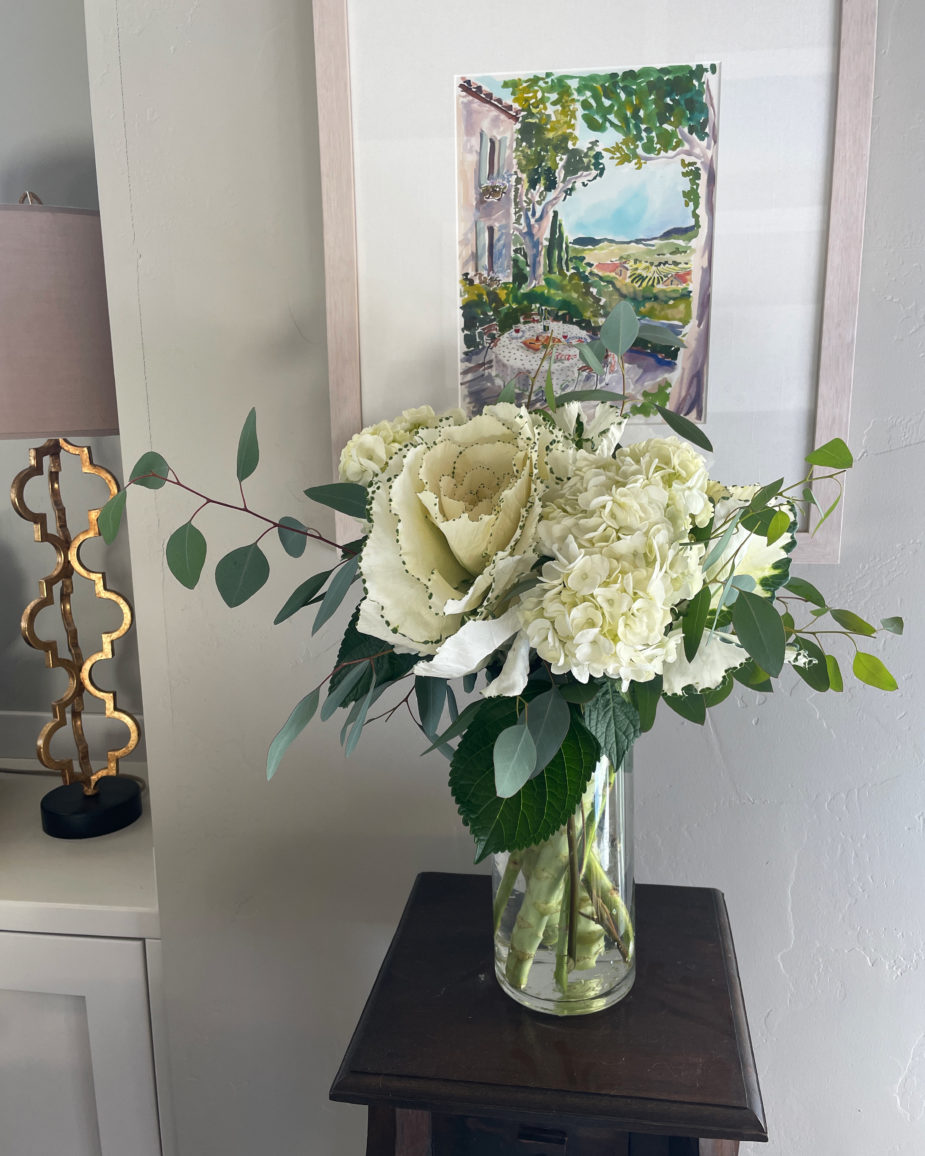
SIMILAR POSTS YOU MIGHT ENJOY
 5 Things to Do to Build Healthy Relationships, episode #287
~The Simple Sophisticate, episode #318~Subscribe to The Simple Sophisticate: iTunes | Stitcher | iHeartRadio | YouTube | Spotify | Amazon Music |
Sun, 21 November 2021
 The busy holiday travel season is upon us. After two years in which many people have not been able to gather with loved ones, the liklihood that even more people than usual will be hopping on the road, the plane or the train this time of year is to be expected. Even with unforeseen hiccups along the way, arriving at the doorstep of a loved one will often erase any stress caused and make for a story to chuckle about over a glass of mulled wine or while sipping brandy after a long anticipated delicious meal with hearty, heated, yet playful exchange. Having just shared one idea for handling well travel headaches (finding the hilarity in it all and sharing a moment with a loved one to savor), I'd like to share a few more to help assuage the stress and enable you to move past them quickly so you may enjoy your visit, stay, and the experience you have been eager to partake in after having planned, saved and waited. Each of the examples have been experienced first-hand. I feel fortunate to not have experienced others that are far worse, so can only speak to my own travels (thus far and fingers crossed for continued good fortune). With that said, let's take a look! 1.The accommodation's description was less than accurate in a disappointing way Just this past August, a vacation rental on the coast boasted their lovely accommodations (a place we had never stayed before); however, they neglected to share important information that would have steered me away as I was traveling with my two boys (lots of stairs and very little grassy areas for quick potty breaks). However, while only planning to stay one night, I did what I could to make it easier for my pups, and had I planned on staying more than one night, I would have found a different rental or changed my travel plans because enduring accommodations that make everyone uncomfortable is not something to spend money on. Waking early in the morning, be scooted down the coast for a beautiful early morning walk on a new-to-us beach. Had the accommodations been lovely, we may have lingered longer, but I looked for the "lemonade" in the situation and found a lovely outdoor excursion that I had not planned on. As well, I chose not to write a review as I find it unhelpful to leave negative feedback when my expectations may not be someone else's. I have in the past directly emailed the owner of rentals to provide feedback that may benefit future travelers, but preferring to only share positive reviews online while sharing specifics as to why I enjoyed my stay. This approach is a way to extend gratitude and also leaves me with peace of mind. Sometimes we travel with high expectations, and venting in the form of a negative review isn't as therapeutic as we may initially think it will be. The next time the accommodations you have arranged are not what you had hoped, don't be afraid to change your plans. The spontaneity may usher in an unexpected wonderfully memorable moment or experience. 2. You cannot find your vacation rental (or think you cannot) During the summer of 2018, I had finished a week of cooking with Patricia Wells and was now in my rental car (picked up in Avignon) to the Luberon area of Provence - the Golden Triangle as it is often called. Searching for a hamlet off one of the many less traveled roads that wind through vineyards, I had turned around and retraced the notes received from the owners multiple times. Having driven through Gourdes (gorgeous!) which I later learned was too far southwest, and then finally arriving at the home, I scratched my head: A very nondescript property with no similar vignettes as shown in the online posting and nobody to be seen. I had to be at the wrong house. I asked one of the neighbors who was out in their yard if they knew the owner (whose name I had from our correspondence). It turned out they were also a traveler, traveling with their family from Australia enjoying their yearly stay in the region. Unable to determine if indeed I was in the right place, I emailed the owners. It turned out I was at the correct location, and they were on their way to open the doors. Their home was hidden behind large barn doors that upon opening revealed a gorgeous Provence three-story refurbished house (view the tour here). While I waited to hear from them, I stayed put, stepped out of my car and began walking around the hamlet, capturing pictures of sunflowers, and the sublime Provençal blue sky. Turns out I could trust my directions and my sense of direction. Sometimes we become a bit more flustered and doubt our ability to read directions properly when we are in a new place, a new country and communicating with someone new. The best advice I have found is to yes, double-check and triple-check the directions by rereading them slowly. If you have someone else with you, have them read the directions as well. Follow the directions as best as you can and when you arrive, if nobody is about yet to let you in (should that be part of the accommodations), let yourself wander about and get to know the area. Chat with neighbors to ask for help or to ensure you are in the right spot. And absolutely reach out to the owner to alert them to your arrival.
 A Villa in the Golden Triangle of Provence: Villa Dæsch (tour the entire property here) 3. Lost luggage With more reliable tracking than ever before, most often if our luggage doesn't arrive when we do, it isn't lost. It simply hasn't arrived yet. The bags may have been put on a different plane leaving for the same city that hasn't landed at the airport. However, as your bags are not on the conveyer belt, be sure to check in with the information desk in the luggage area to let them check where your luggage actually is and where and approximately when you can pick it up. Upon arriving in France in 2018, one of my pieces of luggage was not on the same plane as I had been (one was and I saw and collected it per usual). I checked in with the luggage information desk, they scanned the bar code I had received when I checked my luggage, and they were able to tell me at which station to pick it up and when it should be available. They were right and within 30 minutes to an hour, I was reunited with my bag. 4. Miscommunication When traveling to a country where English is not the primary language spoken, making reservations can be difficult if not done online. When I chose a small boutique hotel for my accommodations in Paris a couple of years ago, the manager's English was about as strong as my French, actually his English was far better than my French but not by much. While I did successfully make my accommodations, the taxi pick-up at the airport didn't happen for some reason, and completing payment was delayed for three weeks (I began my trip in Paris at the same location I ended it three weeks later). However, all of this may sound avoidable or absurd to us Americans who expect everything to happen swiftly, but the manager of the hotel particulier was not worried in the least, especially about the latter snafu. "We'll finish payment when you return. Do not worry!" Often we bring our culture conditioning into situations - what causes us stress, our expectations while visiting - when what we need to do is take a breath, knowing we have what we need in order arrive, stay and enjoy, and then let go. Communicate as much as needed to confirm, say what you desire to know repeatedly, but then take a breath and enjoy your stay. What eventually helped me to relax was my knowing the credibility of the accommodation, so after a quick phone call with the manager after my first stay, I chose to relax and yep, indeed all was tended to and paid for when I returned. When we've done the necessary homework ahead of time, often the best thing to do is the reason we take vacations in the first place - relax.
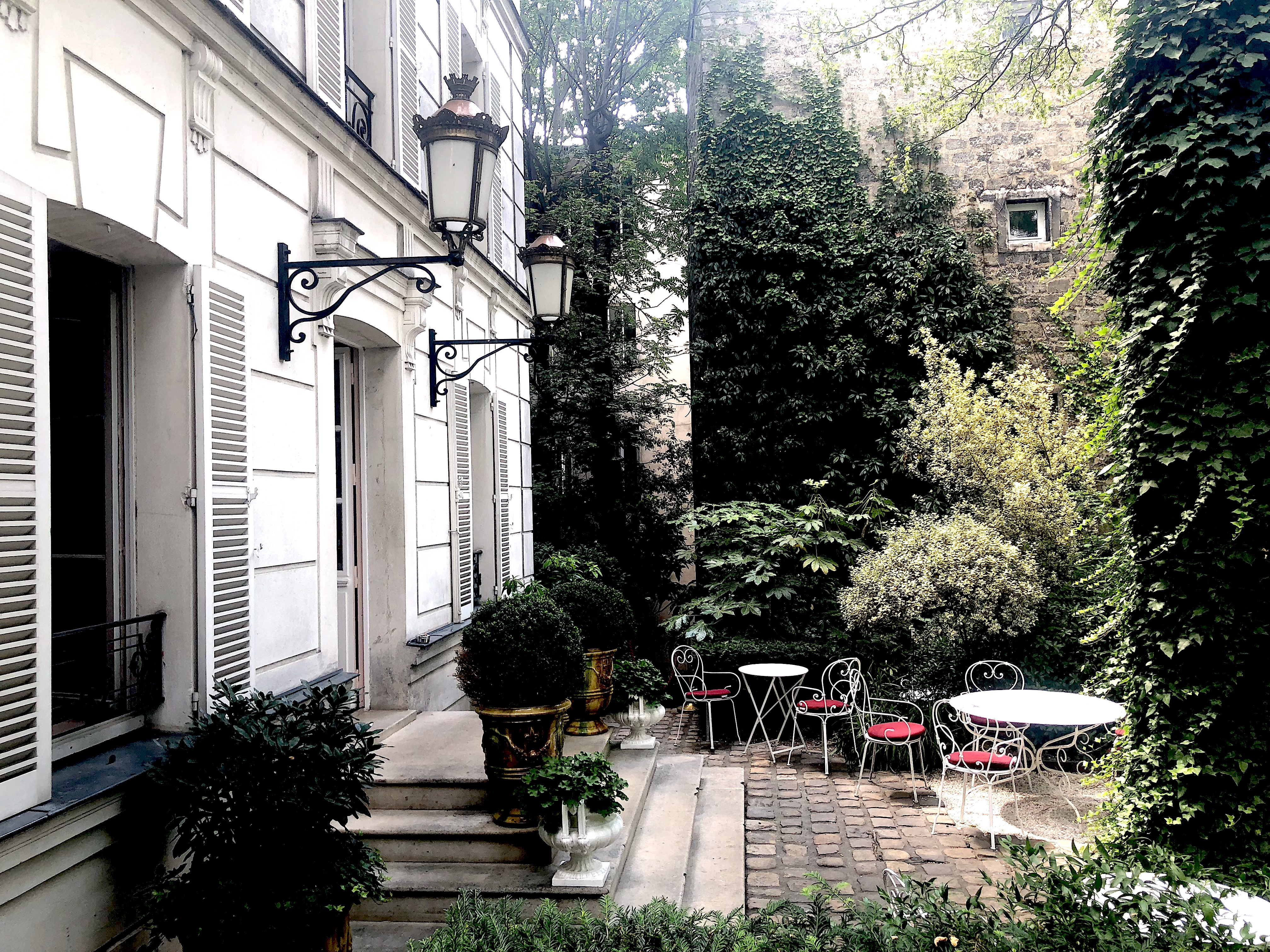 Hôtel Particulier Montmartre, take a tour here. 5. You don't get what you don't ask for I have quickly realized, especially in larger cities, if you don't confirm what floor, what type of view, etc. you want, you likely will not get the one you imagined. Case in point, for a one-night stay in London before my flight back home to the states in November 2017, I stayed at the Portobello Boutique Hotel in Notting Hill (see the street on which the hotel is located below in my IG post). A beautiful hotel and wonderfully located, my room was in the basement. The room itself lovely, but as someone who doesn't like basements as a general rule, I was surprised. Well, at least the price was nicer than a room on a higher floor, but still, it is always important to share your preferences. Even if they cannot accommodate them or only a few of them, at least you did your best to tailor your experience.
6. You forget to pack your necessary toiletries Last New Years the boys and I headed to the coast to ring in the new year. I packed all of my necessities neatly in their containers, totes and bags, and set out for the four hour drive. Upon arrival at my accommodations, I unpacked my entire suitcase and situated everything as to make the home-away-from-home just that, as much of a home as possible. Well, I couldn't find my toiletries bag, and I remembered vividly packing it . . . ahhh . . . I packed it, but I then left it on my bedroom chair where it was neatly sitting when I arrived back home after our two days and nights away. What to do? Not wanting to incur too much expense but still needing necessary items such as moisturizer for my skin, floss for my teeth and contact solution, I made a quick trip to the local grocery store. I didn't purchase anything terribly expensive, but I did purchase items I would use again should this mistake occur. Those items now are left in my main piece of luggage and NEVER leave it as my toiletries bag that I usually prefer to bring requires I add a handful of items I use at home on a daily basis (I do have travel sizes of most items that never leave my luggage, but again, the toiletry bag was removed to stock it and never made it back to the main luggage piece). I will acknowledge with great thanksgiving, if these are the worst of travels gone awry, all is going quite well. The truth is, very often most of our travel plans go very well, even unexpectedly amazing. To remember to celebrate when such is the case is a practice in gratitude and holding ourselves in the present to witness and savor fully. Travel of any kind requires us to be malleable, to stretch, to bend, and not to break and throw in the towel when all does not go precisely as we had hoped. Perhaps yet another lesson presents itself: set aside expectations and instead while plans may be in place, bring your preparation without rigid and narrow expectations of what must happen. Let it all unfold as it will and engage with your whole, true self so that you can drink up the beautiful surprises, connections and memories created along the way.
Petit Plaisir —Bingley Brass Candlesticks (with and without handle), Rowen & Wren Through Wednesday November 24th, use promo code GIFTSAPLENTY to save 12% off your order.
  View all TSLL Petit Plaisirs here. ~The Simple Sophisticate, episode #317~Subscribe to The Simple Sophisticate: iTunes | Stitcher | iHeartRadio | YouTube | Spotify | Amazon Music |
Sun, 14 November 2021
"Vitality involves intersection with and participation in the world around you. It is not predicated on taking a year off to find yourself. It doesn't require making a drastic change. You don't need to lose yourself in self-reflection. You don't need to overhaul your existence, or reinvent your life, or wait until the chaos [subsides]." —Dr. Samantha Boardman, author of Everyday Vitality What is Vitality?Vitality elevates the quality of each day, and it is something you cultivate with your actions, engagements and approach to living. "Health of spirit" is an oft definition of vitality, a "sense of feeling psychologically and physically up to the task". Most directly, "Vitality—the positive feeling of aliveness and energy that lies at the core of well-being."
It is important to note what writer and psychologist Andrew Solomon shares. "The opposite of depression is not happiness, but vitality." Picking up Dr. Samantha Boardman's book Everyday Vitality: Turning Stress into Strength initially gave me pause. First of all, based on previous readings and research and my own experience, we shouldn't be managing stress, we should be assessing and eliminating it at the source when and where possible. So it was her subtitle that almost had me backing away from reading the book. However, as soon as I read the introduction it was clear, much of the stress that is in our lives is self-made and thus can be reduced and/or eliminated. Her book is full of specific approaches, backed by research and multiple studies to demonstrate the significant shift and beneficial shift our lives make when we approach our everydays - how we interact, that indeed we do interact with the outside world and how we hold ourselves as we navigate through our days - thoughtfully and intentionally. In other words, actively engaging rather than passively observing. Today I have ten approaches, tips and tools for improving the vitality in your everydays. There are far more than ten to be found in her book, so hopefully today's episode will be a nice taste of what you may want to explore more if you pick up her book. Visit the show notes - https://thesimplyluxuriouslife.com/podcast316 |
Sun, 31 October 2021
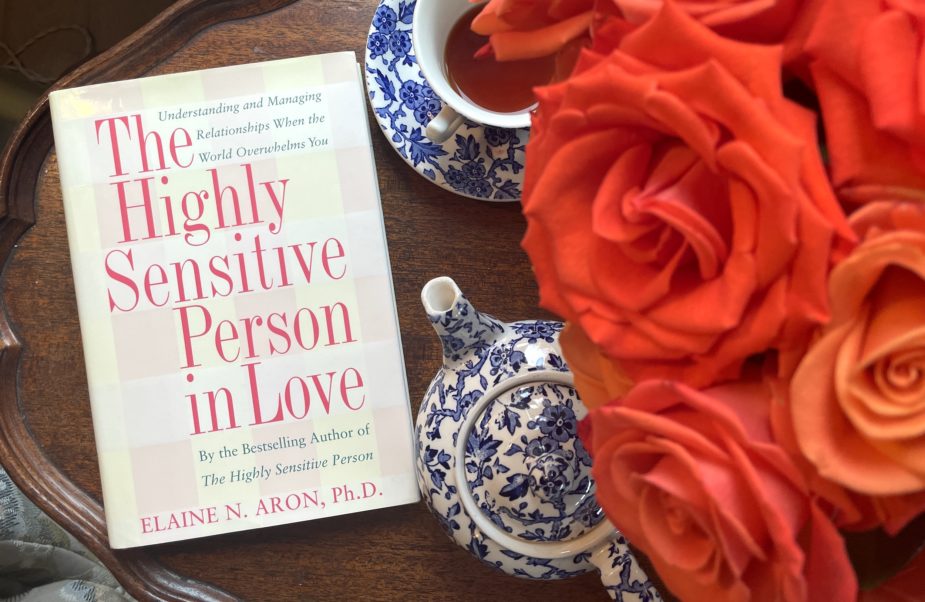 "We fall in love harder and fear it more because we are drawn to the depth and complexity of the emotions we are going to unleash, but we also know that the consequences of such deep love are unforeseeable, a situation we never relish."—Elaine Aron, author of The Highly Sensitive Person in Love: Understanding and Managing Relationships When the World Overwhelms You Being in a loving relationship, of the romantic persuasion, can seem evanescent or near impossible for HSPs (a Highly Sensitive Person). In episode #44 of this podcast (one of the most downloaded episodes of the show), I detail the many gifts of being an HSP (of which I self-identify). Sharing 26 awesome benefits of identifying as HSP after reading Dr. Elaine Aron's first book The Highly Sensitive Person: How to Thrive When the World Overwhelms You ushered in a breath of not only fresh air, but relief as I felt that finally I understood what for my entire life existed, but I could not understand or explain, let alone receive understanding from others who just didn't 'get me'. Enter into the world of trying to be one part of a healthy, loving, respectful, equally fulfilling romantic relationship, and my confusion did not dissipate however because even though I tried my best to communicate what I now better understood about myself, I was missing a better understanding of how to first meet people more likely to mesh well with me. I was looking in the wrong places, misreading the indicators of my own feelings I had relied on my default in my pre-HSP-aware years. Introduced to Elaine Aron's second book The Highly Sensitive Person in Love, I found a valuable resource that translated the once foreign language of my own self and feelings and also gave me tools to successfully and more confidently move forward. In today's episode I am going to share 10 aha moments I found while reading the book, but there are FAR more than 10. Consider this a taste of what you will find in the book which is now a highly annotated book in my library and one I am thankful to be able to return to as my life journey unfolds. 1.Your partner does not need to be HSP as well (but it helps if they fall somewhere in the middle of the spectrum of sensitivity) With 15-20 percent of humans "born with a nervous system genetically designed to be more sensitive to subtleties, more prone to deep reflection on inner experience and therefore inevitably more easily overwhelmed by outer events", it can at first seem (if you identify as HSP), that you are alone, different, odd and something must be wrong with you. First, let me state emphatically - nothing is wrong with you. As shared above in the introduction, you have awesome gifts and now that you know you are HSP you can begin tapping into them. It is also important to know there is a spectrum of HSP, and Aron provides a HSP Self-Test to help you find where you and your partner might fall on it as a way to provide further insight into ourselves and our partner. As well, it is important to know, one gender does not have a tendency to be more likely HSP or not HSP. "Just as many men as women are born highly sensitive, even though women are stereotyped as being sensitive to subtitles and men being tough and not noticing much." Not only is the stereotyping wrong and limiting, it is hurtful, yes to women, but especially to men as they are essentially bullied into hiding their true gifts if they are HSP. Aron begins her book by talking about her own marriage with her husband who is not HSP; however, he has many sensitivities and awareness and appreciation for the world around him that enabled them to have many shared experiences which they both enjoyed. As you will find in the following points, a desire to understand one another and for each partner to be able to communicate and know who they are is key as well as desiring to be part of the partnership in a constructive way without losing one's core needs to thrive. 2. One of the biggest overlooked areas in relationship 'self-help' is the dismissal of one's degree of sensitivity and inherited temperament Aron does temper the truth that for far too long relationship problems dismissed the awareness of each individual's degree of sensitivity and inherited temperament by saying that "relationship problems are still social, not genetic". She goes on to say, "The heritability of divorce only means that something about people's genetics is influencing divorce—I believe it's not our inherited temperaments that are causing trouble, but that we deal with some temperaments poorly." Something we've distinguished in the past, but bears repeating - temperament is something you are born with, your personality is nurtured as you are socially conditioned - what is applauded, what is teased, etc.. And while we may not feel we can change our temperament, we first need to be aware of what it actually is, and often our personality is such a strong façade we have presented for so long, it is hard to know what our true temperament is. With all of that said, Aron underscores that "50 percent of your risk of divorcing has something to do with your genes. This makes inherited temperament a very important and neglected fact in relationship harmony." 3. Understanding your optimal level of arousal is crucial "All organisms like an optimal level of arousal, and all day we humans make adjustments to stay there—we put on the radio to increase arousal, take a nap to decrease it, call a friend to increase it, turn off the TV to decrease it, and so forth. We do this over longer intervals too—change jobs to increase it, avoid divorce to decrease it, travel overseas to increase it, move to the country to decrease it." Whether or not we identify as HSP, as Aron states in the quote above, each of us throughout our days and our lives are trying to maintain the optimal arousal level. What must be understood about HSPs is that "we get overaroused a little sooner than others" and that is perfectly fine, even if others may try to make you feel as though something is wrong and you should push through and just deal with it - discomfort or not. Don't buy into their ignorance or dismissal because it's more than discomfort, it is disrespecting your true nature and if you chronically dismiss what you need, your relationships suffer because you cannot be fully yourself or at peace. 4. Understand the culture you live in and what it values, and then don't be bullied to change "HSPs growing up in cultures in which they are not respected have to be affected by this lack of respect." Looking at the same study which took place in China and Canada "comparing elementary school children [it was] found that sensitive, quiet children in China were among the most respected by their peers, and in Canada they were among the least respected." Aron shares insightful examples of how even science and its findings are influenced by what the culture values (see p. 32 in her book). I share this insight of Aron's to help HSPs become aware of the media, culture, voices and leaders that surround them and to listen and examine what you hear, see and witness being praised with a critical mind. If the predominant behavior in men that is applauded is loud, dismissive, unfeeling, more men will gravitate toward such behavior (unconsciously or consciously, likely the former) because of social acceptance. The same for women, if the behavior is to be the harried mother who just deals with it and is applauded for being exhausted, but still she is put up on a pedestal for burning the candle at both ends, instead of fighting the culture (they are exhausted after all), they go along because at least they are being praised. Those are two general, and in some ways extreme examples, but all of it is to say, if we become aware first of our own true temperament and then of the culture that surrounds us, we can then live in alignment to our true selves and if the culture we live in doesn't applaud our natural tendencies to find peace, we can find our own peace and those who no doubt also exist in our culture and simply wish to find strength in others who understand. 5. Establishing good boundaries is essential First, reflect upon your own life at the moment. If you feel overworked, are constantly saying yes, but as Aron describes "resent it later", you are likely not setting good boundaries. You may even occasionally put down boundaries, but they are severe and shut out everything and everyone. Again, these are not good boundaries, even if they are boundaries. Another important truth to know about the harm of not establishing good boundaries is when we haven't put them in place we allow others to tell us hurtful false truths about ourselves - "you are weak, nonassertive, insensitive, rigid, etc.". ~Explore this post and episode on boundaries and relationships: episode #126: A Powerful Couple: Boundaries & Vulnerability 6. You can "fall in love" and not even be in a relationship with the person I have put 'fall in love' in quotes because, "research shows that the longer you contemplate an object in an emotional way, the more intense the emotions toward that object will become". I will just admit, in my early twenties I held on to a hope for someone that while maybe it kept me out of some not-great relationships, it also kept me out of living and being present with others. All of this is to say, we need to simply spend time with the person, take our time getting to know them but also being ourselves around them and not over-processing what is revealed, but rather let it unfold as it will. Why? Because when we expend more emotion and 'more processing' we fall in love more intensely, and sometimes we fall too quickly. 7. Know where to meet a fellow HSP and How to Meet Non-HSPs Well As an HSP, you likely enjoy your own company and find peace in hours of solitary activities. Knowing this also tells you that you will need to go out alone in order to have conversations with other HSPs. Aron suggests going where fellow HSPs might go (if it's somewhere you'd enjoy going as well). From seminars, lectures, art exhibits, heading out into nature, etc.. As I mentioned in #1, being in a healthy, loving relationship as an HSP doesn't mean you have to be with a fellow HSP, but you do need to know how to hold yourself in a respectful way so both in the relationship are understood. If you are amongst a group of non-HSPs, Aron suggests moving out of the group in some way, and find a way to talk in a more one-on-one manner. Listen and ask questions but remember to bring your emphatic dialogue skills which is what we will talk about in #8. 8. Practice Empathetic Listening and Emphatic Dialogue Studies have shown that when one person in a relationship holds the majority of the power and influence - what they want to do, what they believe is the default - neither partner is happy long term. And while it may seem emotionally easier to just go along with what your partner wants to keep the relationship steady, calm and void of upheaval or disagreement, it is actually the best thing you can do to speak "plainly, honestly, without blaming . . . but without flinching, your authentic truth". Thus the definition of Emphatic Dialogue. Empathetic Listening involves more than just paying attention to the words that are being spoken. "The listener attends to the feelings as well as the content and does not interrupt, interpret, advise or even offer his or her own experience or ask questions." I am putting this definition in bold because so often, we heard the advice - which comes from a good place - to simply listen. But we aren't often told or shown how to do so well. I find Aron's definition to be incredibly clear and something I still practice as I make mistakes, but awareness of how to listen well is the key, and with practice we become more proficient and thus better partners in a healthy relationship.
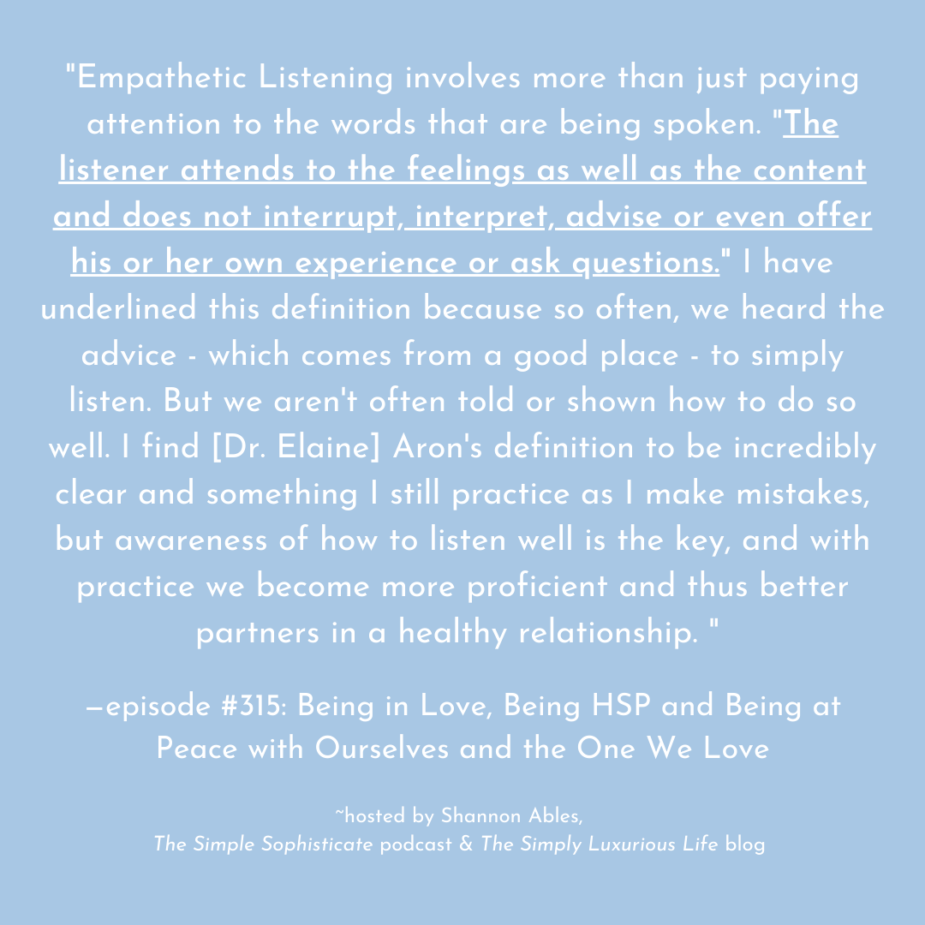 9. Refrain from jumping to the wrong conclusions (i.e don't make blanket assumptions) "Both self-love and other-love increases when we don't make too many personality attributions about ourselves and others, when we recognize that people cannot be completely explained with a label such as shy, rude or even highly sensitive, and that situations are complex, rich, often unpredictable and infinitely interesting." In #4 we talked about how a culture will favor one temperament over another. If you live in a culture that values the temperament you do not align with and you have not had a support system to strengthen your confidence in your awesomeness that you are, you may have a low self-esteem (which can be strengthened, but awareness as to why is helpful to reverse the lack). Because of our low self-esteem or negative past experiences in relationships, when a person we are interested in, perhaps have gone on a date or two, hasn't called back, we can jump to negative assumptions - about them and about ourselves. Don't go there. Instead, do the following: Self-reflect and be honest with yourself about your own reactions. Aron suggests that maybe you actually are not as interested as you think you should be, but you are trying to make it be something it is not. In other words, take a breath, practice patience and go on about your life. If you wanted to call them, do so. Be your true self, express your interest, but keep your healthy boundaries. This will take practice, there will be rejection, by them but also by you, but there will also be peace because you have honored who you are, communicated your feelings and strengthened your muscle of mastering your overarousal. 10. How to prevent overarousal During times of conflict, overarousal can often occur if we are not aware of the signs we are nearing such a state. Again, self-awareness is key. It is also important to note that when we reach a state of overarousal, especially in a situation of conflict, any contribution we attempt or any new information shared is not being processed, which means all engagement is pretty much wasted energy. All of this is to say, knowing how to prevent being overaroused is important. First, if you have spoken out of a state of overarousal - name called, etc. - Aron states, with the support of research, "83 percent of marriages last if the partners show [the] repair skill" of "saying right away 'I shouldn't have said that—I'm sorry'." Apologizing is not a weakness. In fact, it can strengthen relationships and build trust if the same mistake is not made again and again. Aron lists more than a few specific tools to avoid overarousal, and they begin with self-awareness. Are you stressed already? Are you tired? Once you know yourself, how you are feeling in a particular moment due to other circumstances - work, previous conversations, the news, etc. - you can best decide if you should enter into a conversation that you know will increase your arousal and whether you have the strength at that moment to remain in a helpful state of conversation and engagement. In a healthy relationship, compromise does occur, BUT it is important to hold yourself in your awareness here most especially. "Look for every place where you can compromise or give in without feeling you have violated your own needs". And one of the most important approaches, and without it can actually cause more stress on an HSP, is to "agree about when you will resume your discussion and don't put it off too long". 11. Take a breath and take time "HSPs in particular need time to decide about others—you need time, and if the other is an HSP, that person does too. You need time together and you need time between to think it over . . . if you persist, love may grow, or it may die. But time is on your side, in that the more you know each other, the more it will be that whatever happens will be for the best." The willingness to let the relationship evolve naturally, at a pace both are comfortable with can be hard in that sometimes we don't realize we are rushing due to cultural pressure or pulling back out of unexamined fear from past hurts or confusion about our feelings. Again, this is where self-awareness and a confidence in exploring our feelings and then expressing them calmly, yet with strength as to clarify healthy boundaries, moves the relationship forward if both parties continue to be interested. We learn about each other as we spend time together in shared experiences and when we force desired experiences, we sometimes lose the potential of what could be. This is not to say, if we don't force and if we are patient that the relationship will work out as we had hoped. We cannot know how it will turn out, but being ourselves, taking the relationship at the pace it goes while partaking (not sitting back and letting the other person call the shots or not call them and thus letting it dwindle away) is the only way to know what the next right step is. 12. The truth of loving is especially hard for HSPs, love anyway "HSPs especially tend not to want anything to change or die, so this message is important: In long-term relationships you must be ready to endure the nice-friendship aspect of your relationships being betrayed, perhaps through a terrible fight, in order for the passion of the Self, through essential spirit, to be reborn." I wanted to share this last, additional point. Part of the reason I know I have avoid relationships in the past is because it hurts so incredibly much when that person is no longer in my life. Whether in a romantic relationships or friendships and family, our beloved pets. However, part of the reason it hurts is because we loved deeply, and as HSPs, we really do love incredibly deeply. The tools I did not have however in those past relationships are shared in Elaine Aron's book, and I am gradually and consciously trying to use them to build better relationships with more awareness which ultimately deepens my appreciation, holds me in the present moment and reduces the the chance of any regret when the end of the relationship occurs whether by separation or death. I hope today's episode has shared insights you too can use in your own life to strengthen the love you experience and bring ease as you better come to understand and celebrate your self and the gifts of being HSP.
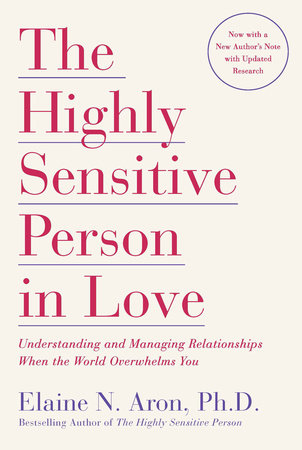 The Highly Sensitive Person in Love by Dr. Elaine N. Aron published in 2001
SIMILAR POSTS/EPISODES YOU MIGHT ENJOY:
 26 Gifts of Being a Highly Sensitive Person (HSP), episode #44
 A Powerful Couple: Boundaries & Vulnerability, episode #126
Petit Plaisir —The Gardener (2018), documentary ~learn more about why I chose the film here and watch the trailer.
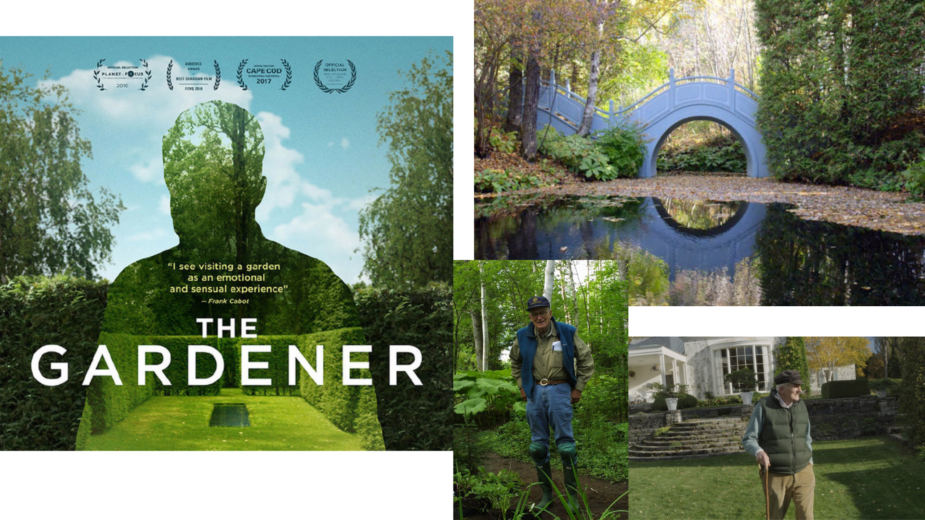 View all TSLL Petit Plaisirs here. ~The Simple Sophisticate, episode #315~Subscribe to The Simple Sophisticate: iTunes | Stitcher | iHeartRadio | YouTube | Spotify | Amazon Music |
Sun, 17 October 2021
"The missing element of oxygen, when brought home, gives us time in which we can record the tiny, visceral, magnificent details of living. The shower after a sweaty workout, a belly laugh with a friend, the warmth of fine whiskey, rain on the roof, or a tight and lasting hug . . . Busy can make you miss it all. Busy keeps you paddling along the surface of the water instead of diving down to see the parrot fish and the fan coral." —Juliet Funt, author of A Minute to Think: Reclaim creativity, conquer busyness and do your best work A thinking life is a happy life. But if you don't give yourself regular time to think well, living well is near impossible. Inspired by my own aha moments most recently as work shifted temporarily to being at home during the pandemic restrictions for in-person work environments, but also throughout my life when I would notice my productivity rise and fall based on the rigidity of my schedule, I witnessed which approach blatantly not only produced the best productivity, but the most joy as well. They were not mutually exclusive.
In fact, each time I have had the opportunity to travel to France, I witness the daily routines of the French, the long lunches, the deliciously untempered dinners that stretch into nearly early morning, and I remind myself to value quality engagement over the quantity of doing more and fitting more into a day's work or even play schedule. A new book, A Minute to Think provides encouraging evidence predominantly from inside the corporate world of the benefit of shifting away from more and instead investing in less. Today I would like to share with you seven ideas to ponder when it comes to how to live a life, that includes work, but is not driven by work, but rather living a fulfilling life, that brings you deeper contentment, joy and satisfaction. ~The Simple Sophisticate, episode #314
|
Sun, 3 October 2021
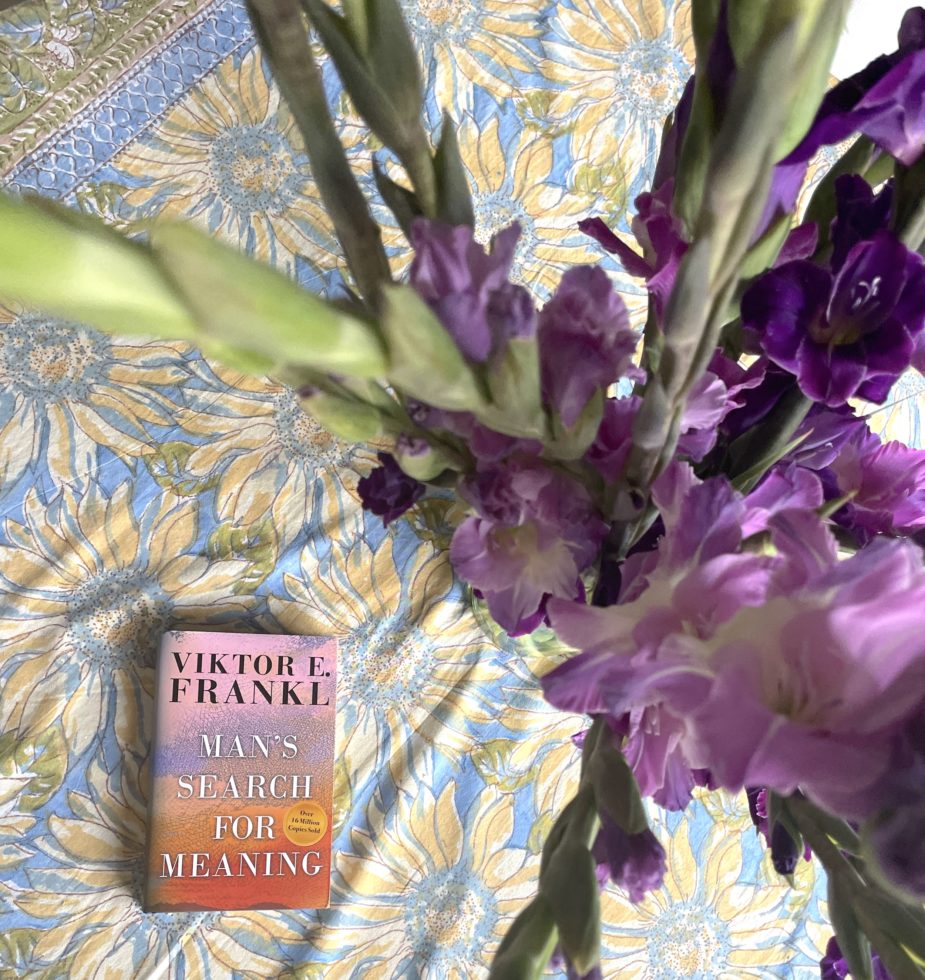 "Man's search for meaning is the primary motivation in his life and not a 'secondary rationalization' of instinctual drives. This meaning is unique and specific in that it must and can be fulfilled by him alone; only then does it achieve a significance which will satisfy his own will to meaning." —Viktor E. Frankl First published in Germany in 1946, Viktor Emil Frankl's seminal work Man's Search for Meaning and the desire to write his first book (to be titled The Doctor and the Soul: An Introduction to Logotherapy) that largely gave him the will to live while imprisoned at Auschwitz during WWII. Marrying psychology and philosophy, a primary focus of his work throughout his life, Frankl shares "Certainly, my deep desire to write this manuscript anew helped me to survive the rigors of the camps I was in." Now with more than 16 million copies sold worldwide, Man's Search for Meaning continues to be a book to read, understand and reread. While not having the opportunity to read it until now, I am grateful that at least I finally did read it, and I would like to share with you today nine lessons learned about the importance of finding meaning in our lives. Much of the premise of a simply luxurious life is centering our lives, our selves, or perhaps a better word is grounding ourselves in priorities that marry what we can uniquely give, but also what the world desperately needs to progress and cultivate a more civil, loving and peaceful place for not only ourselves, but future generations. At first, such a task given to each of us may sound ginormous and far too weighty a task, but when we drill down, ultimately, love, sincere love, being able to share our true selves and be accepted begins to create a harmony of contentment that cannot help but create a symphonic awareness grounded in a desire to live more peacefully and lovingly with each other. Too far reaching some may contest, but if my own life journey, which indeed is filled with good fortune and privilege beyond my choice or control, demonstrates, when we have not found our meaning, when we are discontent, building healthy relationships is incredibly difficult, and often fraught as while trying to make sense of our lack of purpose, we displace our pain, so I wholeheartedly find worthwhile value in exploring what Viktor Frankl teaches, and hope it will offer tools for you as well to tap into what gives you meaning and share it with not only the world but yourself so that your everydays may be full of contentment. Let's take a look at the nine lessons. 1.Choose to pursue the will to meaning Frankl defines the will to meaning as "the striving to find a concrete meaning in personal existence". For when we find our individual will to meaning, the healing begins. Existential frustration subsides, neuroses find solutions, anxieties wane and contentment soars.
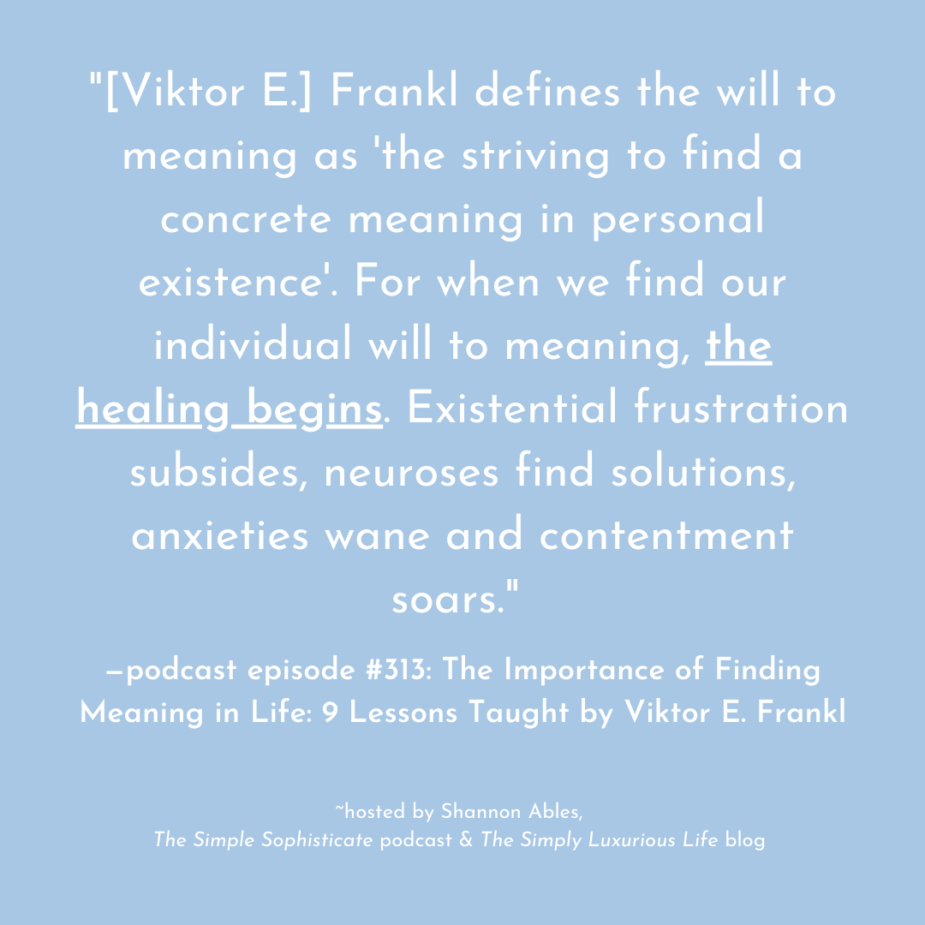 2. Find your meaning, find your way forward Frankl shares an anecdote of an American diplomat who came to his (Frankl's) in Vienna discontent with his current career. Following five unfruitful years with his former psychological analyst who claimed the discontent came from the need to reconcile himself with his father as the analyst made a parallel with the father and the U.S. being a superior figure, upon visiting Frankl, and following only a few visits, the patient realized with clarity that his "will to meaning was frustrated by his vocation, and he actually longed to be engaged in some other kind of work. As there was no reason for not giving up his profession and embarking on a different one, he did so, with most gratifying results." 3. Nothing is wrong with you if you feel existential distress; in fact, you are heading in the right direction Frankl points out, moreso for practicing therapists, to not equate existential distress with mental disease. Asserting, "it is [the task of the therapist], rather, to pilot the patient through [their] existential crises of growth and development." So often in my own life journey, the distress of frustration by my career, my relationships (or lack thereof), and what I was meant to do with my finite days on earth, felt as though it was a burden, not good fortune. Something was 'wrong' with me for not having figured out my life journey immediately, quickly and feeling at ease. Thankfully, the opposite is true, all was well. I was listening to myself, I was acknowledging something didn't 'fit', what I was giving, what I was spending my time doing either wasn't enough or it wasn't aligned with my talents and what the world potentially needed. In this post - 9 Ways to Think Like a Monk, as taught by Jay Shetty - Shetty's idea of Dharma is shared. Passion + Expertise + Usefulness = Dharma In many ways, finding our Dharma is to find our will to meaning. 4. The unexpected gift of tension "What man actually needs is not a tensionless state but rather the striving and struggling for a worthwhile goal, a freely chosen task. What he needs is not the discharge of tension at any cost but the call of a potential meaning waiting to be fulfilled by him." I chose to bold the phrase 'freely chosen' because I find it to be an essential element to finding true contentment. Even if your life is charmed, yet you still feel discontent and frustration, yet society applauds, your family applauds, your friends cheer for what you are doing with your life, most likely, you have unconsciously not chosen for yourself the life you are living, but rather have been steered by approval, expectation and mores to take the steps and make the choices you have without truly acknowledging what you long for. Which leads me to the next item on the list, but first . . . Welcoming tension in your life must be thoughtfully done. After all, unnecessary stress is harmful to our health. No, what Frankl means by stating tension is healthy has everything to do with pursuing what gives you meaning. If you derive meaning from advocating for a cause, then the path forward will undoubtedly be fraught as you are striving for progress, but you strive forward anyway because it is your will to meaning. If you derive meaning from raising a family, nurturing your children as to give them their own wings with which to fly, the journey together will be a mingle of emotions, but you strive forward because it is your will to meaning. If you derive meaning from contributing through your chosen career path to improve the lives of others, you navigate through the frustrations, setbacks and hurdles because it is your will to meaning and you know why you are pursuing it. When the path we are on does not fulfill our will to meaning, similar to the anecdote of the American diplomat mentioned above, then the tension becomes unhealthy. Then we must be frank with ourselves and find the courage to change course and bravely do so, not only for our own well being, but for those we love and the world at large. Why? Because the world needs what you uniquely have to give. Figure out what that is and then begin giving what you discover. Your tension will be reduced to a healthy amount and your contentment will soar. 5. Discover what you long for and find your contentment The term Logotherapy as defined by Viktor E. Frankl derives its meaning from the Greek root Logos which is defined as "meaning". Logotherapy "strives to find a meaning in one's life as the primary motivational force of man". Logotherapy opens itself up while including 'instinctual facts within the individual's unconscious [it] . . . also cares for existential realities, such as the potential meaning of his existence to be fulfilled as well as his will to meaning." In other words, Logotherapy assists the patient to become aware of "what he actually longs for in the depth of his being". Understanding the language of your true self can sometimes be difficult and take time especially if we have suppressed it for some time; however, we are each capable of learning our language when we choose to be a student of ourselves. As I share in my About page (I recently updated it to reflect more accurately and specifically what TSLL is all about, but the shared portion below remains the same as it did in 2009), while I valued and gave my all to teaching, in 2009 I finally acknowledged that something wasn't entirely being satiated by solely working in the classroom." (see the excerpt below)
When we find meaning, even if nobody else understands why such a path speaks to us and brings us to life, we have found the motivation of infinite energy, creativity, tenacity and strength. 6. Find your meaning, eradicate boredom Frankl coins the term 'Sunday neurosis" as "that kind of depression which afflicts people who become aware of the lack of content in their lives when the rush of the busy week is over and the void within themselves becomes manifest." He goes on while speaking about the existential vacuum to share that without the will of meaning, and with the improved automatization of our 21st century, "many will not know what to do with all of their newly acquired free time". Which is to say boredom, anxiety, distress and lack of direction cause more solvable problems that he argues can be largely solved when we find our will to meaning. This is not to say you have to be busy every moment, pack your schedule with appointments; in fact, I would argue, it is the opposite. Or perhaps, more accurately, it is a knowing what supports and nourishes your will to meaning and thereby finding comfort with your down-time that is a part of your self-care and confidently engaging in your productive time when on task. 7. Your next best step toward meaning is what is best for you "The meaning of life differs from [person] to [person], from day to day and from hour to hour. What matters, therefore, is not the meaning of life in general but rather the specific meaning of a person's life at a given moment." I found it helpful to note that Frankl directly advises not to search for an abstract meaning of life, but rather a concrete 'assignment which demands fulfillment'. In other words, don't commodify yourself, but rather what is it you bring that is helpful and that you find fulfillment in giving? "Thus, everyone's task is as unique as is his specific opportunity to implement it." 8. Finding strength during times of suffering "When we are no longer able to change a situation, we are challenged to change ourselves." Just as Frankl's own life exemplifies harnessing his will to meaning to survive the unthinkable tragedies and struggles during WWII, he writes, "In some way, suffering ceases to be suffering at the moment it finds a meaning, such as the meaning of a sacrifice." However, and this is crucially important to absorb, he continues on in the same section of the book to point out "But let me make it perfectly clear that in no way is suffering necessary to find meaning. I only insist that meaning is possible even in spite of suffering—provided, certainly, that the suffering is unavoidable." 9. Hold yourself in the present fully for all the days of your life Frankl writes that we must refrain from being pessimistic and instead be activistic when it comes to our human existence. That is to say, "The pessimist resembles a man who observes with fear and sadness that his wall calendar, from which he daily tears a sheet, grows thinner with each passing day. On the other hand, the person who attacks the problems of life actively is like a man who removes each successive leaf from his calendar and files it neatly and carefully away with its predecessors, after first having jotted down a few diary notes on the back. He can reflect with pride and joy on all the richness set down in these notes, on all the life he has already lived to the fullest." He goes on to suggest there is no need to envy the young because we have lived fully each of our days, holding ourselves in the present, motivated by our will to meaning, and "instead of possibilities . . . have realities [from our past experiences] . . . not only the reality of work done and of love loved, but of sufferings bravely suffered." Just as happiness cannot be experienced in every moment, suffering cannot be wholly avoided when we find our will to meaning and let it guide us forward. However, by holding ourselves in the present moment, while we cannot avoid experiencing the loss of loved ones, we can love fully, so that when we reflect, we are filled with joy and reminded of the riches of our lives, riches we, by bravely living well, engaging with our humanity, courageously stepping into what we discover is our will of meaning, helped to bring forth into our lives. Upon learning about Viktor E. Frankl's approach to therapy and perspective on the meaning of humans, I found an alignment that has unconsciously spoke to me to honor for decades. Although never making sense, and not having the opportunity, nor pursuing more intentionally philosophy courses in college, the ideas danced about in my mind, and while I, at the time, wanted them to leave me alone because they were so perplexing, they thankfully waited for me to make sense of them, to trust them. The world swirling around us via media, messaging, our community can be deafening and hold us off course if we let it. But when we understand that the feeling of frustration is actually a sign that we are hearing our inner voice, we can find peace. Because in that moment of aha, we can take a breath, and continue to pursue the questions that keep bouncing around in our mind, because, if my own journey is any indication it is a path that will lead you to everyday contentment. I do hope you enjoy this week's episode of the podcast. Thank you for stopping by and tuning in.
 Man's Search for Meaning by Viktor E. Frankl
SIMILAR POSTS/EPISODES YOU MIGHT ENJOY:
Petit Plaisirs
 —Ted Lasso, Apple TV+ (click here to learn more about the recommendation, watch the trailers of both seasons and the original ad which began the idea for the show)
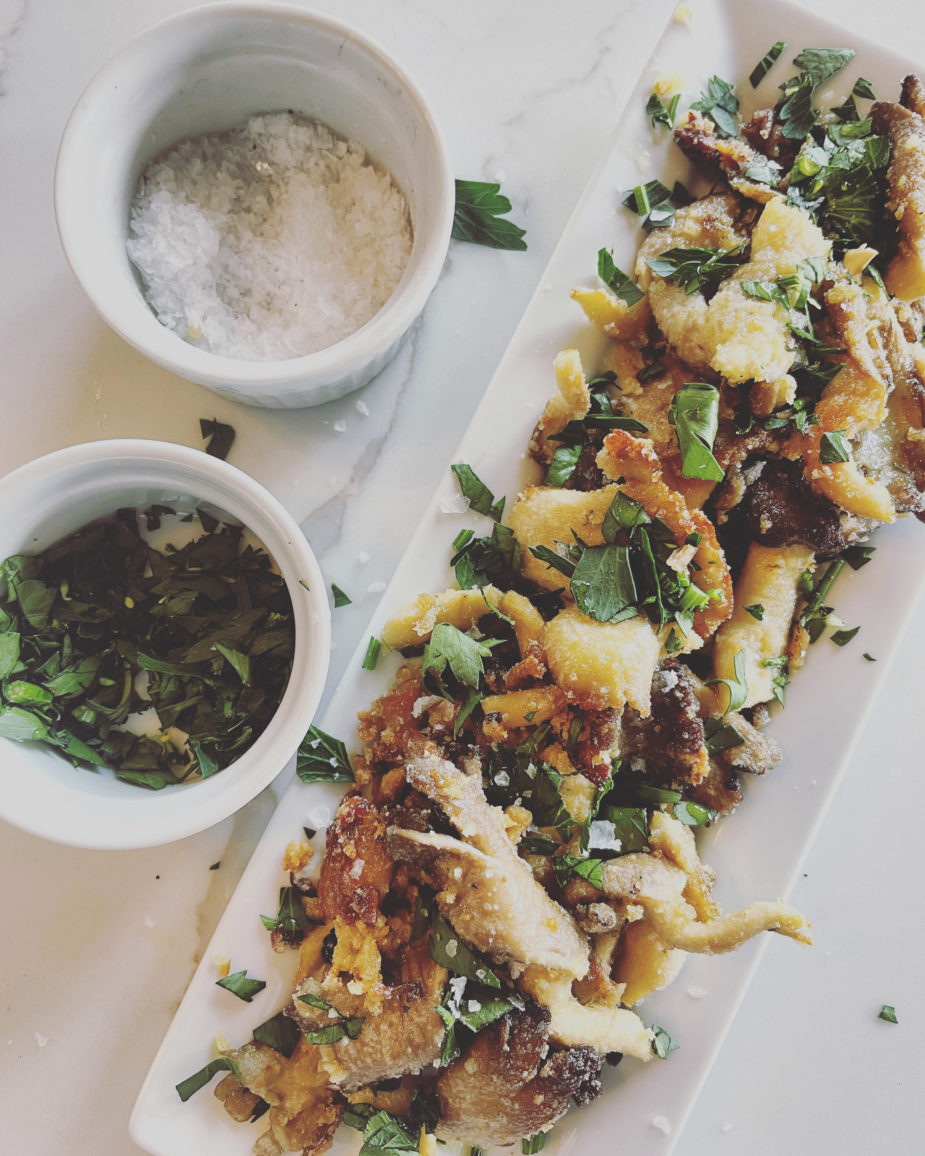 —Sautéed Oyster Mushroom Appetizer (view the recipe here) View more Petit Plaisirs here. ~The Simple Sophisticate, episode #313~Subscribe to The Simple Sophisticate: iTunes | Stitcher | iHeartRadio | YouTube | Spotify | Amazon Music |
Sun, 19 September 2021
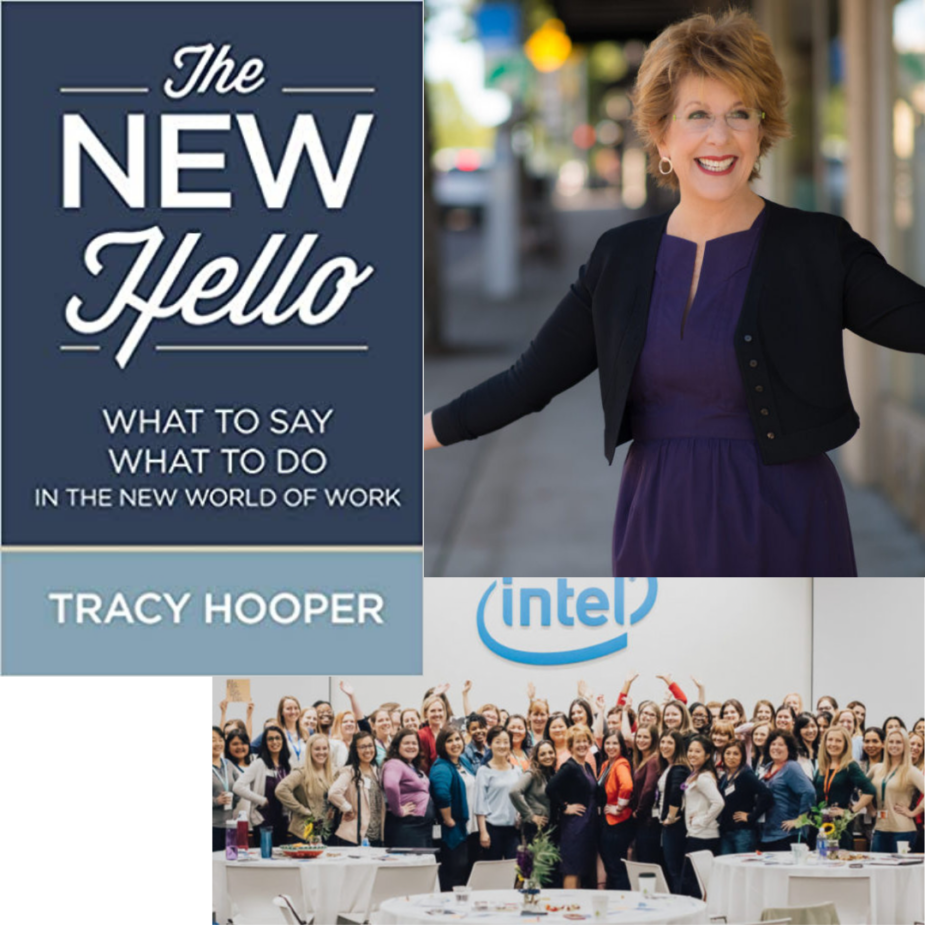 The workplace has shifted in a short amount of time, largely due to the pandemic, but also prompted by many other social and environmental awakenings. Communication, civil communication, remains at the epicenter of a civil society; however, currently, a significant learning curve has taken place, and we need to keep up in order to strengthen connections, build trust and foster workspaces of inclusion. My guest on today's podcast, Tracy Hooper, the founder of The Confidence Project, released a new book The New Hello: What to Say, What to Do, in the New World of Work this past year to share with us all the how and the why to practicing and learning the skills of clear communication paired with acute awareness of others to create a workplace of mutual, positive benefit and exchange. Having known Ms. Hooper for ten years (she was a guest on the show during its first season), we had a wonderful video chat for today's episode (audio only). Listeners will learn specific examples of skills to utilize not only in their work life, but their personal life as well to strengthen relationships and honor our own boundaries and voice. Items of Discussion in today's episode:
I highly recommend The New Hello for not only our current times, but all times, as Tracy shares years of research and experience with a vast variety of workers and individuals, teaching the importance of self-awareness (how we speak - the words we use and what is conveyed, whether we intentional or by default; as well as our body language) and awareness of our surroundings and those we work with ensuring all parties feel comfortable, welcome and heard.
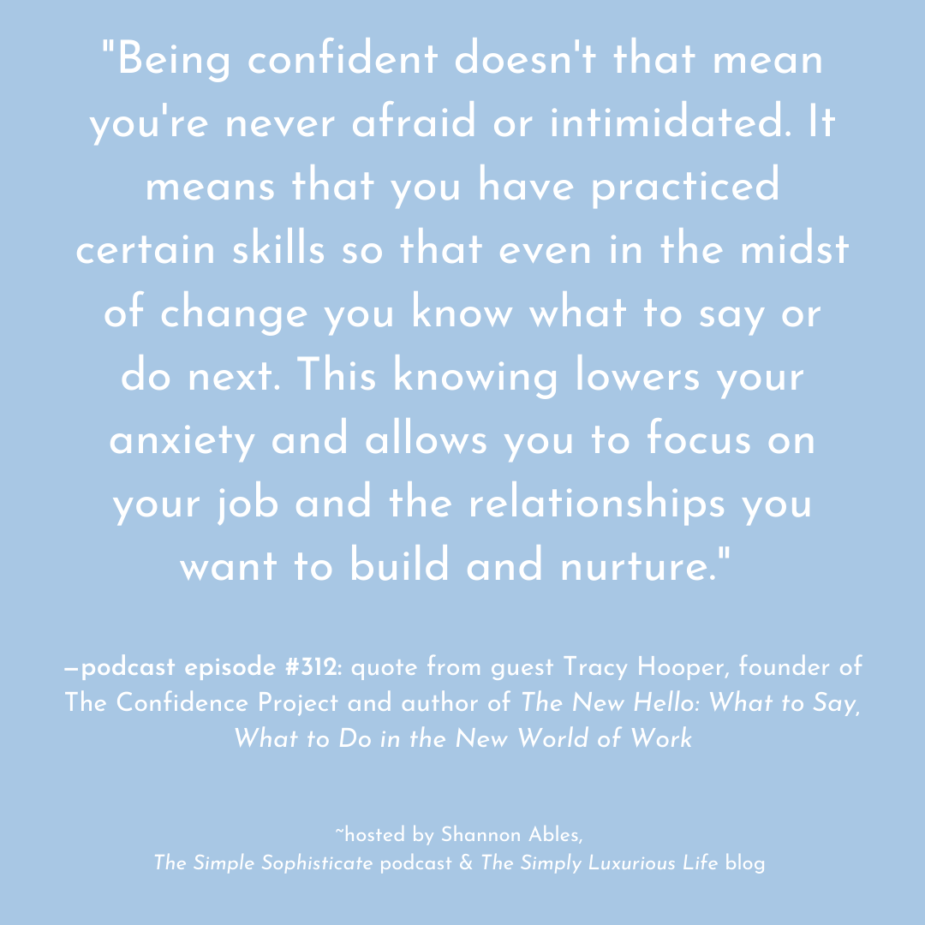 Links to explore:
 Confidence: How to Gain It & Why It's Invaluable, episode #5
 Learn more about The New Hello (available in paperback and audio) ~I greatly appreciate what Tracy shares in this IG video (below) about standards and respecting the ones we have for ourselves whether in business or in our personal lives
Petit Plaisir As well, Tracy shares this episode's Petit Plaisir, a priceless example, something each of us can incorporate into our daily lives, to deepen our contentment, calm our minds and settle our being. Shared below, Tracy's zinnias surround her outdoor space at home to sit, relax and slow down during the summer months.
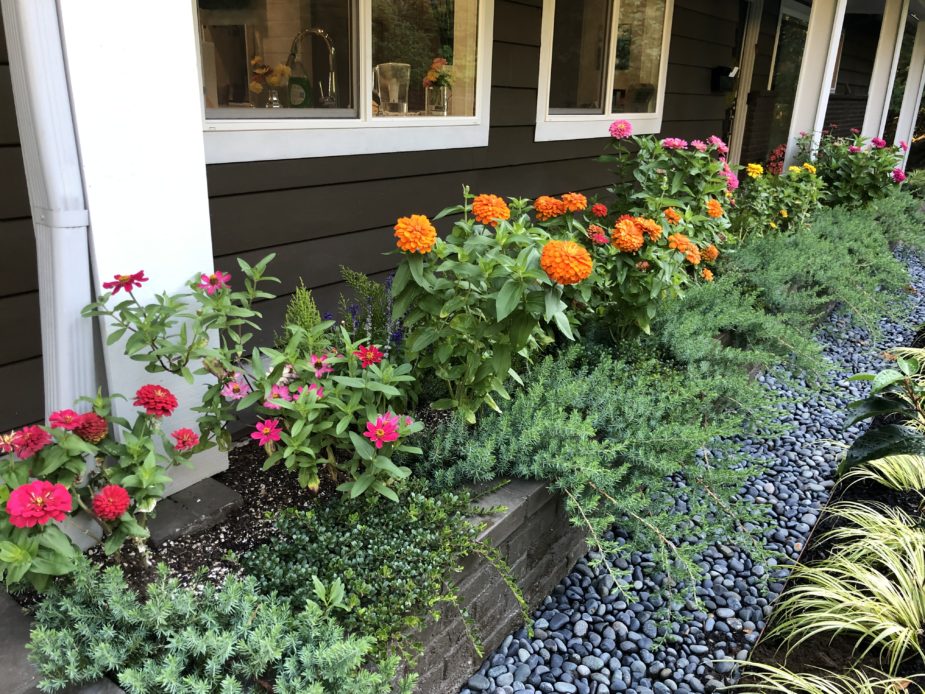
 . View more Petit Plaisirs here. ~The Simple Sophisticate, episode #312~Subscribe to The Simple Sophisticate: iTunes | Stitcher | iHeartRadio | YouTube | Spotify | Amazon Music |
Sun, 5 September 2021
"The world is already broken. And what's true of the state of civilization is equally true of your life: it was always already the case that you would never experience a life of perfect accomplishment or security. And your four thousand weeks have always been running out. It's a revelation, though: when you begin to internalize all this even just a bit, the result is not despair, but an energizing surge of motivation . . . You realize that you never really needed the feeling of complete security you'd previously felt so desperate to attain. This is liberation." —Oliver Burkeman, author of Four Thousand Weeks: Time management for mortals Admittedly, the length of a human life is short when we take the long view of civilization, so it is understandable for us to make the most of our time. However, in so doing, we often go about 'making the most of it' in unhelpful, counter-intuitive ways. Oliver Burkeman wrote a long-running and award-winning weekly column for The Guardian up until last year. He is also the author of The Antidote: Happiness for People Who Can't Stand Positive Thinking, and so after reading his final column for The Guardian, and the synopsis for his first book, I had an idea of his frank, yet considered and sincere approach to what he shares with his readers. Four Thousand Weeks is not your typical time management book. Thank goodness. It is a book to open our eyes to the reality of our mortality, no matter how much we may profess we accept that we will die, we demonstrate through our actions, how we live, we may not have fully absorb this life truth. But don't worry, Burkeman shares in his introduction, his objective is to write a book that helps each of us "redress the balance [of our finite time on this planet and engage productively with fellow citizens, current events and the fate of the environment]—to see if we can't discover, or recover, some ways of thinking about time that do justice to our real situation: to the outrageous brevity and shimmering possibilities of our four thousand weeks." I have pulled ten tips he shares about how to live more deeply, and thus more contentedly in our everydays and thus our entire life; however, there is much more in the book and I highly recommend reading it in its entirety. Let's take a look at the list. Visit the full Show Notes on The Simply Luxurious Life — thesimplyluxuriouslife.com/podcast311 |
Sun, 29 August 2021
In just one week's time, a new season, Season 8, of The Simple Sophisticate podcast will begin. Already, my bookstand is full of titles that have piqued my interest to compile into podcast episodes to inspire, inform and motivate you to cultivate your own unique simply luxurious life. Below is a visual of the entire season running from September of this year through August of 2022. You may also download a pdf of the schedule here. With more than 20 episodes, sharing two new episodes every month on the first and third Monday of each month (even April and May which were previously removed from the schedule in previous seasons due to my teaching schedule), the only month off will be July which gives me time to produce my cooking show's latest season which debuts each September. In November, you'll notice, there are three new episodes as many listeners are traveling during this time of year, and I thought what better time to provide more listening material? Visit the full Show Notes on The Simply Luxurious Life — thesimplyluxuriouslife.com/podcastseason8schedule~Subscribe to The Simple Sophisticate: iTunes | Stitcher | iHeartRadio | YouTube | Spotify | Amazon Music |
Wed, 11 August 2021
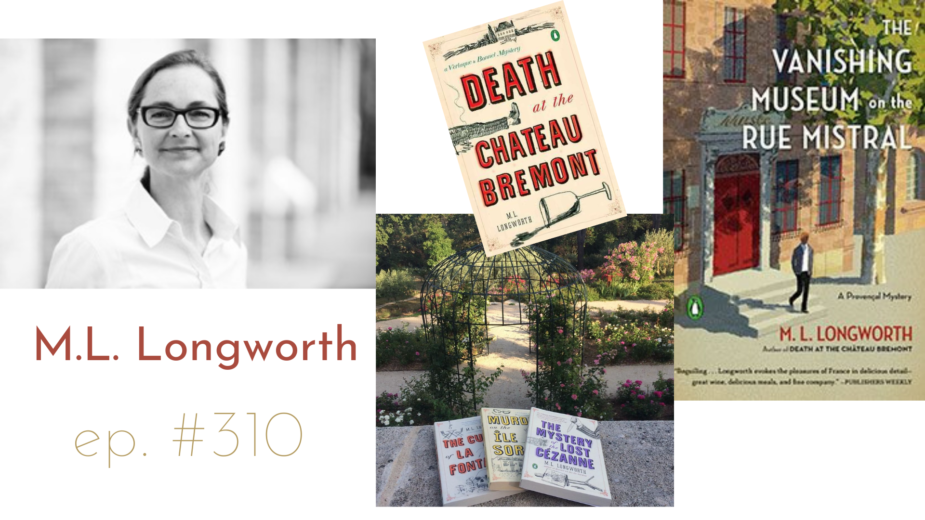 Provencal mystery writer M.L. Longworth joins me on the podcast for this year's French Week to share some exciting news about her series. I invited Mary Lou back to the show (see our previous conversations here - ep. #268 - and here - ep. #203) as I recently learned her novels had been optioned for a television series to air on BritBox. Longworth shares many details about the cast, when it will premiere, which books will be included in season one and much more. Be sure to take the tour of Aix-en-Provence she gave me in this post to enjoy a taste of the world of Antoine Verlaque and Marine Bonnet, and tune in to today's episode as she talks about food, shares a delicious recipe AND shares the synopsis for her upcoming 10th mystery and when to expect it to be released. Links mentioned during our conversation:
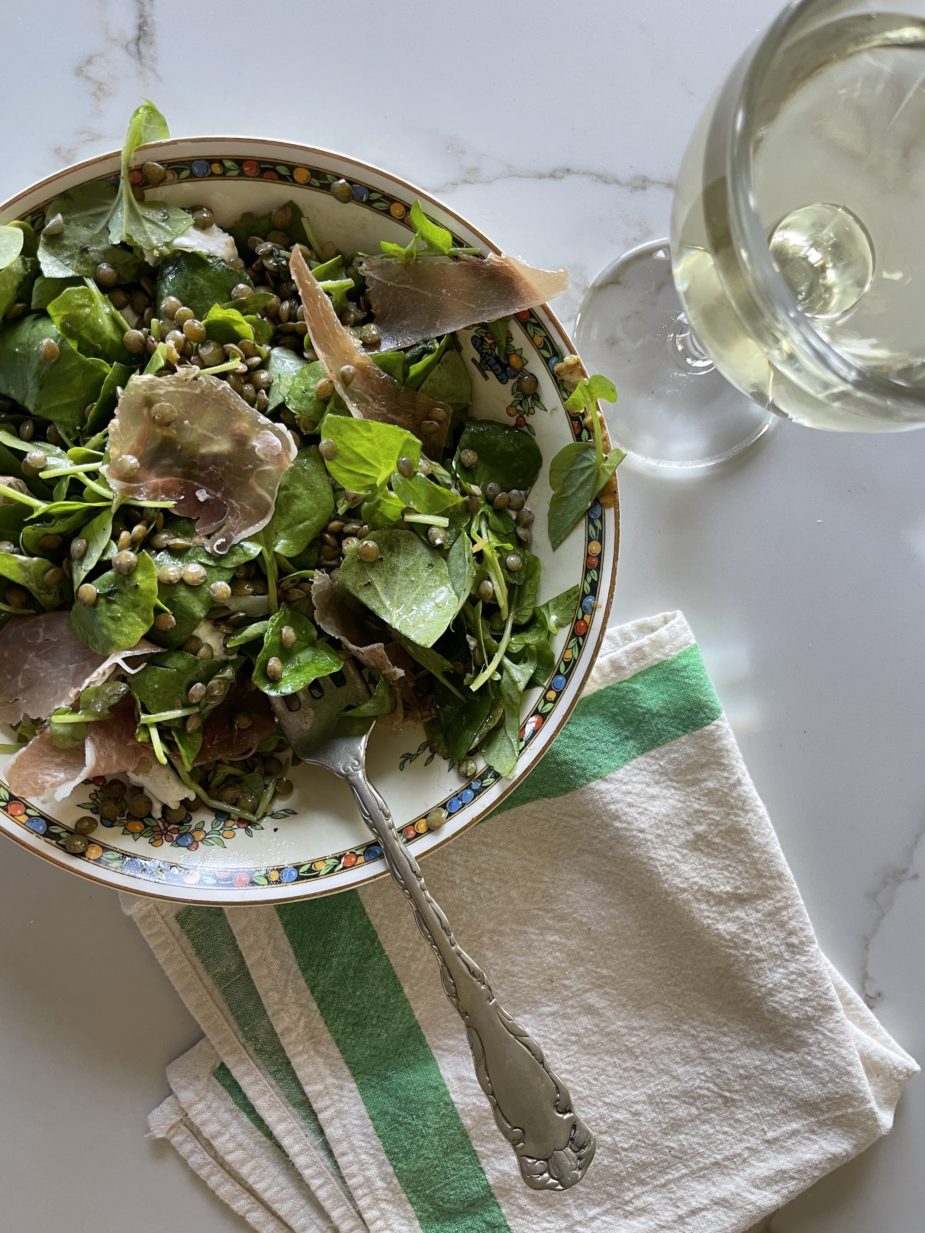 M.L. Longworth's Lentil & Duck Breast Salad
As shared during episode #310 of The Simple Sophisticate podcast, Provençal mystery writer M.L. Longworth shared a recipe during our conversation that offers a quintessential taste of summer in Provence.
~Sign up for TSLL's Free Weekly Newsletter ~The Simple Sophisticate, episode #310~Subscribe to The Simple Sophisticate: iTunes | Stitcher | iHeartRadio | YouTube | Spotify
EXPLORE MORE POSTS FROM FRENCH WEEK 2021
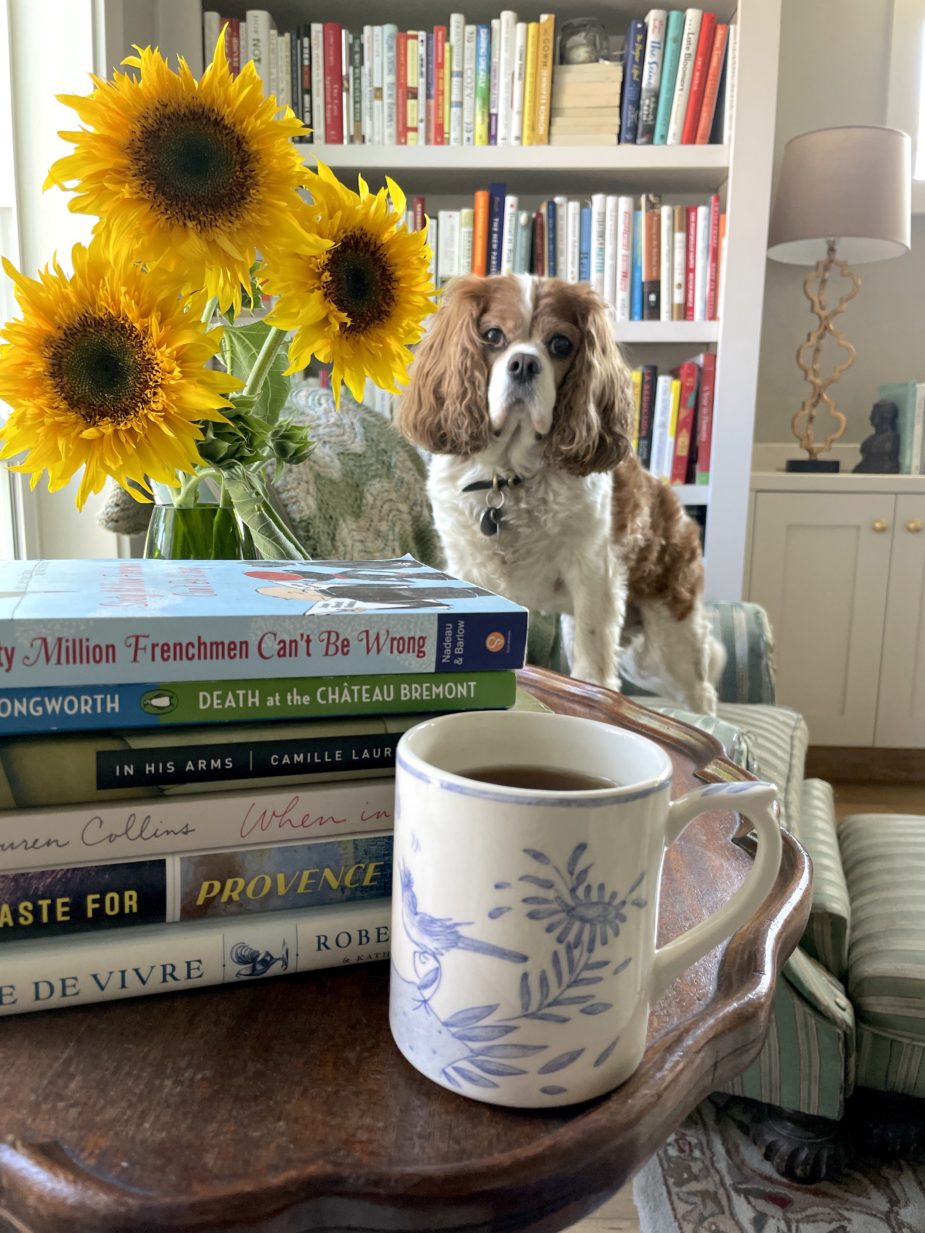 3rd Giveaway: A Cozy Francophile Gift Package
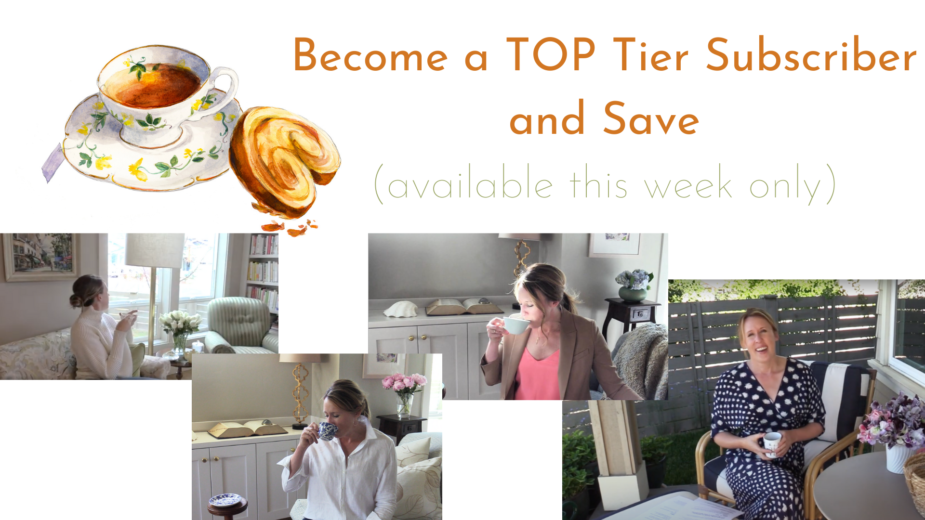 ~View more TSLL French-Inspired posts in the Archives |
Sun, 8 August 2021
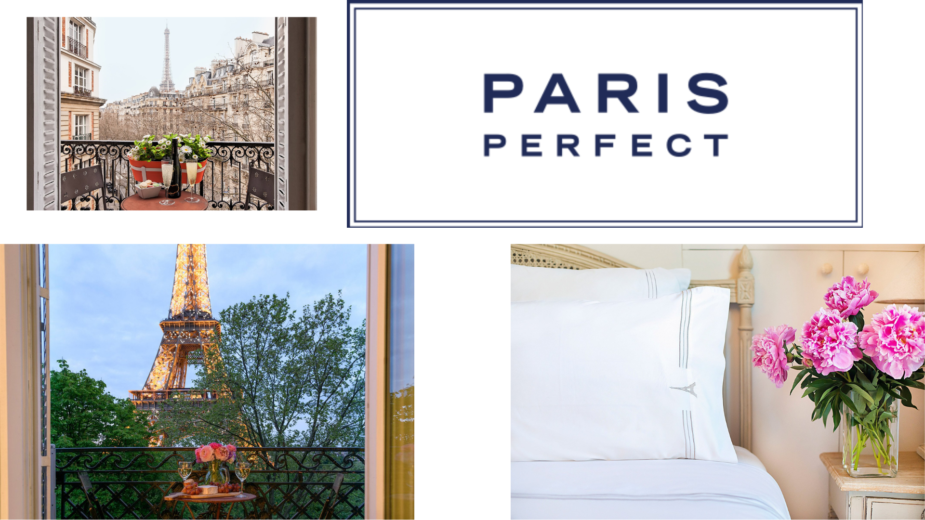 One day in the not too distant future, the dream will be realized for each one of us who longs to hop on a plane and slip away to Paris. Frequently during my daydreams I envision just this scenario happening, and when I do, I will find peace of mind knowing my accommodations with Paris Perfect await my arrival. On today's episode discover just exactly makes each rental perfect for travelers looking to savor all that Paris has to offer - from the thoughtful attention to every detail down to how many outlets are in each apartment to carefully considered mattresses made in France and sofas made in Italy. Everything from the moment you arrive at the airport to any question you might have while you are in the city of light has been addressed. And who wouldn't want to wake up to a view of the Eiffel Tower? As so many Paris Perfect rentals offer, explore and find the ideal home-away-from-home for your next trip.
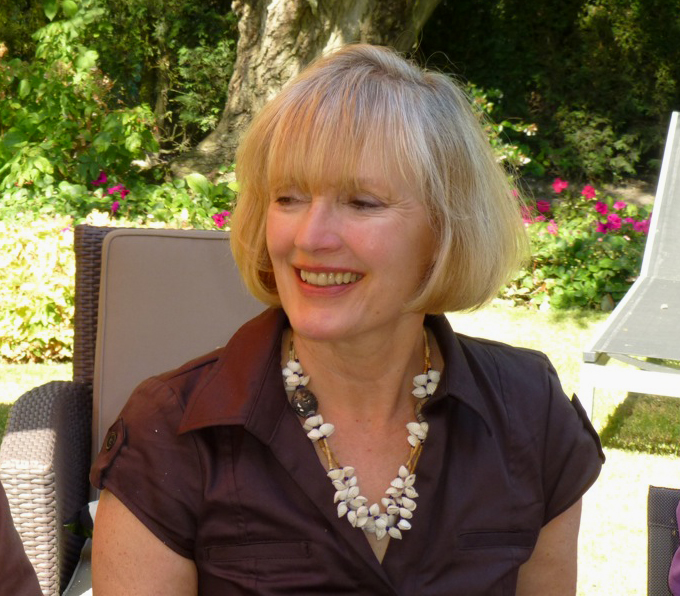 I am incredibly tickled to welcome to today's episode of the podcast the founder of Paris Perfect and London Perfect Madelyn Byrne (seen right). Her sister, Lisa Byrne is the General Manager of Paris Perfect, London Perfect, Italy Perfect as well as the Founder of Italy Perfect, and kindly arranged for this opportunity. What Madelyn shares will, I have a feeling, entice you to want to purchase that ticket to France sooner rather than later. ❤️🇫🇷☺️ Tune in to the latest episode of the podcast, in celebration of TSLL's 6th Annual French Week and discover why I personally recommend making reservations with the Paris, London and Italy Perfect team, as well Madelyn shares tips for success in any business venture you may be dreaming about, what life is like currently (as of June 2021 when the conversation was recorded) in both France and Italy at the moment due to covid, two Petit Plaisirs and much more. I do hope you enjoy today's episode. ~Tour the London Perfect flat I stayed at as discussed in our conversation in today's episode: London Perfect: A Traveler's Sanctuary Visit and/or Follow Paris, London and Italy Perfect via the links below:
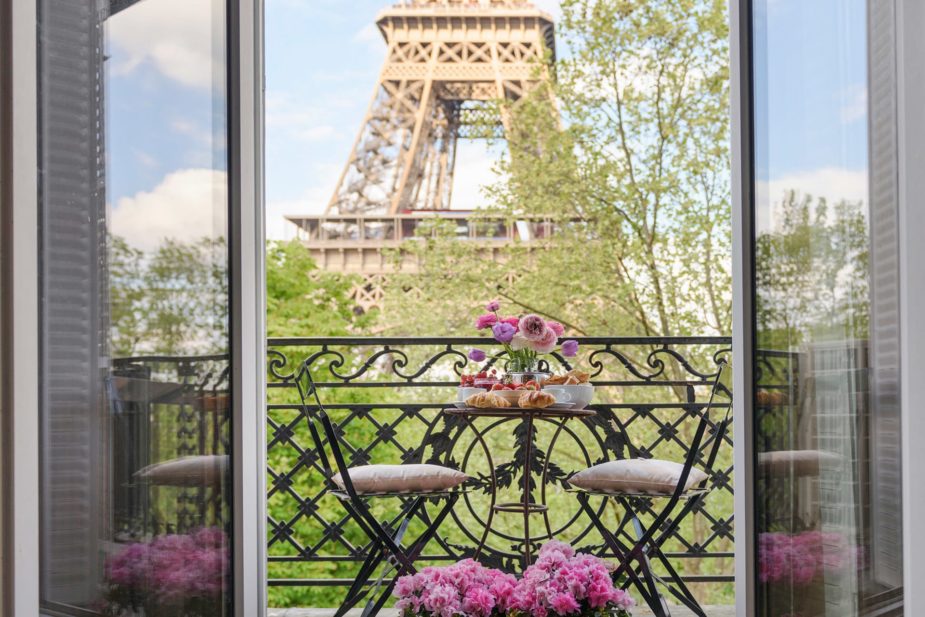 ~Viognier rental~ ~Viognier rental~
 ~La Lande rental~ ~La Lande rental~
 ~Beaujoulais rental~ ~Beaujoulais rental~
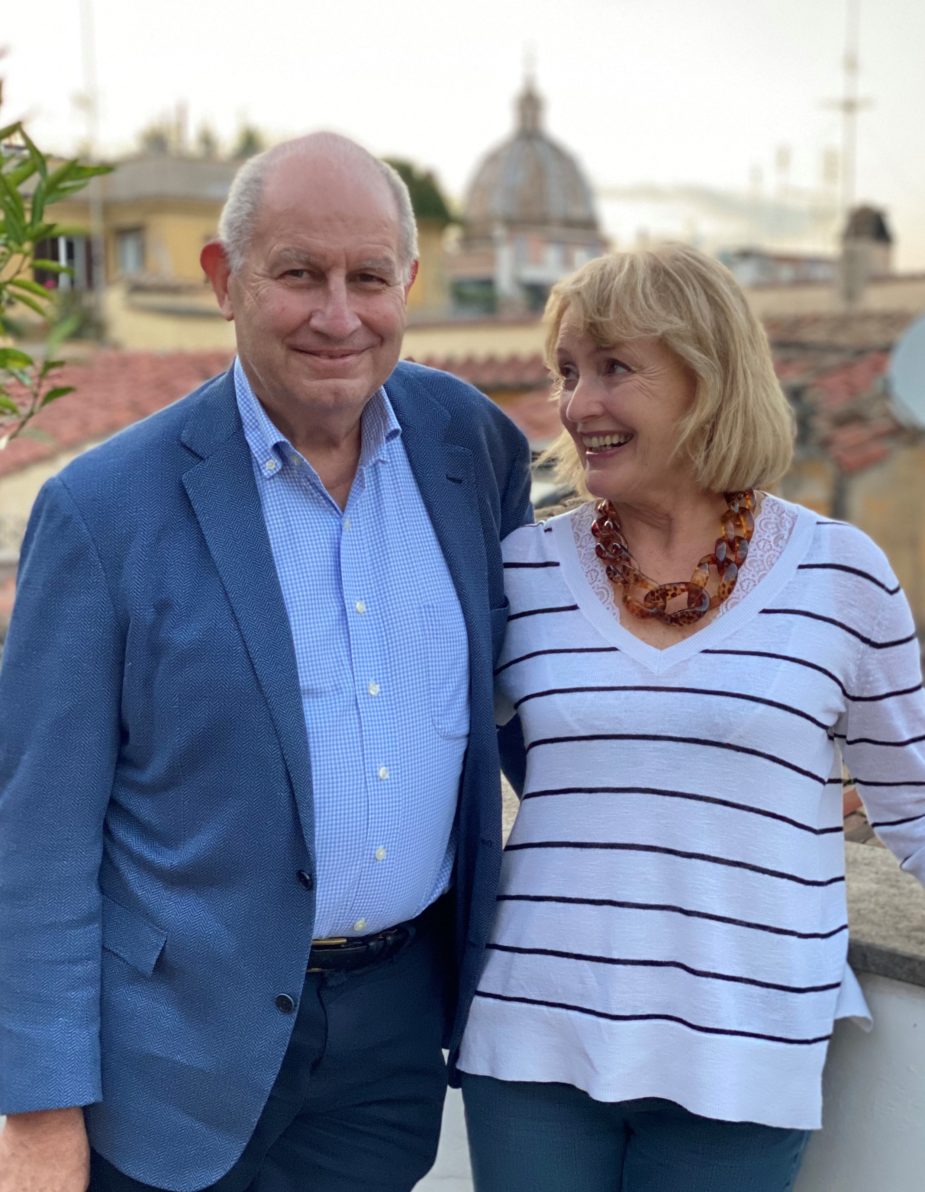 Madelyn & Philippe ~The Simple Sophisticate, episode #309~Subscribe to The Simple Sophisticate: iTunes | Stitcher | iHeartRadio | YouTube | Spotify
Explore All Posts/Episodes from this year's 6th Annual French Week
 ~All images courtesy of Paris Perfect |
Sun, 20 June 2021
Ten years of visiting, followed by three years of construction and refurbishing, and now Shauna Varvel's family Provençal mas situated just outside of Avignon, France, is an exquisite Provençal destination to see both inside and out. Feasting first on the thoughtfully designed and decorated property through Instagram beginning in 2018, I continued to follow her as the property named Le Mas des Poiriers as well as serving as a family home for her and her husband, their adult children and the growing grandchildren, is also now available for rent (although, likely for the most elite due to the price point - which it is worth based on the expansive grounds and thoughtful decor).
Featured in Veranda's April 2019 issue, inspiration abounds whether or not we will be able to visit and see with our own eyes, as Varvel's new book Provence Style: Decorating with French Country Flair (published by Vendome, photography Luke White) was just released earlier this month. With today being the first day of summer in the northern hemisphere, I thought what better way to celebrate the ideal season during which to visit Provence than by dedicating this week's podcast episode entirely to welcoming the Provençal decor and garden ideas into our home and lives wherever we may call home. Having had the opportunity to receive and read Shauna's book, if you are looking for visual inspiration as well as a historical exploration of the design styles associated with Provence, Provence Style is a book you will appreciate and find incredibly resourceful. In today's episode I have gathered 15 ideas adding a touch or a wealth of Provençal decor inspiration to our sanctuaries. Let's take a look. Visit the full Show Notes on The Simply Luxurious Life — thesimplyluxuriouslife.com/podcast308 |
Sun, 6 June 2021
"Your life will tell you the truth." —Martha Beck, author of The Way of Integrity: Finding the Path to Your True Self Divided. Compartmentalized. Unable to give what is needed, not by choice, but by pure, sincere inability due to time and energy. Signs of living a life off the track of the way of integrity. Martha Beck explains in her new book, The Way of Integrity, the word integrity originates from the Latin integer meaning "in tact" and therefore cementing the definition of integrity as "to be one thing, whole and undivided". When we are not living a life of integrity, we are not being true to ourselves, nor the world. Now you might be thinking about the general and more commonly understood definition of integrity - living by your 'values' or abiding by the morals society applauds, but this is not what Beck writes about in her book. Instead, Beck looks at the true meaning of the word and applies it to each of us individually, daring to step away from any culture’s expectations - a life of integrity is one when you have aligned your body, mind, heart and soul - your actions, your mental strength, your true self - you set yourself free. In the introduction she uses a phrase commonly known on this blog/podcast - you achieve a sustainable joie de vivre. "You may not believe that such a fulfilling life is possible. It is," Beck states with calm, assured confidence and goes on throughout the rest of the book, speaking from her own incredibly challenging and terrifying and finally liberating life journey, indeed what she shares is true. "No matter how far you think you've strayed from your true path, the moment you say I'm going to trust myself, I'm going to follow my truth, the healing begins." Beck's book crossed my path just after I had officially and publicly announced a resolve to live my own life of integrity as I had turned in my resignation papers concluding a 20-year career in teaching public education at the secondary level. I arrived at my decision after more than a few years of hemming and hawing about such a choice being necessary for me to live fully in alignment with what I knew to be true in my heart of hearts. And, as I shared in my May episode of the video series A Cuppa Moments (learn more about becoming a TOP Tier subscriber and discover more intimately why I made this decision here), it wasn't about running away; it was about running toward something I loved even more. Another way of looking at the way of integrity is much like putting together a puzzle. It can be especially hard to rationalize why we should leave something when on paper and to onlookers everything hums along beautifully, but if the puzzle doesn't allow your true nature to be nurtured, as Beck describes, when you are "rushing to conform . . . often ignoring or overruling [y]our genuine feelings—even intense one, like longing or anguish—to please your culture . . . you've divided yourself. [You] aren't in integrity (one thing) but in duplicity (two things)." In other words, the puzzle isn't your puzzle to be a part of. Having the courage to step away from something that works, even if we languish while others shine is not living a life of integrity. "When you pursue a career that pulls you away from your true self, your talent and enthusiasm will quit on you like a bored intern." The question we each need to ask ourselves is, “Does the culture nurture your nature?" Pause for a second before answering because I would have answered yes a couple of years ago as the quality of my overall life improved immensely having moved to Bend, Oregon. And what enabled me to move to this dream-of-a-town in my eyes? A teaching job; however, upon reflection, with more truths revealed, and after reading her book, my answer whilst trying to teach and write, is most certainly no. Visit the full Show Notes on The Simply Luxurious Life — thesimplyluxuriouslife.com/podcast307 |
Sun, 16 May 2021
The French define le Petit Plaisir as a simple indulgence that brings great pleasure and enjoyment. In English, the translation is easy to note - small pleasures, yet significant in their ability to elevate the everyday. This week on the blog is TSLL's 3rd Annual British Week, and while yes, the term Petit Plaisirs is notably French, my affinity for the British culture is grounded in so many of the Brits' daily rituals, appreciation for nature which surrounds each waking day, and the dogged determination to keep calm and carry on coined and released to the public in 1939 in an effort to steel the nerves and assuage the fears of the impeding war. As I sat down this past Saturday, savoring a weekend to spent entirely at home, I took a moment and glanced about. So much of how I structure my own everydays welcomes British influences. Most seemingly simple, but others which have come about intentionally, with patience and clear-eyed understanding of the comfort they would bring into my life and sanctuary. Today I would like to share with you 25 British-inspired Petit Plaisirs, and please do share in the comments, rituals or routines you welcome into your own life which are inspired by your Anglophile predilections. Visit the full Show Notes on The Simply Luxurious Life — thesimplyluxuriouslife.com/podcast306 |
Sun, 18 April 2021
Awaking without an alarm clock. Letting the body and mind in tandem wake up after having receiving the necessary amounts of sleep, my goal as I move forward in life is to have more mornings awoken only by the morning murmurs of the fresh air, the birdsong, the quiet of the house as the sun begins to gently start the day. If you have ever experienced jet lag, you know what it feels like, what it sounds like when your body and mind to speak, asking, "Why aren't we sleeping right now?". Whether you are traveling across multiple time zones or not, your body and mind need deep consistent rest, and when we listen to and honor what we hear, we begin to live a life of healthy harmony. We are better able to manage our emotions, stay present, be patient, think clearing and so much more. Sharing the nine benefits of a good night's sleep a couple of years ago, I have no doubt you know the importance and value of a good night's sleep, but knowing and creating a space in our sanctuaries to offer a nightly restful slumber can be two different things. Today, inspired by the completion of my primary bedroom's restyling (tour the full bedroom customizataion here - Parisian Elegance marries English Country Comfort Aesthetics in TSLL's Primary Bedroom Reveal - view before and after photos included along with all of the details, links and decisions behind the choices), I wanted to introduce next week's post with a post sharing 36 Bedtime Daily Rituals and Essential Details for a restful slumber. To know what we need is one thing. To know how to cultivate it can be a bit more difficult to ascertain, but what I have learned over the years having never used an alarm clock during my teenage years, the daily necessary ingredient for an everyday of contentment is a good night's sleep. Visit the full Show Notes on The Simply Luxurious Life — thesimplyluxuriouslife.com/podcast305 |
Sun, 4 April 2021
Today on the podcast, the creators of the new book Artists in Residence join me to talk about not only their collaboration, but also how readers can find inspiration to look at their own sanctuaries as a haven, decorating it in such a way as to nurture presence and the unique creativity each inhabitant would like to share with the world. Melissa Wyse is the writer and through her research, so many details largely unknown to the wider public are shared about each of the 17 artists' residences and their life stories. Kate Lewis brings to vivid imagery each of the intimate spaces with her illustrations. yYou will find yourself looking at all of the detail, going back and forth between the written word and the painted peek to gain a sense of how the artist lived. Not only a book to feast upon with the eyes, but inspire you to honor your own gifts, find time to explore and share them and motivate others to do the same just as Kate and Melissa have done. Visit the full Show Notes on The Simply Luxurious Life — thesimplyluxuriouslife.com/podcast304 |
Sun, 14 March 2021
"Living your purpose will make it possible to do all the things you need to do to reach the goals you need to reach in order to fulfill your dreams, which are as big as the world and as optimistic as your mind can imagine." —Norma Kamali, author of I Am Invincible Change is inevitable, in the world, our bodies and our lives. How we navigate life's endless changes determines the quality of our lives, especially during our everydays and how we experience each 24-hours, but from the longview of life, it will determine the legacy we create, the connections and relationships we make and build and how or if we contribute positively to a better world tomorrow. Fashion designer Norma Kamali's new book, part memoir, part lifestyle/self-esteem builder I Am Invincible is aptly described by Cynthia Rowley as "personal power with a side of popcorn". Upon the book's arrival, I read it in one day. Highlighting constantly, stopping and rereading, taking closer notes so as not to forget and apply immediately her wisdom to my life, I couldn't wait to share with podcast listeners and blog readers (where does the 'side of popcorn come in you may be wondering? she shares a simple, yet delicious recipe for homemade popcorn - I tried it the next day - yep, loved it). Her book begins with the driving question: If you can control the quality of your life, why not do it? And while she definitely had me at Why Not . . . ? I couldn't agree more that indeed we should invest and apply in all the areas we can to elevate the quality of our lives. Today's episode/post shares 33 of which there are many more lessons discovered as I read her book. I hope you enjoy. Visit the full Show Notes on The Simply Luxurious Life — thesimplyluxuriouslife.com/podcast303 |
Sun, 28 February 2021
Over the weekend I quietly celebrated my 42nd birthday. It was lovely. It was full of much contemplation. It included delicious food and wine and the last day of the year brought the sunshine which found me out in my garden preparing for spring. Over the past 12 months all of our lives experienced unexpected moments, ahas, wonderings, fears, break-throughs and endless other unplanned daily routine shifts and lifestyle adjustments. Perhaps some of the lessons I share today won't come as a surprise to you if you follow TSLL blog and podcast and for every lesson I share, if there is a post or episode which explores the idea further, I will be sure to link it for further reader. All in all, much has been learned, much unexpected, and much I am incredibly thankful presented itself and equally am I thankful I chose to try to understand why it said hello in my life. |
Sun, 14 February 2021
"People can change and be happy from this moment onward . . . the problem is not one of ability, but of courage." —from the book The Courage to Be Disliked by Ichiro Kishimi and Fumitake Koga "As long as one keeps searching, the answers come." American folk singer Joan Baez certainly narrows down succinctly and accurately the practice of finding our way; however, along the way toward the revelation of the answers, we must be courageous enough to feel uncomfortable for portions of the journey as well as capable of homing in on the gems of wisdom and letting go of needing to be agile when trying something new in our lives. Today, I am excited to share with you a handful of insights the book The Courage to Be Disliked taught me (there are soooooo many more - I highly recommend reading the book). On the surface, each is easy to comprehend, but the first time we put the practice into use, it may be difficult. With time and consistent effort however, the practice will become habituated and before we realize it, our lives, our everyday lives and the longview of our lives, will change for the better. Let's take a look at the list.
Visit the full Show Notes on The Simply Luxurious Life — thesimplyluxuriouslife.com/podcast301 |
Sun, 31 January 2021
France, food, seasonally fresh produce. American expat cookbook author Susan Herrmann Loomis has just released a new cookbook and it is good. Deliciously good. Plat du Jour: French Dinners Made Easy was just released on January 12th, and I excitedly welcomed it into my cookbook library. Today, Susan returned to join me on the podcast to talk about her new cookbook. Sharing the inspiration for the book, the history of the phrase Plat du Jour, recipes to enjoy during the middle of winter, much more along with another Petit Plaisir that will remind us all how powerfully delicious waiting for something delicious can be. Visit the full Show Notes on The Simply Luxurious Life — thesimplyluxuriouslife.com/podcast300 |
Sun, 17 January 2021
"The lack of meaning in our lives stresses us out, but too much stress makes it harder to find meaning." —Dr. Rangan Chatterjee, author of The Stress Solution Yesterday, for the entire day, aside from letting my pups outside from time to time and feeding them, I wallpapered. I turned on old British cosy mysteries (Poirot with David Suchet), and went to town (hopefully) transforming my primary bedroom from a gray space to a French/English Countryside cottage space. After such focused projects, I sleep deeply. Stress? Nonexistent. Dr. Rangan Chatterjee explains in The Stress Solution how when you've found something you love "time, and even you sense of self, will seem to vanish when you're busy with it." Yep, this is the 'flow state' we've heard so much about. Your emotional brain finds it difficult to grab your attention as your rational brain is being fully encouraged to grow he further teaches. All of this is to say, any negative thoughts, cannot grab hold because you are intently engrossed in something your full attention needs to be engaged with. Dr. Chatterjee shares more specifically as psycholoist Mihaly Csikszemtimihalyi (who coined the phrase - flow state) found, flow is only fully reached when we are challenged. Which makes it all the more important to find something to give your attention to regularly you not only love doing but also steadily gives you the opportunity to grow. All of this is to say, we can alleviate and solve the problem of unnecessary stress in our lives. And when we do so, not only will our overall health improve - in the short and long term, but we will deepen the daily contentment we experience and improve our everyday lives. Visit the full Show Notes on The Simply Luxurious Life — thesimplyluxuriouslife.com/podcast299 |
Sun, 3 January 2021
"The ability to simplify means to eliminate the unnecessary so that the necessary may speak." —Hans Hofmann Simplifying. Far different from minimizing, simplifying requires that we consciously explore what is of value in our lives and then thoughtfully edit in order for what we deem most important to shine as fully as possible. Upon recently rereading Carl Phillips' book 22 Ways to Simpler Living and a couple of other books which help me to assess how simplified I have kept my life or where I need to check-in and adjust or make improvements, I was inspired to make a list to serve as a refresher. I have a feeling each reader/listener stopping by today's post has simplified their lives in some way at some point if not multiple times throughout their lives, so today's post is a check-in so to speak. An opportunity to ensure we are each truly living a simple life for ourselves so we can then live truly simply luxuriously and find true contentment in our everydays. Let's take a look at the list. Visit the full Show Notes on The Simply Luxurious Life — thesimplyluxuriouslife.com/podcast298 |
Mon, 21 December 2020
In the spirit of nurturing ourselves, healing ourselves and opening a door to a better year in 2021, today's episode/post is shared with the intention of providing inspiration for you to do just that as you tailor the final week of the year - the Between the Years as my readers taught me last year (read this post from last year which was inspired by this aha of the term) - to nurture you, heal you, open your eyes to a better, more deeply contented 2021.
Visit the full Show Notes on The Simply Luxurious Life — thesimplyluxuriouslife.com/podcast297 |
Sun, 13 December 2020
“Privacy - like eating and breathing - is one of life's basic requirements.” The sanctuaries we call home, no matter how large or small, provide the comfort and necessary gift of privacy. We hold the key to whom will enter, who lives, who dines, who sleeps, within the four walls we pay each month a large portion of our hard earned money. Similar to our sanctuaries, we are given choices in our lives, many which take time to materialize, but with clear-eyed effort, the beauty, the serenity, can be achieved. Much like the cleanliness and tidiness of a home, we provide self-care, tend to our physical and mental well-being so we can think clearly, decide well and experience true contentment each day. The ideas, the people, the conversations, the energy we open our doors to in our physical house affect the quality of our home-life. And the good news is, we hold the key to the door. Immediately, when I think of a home and privacy, the voice of Diane Lane's character Frances in Under the Tuscan Sun dances through my mind, "What are four walls, anyway? They are what they contain. The house protects the dreamer." And we all need to dream, to give ourselves time and the space to explore our wildest hopes and desires, to become fully acquainted with what sparks joy in our own hearts and minds void of society's influence. A crucial component to living a life of sincerity, to tapping into and discovering our unique potential which the world wants us to share is having the privacy to do so, to finding a steady contentment in each of our days no matter what is swirling around us. So much of our lives is out of our control, but there is much that can be within our control when we become aware of these aspects of our lives (explore these posts and episodes on this exact topic of control). "Maintaining some degree of control over interactions with other people is crucial to our psychological well-being." —Dr. Frank T. McAndrew The key to a home of tranquility and the key to a tranquil life is to establish a personal privacy approach determining who and what can have access to various aspects of your life. Professor of Psychology Dr. Frank T. McAndrew explains how we have four types of privacy in our lives - solitude, intimacy, anonymity, and reserve. Understanding what each type of privacy is as well as how much we need of each (and we do need some level of each in our lives - although, the amount will differ from person to person) helps us to better understand how to find deeper contentment in our everyday lives.
Today we'll explore how to find the balance of healthy personal privacy which can elevate the quality of our lives. Recently, as many TSLL readers and podcast listeners know, I reformed my own privacy boundaries here on the blog this past October and while there were some who pushed back as I was changing what they had become accustomed, the personal peace I gave myself has been priceless. Visit the full Show Notes on The Simply Luxurious Life — thesimplyluxuriouslife.com/podcast296 |
Sun, 6 December 2020
“Discontent is the first necessity of progress.” - Thomas Edison True contentment runs like a river feeding our everyday lives with constant inner peace. Whether the weather for the day is a turbulent snow storm or a sunny Blue Bird day as we call them in Bend, the river of True Contentment continues to run so long as we feed it with conscious awareness and staying fully present much like a healthy snowpack which keeps the river flowing throughout the entire year. To reach the river of True Contentment we have to create the map for ourselves, not find the map which already exists because it doesn't. It doesn't exist in a bookstore, a welcome vestibule at the beginning of your journey, no. And it is even more interesting to note, the map to true contentment is not an entire life-long journey. Rather, it is a map which materializes as we each navigate forward, choosing to learn and hone skills along the way, asking the scary questions our lives present and trust ourselves walk forward alone. Visit the full Show Notes on The Simply Luxurious Life — thesimplyluxuriouslife.com/podcast295 |
Sun, 15 November 2020
 "You shouldn't dream your film, you should make it!" —Steven Spielberg To live actively requires we take action. Seems simple enough, but if teaching my students as well as myself to refrain from using passive verbs versus active verbs in writing indicates anything, defaulting to the passive What if we are defaulting in the same way in our everyday life and, even more largely, in our vision of how our journey will unfold? A new-to-me podcast, Solo: The Single Person's Guide to a Remarkable Life, shared an insightful approach to living life which caught my attention immediately. What if we, instead of being the hero of our own lives, choose to be the director? Think about it for a moment. When we look at a film from the point-of-view from the real world, the hero in the film/movie/novel/play merely follows the directions of the person behind the camera - the Greta Gerwigs (Oscar nominated director for Little Women), the Kathryn Bigelow (Oscar winning director for The Hurt Locker), the Steven Spielbergs (Oscar winning director for Lincoln), the Amma Asantes (Mrs. America), the Jennifer Getzingers (Orange is the New Black and Mad Men), the Julie Delpys (2 Days in Paris), and the Patty Jenkins (Wonder Woman). “Humble perseverance and the ability to observe and grow, in pursuit of making what you love and believe in. Really. THAT is the secret”. —Patty Jenkins, director of Wonder Woman To be the director of our lives assumes the responsibility of having a larger vision for the purpose of each scene, each chapter; however, within each moment, each interaction and revelation, the director knows fully how to craft a scene so as to bring forth a dedication to being present, fully engaged and intentionally clear and knowing about living fully. Being a hero, in theory, is not a bad directive, but it neglects the reality of being a hero - whether saving themselves or another or an entire vast swath of others - the climatic drama of adversity is assumed. And then there is the tragic hero. No thank you. This is not to say that we can direct ourselves to avoid all conflict and adversity. No. From such unwanted and unplanned pains, we grow, we learn, and we gain wisdom, clarity, and strength; however, if we only relegate ourselves to being the hero, we follow a script written by another and directed by someone else as well. While there have been directors who directed themselves, there is a reason why only one has done so and been able to capture an Oscar for both roles - Roberto Benigini in Life is Beautiful (1999), winning one for best Foreign Film as well. It's hard to see yourself clearly - your actions, facial expressions, energy on screen with another, etc.. But wait, if you direct your life, aren't you also the hero? Valid point, and an important one to make. Yes. You are in all actuality both the director and the hero, but again, the director decides who leaves a scene when, how the interactions with others will play out, which details must be included in a shot to further understanding for the audience, what remains out of the shot, the colors of the attire, where the scene is set, the background, the music, all of the details as well as the over-arching storyline (and while often the director is also the playwright or at the very least has some say in how the screenplay is depicted and can mold and tweak it to what would be best for the film, the director has the full reins of the production). What I am saying is we must not forget our primary job - to be the director of our one and only life. Let's take a look at everyday and large over-arching choices and actions imperative for directing our lives well. 1.Who are you? Taking the time to know yourself, unearth your talents, becoming honest about your weaknesses but refusing to let them halt the direction you wish to travel sits at the foundation of a well-lived life. ~Read this three-part series on How to Get To Know Yourself ~Read/Listen to this post/episode to discover how knowing ourselves is the most important ingredient for a healthy relationship with another (episode #179) 2. Learn how to love well Loving well is a skill. We do not know innately how to love another human being as doing so involves emotional intelligence and self-awareness. Models of love or what is purported as love surround us, but many are faulty and derive from a genesis rooted in control, insecurity and many other unhealthy constructs. To follow leads to pain. Knowing leads to peace. Know how to love, and life will blossom. ~In episode #287, discover 5 Things to Do to Build a Healthy Relationship (inspired by the book - How to Be An Adult in a Relationship) ~Listen to episode #166 to discover how to be One Half of a Healthy Relationship ~One of my favorite books on love and being loving in a relationship inspired episode #128 - The Quest for a Soulmate: The Myth Hindering an Amazing Love Life 3. Understand the value of boundaries and understand they will evolve Boundaries define us, as Henry Cloud reminds. Literally, the lines we put in our lives define what we will step forward toward and try and what we will not. Boundaries can limit us. Boundaries can protect us. Boundaries paradoxically can set us free. Knowing how to set boundaries after we have discovered what our boundaries need to be for the chapter in our life we find ourselves gifts us with a powerful foundation. Without boundaries, the wind can take us where it will because we don't know where we want to go and we certainly don't know how to head in the right direction. On the flipside, rigidity when it comes to boundaries can be harmful if it prevents us from exploring what we are capable of sharing with the world. Ah, a tenuous dance which requires of each of us to do our own homework, not follow, because it is our heart, our life that will be set free when we find the sweet spot between the right boundaries and vulnerability. (Listen to episode #126 to discover the Powerful Couple that is Boundaries & Vulnerability.) 4. Learn the skill of effective nonviolent communication For every director who wins praise from their cast and crew, there is a director who bullies, rants and whines. Effective communication, nonviolent communication, is a skill we must choose to learn if we want to have a fulfilling life and strong and healthy relationships with others. To model said communication, observe someone who understands the components of nonviolent communication certainly helps us to acquire the skill, but we must take it one step further to understand why they are communicating as they are. We must again be the student for our lives to reach their fullest potential. As I shared in episode #293, I highly recommend reading Marshall Rosenberg's book Nonviolent Communication: A Language of Life. I have read and will reread this book for understanding how to understand anger, understanding the four basic steps of clear, effective, empathetic communication, and how to honor my own journey, letting go of guilt, shame, anything the outside world wishes me to feel in order to stop me from traveling a path that brings joy. Effective communication with ourselves and others is the way toward directing an award-winning life to continue with the analogy. To clearly convey and know what you wish to materialize, you need to be able to work with others being empathetic and aware along the way, not only of those who will walk with you or cross your path, but with yourself. 5. Understand and practice the fundamental physical components of you To delve a bit deeper into the physical aspect of #1, knowing how your body, your mind, your temperament function and how they can function well will give you a roadmap of how to design the set of your life. It will also help you clearly understand what your boundaries need to be. 6. Be Brave Living an active life, being the director of your own life demands of you to take action. You cannot wait to see what someone else thinks, whether someone else approves, whether the prices will be this or that or another, at some point, you simply need to act. Wait a second, you may be saying, didn't I say each of us is the director not the actor? Okay, perhaps a poor choice of words, but not really. Remember, you are the director of those actions. You decide when to take the first steps, when to set out and try something for the first time, when to let go, when to say yes, when to determine a certain chapter of your life has now concluded and you will be stepping into the next. Being brave. A choice made by the director, and it is no act. Being brave takes raw courage after months, perhaps years of deliberating about when or if you should indeed do just that - be brave. Let me reassure you, being brave will set you free. In the meantime, you will quake, but you will not crumble if what you seek aligns with what you know to be true about yourself (remember #1). “Security is mostly a superstition. It does not exist in nature, nor do the children of men as a whole experience it. Avoiding danger is no safer in the long run than outright exposure. Life is either a daring adventure, or nothing. To keep our faces toward change and behave like free spirits in the presence of fate is strength undefeatable.” —Helen Keller 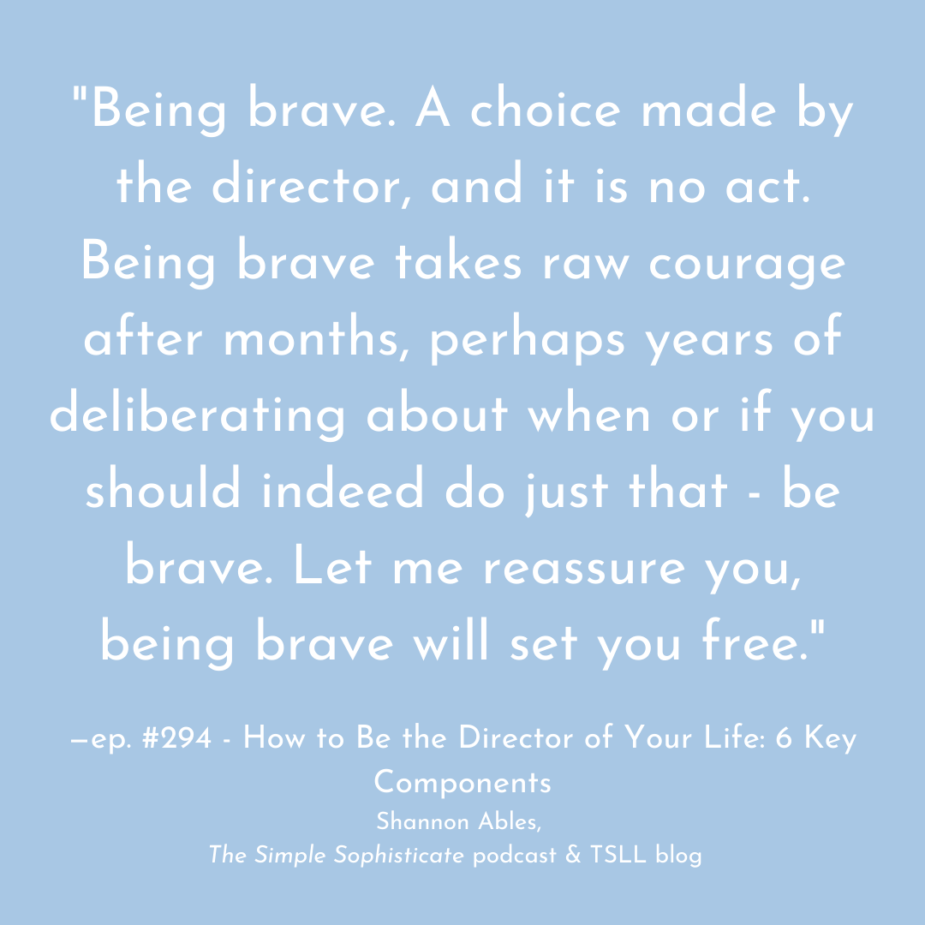 The analogy of the director does not perfectly align with living our one and only life. After all, we are talking about a fictitious story capable of being enjoyed for generations. Our lives are anything but fictitious. No, we know our lives are all too real, but do we? I ask this question because what if poet David Whyte correctly nailed it when he wrote "What if the world is holding its breath - waiting for you to take the place only you can fill?" Why aren't we filling it? Perhaps because we have chosen to follow someone else's script, and not direct our own. Perhaps because we have forgotten to write our own script and direct it as well. We can have chapters in our own lives, the one prior being necessary for the next, not less relevant or bad, simply vital to live the journey we are on, trusting the steps we need to take in a new direction. Today, tap yourself, hire yourself, assign yourself purposely and intentionally as the director of your life, and I am confident, you will begin to see the positive and desired change which may have only been a dream previously. SIMILAR POSTS/EPISODES YOU MIGHT ENJOY: ~8 Ways to Become the CEO of Your Own Life, episode #40
Petit Plaisir 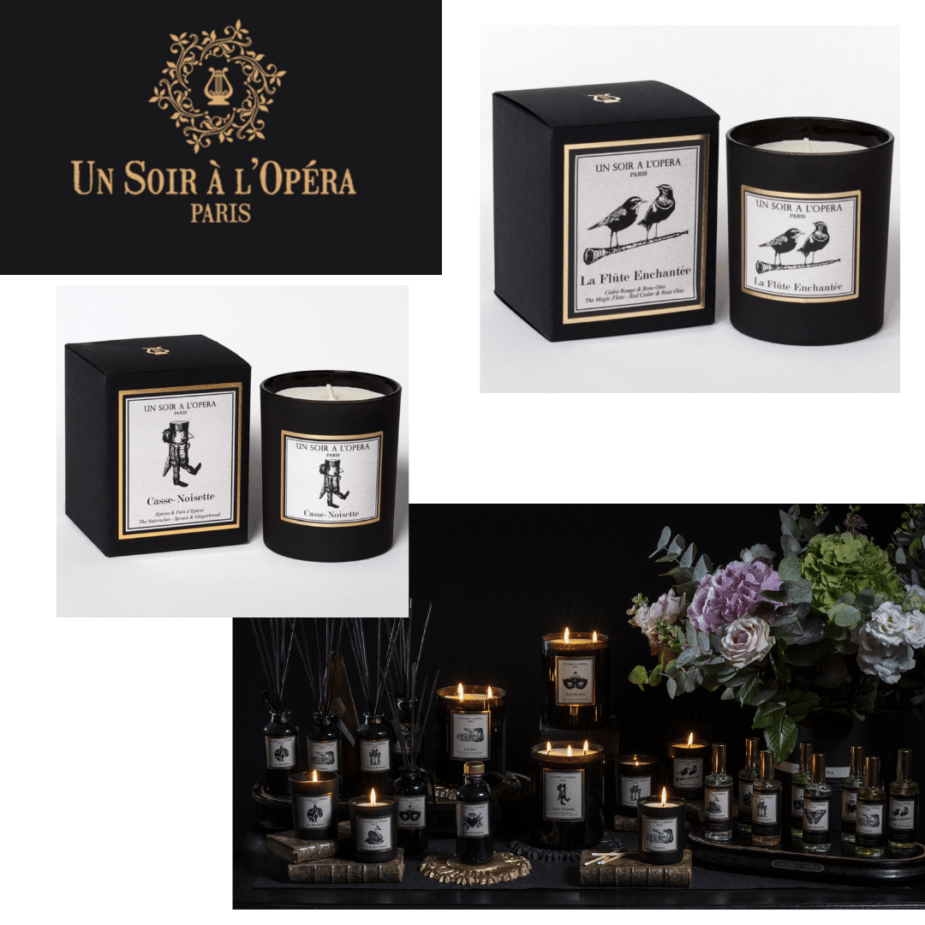 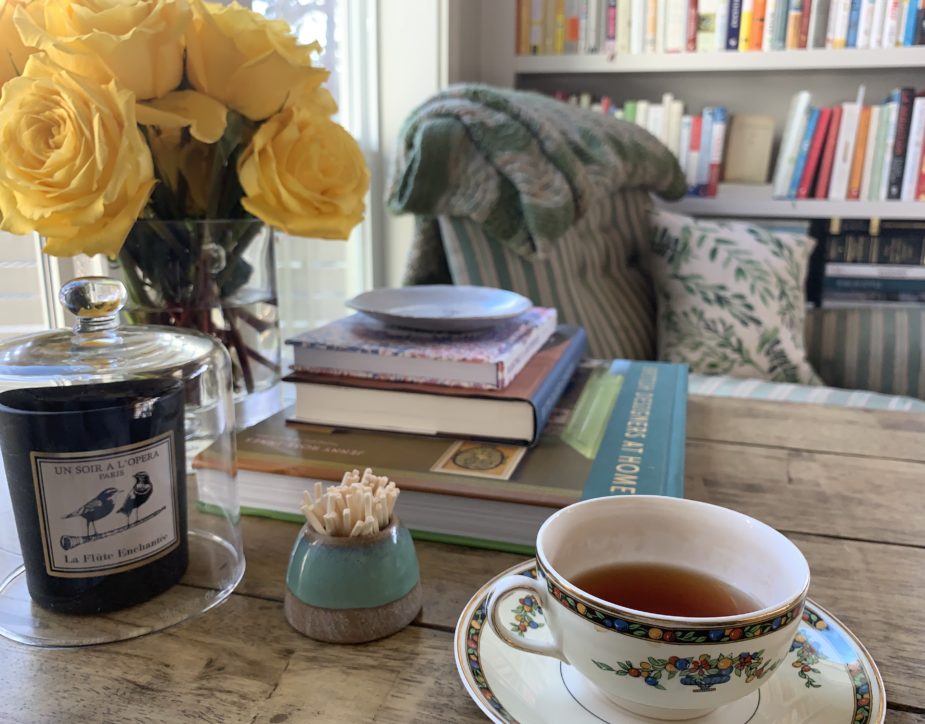 ~The Simple Sophisticate, episode #294~Subscribe to The Simple Sophisticate: iTunes | Stitcher | iHeartRadio | YouTube | Spotify |
Sun, 8 November 2020
"When we speak a language that denies us choice, we forget the life in ourselves for a robotlike mentality that disconnects us from our own core." —Marshall Rosenberg, Nonviolent Communication: A Language of Life Two lives may look like one another, but one may indeed be fulfilling, while the other a life of disdain and pain. Choosing to live as we do versus living a life out of an expectation, obligation, avoidance of guilt, approval, to avoid shame, or to gain money is to choose a life of integrity according to Marshall Rosenberg. When we choose a life of integrity, we discover the ability to tap into our essential and most sincere self, and enable ourselves to share with the world the gift and talent only we can give. Visit the full Show Notes on The Simply Luxurious Life — thesimplyluxuriouslife.com/podcast293 |
Sun, 1 November 2020
Books about happiness ubiquitously fill the publishing world, but the fundamentals of happiness quite simply are just that, simple. We become overwhelmed, and then it becomes easier to fixate, and often superficially so, which expends our finite energy rather than focusing our attention on the core fundamentals and choices of what happiness requires to be deeply and sincerely felt. When the directions are wrong you will never see materialize what you desire. Stop the pursuit. This is something I’ve discussed on the blog before, but I think it is worth exploring again. This time, I am going to explore more concretely the fundamental components of experiences real happiness, and much more of it in our everydays. Let's get to the seven truths in today's episode. Visit the full Show Notes on The Simply Luxurious Life — thesimplyluxuriouslife.com/podcast292 |
Sun, 18 October 2020
“Your inner purpose is to awaken.” —Eckhart Tolle, from A New Earth To observe the seamless fluidity of a dancing pair with years of professional dancing experience float across the floor no matter what type of dance is asked of them is to observe a deep awareness and skill of their craft. Foxtrot. No problem. Viennese Waltz. Got it. Tango. Oh my, yes. Swing. Yep! In 2017, in episode #143, the skill of self-awareness was explored in-depth here on the podcast/blog. For a quick refresher, to be self-aware is to be able to observe ourselves, accept and recognize what we discover and be honest about how we feel, why we act certain ways in particular situations, and the change that we may need to take. It is being able to pay attention and be honest about our strengths, weaknesses, thoughts, beliefs, motivations, and emotions. When we are fully self-aware, we gain the instructions of how to live well even though we do not know what the next minute will reveal, the next week, month, year, and so on, will reveal. When we become self-aware, we are awake and capable of noticing when we need to grow and in what way will help us navigate through whatever life may present. I chose today's topic because no matter where you find yourself in the mix of stress, loss, pain, and confusion regarding our current situation, many readers have shared with me they are presented with new situations of questions, confusion, doubt, [fill-in-the-blank of an unwanted and somewhat or significantly new emotion] from time to time in a manner that perhaps was not present pre-pandemic. "Life will give you whatever experience is most helpful for the evolution of your consciousness. How do you know this is the experience you need? Because this is the experience you are having at the moment." —Eckhart Tolle, from A New Earth Borrowing Tolle's advice from the quote above, seize these unanticipated and initially unwanted moments and feelings and let them be your guide to deeper self-awareness and an improved everyday life. Assuage any grief, quandary, angst, by reassuring yourself that you have been presented with this moment for a reason. Don't toss it. Don't avoid it. Explore it. Today I would like to look at six unwanted examples that may be happening in your life and how to step forward and do the latter to each in order to improve the quality of your life moving forward and through our current situation. Visit the full Show Notes on The Simply Luxurious Life — thesimplyluxuriouslife.com/podcast291 |
Sun, 11 October 2020
"Creating an environment in which you can have a greater sense of clarity and calm . . . The result is a mind that feels much calmer and clear." —Andy Puddicomb Having an abundance of choices is a valuable asset and an extraordinary opportunity. However, unconsciously, when we don't filter our seemingly unlimited choices, we welcome more unnecessary stress into our daily lives. As someone who wholeheartedly embraces and celebrates choice, understanding the right balance of how much choice is helpful until it tips over into distraction, confusion and paralyzation, upon obtaining, significantly increases the level of contentment in everyday life. Andy Puddicomb's seemingly simple advice is too often overlooked or forgotten, however is insightful and sage advice if we are seeking tranquility in our everydays. The clarity we may need to welcome into our lives could be ushered in seemingly anywhere and everywhere. The variable is each of us. Where do we need calm in our lives? Where are we feeling harried, run-down and over-extended? Often we don't realize it is the over-abundance of options that is standing in the way of a sea of calm that carries us more gently and enjoyably through our days. It has been argued that a large portion of our life experience is determined by a few key decisions. Coined the 80/20 rule, or more officially, the Pareto Principle named after Italian economist Vilfredo Pareto in 1906 to describe the wealth inequality at the time, the concept has expanded to apply to a variety of aspects of life beyond business. And while, the formula isn't exact, it is a concept worth pondering. When we think about our choices as investments in our lives, what choices will reap the most benefit, the best and longest lasting outcomes? Whether regarding our health or contentment or financial stability, quality choices, purchases and pursuits are wise investments which eliminate excessive, repetitive and time-consuming choices that may fill up our days and minds unnecessarily. Today, discover 10 areas of life to consider paring down your choices and thereby, scaling up the overall quality of your everyday life and peace of mind. Visit the full Show Notes on The Simply Luxurious Life — thesimplyluxuriouslife.com/podcast290 |
Sun, 4 October 2020
"The thread of all good cooking: the right ingredients, fresh and the way they should be - not fancy or expensive." —Anne Willan, author of Women in the Kitchen and founder of La Varenne Cooking School in Paris One of the world's preeminent authors on French cooking, a James Beard Award-winning author and the founder of La Varenne Cooking School in Paris, Anne Willan joins me on the podcast today to talk about her new book Women in the Kitchen: Twelve Essential cookbook Writers Who Defined the Way We Eat, from 1661 to Today. In today's episode we will talk about seven of the women featured in the book, as well as talk about Anne's time managing and founding La Varenne and much more. Visit the full Show Notes on The Simply Luxurious Life — thesimplyluxuriouslife.com/podcast289
|
Sun, 20 September 2020
The Atlantic recently posted an article asserting there won't be a clear end to the pandemic. Rather, the end for each of us will be as unique and differentiated as each one of us and occur on a different timeline. Frequently, the yearning for "returning to normal" may be voiced by those around us, strangers or intimate relations, or we may be simply thinking such thoughts, constantly, as we grieve the parts of our lives we enjoyed that are no longer readily available or available at all. However, even before the pandemic introduced itself and in what seemed for many to change our lives much like a light-switch, the psychological experts have been talking about this word that seems to roll off our tongues more often than ever before in recent times - normal. Writing in 2009 on Pyschology Today, "The fate of normality is very much in the balance," wrote Peter Kramer. While speaking about individuals as to their neurosis or so-called normal behaviors and the perameters of what constitutes "normal", he shared a final thought which may help reframe how we strive forward in our current times as we are more broadly looking at an entire world, culture, etc. and what "normal", the new normal, may be:
Visit the full Show Notes on The Simply Luxurious Life — thesimplyluxuriouslife.com/podcast288 |
Sun, 13 September 2020
As soon as I read the first line in chapter one shown above, the analogy made crystal clear sense of my ignorance about relationships and how to navigate past it: I needed to learn HOW to love, not just want to love and want to be loved. Love, as the oft mentioned quote reminds is a verb, but even if we accept this truth, we have to learn how to exercise this action, and we have to be willing to let go of so much incorrect and unhelpful advice in order to find the peace and contentment we seek. Today's episode can help in all relationships you are engaged in. Fundamentally, the book was written in 2002 for readers trying to improve their romantic relationships, but indirectly, the skills and concepts shared will foster healthy relationships platonically from close friends and family members to acquaintances, neighbors and strangers we bump into along our travels and life journey. Recommended by my counselor, my copy of David Richo's book is annotated in detail, and I have referred back and reread different sections since my first reading. I have chosen to work with a counselor since nearly four years ago, but it did take time to find the right one. Meeting regularly, primarily for preventative and skill strengthening purposes in areas I wish to improve, the opportunity to meet with a professional, trained in the area of expertise we do not have is helpful to make sense of what we learn not only about ourselves but how our minds and emotions work. With all of that said, as soon as I read the book, lightbulbs went off repeatedly in my mind. Ahas occurred frequently and I found an ease I had never felt before regarding my approach to interacting with others in a variety of different relationship scenarios. While I highly recommend you pick up your own copy and read it closely, I wanted to share with you the primary component that underlies everything about being an adult in life and love. The world we live in would rather have us feel insecure and lacking, even though it blatantly argues the contrary (when you purchase their product, create [enter lifestyle and accoutrements] for all to see and witness, or behave in a certain way), so it is no wonder we are confused about what we should or shouldn't be doing when it comes to relationships. And even if we eventually do figure it out, trying to understand what it is that worked if we don't know ourselves leaves us struggling to explain to others why it works if they inquire, don't understand or have not been introduced to the fundamentals shared below. The good news is, this intangible unknown need not be unknown any more. Knowledge is key, and this practice is essential to cultivate habits that will heal you and then strengthen your ability to connect as an adult with adults to build a life of social harmony and contentment. First, we need to let go of some unhelpful and often destructive habits.
Visit the full Show Notes on The Simply Luxurious Life — thesimplyluxuriouslife.com/podcast297 |
Sun, 6 September 2020
“Comparison is the death of joy.” ― Mark Twain The thief of joy, if Mark Twain is right, is of our own making. The good news in this revelation reveals each of us can take back our joy. Comparing ourselves to others occurs consciously and unconsciously. Consciously, we may be acutely aware that we follow certain people on social media to see how we are doing in relation; unconsciously, when we choose not to speak up to set a boundary, when we set a checklist for our life delineating what should happen by what age. Each of these three are examples of many more of unhelpful comparison, and while comparison is a primal instinct for survival, the good news evolution and civil society have provided the opportunity and arguably the necessity for each of us of to offer the world our unique talents rather than limiting ourselves to remain part of the herd or tribe. The habit of comparison is a learned skill, and therefore, it can be unlearned; however, it must be a conscious choice to do so. Fundamentally, when we compare ourselves with others, some part of us believes we are not enough or needs to be reassured that we are enough just as we are. Today, I will be examining five areas of our lives in which comparison can creep in and become destructive to contentment and living a fulfilling life, and then share how to let go of such comparing with the outside world. Visit the full Show Notes on The Simply Luxurious Life — thesimplyluxuriouslife.com/podcast286 |
Sun, 16 August 2020
In three weeks the seventh season of The Simple Sophisticate will begin. With 285 episodes already shared, I am excited to explore new books, welcome guests that speak to what living simply luxuriously is all about and sharing motivating and inspiring ways to continue to live a life of quality over quantity. I have shared the full calendar for Season 7 which spans the next 12 months. You will notice that 2021 has a handful fewer episodes than last season. The reason for this is to give me time to hopefully bring a second season of the cooking show during the spring season. Keep in mind that every Monday that a new episode does not go live, a brand new Motivational Monday post will be available to read here on the blog, just as there is today. I want to thank listeners again for sharing the show with their friends and family either by word-of-mouth or on their social media feeds, and for leaving positive reviews that share specifically what they enjoy about the show so that new potential listeners know exactly what they will discover when they tune in. This September look for topics on building healthy relationships, listen to my conversation with a guest from the cooking world who has worked with the most well-known people in the industry, tips on how to make the most of this incredibly challenging time, and many more topics that are relevant and relatable as well as offering concrete ideas to apply to your own life journey. Join me on Monday September 7th for a brand new episode wherever you listen to podcasts. Subscribe below in order to always have the latest episode ready to download and enjoy.
|
Sun, 9 August 2020
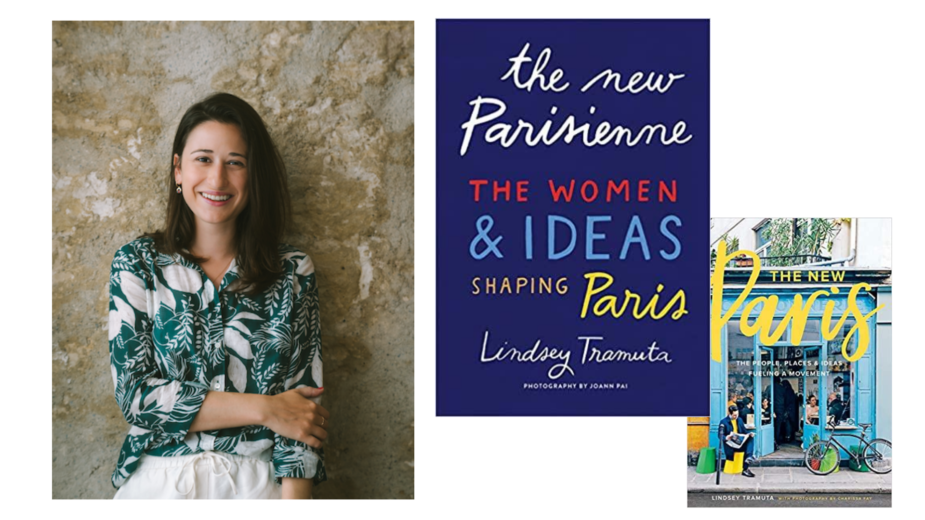 Author and blogger and American living in Paris Lindsey Tramuta joins me on podcast today to talk about her new book The New Parisienne: The Women & Ideas Shaping Paris (purchase on Bookshop.org). Having called Paris home for nearly 15 years, Tramuta explores the true Parisienne woman, looking past the myth and confining superficial stereotype that has been perpetuated for centuries through introducing readers to 40 Parisiennes in all of their diverse life journeys and talents and passions. Joining me from Paris, our conversation covers where the myth of the Parisienne woman began, who benefitted from it and how we can shift the narrative to reflect the truth. We also talk about her happy place in Paris, the difference between universal feminism vs. intersectional feminism and with diverse individual profiled, what they all have in common. I do hope you will tune in and have a listen. Lindsey's first book The New Paris (2017) is another wonderful Francophile resource to keep on hand as an introduction to new people, places and ideas in the City of Light. Download and Listen to the full episode here or listen on the following podcast platforms: ~The Simple Sophisticate, episode #285~Subscribe to The Simple Sophisticate: iTunes | Stitcher | iHeartRadio | YouTube | Spotify~The TEDTalk mentioned during our conversation, The Danger of a Single Story by Chimamanda Ngozi Adichie Lindsey's Petit Plaisir links:
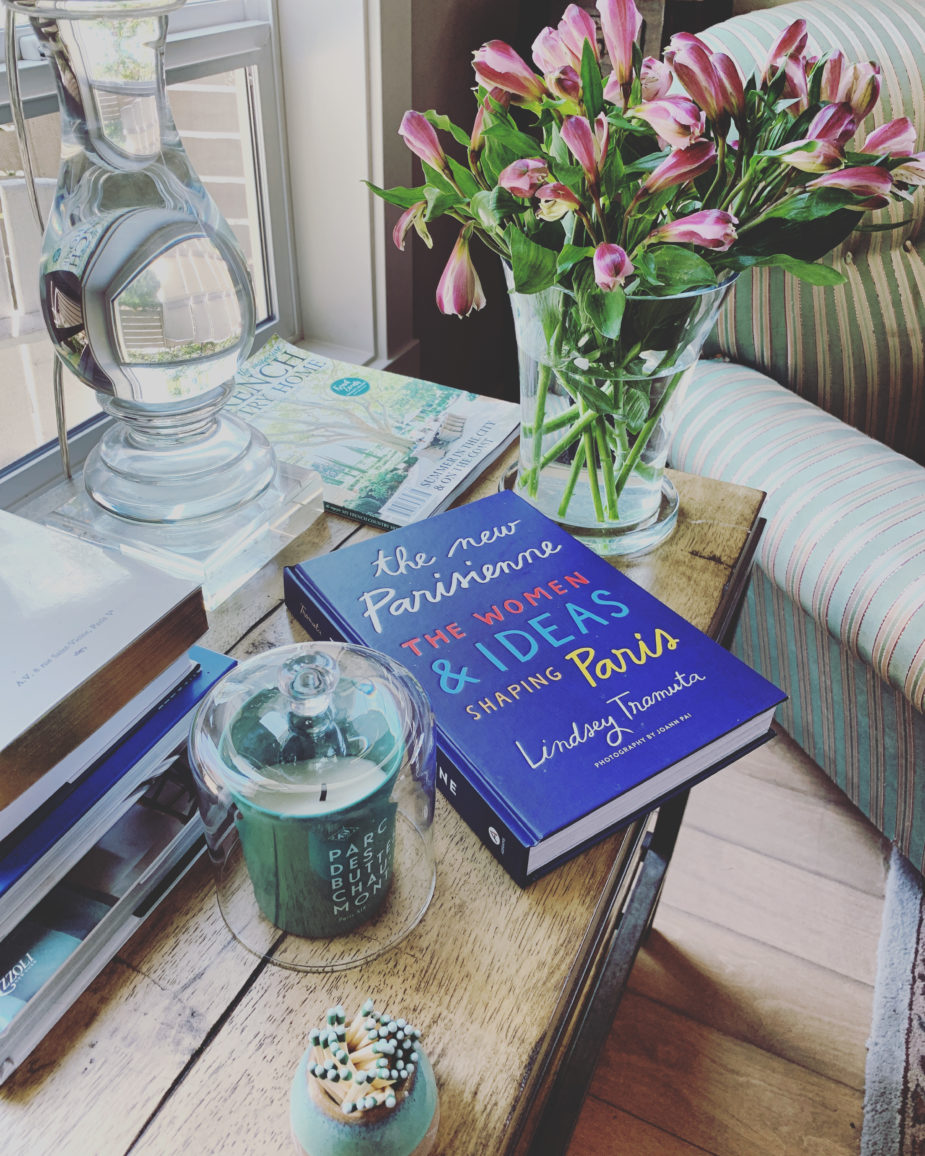 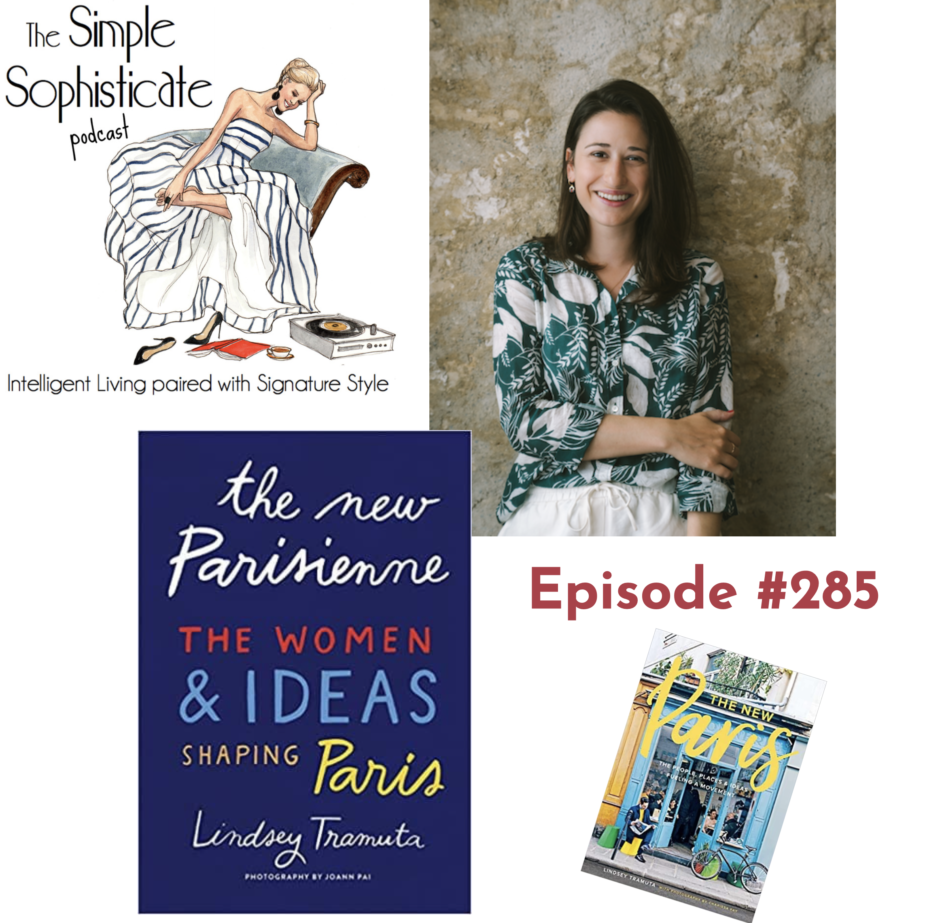 Images: (1) author pic courtesy of author, taken by Joann Pai
PREVIOUS POSTS from TSLL’s 5th Annual French Week
Direct download: 285LindseyTramutaTake2August9_copy.mp3
Category:French-inspired -- posted at: 7:00pm PDT |
Sun, 19 July 2020
Desired change in our lives can be seemingly elusive when so much of what needs to happen requires more energy, more time, more focus. With already full lives, the desired change remains just that - desired. However, what if you set aside just one month. Why not for only one month institute the change you seek, and then should if it does not work out, you can return to your old ways? Part of this approach is a bit of a trick of the mind, but the other part is to reduce the stress on your schedule as you can shift your priorities temporarily and only permanently if you choose to at the month's end. In today's episode, the top episode which kicked off Season #5 of the podcast, discover specific ideas for welcoming simplicity into your everyday life. You can view the full Show Notes for episode #224 here.
|
Mon, 13 July 2020
Today's episode is a top episode from Season 3 discussing how understanding what our signature style is and then owning it with confidence permeates all arenas of our lives. Ultimately, what we wear matters. Without saying a word we communicate our values, our confidence, our expertise, where we've been, where we are and where we want to go (or stay). I do hope you enjoy this full episode, and if you are looking for a new book to whisk you away to France, be sure to stay tuned until the end of the episode when the Petit Plaisir is shared. View the full original Show Notes here. View more episodes of The Simple Sophisticate podcast. ~The Simple Sophisticate, episode #142~Subscribe to The Simple Sophisticate: iTunes | Stitcher | iHeartRadio | YouTube | Spotify |
The Simple Sophisticate - Intelligent Living Paired with Signature Style

Categories
lifestylemoney
fashion
general
food
relationships
beauty
holidays
style
decor
etiquette
technology
dating
clothing
news
happiness
health
finances
self-help
feminism
french living
communication
inspiration
self-improvement
cooking
French-inspired
podcast
travel
entertaining
Archives
AprilMarch
February
January
December
November
October
September
August
July
June
May
April
March
February
January
December
November
October
September
August
July
June
May
April
March
February
January
December
November
October
September
August
June
May
April
March
February
January
December
November
October
September
August
July
June
May
April
March
February
January
December
November
October
September
August
July
June
May
March
February
January
December
November
October
September
August
July
June
May
April
March
February
January
December
November
October
September
August
July
June
May
April
March
February
January
December
November
October
September
August
July
June
May
April
March
February
January
December
November
October
September
August
July
June
May
April
March
February
January
December
November
October
September
August
| S | M | T | W | T | F | S |
|---|---|---|---|---|---|---|
| 1 | 2 | 3 | 4 | 5 | 6 | |
| 7 | 8 | 9 | 10 | 11 | 12 | 13 |
| 14 | 15 | 16 | 17 | 18 | 19 | 20 |
| 21 | 22 | 23 | 24 | 25 | 26 | 27 |
| 28 | 29 | 30 | ||||
Syndication







